Route 66: Black November | Season 1 Episode 1 (Full …www.youtube.com › watch51:47Watch Route 66: The Complete Series: http://www.shoutfactorytv.com/series/route-66Buy Route 66: The …17 Nov 2017 · Uploaded by Shout! Factory
Route 66: The Complete Series (3/11) 1960 – YouTubewww.youtube.com › watch1:17Clip from the DVD release of Route 66: The Complete Series, out now from Shout! Factory.More info: …14 May 2012 · Uploaded by Shout! Factory
Route 66 Full Episodes Full HD – YouTube

The media equation
John Lydon: Sex Pistols star declares war on wokeness as he blasts ‘spoilt’ snowflakes
Michelle Marshall for Daily Express , mainstream Posted here April 27th 2021
John Lydon, who rose to prominence as Sex Pistols frontman Johnny Rotten, has slammed cancel culture for tearing down and defacing statues of British figures including Sir Winston Churchill over claims of racism. The former punk rocker has hit out at woke whingers saying they have “s**t for brains” in a furious rant.
The 65-year-old claimed that universities are churning out a generation of “spoilt” snowflakes who attack “popular opinion” when they graduate.
The Sex Pistols frontman branded them as “horribly tempestuous spoilt children” who claim to be “disenfranchised”.
The rocker added he was unsure why the woke brigade have been given a platform to air their views on television.
Speaking in a new interview, the musician vented his frustrations and admitted he despises cancel culture.
READ MORE: Meghan and Harry’s move mocked by John Lydon ‘Can only end badly’
© GETTY John Lydon declares war on wokeness as he blasts ‘spoilt’ snowflakes
© GETTY John Lydon has slammed the woke brigade
John fumed: “These people aren’t really genuinely disenfranchised at all.
“They just view themselves as special. It’s selfishness and in that respect it’s divisive and can only lead to trouble.
“I can’t believe that TV stations give some of these lunatics the space.”
The former punk rocker claimed that their attitudes can lead to “trouble” and are “divisive”.
© GETTY John Lydon is best known as Johnny Rotten from The Sex Pistols
© GETTY Meghan Markle and Prince Harry sat down with Oprah Winfrey
He continued to Daily Star: “Where is this ‘moral majority’ nonsense coming from when they’re basically the ones doing all the wrong for being so bloody judgemental and vicious against anybody that doesn’t go with the current popular opinion?
“It’s just horribly, horribly tempestuous spoilt children coming out of colleges and universities with s**t for brains.”
John turned to the woke brigade who had defaced a statue of Churchill during a peaceful protest back in June.
The rocker said that the wartime Prime Minister had “saved Britain” and added that “whatever he got up to in South Africa or India beforehand is utterly irrelevant” to the current issues of today.
John – now a full-time carer for his Alzheimer’s stricken wife Nora Forster, 78, at their LA home – also took aim at Prince Harry and Meghan Markle’s explosive interview with Oprah Winfrey which aired on CBS and ITV last month.
The Anarchy in the UK singer hit out the pair’s bid for privacy as he claimed they should “mind their own business”.
His comments come after it was announced that Meghan and Harry’s Finding Freedom biography is expected to get a reboot this summer and lift the lid on the royal drama.
John added that putting themselves out there would lead to more scrutiny and less privacy.
Speaking about their recent interview, John said: “It seems like petulance when they flutter their wings and cry ‘freedom’ but it’s not. They’re seriously prisoners.
“Everybody seems ever so willing to adopt a side and be spiteful with it.”
He added to The Times: “My advice to them is they should mind their own business too, and if you want out of the public awareness then don’t go on the Oprah show.
“It can only end badly for you.”
More Media Tosh To Stoke Up White Guilt And Black Entitlement – Robert Cook April 19th 2021
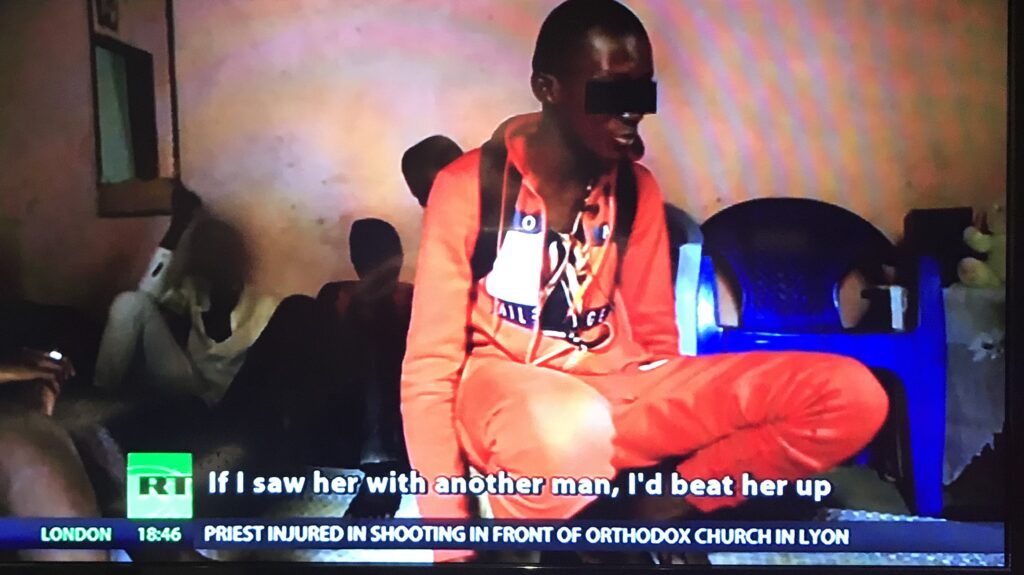
The intensifying white guilt campaign studiously avoids the issue of class. It is blowing up the myth that all whites have had a fun time and always have had. It is a vile insult to my exploited ancestors including my poor hard working mother.
Africa is now run by blacks and its countries are in chaos. There are reasons why blacks have issues and blaming poor whites is a pathetic and vile cop out to protect the disgustingly rich elite who own , staff and control mainstream media a well as politcs. In the U.S.A blacks are attacking Asians but it doen’t fit the mainstream media agenda which is most concerning. The elite pander to th moronic ,writing their own class, black and white, out of history , appealing to black greed for reparations and the illusion of more power in fake democracie.
Moslems are not a race. The majority , like Latinos are darker skinned fellow Caucasians. Religion impedes the cutural developement of both. Over population is an outcome and a major problem for them and the whole planet environment. The following is typical middle class grievance culture – in spite of the authors name. White identity for the masses is fair game.
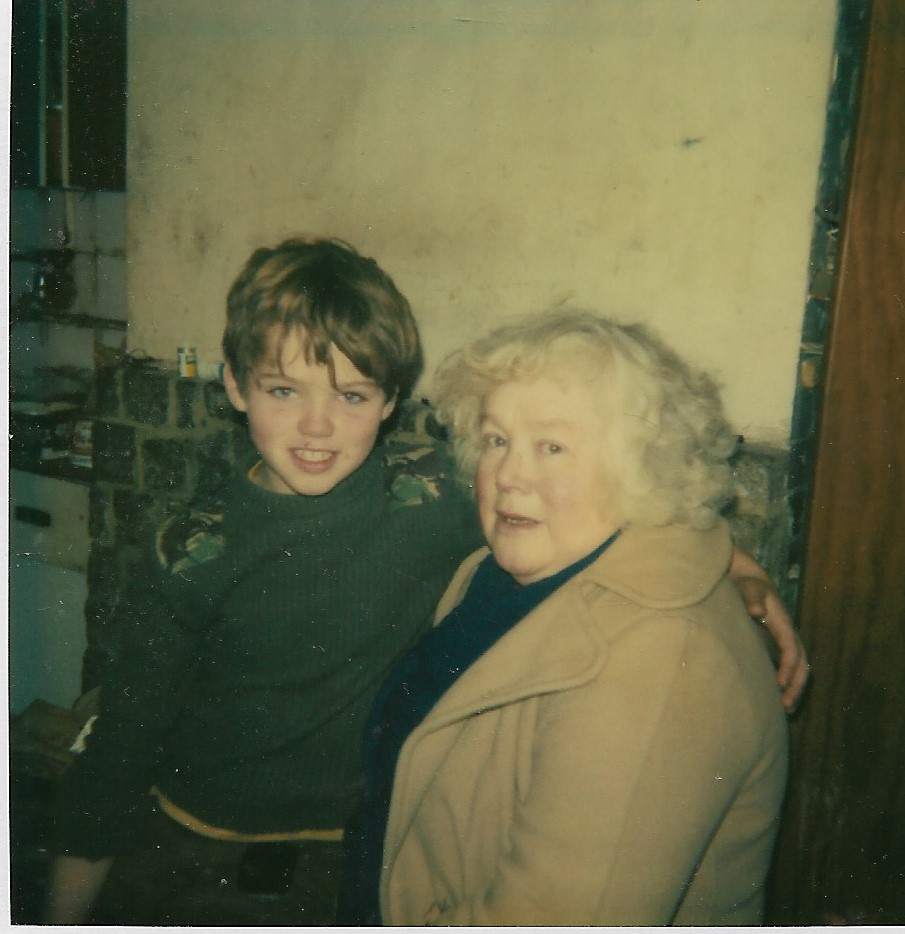
The Racial Dynamics Between American Women Are Flipped in a Disorienting Photo Series
“The best pictures ask questions but don’t necessarily answer them.”
- Aamna Mohdin
Read when you’ve got time to spare.
Alternative reality. Photo by Chris Buck for O Magazine
In three devastatingly simple photos, the yawning gap of inequality between white women and women of color is brought to forefront.
In a photo essay titled “Let’s Talk About Race,” photographer Chris Buck explores stereotypical representations of white and non-white girls and women—and flips it. The photo essay appeared in the May 2017 issue of Oprah Winfrey’s magazine, O.
In one photo, a group of Asian women are laughing in a nail salon, while white women give them pedicures. In another photo, a Latino woman is on the phone, ignoring the white maid pouring her a cup of tea. In the third, a white girl stares up at row upon row of black dolls in a toy shop. 
Photo by Chris Buck for O Magazine
Photo by Chris Buck for O Magazine
Photo by Chris Buck for O Magazine
Buck told Quartz that the photo series was meant to spark a conversation about race and class among women. “It’s fine if it begins online, with social media, and comments sections, but more importantly, they should be carried out in the real world, between friends, co-workers and neighbors,” he said in an email. “All parties need to feel welcome at the table in this discussion, that’s how we move forward, and to me, at their best, that’s what these pictures begin to do.”
In the US, the wage gap between white and black Americans is worse today than it was in 1979, according to a recent report: The wage gap between white women and black women went from 6% in 1979 to 19% in 2015. The report suggests that white women have benefited more from the narrowing of the gender pay gap.
Representation in the media is another sore matter. Of the top 500 films of all-time, only six feature a protagonist who is a woman of color, according to the Representation Project.
Buck’s photos have resonated with many people online, but others reacted, predictably, by taking offense.
That’s fine, Buck says. “In a way the best pictures ask questions but don’t necessarily answer them,” he says. “At best these pictures do that.”
Aamna Mohdin is a reporter for Quartz in London, covering politics and culture. She has previously reported for New Scientist and Scidev.net.
How Do We Exit the Post-Truth Era? Posted April 17th 2021
Why fact-checking alone won’t save us from fake news by Viviane Fairbank
Illustration by Josh Holinaty Updated 17:48, Apr. 8, 2021 | Published 14:34, Apr. 7, 2021
A t nineteen, I moved to New York City for my first magazine internship. I was hired as a fact checker, and at the time, I knew little about the practice; it hadn’t yet gained the popularity it now enjoys, with regular headlines about “Fact-Checking the President in Real Time.” I interpreted fact-checking literally: journalists report facts, sometimes they make errors, and fact checkers clean everything up before the story is published.
This was roughly the process that awaited me at Harper’s: every day for three months, I sat with three other young journalists, meticulously researching sentences that would appear in the upcoming issue. Once we had investigated a fact to satisfaction, we pored over our work with an imperious senior editor, who would interrogate us about nuances and details. I was thrilled by the rigour of the process. When our work was done, the published product would be empirically incontestable. Over the next few years, I worked as a freelance fact checker for various publications, and I eventually became head of research at The Walrus for two years, until 2019—a job in which I took on a similar role to that of the imperious Harper’s editor.
I learned that the steps to fact-checking at The Walrus are exactingly methodological. Fact-checking a story is different from reporting it from scratch: you start with a finished product, working backward to confirm its accuracy. Before an article can be published, the writer provides what’s called a research package—typically an electronic file containing the documentation they used in their reporting, audio and transcripts of conversations with sources, and a draft of the story in which every statement is footnoted with reference to the source that should confirm it. The fact checker takes this material and starts by isolating each fact from the story (typically with coloured pens and highlighters), then verifies them with the relevant sources, which could be scientific studies, experts, or the people directly involved. Whenever possible, the magazine defers to primary sources. The number of daily new COVID-19 cases in Montreal, for example, would be confirmed not by reading news reports but by going directly to the official tally on Quebec’s health ministry website—or by calling the city’s public health authority.
No fact is too minor to be checked: celebrities’ names, basic mathematical statements, or even that winter in the northern hemisphere ends in February. (Actually, depending on whether one uses the astronomical or meteorological definitions of the seasons, winter could end in March.) Every article—and I mean every article, including this one—will require adjustments, whether it’s a small change in date or a major interpretative clarification. Once these corrections are made, the story is ready to be published, and we can be assured that it is unshakeable. At least, that’s the idea.
Of course, few people outside of journalism know about traditional fact-checking. Even within the industry, the practice has become increasingly rare over the past decade of media layoffs and budget cuts. But it’s the approach I’m most familiar with: behind-the-scenes and meticulous, with a touch of pretentiousness. This standard was established by Time and The New Yorker in the early 1900s, when magazines were most concerned with protecting themselves from public criticism and libel lawsuits. (Back then, fact-checking was a woman’s job. According to the Columbia Journalism Review, writers such as gonzo journalist Tom Wolfe saw The New Yorker’s fact-checking department as “a cabal of women and middling editors all collaborating to henpeck and emasculate the prose of the Great Writer.”)
This kind of fact-checking, however, wasn’t built for the immediacy and viral spread of online news. Amid the growing phenomenon of “fake news,” journalists needed something more reactive. The term fake news became widely used during the 2016 US presidential election, when the internet was flooded with inaccurate information. A BuzzFeed News investigation at the time showed that many of these deliberately false headlines came from an unexpected source: content writers in Macedonia were profiting off the advertising revenue from the increased traffic on their sites.
False content online has only multiplied over the years. But the fake news designation has also been used to serve all kinds of purposes—including, increasingly, to disparage real news reporters—so most experts now avoid the term. Instead, researchers usually talk about disinformation, which is purposefully false, and misinformation, which is unwittingly false (either because the publisher made a mistake or because the person sharing the content did). As false content spreads through social media networks, it can oscillate between the two, and it can manifest in various forms, including memes, tweets, or “imposter” content made to imitate real news stories. Last summer, for example, a list of advice—some accurate, some dangerously inaccurate—about COVID-19 prevention made the rounds on social media, falsely attributed to various health officials including BC’s Bonnie Henry.
We now consider disinformation a defining part of the contemporary experience. In 2016, Oxford Languages chose post-truth as its word of the year. The essential characteristic of our age, the accompanying press release stated, was the loss of a distinction between truth and feeling; we were entering an era in which “objective facts are less influential in shaping public opinion than appeals to emotion and personal belief.”
Governments and social media companies have employed various strategies to address the threat of disinformation, including closer scrutiny of political ads, flagging posts as “inaccurate,” or tweaking algorithms to favour reliable outlets. But these efforts have had little effect on the widespread production and sharing of disinformation.
Journalists and media organizations, on their end, have championed fact-checking as the silver bullet—not the prepublication kind done at Harper’s or The New Yorker but the public-facing kind done by PolitiFact or the Washington Post: instead of verifying stories written by an outlet’s own reporters, fact checkers apply the same filter to public claims, such as politicians’ statements or other outlets’ reporting, then publish the results. According to this interpretation, to fact-check someone’s claim is to find all the relevant primary sources (budget documents, election results) and point out, in a published article, any errors in their declaration. Instead of printing only what one knows to be true by virtue of having fact-checked it, journalists explicitly call a person or organization wrong in order to correct the record after the fact. In this sense, the most famous fact checker of our time is reporter Daniel Dale, who rose to fame via the ambitious goal of itemizing the lies told by Donald Trump throughout his presidency (a total of 30,573 false and misleading claims, according to the Washington Post).
In 2014, there were fewer than sixty initiatives around the world focused exclusively on checking others’ claims, according to the Duke Reporters’ Lab; today, there are more than 300. The growing instinct to fact-check isn’t particular to journalists either: it’s part of a growing cultural movement emphasizing revision and debunking. Popular podcasts such as Revisionist History and You’re Wrong About ask us to change our understanding of well-known stories, while tell-all memoirs promise to give us the “real story” about crime, government misconduct, and our favourite celebrities.
Like many journalists, I used to subscribe to what philosopher Neil Levy calls the naive view of fake news: that today’s problems of political polarization and extremism are caused at least in part by the spread of inaccurate information, and that “careful consumption and fact-checking can eliminate the problem.” According to this view, people who share false content do so because they believe it to be true. Everyone means to share real news—they are simply making a mistake when they don’t. If this were true, then by simply correcting the record, we would make all of our post-truth problems go away. Instead, those concerns have grown, and I now wonder: What if it is precisely our manner of clinging to the idea of “facts” that has aggravated the problem?
I’ve now come to believe there’s another, more salient characteristic of our age, beyond the post-truth designation. It is a relic of the past few centuries of rationalism in the Western world: the idea that there can ever be a definitive distinction between fact, on the one hand, and everything else, on the other. We maintain that journalists—our de facto heroes in the fight against mis and disinformation—are capable of distilling truth from the murky waters of interpretation, opinion, and ambiguity in such a way as to present the only true reality of the world. Implicit in the presentation of 2016 as the year after which facts needed to be differentiated from their “alternatives” is the idea that it is actually always possible to do so—that we can know immediately and with absolute certainty, for example, that homemade cloth masks provide reliable protection against COVID-19. In theory, it may seem easy enough to agree on whether a statement is true: simply check whether all available evidence supports the claim or at least does not refute it. But, in practice, we struggle to agree on what makes a fact and how to present it—even as we agree on the importance of being able to do so. We intuitively maintain that opinion and truth exist in different realms, yet removing interpretation entirely from factual reporting is impossible.
Today, I believe the naive view of facts has only fuelled the rise of disinformation and polarization. Fact check has become a political signal such that journalists’ very attempt at neutrality ruins any chance of communicating with those who don’t already believe them. This is not just a media industry problem; it is a pressing issue with consequences for everyone hoping to engage in productive dialogue. Though journalists have clearly invested in fact-checking, trust in news media has continued to erode, and researchers have found that exposure to contentious media discussions about fake news decreases trust further. According to Gallup’s annual governance poll, by 2020, 60 percent of Americans said they trusted mass media “not very much” or “not at all.” This problem cannot be solved only by fact-checking Trump’s press conferences: those who already believe Trump have no reason to accept our fact checks. Without a trusted forum for conversation, we lose the ability to establish a common ground from which to converse and debate; we lose the ability to understand or negotiate with one another at all.

Since 2016, newspapers have begun devoting columns to fact-checking the tweets, campaign promises, and speeches made by politicians and pundits. This public fact-checking has become a way for daily outlets to gain credibility and readership as their ad and subscription revenues disappear. Attach the term fact check to the headline of any news article and it has a similar effect to adding “Based on a true story” to a movie poster: it demands credulity while promising a touch of drama.
Prepublication fact-checking, on the other hand, is time consuming, laborious, and largely invisible. Due to budget and time constraints, newspapers typically do not independently fact-check their own articles. Podcasts, radio shows, and TV networks also rarely fact-check their work. Plummeting ad revenues have pushed many magazines to shutter or dramatically cut their fact-checking departments. These changes are concerning for the state of the industry. When I began working in journalism, I knew what it meant for an article to be fact-checked: the same established standards of sourcing and methodology applied. Today, as the term fact check is adopted by more publications, it is used to describe a growing number of practices that don’t necessarily conform to the same definition.
The most rigorous kind of public fact-checking is conducted by members of Poynter’s International Fact-Checking Network, a partnership of media organizations created in 2015 to unite under methodological standards and a code of principles. This includes PolitiFact, the Pulitzer-winning website that rates claims, such as politicians’ statements, based on their accuracy. In the past few years, even as many news organizations have closed their doors, the IFCN’s membership numbers have skyrocketed.
Members of the IFCN must be public-facing and must have strict principles for transparency, neutrality, and reporting, says Cristina Tardáguila, the network’s associate director. But only about ninety fact-checking organizations, out of the hundreds in existence, have made the cut. And there’s nothing stopping other publications and public figures with lesser standards from publishing their work under the fact check label, riding on the legitimacy of the term without being rigorous about the content. (This is exactly the case for many YouTube videos “fact-checking” coronavirus news.) It’s as though today, as Tardáguila puts it, “anyone can fact-check.” On the surface, that may seem like a good thing: fact-checking should not be elitist. But, without any agreement on standards, some fact checkers’ work could unwittingly add to the digital cocktail of misinformation and polarization.
“There is a pervasive idea in Western culture that humans are essentially rational, deftly sorting fact from fiction, and, ultimately, arriving at timeless truths about the world,” write Cailin O’Connor and James Weatherall, two philosophers of science, in their 2020 book, The Misinformation Age: How False Beliefs Spread. This conception of rationality dictates that, “if we want to achieve better outcomes—truer beliefs, better decisions—we need to focus on improving individual human reasoning.” It is tempting because it tells us that news consumers form inaccurate beliefs by accident and that they can be subtly steered toward more accurate beliefs if we simply present them with reliable information.
Human beings, however, are more complicated. The authors ran several mathematical models to illustrate how true and false information spreads. As soon as they allowed the people in their models to be influenced by their peers and social networks—as everyone in the real world is—the programs would sometimes conclude in whole communities adopting false beliefs even when accurate information was consistently presented to them. In other words, O’Connor and Weatherall write, “individually rational agents can form groups that are not rational at all.” According to these models, which information someone chooses to believe will depend primarily on who is passing it along; trust trumps accuracy every time. Polarization between groups with different beliefs is therefore easy to incite, and once this polarization is established, no amount of fact-checking from outside a particular community will convince the people within it to change their minds.
Media-literacy campaigns often seem like the most promising solution to this problem: instead of simply giving people facts, we should teach them how to assess the quality of information on their own. But, as a group of researchers in Denmark recently concluded, people don’t spread fake news because they think it’s real. Media-literacy programs are grounded in the same kind of naive reasoning as fact-checking is: the idea that the spread of disinformation is caused by ignorance as opposed to by issues of polarization and distrust. In the Danish study, researchers showed 1,600 Twitter users a series of educational videos teaching them to identify untrustworthy content online and examined their Twitter interactions before and after they had watched the videos. The study found that the media-literacy training effectively taught people to identify false content but that this did not dissuade them from sharing it afterward. “Participants performing well on the ‘fake news’ quiz were just as likely to share untrustworthy news stories,” the researchers wrote—leading them to conclude that, generally, people don’t share fake news because they actually believe in the content’s accuracy. Rather, they believe in its value.
Hugo Mercier, another researcher, has argued that the overwhelming majority of people who share disinformation online know that it’s inaccurate. Mercier’s social experiments suggest that, when people share “fake news,” they do so because they think that it’s funny, or that it’s interesting, or that it will demonstrate their allegiance to a particular social group. Someone may share a fake news item about Justin Trudeau “[begging] Nigeria President for one million immigrants,” for example, not because they believe it to be true but because it will publicize their membership in the social group that finds such content amusing, invigorating, or politically important.
Sometimes it feels like even using the term fact check online has become a way to signal membership in the group of people interested in rational and moral superiority.
Overwhelmingly, results from social science are telling us that fake news is not only a problem of false or misleading information but also one of social bonding. With this in mind, O’Connor says, it’s reasonable to fear that aggressive fact-checking may be both ineffective in changing false beliefs and a contributor to the very kind of polarization that perpetuates disinformation. Fact checks that begin with the implicit premise “look how wrong and stupid these people are” lead only to greater mistrust between groups—and they probably won’t convince anyone who did not already believe in the facts presented. Sometimes it feels like even using the term fact check online has become a way to signal membership in the group of people interested in rational and moral superiority.
Not all fact-checking websites reflect this attitude, of course—particularly not those that have met the strict requirements of the IFCN. For those journalists, fact check is a way of saying “we really did the research.” Still, some fact-checking websites are grounded in the same attitude as those peddling conspiracy theories: a request for the audience to be skeptical of the outside world and trust the site’s content above all else. Sure, fact checkers publish true content whereas conspiracy theorists clearly do not. But, for someone who has already decided to distrust mainstream media, fact checks are no more trustworthy than any other news article. In the end, the tone in which something is written may be just as important as its content.
Take what BuzzFeed dubbed the most-shared piece of “fake news” on Facebook during the 2016 US election, which racked up more than 960,000 engagements: “Pope Francis Shocks World, Endorses Donald Trump for President, Releases Statement,” published by ETF News. (This was, to be clear, a blatant lie: Pope Francis does not endorse political candidates.) Compare it with the piece of journalism that had the most engagements during the same time (849,000 shares, reactions, and comments): “Trump’s History of Corruption is Mind-Boggling. So Why Is Clinton Supposedly the Corrupt One?” published by the Washington Post. Without a doubt, the second article was written to meet stricter reporting and accuracy standards. But both headlines are nakedly partisan; anyone sharing either article on social media is making their political allegiance clear.
It’s hard to ignore the irony here: well-intentioned fact checkers may not realize that their work could push some people away instead of unifying them under a common truth. Arguably, however, this is not a fact checker’s problem. Their job is simply to establish an accurate record of information—not to foster trust in media or communication between polarized groups. As Tardáguila emphasizes, no public fact checker claims to be solving the problem of disinformation. “What we work for is to expose people to good facts. It’s one step behind,” she says. In fact, “it drives fact checkers a bit crazy” when people ask them to fix the problem of disinformation. “Nobody goes around accusing investigative reporters, ‘You’ve been writing about corruption for twenty years, but it’s still there, so you suck,’” Tardáguila says. Why should the case be different for fact checkers? They’re reporting on disinformation—not claiming to do anything more.
Indeed, research into fighting disinformation is beginning to steer away from fact-checking altogether. Mason Porter, a mathematician at the University of California, Los Angeles is currently working with his team to study how different content spreads online. They hope, in the long term, to develop a kind of “spam-filter” for false content. Porter’s team uses models to illustrate a news item’s “spreading tree,” which shows how many times and following what pattern a headline is retweeted, liked, and so on. Porter’s hypothesis is that content shared for its accuracy lives a different digital life than content shared for other reasons, such as for political or social signalling. “We want to know how much we can explain without taking into account the actual content,” Porter says. The next question would be what to do once inaccurate content has been identified: slapping a big red warning label on it wouldn’t be much more helpful, but the project would at least solve the problem of trying to identify disinformation in the first place, allowing for more nuanced research and responses. After all, Porter says, “flagging is much quicker than fact-checking.”
To be clear: although I am convinced that our cultural reliance on fact-checking as a catch-all solution is problematic, I don’t interpret these developments as arguments against the importance of accuracy. They simply serve as important reminders that accuracy isn’t everything. One of the problems at the root of these difficulties is the public’s loss of trust in news media, which is not always as unreasonable as some of us like to believe.
In a 2020 article for this magazine, writer and producer Pacinthe Mattar expands on what she calls a “crisis of credibility in Canadian media.” Mattar recalls travelling to Baltimore, in 2015, to put together a CBC radio documentary on the demonstrations against police brutality after the death of twenty-five-year-old Black man Freddie Gray at the hands of the city’s police department. Mattar interviewed two local men about their experiences of being mistreated by police. She later called the police department and union to request a comment, as any responsible journalist would, but received no response, which is also quite typical. When she returned to Toronto, however, her producer initially refused to air the interviews, skeptical that the men had given her their real names, and questioned the veracity of their story. “That’s when I learned that, in Canadian media, there’s an added burden of proof, for both journalists and sources, that accompanies stories about racism,” Mattar writes.
One reason Mattar’s experience is so concerning is because of the different standard to which her work was held compared to that of her colleagues. There was no more reason to believe the men had lied to her than to believe that any other source in any other CBC documentary had lied. The whole journalistic enterprise is based on trust: journalists—including fact checkers—decide to trust the sources they quote. We do as much digging as possible to feel confident and responsible about passing on the information (as Mattar did by calling the police department and union), but we also treat everyone as equally reliable until we have reason to do otherwise. If we do uncover inconsistencies, that’s when there’s reason to follow up, add qualifications, or remove the source altogether. But, until then, if a journalist is comfortable quoting a scientist about their research without conducting the same scientific experiment themselves, they should feel equally comfortable quoting a protester about their personal story.
Mattar’s experience is part of a wider conversation that broke into the mainstream last spring. As public demonstrations about systemic racism took place across North America, journalists of colour also protested the structures that, under the guise of “objectivity,” prevent certain kinds of stories from being told. What is at stake is the idea that journalists can be perfectly objective—that there exists a neutral version of every story. But, just like our emphasis on “facts,” this notion is grounded in the same historical rationalism that has made efforts to fight disinformation so unsuccessful. It relies on the assumption that only certain kinds of people can discern what the real facts are and that only certain kinds of people can be neutral—namely those uninvolved in the stories. Last year, “many Black journalists . . . said very loudly and publicly that coverage of issues of Black people and policing had not been done well,” said Denise Balkissoon, previously a long-time reporter at the Globe and Mail and currently executive editor at Chatelaine, in her recent Atkinson Lecture on trust and disinformation. “Part of the reason that it had not been done well is because of the marginalization of Black journalists in journalism organizations.”
This realization should push journalists to confront the ambiguities of “facts” head-on. When journalists or media organizations choose to distrust certain voices because of their backgrounds or experiences, we become stuck in a problematic conception of objectivity according to which emotion is a stain on the purity of “fact.” If there’s one thing I learned over the course of my time as head of research, it’s that there is no purity to defend here: what we agree upon as fact is always changing. During much of my work at The Walrus, I witnessed first-hand the harm that comes from being too stringent with standards of verification, particularly when those standards are ill-informed. For one, the kinds of sources that are available to “confirm” a fact will change drastically based on context. It may sound reasonable, for example, to require that all demographic data about the country be confirmed by primary government sources, such as the annual reports from Statistics Canada. That’s a relatively easy demand to satisfy for an article about, say, the population or development of big cities such as Calgary or Montreal. But it is an unreasonable standard for reporting on, say, First Nations communities in British Columbia. Many records relating to Indigenous people and history have been lost or destroyed—in large part because of Canadian government policy. According to the Truth and Reconciliation Commission, 200,000 Indian Affair files were destroyed between 1936 and 1944. This complicates the traditional fact-checking requirement for strict sourcing. Those records were destroyed in an attempt to obliterate history, including the details of the federal government’s management of residential schools. If I refuse to report on something because a government record does not exist to confirm it, I am essentially perpetuating the government’s erasure of Indigenous history. Instead, I should be open-minded about the kinds of sources I use, including oral history or community testimony.
Journalism is not only about getting facts right—it’s also about deciding which facts can be confirmed in the first place, which ones we choose to include in our reporting, and whom we consider fit to assess them.
Magazines with prepublication fact-checking practices can accommodate these considerations since they have the luxury of time. But, when I asked Tardáguila about the difficulties of fact-checking stories about marginalized communities, she answered that such complications are typically not the concern of organizations that fact-check public statements. “We try to focus on the very big issues that go viral across platforms,” she says. “We don’t think about different community contexts and records.” The implication is that these methodological questions about proper, ethical sourcing concern people who report stories, not people who fact-check disinformation. I understand this perspective, but I’m skeptical that there is such a distinction: we all have the same goal of publishing the truth. Sticking to topics in which the facts are “easy” or quick to correct—such as established historical narratives and reports published by government sources—means ignoring other stories altogether.
Over time, all of these considerations have strengthened my conviction that journalism is not only about getting facts right—it’s also about deciding which facts can be confirmed in the first place, which ones we choose to include in our reporting, and whom we consider fit to assess them. These considerations cannot be separated, yet we often treat them like they can be. We pretend that the job of an objective journalist is simply to pick the right, ready-made facts from a silver platter. Really, most of the time, we’re cooking from scratch.

I have come to believe that, once we have shed our naive conceptions of objectivity and rationality, journalists should be comfortable taking into account how people feel about our reporting—not because we want everyone to be pleased about the final product (an impossible and problematic goal) but because we want everyone to feel acknowledged, even if coverage is critical. We should, as a rule, be conscious of our relationship to our audience. It matters whether the people who read and participate in our work feel represented, listened to, and involved—whether they feel their experiences are being respected instead of held to unfamiliar or unfair standards. This, I believe, is how we start gaining the trust that O’Connor describes as crucial for reducing polarization and the spread of “alternative facts.”
With this goal in mind, I hope we come to place greater value on prepublication fact-checking—perhaps even prioritize it over the external, reactive kind despite its greater cost in time and resources. Establishing an agreed-upon public record of fact is undeniably helpful, but hammering people with facts, tallying their mistakes, or rejecting the legitimacy of certain communities will likely only worsen polarization and distrust. Prepublication fact-checking, on the other hand, focuses on collaboration with sources and making sure everyone who deserves to participate in a story has an opportunity to do so. Today, when I fact-check a story for a magazine, I call everyone involved not only because I want to confirm the accuracy of their quotes but also because I want to underline that everyone should be treated equally, whether or not the story about them is complimentary. It’s this notion of equal treatment that deserves more elaboration and investigation in the future: different contexts, such as reporting on controversial topics or problematic people, require different methods. This is why, to reestablish trust in media, we should focus on teaching people not only how news should be consumed (through media-literacy programs) but also how news should be made, by making our own methodologies and internal sourcing debates more transparent.
How the journalism industry should heal in the midst of the post-truth era is a difficult question; we need some way of insisting on the existence of truth while acknowledging that its boundaries are blurry—that it is reasonable, even necessary, to push against them sometimes. One of the greatest hurdles to this realization is our stubborn separation of rationality from emotion, a distinction both sides of the political spectrum rely on. People on the left will often say it is the right’s stubborn belief in a preferred alternative reality and its surrender to emotions of fear that lead it to problematic views and conspiracy theories. But people on the right use the exact same rhetoric as those on the left: as Ben Burgis points out in his recent book, Give Them an Argument, the right often criticizes the left for being too “emotional” and failing to assess situations logically, as though feelings themselves cannot be rational responses to situations. Both sides believe they are the ones best suited to make informed decisions based on available facts, and each judges the other for being incapable of doing the same.
The beginning to a possible solution is to realize that, although the world is politically divided in many ways, the main division is not between rational, intelligent people and irrational, emotional ones. Fact, opinion, and emotion often go hand in hand—in politics, journalism, and any kind of social interaction. Lately, I’ve been thinking about how these reflections may apply to the storming of the US Capitol, in January, and to the various efforts by journalists to fact-check Trump’s and his followers’ claims about election fraud. The fact-checking work done on this topic was incredibly valuable: it provided the necessary information for people to understand exactly why and how Trump’s claims that the election had been “stolen” and that he was the real winner were wrong, if that’s what they’re interested in doing. But fact-checks of claims about election fraud were published weeks before the storming of the Capitol took place; if anything, the violent reaction in January was evidence that repeating facts into the digital void over and over again will do little to change a polarized dynamic. Polarization on this topic is so extreme—fuelled by the insistence of politicians and media on both sides that the other side is cruel and hopelessly lost—that information coming from outside one’s community will likely never be trusted. We still don’t know how to engage with people who don’t agree with us on our most fundamental, sensible beliefs, yet this engagement is a crucial part of any productive way forward. In the case of the Capitol, we didn’t fail to fact-check: instead, we failed to establish, beforehand, the dialogue that is required for people to listen to and care about facts at all. Viviane FairbankViviane Fairbank (@vivianefairbank) is a writer based in Montreal and the former head of research at The Walrus.Josh HolinatyJosh Holinaty (@joshholinaty) counts Wired, The New Republic, and the Globe and Mail among his clients.
Sexy 60s & Sordid 70s April 6th 2021
They needed a song, but not just any song. It had to be a throat-clearing, lapel-grabbing, hey-what’s-that-sound number that could open what was shaping up to be one of the most anticipated albums of 1970: the debut of the super group to end all super groups, Crosby, Stills, Nash & Young. “We don’t have that song where you know that a listener will not take that needle off the record,” Graham Nash told Stephen Stills sometime in the fall of 1969, after they’d already labored for countless hours in a recording studio in San Francisco. “We need that song where we’ve got them from the very beginning.”
Nash, a skinny, shaggy former member of the British group The Hollies, and Stills, a soulful, straw-haired survivor of Buffalo Springfield, knew plenty about grabbing listeners by the ear. A year earlier, they’d discovered — at Joni Mitchell’s house in California, maybe, or Cass Elliot’s, no one’s quite sure — that they could create heavenly harmonies with David Crosby, the ex-Byrds singer who wore a droopy mustache, and the amused grin of a man who was in on some cosmic joke. They released an album, Crosby, Stills & Nash, that was filled with instant classics like the soaring “Suite: Judy Blue Eyes.” Then, at the urging of Ahmet Ertegun, the owlish Atlantic Records honcho, the trio turned themselves into a quartet, adding — with some reluctance — Neil Young’s reedy voice, barbed-wire guitar playing, and unpredictability to the mix. After the four of them played in front of 400,000 swaying, stoned people at Woodstock, their own concerts started to take on the feel of what Rolling Stone described as “mini-Woodstocks” that unleashed “effortless good vibes.”
Expectations for their debut album were through the roof. Atlantic reported millions of pre-orders. But the recording process was far from smooth. Crosby was drowning in grief for his girlfriend, Christine Hinton, who’d died in a car crash. Young proved to be only an occasional presence, playing on just half the album’s tracks. Stills worked at a manic pace. Nash was driven to tears, one night, over the widespread dysfunction that threatened to derail the band, which was proving to be highly combustible as a quartet. Oh, and there was too much cocaine.
Then Stills came up with something. He played a jangly, chugging riff for Nash. “He sang me ‘Carry On,’” Nash told me one March afternoon. We spoke over the phone, while Nash sheltered inside his New York City apartment, trying to avoid what was the first wave of the coronavirus pandemic. “And I said, ‘That’s it! We’ve got it. If we cook that the way you just sang it to me, we’ve got that opening track where we know that nobody will take the needle off the record after that.”
Sure enough, “Carry On” was the perfect lead track for Déjà Vu, the album they released in March 1970. Fueled by a blend of plaintive acoustic songs, paeans to domesticity, and occasionally snarling guitars, it went to No. 1 on the Billboard charts and ultimately sold eight million copies. While this success seemed to announce the arrival of the music industry’s Next Big Thing, other once-harmonious superstar acts were simultaneously cracking under the weight of infighting and simmering resentments, and releasing their final albums together: Paul Simon and Art Garfunkel’s Bridge Over Troubled Water, and the Beatles’ Let It Be. Could Crosby, Stills, Nash & Young be to the ‘70s what the Beatles had been to the ‘60s — a musical guidepost for millions of people? For most bands, that would have been an impossible proposition. But a few months after Déjà Vu hit record store shelves, CSNY channeled the horror of the Kent State massacre into a generational anthem, the defiant and urgent single “Ohio,” proving they were more than capable of creating a meaningful dialogue with listeners about the turmoil of their era.
But the band didn’t use this promising start as a stepping stone to a second studio album together; instead, each member started working on solo records. “I had to break away,” Young would later write in his memoir, Waging Heavy Peace. “…The band didn’t break up; it just stopped. It did not regenerate itself. It stopped functioning, like it had a lapse or a heart attack or something. No new songs came forward from anyone.”
Nash was driven to tears, one night, over the widespread dysfunction that threatened to derail the band, which was proving to be highly combustible as a quartet. Oh, and there was too much cocaine.
Three years later, in the spring of 1973, the musicians embarked on the first of what would be multiple attempted reunions, gathering in paradise: the Mala Wharf in Maui, where Young had rented a house. Everyone brought new songs. An easy camaraderie took hold, and with it, a chance to recapture what they had lost so quickly — the ability to create music that was strong enough to overcome the tensions that so easily divided them. They tentatively named their new project Human Highway.
“We all went there and hung out for a week or so, learning the songs and trying to figure out the album,” Nash said. They even posed for a photo that was meant to grace the album cover. It showed four brothers, tanned and bearded, arranged together in front of a blue sky, looking less glum than they did on Déjà Vu. “And then something happened. I’m not even sure what happened now, it was so long ago,” Nash said. “But those plans were shelved, and we went on with the rest of our lives.”
In the months and years that followed, Crosby, Stills, Nash & Young would take several ill-fated stabs at recording Human Highway. Fans would speculate about the lost project for years, piecing together theoretical track lists from songs that were released sporadically. The story of the album was, in a way, the story of the band — prolific but wholly different talents, drawn to each other’s music, repelled by egos and infighting and drugs, locked in a cycle that would leave them splintered and bitter even now, five decades later, as they approach the sunset of their lives. But in a surprising twist, the member most opposed to reuniting — Neil Young — recently gave the public an intriguing glimpse of what Human Highway could have been, and rekindled his ex-bandmates’ interest in seeing the project find some sort of late-stage redemption.
***
Well, there’s one thing to try
Everybody knows
Music gets you high
—Graham Nash, “And So It Goes”
The idyllic Maui brainstorming sessions were, unfortunately, a template for how the band would operate for years to come, with so many embers of magic stamped out, in a huff, by one member or another. Nash, in his memoir Wild Tales, recalled that “some business, some cocaine thing, went down, and suddenly we weren’t talking to each other.” But within a few months, the band was back on good terms, and gathered at Young’s sprawling Broken Arrow Ranch in Redwood City, California, to tackle their new material.
“Human Highway” was the work of Young, in full rustic-troubadour mode, and sounded like another potential CSNY classic when they debuted it during an impromptu live performance later in 1973. Stills had “See the Changes,” an airy song about maturity that was well suited for the band’s lush harmonies. Nash, meanwhile, offered a handful of songs that were several shades darker than what he’d contributed to Déjà Vu: “And So It Goes,” “Wind on the Water,” and “Prison Song,” which railed against criminal justice policies that unfairly punished the poor. Crosby had written “Carry Me,” a tribute to his recently deceased mother, and the meditative “Time After Time.” “We had great songs. It was going to be a great album,” Nash told me. “We had a great title. Human Highway? Are you kidding me? That’s fabulous.”
The idyllic Maui brainstorming sessions were, unfortunately, a template for how the band would operate for years to come, with so many embers of magic stamped out, in a huff, by one member or another.
During the three years that followed Déjà Vu, each of the four musicians had released solo albums — in Young’s case, two of his most critically lauded, After the Gold Rush and Harvest — that proved they could thrive on their own. But there was no denying that a group project still held some allure. Young later wrote with surprising fondness about how he viewed his sometime collaborators: Crosby was the catalyst who pushed everyone further; Nash, the consummate professional who wrote the group’s most recognizable songs; while Stills was Young’s conflicted “brother.”
Yet work on the ranch proved slow. “That studio is like a log cabin,” said drummer Johny Barbata, who’d played with the band on 4 Way Street, a live album released in 1971. “We were in there, and it was a really cool environment, but I don’t remember getting much done.” Barbata had seen how easily things could go south between the band’s four stars. He recalls one concert performance being interrupted, mid-show, by a backstage argument between Nash and Stills over the number of songs Stills had played during an acoustic set. “Boy, Graham was on him,” Barbata said, “and Stephen was bending a beer can in his hand.”
There is a certain amount of romance and mystery associated with the idea of a lost album, a sense that an artist’s career might have turned out differently if they had completed a passion project that eluded their grasp. But in his book Crosby, Stills, Nash and Young: The Wild, Definitive Saga of Rock’s Greatest Supergroup, author David Browne described the rehearsals at Young’s ranch as dysfunctional and uninspired, with Stills sleeping all day while his bandmates were preoccupied by televised footage of the Watergate hearings that would presage the resignation of President Richard Nixon, the villain of “Ohio.”
“I showed up to play . . . and one day we stopped playing. I just don’t know,” Stills explained to journalist Cameron Crowe in 1974. “I don’t want to talk about how incredibly famous we are or how we could set the world on fire if we got back together. I want to play. I want to sing. I want to make good records. And if that doesn’t happen, I’m gone.” The musicians had managed to overcome multiple stumbling blocks during the recording sessions for Déjà Vu, and emerged on the other side with a cultural touchstone and enduring songs: “Teach Your Children,” “Helpless,” “Our House.” That success now seemed like a rare moment of creative symbiosis they couldn’t repeat, even with material that was worth the effort. “But this band has never played by the rules of any band that I know of,” Nash told me. “It’s always been a little strange. It’s always been a little weird.”
Highway had derailed. “It’s the Smile of the seventies,” Browne said, invoking Brian Wilson’s mythical 1960s masterpiece, which sat unfinished for decades. “They were at a point in their career where their singing was still strong. There was a lot of indulgence going on, but their singing was still strong. They hadn’t blown their voices out in ‘73 or ‘74. They were still at the top of their game. It would’ve been a more mature, wiser, beaten up Déjà Vu. And so yeah, you’re kind of reminded all over again, what a missed opportunity.”
But they didn’t stay away from each other for long. In 1974, they were lured back together by a massive stadium tour that promised to generate record-setting sums of money for them, creating a template for rock star excess — fancy hotel rooms, lavish amounts of food and drugs, too many groupies to count — along the way. The band rehearsed on Young’s ranch, where they recorded several demos, including a Young song, “Through My Sails,” that he would release in 1975 on Zuma, an album he recorded with the band Crazy Horse. Only two minutes and forty seconds long, the song is light and breezy — just an acoustic guitar and a soft beat, with Crosby, Stills, and Nash’s sweet harmonies effortlessly lifting Young’s verses into the sublime, a reminder of how good they could sound once they cut through the bullshit.
In 1974, they were lured back together by a massive stadium tour that promised to generate record-setting sums of money for them, creating a template for rock star excess — fancy hotel rooms, lavish amounts of food and drugs, too many groupies to count — along the way.
“We are such different people and we write so differently that it gives us what I like to call a much wider palette out of which to paint the album, much more than most people have,” Crosby wrote, years later, in his autobiography Long Time Gone. (He declined to be interviewed for this story; Stills couldn’t be reached.) Barbata observed a degree of competition, too. “Stephen and Neil were great writing partners, like Lennon and McCartney, kind of trying to write better songs than the other guy,” he told me. “Crosby and Nash were like buddies together.”
The ’74 tour afforded them a chance to air out some potential Human Highway material— Crosby’s “Time After Time” and “Carry Me,” Young’s rumbling rocker “Pushed It Over The End,” Stills’ Santana-esque “My Angel”— and after the tour ended, the band gathered at Nash’s house, in San Francisco, to try to resurrect the album in his basement studio. Instead, they bickered like petulant school kids. Stills and Nash argued about a vocal part, and then Stills used a razor to slice up one of Nash’s demo tapes. Nash responded by kicking Stills out of his house. “The pressure for that group [CSNY] to happen again is a destructive force on us all,” Stills would complain years later.
Over-the-top feuds are a staple of the rock band archetype, but most successful groups find a way to tolerate each other long enough to get down to business. “With these guys,” Browne said, “things would just blow up and end.” The quartet attempted to continue on at the Record Plant, where they worked on a Crosby song, “Homeward Through the Haze,” which built to a chorus about “the blind leading the blind.” This effort soon ended with Young abandoning the sessions, without offering his bandmates an explanation. Crosby later summed things up with deadpan understatement: “We always had a fair amount of conflict between us.” But they weren’t done with each other yet.
***
We’re running in rhyme
In a slow easy climb
Up the road that’ll we run together
—David Crosby, “Time After Time”
Crosby and Nash discovered they could have a smoother time performing as a duo, playing theaters instead of stadiums, and recorded a pair of melodic albums in the mid-70s — Wind on the Water and Whistling Down the Wire — that became a home for some of the songs they’d meant for Human Highway. CSNY was firmly in their rearview mirror.
Then Stills called drummer Joe Vitale in 1976, inviting him to Criteria Studios in Florida. “He said, “Hey, I have two surprises. We’re gonna start a Crosby, Stills, and Nash record,’” Vitale told me. “And I said, ‘That’s really amazing. What’s the second surprise?’ And he said, ‘Neil’s coming.’ And I said, ‘Oh my God.’”
Stills and Young had planned only to record an album’s worth of songs together. But when the bulk of the project was in the can, Young paid a visit to an old friend on the West Coast. Nash remembers being contacted by Young, “and he said that he was working in Miami with Stephen, and wouldn’t David and I be interested in going down and singing on some of the songs? And he sent us some of the songs, and they were great songs — ‘Midnight on the Bay,’ and stuff like that. And so we went and spent about two weeks putting vocals onto all of the tracks.”
We count on member support to bring you thought-provoking essays. Please consider a one-time, or — better yet — a recurring annual or monthly contribution. Every dollar counts!$50 per year$5 per month$100 One-time
Crosby and Nash added their rich harmonies to one song after another — “Ocean Girl,” “Midnight on the Bay,” “Long May You Run,” even “Human Highway”— and the record unmistakably became a CSNY reunion. Vitale wistfully recalled a memory from those sessions: watching Crosby, Stills, Nash, and Young sit with their guitars in a circle, separated by just a few feet, as they recorded live, the years and any past grudges melting away. “It was the blend of their voices,” he said. “It was just unbelievable how good they were.”
Outside the walls of Criteria Studios, Americans’ taste in music was undergoing a shift. Disco songs like “Boogie Fever” and “Love Machine” were starting to occupy a noticeable amount of pop chart real estate. But there was still an appetite for CSNY and other artists who mined similar veins of pop and folk-rock — Linda Ronstadt , James Taylor, the Eagles, and a legion of imitators.
The promise of more success, and a batch of strong songs, should have been enough to persuade the band to get the project to the finish line. “It’s usually the songs that bring us together. Because if Stephen has four and Neil has four and David has four and I have four songs, we’ve all got a project to work on, and we’ll get it done,” Nash said. “So it usually comes down to, the songs drive our relationship in many ways.”
Yet the cooperative atmosphere once again soured. As Nash tells it, he and Crosby were due back in Los Angeles, to finish Whistling Down the Wire. When they explained that they had to leave, the reunion came to a screeching halt. Stills and Young were committed to a looming tour, and needed the album of songs they were recording in Florida to be ready; they couldn’t wait for the other two to return. The news apparently rankled Young. The musicians had been staying in Miami, at the appropriately-named Mutiny Hotel. Nash, who described the hotel as “seventeen floors of cocaine dealers,” learned from an employee that Young had checked out abruptly and headed back to California.
In what could only be read as a spiteful move, Young stripped Nash’s and Crosby’s vocals off the songs they’d recorded, and released the tracks on an album called The Stills-Young Band. “I never should have erased that,” Young would later tell an interviewer. “But I thought I was doing the right thing at the right time.”
Nash still puzzles over it. “And to this day, I still have no idea whether they actually wiped me and David’s tracks, or whether they were smart enough to make a 16-track copy of that and then do overdubs to the copy,” he said. “So I still don’t know where any of those vocal tracks went to. I do have rough mixes that were made on the last couple of days that we were there, and they sound fabulous to me.” When we spoke in the spring, Nash had no way of knowing that the mystery surrounding those missing vocals would be resolved months later — 44 years after things had ended so badly in Florida.
The quartet made no other attempt to complete the studio album they first started toying with in 1973. “We tried to put it together with Neil, but it wasn’t happening. Let’s be diplomatic and say that it was a conflict between me and Stephen or me and Nash and Stephen,” Crosby would later explain. “For whatever reason, it didn’t work. The rapport between us did not transcend our personal problems. … We have traditionally gotten too drunk or too loaded or too high or too screwed up to keep our shit together.”
But CSNY’s on-again, off-again relationship soon became the least of Crosby’s problems. While getting high had been as much a staple of his life during the ‘60s and ‘70s as writing and singing songs, the 1980s found him consumed by even more dangerous addictions: he freebased cocaine, then began using heroin. To Nash and Stills, Crosby became a friend they couldn’t reach, and a partner upon whom they couldn’t rely. “I would take my life’s steering wheel and turn it to the right and my life would veer sharply to the left,” Crosby would later recall. He was arrested on multiple occasions, and ultimately did time in a Texas state prison. Young made a public promise that was intended to lure his old bandmate out of the darkness: If Crosby could get clean, Young would commit to a CSNY reunion.
To Young’s credit, he made good on his vow. In 1986, CSNY played together at a charity concert, and then began working on a studio album, American Dream, which was released in 1988. It sold well, but found the band trapped in glossy ‘80s production, with little of the yearning or magic that flowed so freely from Déjà Vu. Eleven years later, CSNY recorded another surprise reunion album, Looking Forward. On songs like Young’s tender “Slowpoke,” Crosby, Stills, and Nash added harmonies that came close to approximating the sweet sound of their youth. But they were not the same band anymore, not really. “They were a little bit more careful than they were in the ‘70s,” said Vitale, who played on both reunion albums. “They were wonderfully loose about stuff back then — ‘Let’s try this, let’s try that!’ In the ‘80s, it was more like, ‘Well, I never do that.’ By 1999, it was, ‘There’s no way I’m going to do it like that.’ But that doesn’t mean there wasn’t plenty of magic on American Dream or Looking Forward.”
In 2000, CSNY launched the first of several lucrative reunion tours that saw them play their old hits to arenas full of fans. Drummer Jim Keltner was part of the touring band that year. “When I played with all four of them together, you could plainly see that they deferred to Neil a lot. Neil is a very strong personality. And musically, he’s kind of the opposite of the CSN thing,” Keltner told me. “Even though he and Stills were very close, they were completely different kinds of people. But when the four of them did come together, they did make extraordinary music.”
The new century could’ve marked the beginning of a rosier chapter in CSNY’s story. Against long odds, they’d managed to survive the meat grinder of rock stardom. “We have been through a lot together: the Summer of Love, hell, distrust, and hurt,” Young wrote in his memoir. “When we play now, our audience still feels it, like a candle that is flickering, like a sun that is setting. A fog is rolling in.” But an even uglier clash was lurking down the road, one that would drive them away from each other, perhaps for good.
***
Nobody laughing
All the good times
Getting harder to come by without weeping
— Stephen Stills, “See the Changes”
Plenty of aging rockers have seized on a reliable formula in recent years: If they can’t put the old band back together to make new music, they can raid their vaults for forgotten demos and alternate takes, and peddle beefed up anniversary editions of iconic albums. When the 50th anniversary of Déjà Vu arrived last March, though, CSNY didn’t bother to acknowledge the historic moment with any kind of celebratory rerelease — a reflection, perhaps, of the miserable state of relations between the band.
This time, Crosby was the instigator. During a 2014 interview, he declared that Young had made a mistake by divorcing his wife, Pegi, and beginning a relationship with actress Daryl Hannah. “I happen to know that he’s hanging out with somebody that’s a purely poisonous predator now. And that’s karma. He’s gonna get hurt,” Crosby said.
The blowback was immediate. “He tore the heart out of CSN and CSNY in the space of a few months,” Nash told one interviewer, adding that he’d written a song for Crosby called “Encore,” that wondered if his old friend was really a decent person offstage, or a “fucking asshole.” Young, who once claimed that he couldn’t have asked for a better friend than Crosby, swore off ever reforming CSNY. Crosby apologized publicly, and occasionally pined on social media for the band to reunite, particularly amid the civil and political unrest that shook the U.S. throughout 2020. His pleas were ignored. “I still have friends, but all the main guys that I made music with won’t even talk to me,” he admitted in David Crosby: Remember My Name, a Cameron Crowe- produced documentary. “One of them hating my guts could be an accident. But [Roger] McGuinn, [Graham] Nash, Neil [Young], and Stephen [Stills] all really dislike me, strongly.”
Crosby apologized publicly, and occasionally pined on social media for the band to reunite, particularly amid the civil and political unrest that shook the U.S. throughout 2020. His pleas were ignored.
I asked Nash in the spring if he still speaks to his ex-bandmates; the pandemic, after all, has provided a relentlessly grim reminder that none of us has unlimited tomorrow to get our relationships in order. “I’ve been in touch with Stephen and Neil,” he told me, “but not David.” Keltner is struck by the sadness of this split, which, unlike prior ones, seems permanent. “I really like David a lot. I don’t like that he and Neil are not talking,” he said. “It’s not surprising. David speaks his mind. And he should’ve chosen his words more carefully. I don’t blame Neil. That’s too bad. Because I hate to see that in any situation.”
Nash insisted he doesn’t spend too much time looking back. “I just deal with now. What am I doing now,” he told me. “Because all the stuff that we’ve done in our past, some of it, you know, 50, almost 55 years old stuff. It’s past. It’s gone. We did really well. We were a fabulous rock ‘n’ roll band. That’s why I spent several years of my life putting that CSNY box set together, from our 1974 stadium tour. I wanted people to know we were four strong writers, four strong musicians. And we were on top of the world.”
But the past has a funny way of resurfacing. Remember those Crosby and Nash vocals that Young infamously erased from their 1976 sessions in Florida? Vitale, the drummer, told me no such thing happened. “They did not erase those vocals,” he said. “Especially Neil — Neil is such an archivist.” Vitale was proven right a few months after we talked. On November 20, Young released a massive collection of archived material — 139 tracks that he’d recorded between 1972 and 1976. Included in this trove, with little fanfare, were full CSNY recordings of “Midnight on the Bay,” “Ocean Girl,” “Long May You Run,” and two versions of “Human Highway,” one from 1973, another from 1976.
The sound of “Highway” is crisp and arresting, four voices rising and falling together like a ship on the open sea, buoyed by a plucky acoustic guitar and a simple tale of a person trying to make sense of a puzzling world. “I come down from the misty mountain. I got lost on the Human Highway,” they sang. “Take my head and change my mind. How could people get so unkind?”
These newly unearthed tracks caught the attention of Young’s ex-bandmates. Crosby, on Twitter, endorsed the idea of reconstructing the lost album. Stills — who maintains the quietest media presence of CSNY — got in on the act, too, sharing black and white photos on Twitter and Instagram of the band at Young’s ranch in 1973. One photo was hashtagged: #HumanHighway #ItsNeverTooLate.
Whether this chatter will lead to something concrete remains to be seen. For now, the only CSNY project on the horizon is a belated deluxe reissue of Déjà Vu, hastily assembled after the album’s anniversary passed.
That the group is still divided, its members still prone to fighting and hurting one another, is a sad but perhaps fitting coda. The trappings of rock stardom — the money, the excesses, the ability to create something that endures — weren’t enough to hold them together even at their creative peak in the 1970s. Human Highway was the clearest distillation of what made the band so fascinating, and so frustrating.
“We had a golden time, and then we lost our way,” Young once wrote about the band. “Be great or be gone.”
***
David Gambacorta is a writer at large at the Philadelphia Inquirer. He’s also written for Esquire, The Ringer and Politico Magazine.
Editor: Aaron Gilbreath
25 Legendary Literary Feuds, Ranked Posted March 27th 2021
Ding ding ding: Let the fight begin!
- Emily Temple
Read when you’ve got time to spare.

They don’t make literary feuds the way they used to. Maybe authors are kinder than they used to be—or maybe they just have Twitter. Either way, I love to hear about author feuds of yore, and so I’ve collected (and ranked) twenty-five of the best below.
But first, some rules. In order to qualify as a literary feud, both parties must be literary authors in their own right (no editor-author squabbles), and the argument must be two-sided—that is, there should be at least one exchange, two shots fired. No simple unremarked-upon bad review or unacknowledged shit-talking will suffice. For instance, Bret Easton Ellis’s bizarrely vicious attacks on David Foster Wallace in the years after his death don’t rate, because Ellis is just trolling. As far as I can tell, Mark Twain simply bullied Bret Harte, who kept his mouth shut about the whole thing. The Rick Moody/Dale Peck incident—already toeing the line as Peck, while a novelist, is arguably better known as a critic—devolved into a publicity stunt. I wouldn’t count Hans Christian Andersen overstaying his welcome at Charles Dickens’s house a feud, no matter how bad his manners. Same goes for Rimbaud and Verlaine’s gun-toting lovers’ quarrel. And alas, I must also exclude Ayelet Waldman’s 2011 Twitter-salvo to Katie Roiphe: “I am so BORED with Katie Roiphe’s ‘I like the sexist drunk writers’ bullshit. She happily trashes my husband, but guess what bitch? He not only writes rings and rings and rings around you, but the same rings around your drunken literary love objects.” (Oh look, there, I included it. Hey, no wonder Roiphe doesn’t like Twitter.) On the other hand, some writers have had so many good feuds (ahem, Salman Rushdie) that I’ve had to pick and choose from among them (John le Carré over Mo Yan; Updike over Francine Prose). Which only reminds me that I’m carrying on in this introduction, so now, without further ado, please find below twenty-five fascinating author feuds from the last 200 years.

25: Ernest Hemingway vs. William Faulkner
This one is admittedly a bit of a stretch, feud-wise, as there was no confrontation to speak of (and one of the comments was given in private), but given the players, I consider it of interest. In a 1947 visit to a University of Mississippi creative writing class, Faulkner was asked to rank himself alongside other contemporary writers. His response, as transcribed at the time (but only published three years later, in The Western Review):
– Thomas Wolfe: he had much courage and wrote as if he didn’t have long to live
– William Faulkner
-Dos Passos
– Ernest Hemingway: he has no courage, has never crawled out on a limb. He has never been known to use a word that might cause the reader to check with a dictionary to see if it is properly used
– John Steinbeck: at one time I had great hopes for him—now I don’t know
According to A.E. Hotchner in his Papa Hemingway: A Personal Memoir, when Hemingway was told about Faulkner’s statement, he responded:
Poor Faulkner. Does he really think big emotions come from big words? He thinks I don’t know the ten-dollar words. I know them all right. But there are older and simpler and better words, and those are the ones I use. Did you read his last book? It’s all sauce-writing now, but he was good once. Before the sauce, or when he knew how to handle it.

24: John Keats vs. Lord Byron
To be fair, this is more of a perennial rivalry than a true feud. Bryon was a snob and mega-privileged; Keats was middle-class and jealous of Byron’s success. Neither liked the other’s work, and both were weirdly bitter about it. John Keats, who was quite short, reportedly exclaimed to a friend after reading a good review of Byron’s work: “You see what it is to be six foot tall and a lord!” Lord Byron, after reading a good review of Keats’s, wrote to a friend:
Of the praises of that little dirty blackguard KEATES in the Edinburgh—I shall observe as Johnson did when Sheridan the actor got a pension. “What has he got a pension? then it is time that I should give up mine.”—Nobody could be prouder of the praises of the Edinburgh than I was—or more alive to their censure—as I showed in EB and SR—at present all the men they have ever praised are degraded by that insane article.—Why don’t they review & praise “Solomon’s Guide to Health” it is better sense—and as much poetry as Johnny Keates.
Keats died of tuberculosis at only 25, and some of his friends, including Percy Bysshe Shelley, claimed that his death had been hastened by the stress caused by negative reviews of his work in The Quarterly Review. Byron found that hilarious. He even made fun of him, posthumously, in his famous epic poem Don Juan:
John Keats, who was killed off by one critique,
Just as he really promised something great,
If not intelligible, —without Greek
Contrived to talk about the Gods of late,
Much as they might have been supposed to speak.
Poor fellow! His was an untoward fate: —
‘Tis strange the mind, that very fiery particle,
Should let itself be snuffed out by an Article.

23: Jennifer Weiner vs. Jennifer Egan
In the most mutual of Weiner’s myriad literary beefs, she took issue with Jennifer Egan after she won the Pulitzer and told the Washington Post:
My focus is less on the need for women to trumpet their own achievements than to shoot high and achieve a lot. What I want to see is young, ambitious writers. And there are tons of them. Look at The Tiger’s Wife. There was that scandal with the Harvard student who was found to have plagiarized. But she had plagiarized very derivative, banal stuff. This is your big first move? These are your models? I’m not saying you should say you’ve never done anything good, but I don’t go around saying I’ve written the book of the century. My advice for young female writers would be to shoot high and not cower.
Soon after, Weiner complained on Twitter: “Agh. Did Egan really have to pause, mid-victory lap, to call Kinsella, McCafferty “derivative and banal?”” and soon after tweeted: “And there goes my chance to be happy that a lady won the big prize. Thanks, Jenny Egan. You’re a model of graciousness.”
Weiner started a major discussion, but both she and Egan later apologized.

22: John Updike vs. Salman Rushdie
Much smaller than Rushdie’s disagreement with John le Carré, but still a good mini-feud. In 2006, John Updike reviewed Rushdie’s Shalimar the Clown in the New Yorker. His opening line was this: “Why, oh why, did Salman Rushdie, in his new novel, Shalimar the Clown, call one of his major characters Maximilian Ophuls?” He goes on: “Readers of this review will be spared, as the reviewer was not, the maddening exercise of trying to overlay Rushdie’s Ophuls with the historical one. The two have no connection save the name and a peripatetic life.”
“A name is just a name,” Rushdie told the Guardian when asked about the review. “‘Why, oh why. . . ?’ Well, why not? Somewhere in Las Vegas there’s probably a male prostitute called ‘John Updike’. The thing that disappointed me most about Updike is that he did not say in that review that he had just completed a novel about terrorism. He had to sweep me out of the way in order to make room for himself. I don’t subscribe to the very predominantly English admiration of Updike. If you take away Rabbit is Rich and Rabbit at Rest, and some of the short stories, there’s a lot of . . . slightly . . . garbage. Think of The Coup! The new one is beyond awful. He should stay in his parochial neighbourhood and write about wife-swapping, because it’s what he can do. . . I’m allowed to say it, because he was really rude about me.”

21: Ernest Hemingway vs. F. Scott Fitzgerald
Literary history’s most famous frenemies met in 1925, and soon became friends—Fitzgerald even sang Hemingway’s praises to the influential editor Maxwell Perkins, helping to jump-start his career. But Hemingway wasn’t particularly grateful, and soon began badmouthing Fitzgerald. In a (fairly negative) review of Scott Donaldson’s book about the pair, Michiko Kakutani writes,
Hemingway, who ”could ill abide being beholden to anyone,” clearly resented Fitzgerald’s help, and in this book, as in many others, he receives the bulk of the blame for the friendship’s demise. He emerges from these pages as an ingrate and bully, a megalomaniac who projected his own insecurities onto those closest to him and who believed he needed to reject friends and lovers before they could reject him. Fitzgerald, in contrast, comes across as a well-meaning but annoying fellow who hero-worshiped the wrong people, and who consistently sabotaged himself by getting drunk and behaving like a fool.
. . .
Hemingway was condescending about Fitzgerald’s work and mocked his former friend as a coward, a lap dog to the rich and a henpecked husband in thrall to a manipulative woman. He likened Fitzgerald to a dying butterfly, a glass-jawed boxer and an unguided missile crashing to earth on a ”very steep trajectory.”
Ten years after Fitzgerald’s death, Hemingway wrote:
I never had any respect for him ever, except for his lovely, golden, wasted talent. If he would have had fewer pompous musings and a little sounder education it would have been better maybe. But anytime you got him all straightened out and taking his work seriously Zelda would get jealous and knock him out of it. Also alcohol, that we use was the Giant Killer, and that I could not have lived without many times; or at least would have cared to live without; was a straight poison to Scott instead of a food.

20: A.S. Byatt vs. Margaret Drabble
Byatt and Drabble are unique on this list: they are not only enemies, but sisters—and their enmity goes back further than their writing careers. They were highly competitive as children, pitted against one another by their mother, who reportedly favored Drabble. According to the Telegraph, their relationship was further damaged by Drabble’s decision to become a novelist. “Sue always wanted to write,” Drabble said. “I didn’t want to. I just happened to write a novel when I was pregnant and had nothing to do.” And yet her first novel came out before her elder sister’s. But what really sealed it was Byatt’s The Game. “She may not have known what she had done until she had written it,” Drabble told the Telegraph. “Writers are like that. But it’s a mean-spirited book about sibling rivalry and she sent it to me with a note signed ‘With love,’ saying ‘I think I owe you an apology’. . . It’s irresoluble now. It’s sad, but beyond repair, and I don’t think about it much any more.”

19: H.G. Wells vs. Henry James
Like others on this list, Wells and James started off as friends and mutual admirers. But they disagreed fundamentally on what literature was for, and in 1915, Wells published Boon, a satirical novel that mocked James’s writing style. When James read it, he wrote to Wells somewhat wounded:
I have more or less mastered your appreciation of H. J., which I have found very curious and interesting after a fashion—though it has naturally not filled me with a fond elation. It is difficult of course for a writer to put himself fully in the place of another writer who finds him extraordinarily futile and void, and who is moved to publish that to the world—and I think the case isn’t easier when he happens to have enjoyed the other writer from far back—
James summarizes the appeal of his own works this way: “They rest upon my measure of fullness—fullness of life and the projection of it, which seems to you such an emptiness of both.”
Wells wrote back:
To you literature like painting is an end, to me literature like architecture is a means, it has a use. Your view was, I felt, altogether too prominent in the world of criticism and I assailed it in lines of harsh antagonism. And writing that stuff about you was the first escape I had from the obsession of this war. Boon is just a waste-paper basket. Some of it was written before I left my home at Sandgate (1911), and it was while I was turning over some old papers that I came upon it, found it expressive, and went on with it last December. I had rather be called a journalist than an artist, that is the essence of it, and there was no other antagonist possible than yourself. But since it was printed I have regretted a hundred times that I did not express our profound and incurable contrast with a better grace.
James’s reply was his last to Wells:
My dear Wells.
I am bound to tell you that I don’t think your letter makes out any sort of case for the bad manners of Boon, as far as your indulgence in them at the expense of your poor old H. J. is concerned — I say “your” simply because he has been yours, in the most liberal, continual, sacrificial, the most admiring and abounding critical way, ever since he began to know your writings: as to which you have had copious testimony. Your comparison of the book to a waste-basket strikes me as the reverse of felicitous, for what one throws into that receptacle is exactly what one doesn’t commit to publicity and make the affirmation of one’s estimate of one’s contemporaries by. I should liken it much rather to the preservative portfolio or drawer in which what is withheld from the basket is savingly laid away. Nor do I feel it anywhere evident that my “view of life and literature,” or what you impute to me as such, is carrying everything before it and becoming a public menace—so unaware do I seem, on the contrary, that my products constitute an example in any measurable degree followed or a cause in any degree successfully pleaded: I can’t but think that if this were the case I should find it somewhat attested to in their circulation—which, alas, I have reached a very advanced age in the entirely defeated hope of.
. . .
I absolutely dissent from the claim that there are any differences whatever in the amenability to art of forms of literature aesthetically determined, and hold your distinction between a form that is (like) painting and a form that is (like) architecture for wholly null and void. There is no sense in which architecture is aesthetically “for use” that doesn’t leave any other art whatever exactly as much so; and so far from that of literature being irrelevant to the literary report upon life, and to its being made as interesting as possible, I regard it as relevant in a degree that leaves everything else behind. It is art that makes life, makes interest, makes importance, for our consideration and application of these things, and I know of no substitute whatever for the force and beauty of its process. If I were Boon I should say that any pretence of such a substitute is helpless and hopeless humbug; but I wouldn’t be Boon for the world, and am only yours faithfully,
Henry James

18: Derek Walcott vs. V.S. Naipaul
“It’s going to be nasty,” Derek Walcott told the audience at the Calabash International Literary Festival in 2008. He then proceeded to read a poem entitled “The Mongoose,” which begins:
I have been bitten. I must avoid infection
Or else I’ll be as dead as Naipaul’s fiction.
Read his last novels. You’ll see just what I mean:
A lethargy approaching the obscene.
Snap. But what had Naipaul done to deserve such treatment? According to the Guardian:
For years, the writers [had] discreetly sniped at one another in print and in interviews. Naipaul’s inclusion of an essay on Walcott in his 2007 memoir A Writer’s People—and its attendant publication in the Guardian—delivered a backhanded compliment by effusively praising Walcott’s earliest work [he calls Walcott “a man whose talent has been all but strangled by his colonial setting”], and seems to have provoked the poet into making such a public attack.

17: Richard Ford vs. Alice Hoffman
Never one to take a bad review well, that Richard Ford. Famously, after Alice Hoffman published a critical but not savage review of The Sportswriter in the New York Times, Richard Ford took a gun and shot a hole through one of Hoffman’s novels before mailing it to her in pieces. “Well my wife shot it first,” Ford told the Guardian, “rather proudly.” “She took the book out into the back yard, and shot it. But people make such a big deal out of it—shooting a book—it’s not like I shot her.” Still, you can tell he was thinking about it.

16: Ernest Hemingway vs. Wallace Stevens
I’ll just let Papa tell it himself (in a 1936 letter to Sara Murphy):
Hangover came about through visit of my lawyer Mr. (Maurice) Speiser whom I cannot see without the aid and abettment of alcohol plus seeing off in southern farewell the Judge (Arthur Powell) of the Wallace Stevens evening (when Hemingway and the poet Wallace Stevens had a fistfight). Remember that Judge and Mr. Stevens? Nice Mr. Stevens. This year he came again sort of pleasant like the cholera and first I knew of it my nice sister Ura (Ursula) was coming into the house crying because she had been at a cocktail party at which Mr. Stevens had made her cry by telling her forcefully what a sap I was, no man, etc. So I said, this was a week ago, ”All right, that’s the third time we’ve had enough of Mr. Stevens.” So headed out into the rainy past twilight and met Mr. Stevens who was just issuing from the door haveing just said, I learned later, ”By God I wish I had that Hemingway here now I’d knock him out with a single punch.” So who should show up but poor old Papa and Mr. Stevens swung that same fabled punch but fertunatly missed and I knocked all of him down several times and gave him a good beating. Only trouble was that first three times put him down I still had my glasses on. Then took them off at the insistence of the judge who wanted to see a good clean fight without glasses in it and after I took them off Mr. Stevens hit me flush on the jaw with his Sunday punch bam like that. And this is very funny. Broke his hand in two places. Didn’t harm my jaw at all and so put him down again and then fixed him good so he was in his room for five days with a nurse and Dr. working on him. But you mustn’t tell this to anybody. Not even Ada (MacLeish, wife of the poet Archibald MacLeish). Because he is very worried about his respectable insurance standing and I have promised not to tell anybody and the official story is that Mr. Stevens fell down a stairs. I agreed to that and said it was o.k. with me if he fell down the lighthouse stairs. So please promise not to tell anybody. But Pauline who hates me to fight was delighted. Ura had never seen a fight before and couldn’t sleep for fear Mr. Stevens was going to die. Anyway last night Mr. Stevens comes over to make up and we are made up. But on mature reflection I don’t know anybody needed to be hit worse than Mr. S. Was very pleased last night to see how large Mr. Stevens was and am sure that if I had had a good look at him before it all started would not have felt up to hitting him. But can assure you that there is no one like Mr. Stevens to go down in a spectacular fashion especially into a large puddle of water in the street in front of your old waddel street home where all took place. So I shouldn’t write you this but news being scarce your way and I know you really won’t tell anybody will you really absolutely seriously. Because otherwise I am a bastard to write it. He apologised to Ura very handsomely and has gone up to Pirates Cove to rest his face for another week before going north. I think he is really one of those mirror fighters who swells his muscles and practices lethal punches in the bathroom while he hates his betters. But maybe I am wrong. Anyway I think Gertrude Stein ought to give all these people who pick fights with poor old papa at least their money back. I am getting damned tired of it but not nearly as tired of it as Mr. Stevens got. It was awfully funny to have a man just declaring how he was going to annihilate you and show up just at that moment. Then have him land his awful punch on your jaw and nothing happen except his hand break. You can tell Patrick. It might amuse him. But don’t tell anybody else. Tell Patrick for statistics sake Mr. Stevens is 6 feet 2 weighs 225 lbs. and that when he hits the ground it is highly spectaculous. I told the Judge, the day after, to tell Mr. S. I thought he was a damned fine poet but to tell him he couldn’t fight. The Judge said, ”Oh, but your wrong there. He is a very good fighter. Why, I saw him hit a man once and knock him the length of this room.” And I said, ”Yes, Judge. But you didn’t catch the man’s name, did you?” I think it was a waiter. Nice dear good Mr. Stevens. I hope he doesn’t brood about this and take up archery or machine gunnery. But you promise you won’t tell anybody.
Of course, Hemingway was 20 years younger than Stevens at this time. But more importantly: what a gossip.

15: Marcel Proust vs. Jean Lorrain
Probably one of the few times that a book review led to an actual, pistols-drawn duel—but not actually because of the book in question. In an 1896 review of Proust’s Pleasures and Days, Lorrain suggested that he was gay, and described him as “one of those pretty little society boys who’ve managed to get themselves pregnant with literature.” After a second snarky essay a few months later, in which Lorrain (writing under a pseudonym) insinuated that Proust was having an affair with Lucien Daudet (the son of M. Alphonse Daudet), Proust challenged Lorrain to a duel. (Both Proust and Lorrain, by the way, were definitely gay.) Both shots went wide—probably on purpose—and everyone’s honor was restored.

14: Albert Camus vs. Jean-Paul Sartre
Trust these two to have a falling-out over the concept of the freedom of man. Here’s a fun snapshot of Camus’ defensive take on Sartre’s criticism of his work:
Sartre’s article is a model of “taking apart.” Of course, every creation has an instinctive element which [he] does not envision, and intelligence does not play such an important role. But in criticism this is the rule of the game, which is fine because on several points he enlightened me about what I wanted to do. I also see that most of his criticisms are fair, but why that acid tone?

13: William Thackeray vs. Charles Dickens
To be fair, Dickens used a patsy in his feud with Thackeray—but I’ll still count it on principle. The two were close friends and eventually literary rivals, though Dickens reached fame and critical approval first. Things were only as tense as could be expected until the famous “Garrick Club Affair,” which ruined their friendship.
Here’s what happened: In 1858 Charles Dickens separated from his wife, and Thackeray let it slip that Dickens was having an affair with a teenage actress, Ellen Ternan. In response, Dickens let one of his protégés, Edmund Yates, publish a slanderous attack of Thackeray in Dickens’s magazine Household Words .
“Mr. Thackeray is forty-six years old, though from the silvery whiteness of his hair he appears somewhat older,” the piece began.
His face is bloodless, and not particularly expressive, but remarkable for the fracture of the bridge of the nose, the result of an accident in youth. . . No one meeting him could fail to recognise in him a gentleman; his bearing is cold and uninviting, his style of conversation either openly cynical, or affectedly good-natured and benevolent; his bonhomie is forced, his wit biting, his pride easily touched—but his appearance is invariably that of the cool, suave, well-bred gentleman, who, whatever may be rankling within, suffers no surface display of his emotion.
Worse:
Our own opinion is, that his success is on the wane; his writings never were understood or appreciated even by the middle classes; the aristocracy have been alienated by his American onslaught on their body, and the educated and refined are not sufficiently numerous to constitute an audience; moreover, there is a want of heart in all he writes, which is not to be balanced by the most brilliant sarcasm, and the most perfect knowledge of the workings of the human heart.
Thackeray wrote to Yates: “As I understand your phrases, you impute insincerity to me when I speak good-naturedly in private; assign dishonorable motives to me for sentiments which I have delivered in public, and charge me with advancing statements which I have never delivered at all. . . I am obliged to take notice of articles which I consider to be not offensive and unfriendly merely, but slanderous and untrue.” But the real problem was that Yates had lifted conversations from the privacy of the Garrick Club, where all three men (Thackeray, Dickens, Yates) were members, and where, as Thackeray puts if “I and other gentlemen have been in the habit of talking without any idea that our conversation would supply paragraphs for professional vendors of ‘Literary Talk.’”
Thackeray put the issue to the Garrick Club, who—despite a letter from Dickens pleading in support of Yates—kicked him out. He continued to write more articles and even a book criticizing Thackeray, and Dickens resigned from the club. “I never exchanged a word except of kindness with this Mr. Yates until the appearance of this article against me,” Thackeray wrote to Charles Kingsley. “What pains me most is that Dickens should have been his adviser: and next that I should have had to lay a heavy hand on a young man who, I take it, has been cruelly punished by the issue of the affair and I believe is hardly aware of the nature of his own offense and doesn’t even understand that a gentleman should resent the monstrous insult which he volunteered.” And to his mother, Thackeray wrote, “I am become a sort of great man in my way—all but at the top of the tree; indeed there if truth be known and having a great fight up there with Dickens.” He was sad at the loss of his friend; but reportedly the two made up after a chance encounter only a few months before Thackeray’s death.

12: Colson Whitehead vs. Richard Ford
In 2002, Colson Whitehead reviewed Richard Ford’s A Multitude of Sins for the New York Times Book Review. It was not a positive review. “Almost every story deals with adultery, invariably in one of two stages: in the final dog days of an affair, or in the aftermath of an affair,” Whitehead wrote.
The characters are nearly indistinguishable. If I were an epidemiologist, I’d say that some sort of spiritual epidemic had overtaken a segment of our nation’s white middle-class professionals, and has started to afflict white upper-middle-class professionals. These characters could use some good advice, and if they had friends, they might be able to ask for it, but they don’t have friends. Sometimes the men are named Roger or Tom, sometimes the women are named Nancy or Frances. If they have children, we rarely see them. Some of them meet in fancy hotel rooms, others prefer out-of-the-way motels. Whatever the specifics, adulterous or not, they bide their time for opportunities to offer portentous declarations about their predicaments like: ‘Other people affect you. It’s really no more complicated than that’ and ‘I am sure now that all of this had to do with my impending failures.’ These declarations will strike you as plain-spoken and hard-earned wisdom, or easy banalities, depending on your mood or level of generosity.
Two years later, Ford was still pissed enough to approach Whitehead at a Poets & Writers party. “I’ve waited two years for this,” he said. “You spat on my book.” Then he spat on Whitehead. Reporting this to Deborah Schoenman, Whitehead said, “We had a few heated words—he said, ‘You’re a kid, you should grow up,’ which coming from him was a bit funny—and then he stalked off. This wasn’t the first time some old coot had drooled on me, and it probably won’t be the last. But I would like to warn the many other people who panned the book that they might want to get a rain poncho, in case of inclement Ford.”
And fifteen years on, Ford is sticking to his guns. “I realize that how I feel about my bad treatment is only one compass point among several legitimate ones,” he wrote in Esquire last summer. “But I can tell you that, as of today, I don’t feel any different about Mr. Whitehead, or his review, or my response.” Most people think he’s rather in the wrong.

11: John Irving vs. J.P. Donleavy
In a 1986 interview with the Paris Review, John Irving described meeting J.P. Donleavy at the Iowa Writers’ Workshop.
I went to the airport to meet him; I’d written three novels—but not yet The World According to Garp; I wasn’t famous. I didn’t expect Donleavy to have read anything of mine, but I was surprised when he announced that he read no one living; then he asked if we were in Kansas. I told him a little about the Workshop, but he was one of those writers with no knowledge about writing programs and many prejudices about them: to be a student of writing was a waste of time; better to go out and suffer. He was wearing a very expensive three-piece suit, very handsome shoes, and handling a very posh walking stick at the time, and I began to get irritated. In a meeting with Workshop students, he told them that any writer who was lowering himself by teaching writing wasn’t capable of teaching them anything.
. . .
Cheever tried a few times to engage Donleavy in some conversation, and as Cheever was as gifted in conversation as any man I have ever met, I grew more and more furious at Donleavy’s coldness and unresponsiveness and total discourtesy. I was thinking, frankly, that I should throw the lout in a puddle, if there was one handy, when Cheever spoke up. “Do you know, Mr. Donleavy,” Cheever said, “that no majorwriter of fiction was ever a shit to another writer of fiction, except Hemingway—and he was crazy?” That was all. Donleavy had no answer. Perhaps he thought Hemingway was still a living writer and therefore hadn’t read him, either.
. . .
I should add that drinking wasn’t the issue of this unpleasant evening; Cheever was not drinking; Donleavy wasn’t drunk—he was simply righteous and acting the prima donna. I feel a little like I’m tattling on a fellow schoolboy to tell this story, but I felt so awful—not for myself but for Cheever. It was such an outrage; that Donleavy—this large, silly man with his walking stick—was snubbing John Cheever. I suppose it’s silly that I should still be angry, but George Plimpton told me that Donleavy has a subscription to The Paris Review; this presents an apparent contradiction to Donleavy’s claim that he doesn’t read anyone living, but it gives me hope that he might read this. If the story embarrasses him, or makes him angry, I would say we’re even; the evening embarrassed Cheever and me, and made us angry, too.
After reading the interview, Donleavy wrote a hilariously snooty response, which was then published:
I was not carrying a cane at the time but remember a request from Mr. Irving to speak with him privately which I did and during which meeting I suggested to him, that if he had the option to leave the cosy world of teaching, it was better to go suffer and pursue a writing career outside of university. This advice he seems to have taken, and I’m told, he was heard to mention it on a radio broadcast some years ago. As for snubbing Mr. John Cheever, I distinctly recall pleasantly meeting this distinguished gentleman in his classroom during one of his teaching sessions. Also, I am informed by the friend sending me this cutting from the Paris Review that one of Mr. Cheever’s students (now a published novelist), was at the time at Iowa and was present at my talk and quotes Mr. Cheever as saying he thought the lecture and reading wonderful and that one’s tailoring was sublime. As someone who was always only dressed to keep warm and comfortable, Mr. Cheever’s reference to my tailoring comes as a surprise but clearly is not the remark of a man who has felt snubbed, and I suspect there is some other reason for Mr. Irving’s remarks.
It is true that I do not have untold sympathy for the American academic fraternity nor did I keep up with the literary scene then, nor do I now. But I note in the paragraph on page 95 preceding the present above matter, that Mr. Irving refers to the interchangeable use of “I” as a first person narrator with third person narrator. At least it is evident that this device, first used in The Ginger Man, has made an impression on Mr. Irving. All this has come to my attention not as a subscriber nor as a recipient of complimentary copies of the Paris Review and which latter I assure Mr. Plimpton I do not receive.
To which Irving responded: “I’m sorry you had to suffer that arcane and mannered flapdoodle from Mr. Donleavy,” before reiterating most of his points.

10: Truman Capote vs. Gore Vidal
This feud was all about literary jealousy. Early on, Vidal was disgruntled at the appearance of a Life magazine photo spread entitled “Young U.S. Writers: A Refreshing Group of Newcomers on the Literary Scene is Ready to Tackle Almost Anything.” It’s not that Vidal wasn’t included—he was, in a tiny, awkward photo. Capote rated three-quarters of the first page. Socially, they were cordial, but Vidal was offended by Capote’s manner and irritated by his name-dropping. “The instant lie was Truman’s art form, small but, paradoxically, authentic,” he wrote. “One could watch the process. A famous name would be mentioned. The round pale fetus face would suddenly register a sort of tic, as if a switch had been thrown. ‘Eleanor Roosevelt. Oh, I know her intimately!’”
The rivalry was mostly made up of petty things—a comment here, a snub there, a bad review whenever called for. “I first met Truman at Anaïs Nin’s apartment,” Vidal once said. “My first impression—as I wasn’t wearing my glasses—was that it was a colourful ottoman. When I sat down on it, it squealed. It was Truman.” Once, according to Fred Kaplan’s biography, Vidal called up Tennessee Williams and, pretending to be Capote, elicited some “uncomplimentary remarks” about his own writing. Then, when he next saw Williams, he alluded to those remarks, in order to make him believe Capote has betrayed him by repeating the conversation. That’s some brilliant mean girl-ing. He also famously called Capote’s death “a brilliant career move.”
Hilton Als interpreted the feud this way:
[Vidal’s] disdain for Truman Capote—another child of an alcoholic mother—had less to do with Capote’s impulse to embellish the truth than with his skill at imagining characters, no matter how derivative his early short stories were. (Vidal never produced anything in fiction on the order of Capote’s Miriam, Among the Paths to Eden, let alone Breakfast at Tiffany’s or In Cold Blood.) And I think Vidal rather resented Capote being, often, the only other known out homosexual in the room. (Vidal could love Tennessee Williams because the stage was Williams’s thing, not prose.)
I would be remiss if I didn’t add Capote’s much-quoted quip: “I’m always sad about Gore—very sad that he has to breathe every day.” And in an interview after Capote’s death, Vidal shuddered, “Capote I truly loathed. The way you might loathe an animal. A filthy animal that has found its way into the house.”

9: Sinclair Lewis vs. Theodore Dreiser
A 1931 article in The Montreal Gazette (headline: “ Noted Authors in Reported Fracas“) cites the Evening Post to report that “Theodore Dreiser, novelist, slapped the face of Sinclair Lewis, Nobel literary prizewinner, at a dinner last night.”
For context, Lewis had just beat out Dreiser for the Nobel Prize, becoming the first American to receive the honor—though some interpreted the choice as a subtle snub to the entire country by the Swedes. Dreiser was devastated, and though Lewis tried to reach out to him, Dreiser wouldn’t have any of it.
Now they were both at a literary dinner for a Russian novelist. According to Anthony Arthur in his Literary Feuds, Dreiser congratulated Lewis, but Lewis responded with a “sneer,” and then, during the meal, “fondled a bottle by the neck and muttered how he’d like to break it over Dreiser’s head.” Lewis was asked to give an impromptu speech, but refused, standing up and saying “I feel disinclined to say anything in the presence of the man who stole 3,000 words from my wife’s book and before two sage critics who publicly lamented my receiving the Novel Prize.” In 1928, Dreiser had been accused of plagiarizing parts of The New Russia by Sinclair’s wife Dorothy Thompson for his volume Dreiser Looks at Russia.
After the meal, Dreiser confronted Lewis. “I know you’re an ignoramus, but you’re crazy,” Dreiser said. Lewis repeated his claims, and Dreiser slapped him. Or, as he reported it: “I smacked him. And I asked him if he wanted to say it again. He said it again. So I smacked him again. And I said, ‘Do you want to say it again?’” According to Arthur:
At this point Lengel entered the room and heard Lewis say, “Theodore, you are a liar and a thief.” Lengel grabbed Lewis, thinking to restrain him from attacking Dreiser, but Lewis was limp and unresisting. Lengel told Dreiser that he’d better leave. Lewis said again, “I still say you are a liar and a thief.” “Do you want me to hit you again?” Dreiser demanded. “If you do, I’ll turn the other cheek.” Dreiser said, “Aw, Lewis, you shit!” Lengel was pushing the bigger man through the door when he turned and shouted, “I’ll meet you any time, anywhere. This thing isn’t settled.” Lewis followed, muttering something. Dreiser said, “Lewis, why don’t you peddle your papers somewhere else?”
The tabloids were all over this, and Dreiser reportedly got a few complimentary telegrams, including one that said: “Thank you for slapping Sinclair Lewis. You did just what many thousands of Americans would like to do.” Well, Lewis still got the Nobel.

8: Gabriel García Márquez vs. Mario Vargas Llosa
February 12th, 1976: Mario Vargas Llosa and Gabriel García Márquez meet in Mexico City at a movie premiere. García Márquez is happy to see his friend—who promptly punches him in the face, leaving him bleeding, and shouts “How dare you come and greet me after what you did to Patricia in Barcelona!” Patricia, of course, was Vargas Llosa’s wife. According to the Independent (via the New Yorker):
Mario strayed. He fell in love with a beautiful Swedish air stewardess whom he met while travelling. He left his wife and moved to Stockholm.
Distraught, his wife Patricia went to see her husband’s best friend, Gabriel. After discussing the matter with his wife, Mercedes, he advised Patricia to divorce Mario. And then he consoled her. No one else quite knows what form this consolation took…. Eventually Mario returned to his wife, who told him of Gabriel’s advice to her, and of his consolation.
Hence the famous black-eyed photograph of García Márquez. “I took the picture two days after the incident, when he came to my house,” said friend and photographer Rodrigo Moya. “It was difficult to take a picture in which he looked this good. I have some pictures in which he looks like he was really beaten up, like beaten up by the Mexican police.” Since then, both writers have won the Nobel Prize in Literature, but as legend would have it, they never spoke again.

7: Paul Theroux vs. V.S. Naipaul
In the 90s, V.S. Naipaul, who reportedly suspected his longtime friend Paul Theroux of seducing his wife, sold off a book that Theroux had personally inscribed to him, getting about $1,500 on the internet. Theroux responded by writing a very damning book about their friendship, Sir Vidia’s Shadow: A Friendship Across Five Continents, which he later called an “unsparing and accurate portrait of the man, minus the instances of racism and physical abuse that I was forbidden by lawyers to publish. . . In thirty years . . . I mainly saw his sadness, his tantrums, his envy, his meanness, his greed, and his uncontrollable anger. But I never saw Naipaul attack anyone stronger than himself; he talked big and insultingly but when he lashed out it was always against the weak—women who loved him, his wife, and waiters: people who couldn’t hit back, the true mark of the coward.”
But in 2011, after fifteen years of animosity, the two made up—or at least shook hands. According to the Guardian: “Spotting Naipaul in the green room at the Hay festival, Theroux turned to McEwan and asked what he should do. “Life is short,” McEwan replied. “You should say hello.” And with that, handbags were holstered.” As Naipaul’s wife described it: “Paul approached him and said he missed him. It was very gracious and wonderful of him. So that is the end to the literary feud.”
“After so many years, we’ve finally spoken,” said Theroux. “I just had an experience today with a capital E.” 
6: Vladimir Nabokov vs. Edmund Wilson
This is about as literary as a feud can get: fighting over Pushkin. In 1965, Nabokov published a four-volume translation of the Russian writer’s Eugene Onegin—and his friend “Bunny” panned it in The New York Review of Books. Nabokov responded in the same publication, writing
I fully share “the warm affection sometimes chilled by exasperation” that he says he feels for me. In the 1940s, during my first decade in America, he was most kind to me in various matters, not necessarily pertaining to his profession. I have always been grateful to him for the tact he showed in refraining from reviewing any of my novels. We have had many exhilarating talks, have exchanged many frank letters. A patient confidant of his long and hopeless infatuation with the Russian language, I have always done my best to explain to him his mistakes of pronunciation, grammar, and interpretation.
He then proceeds to rebut Wilson’s review, point by point, but stops himself, on the basis of the “strange tone” of the review. “Its mixture of pompous aplomb and peevish ignorance is certainly not conducive to a sensible discussion of Pushkin’s language and mine,” he finishes. Wilson responded again, although with less fervor.
That wasn’t the only problem, of course. Wilson had also hated Lolita, and was competitive with the increasingly more-famous Nabokov, and they also butted heads politically—but it was the Pushkin thing that tipped them over the edge.

5: Martin Amis vs. Julian Barnes
Martin Amis has made a lot of enemies along the way. But one of the earliest was his longtime friend Julian Barnes, whom he alienated on account of what sounds a lot like greed. Amis wanted a £500,000 advance for his 1995 novel The Information. Jonathan Cape offered £300,000—so Amis fired his agent, Pat Kavanagh, in favor of Andrew Wylie, who got him the money (which he reportedly wanted for dental work). The only problem was that Pat Kavanagh and her husband, Julian Barnes, were close friends of Amis’s—and Barnes was not pleased. According to the Independent:
Barnes wrote to Amis to wish him the same success as two other Wylie clients: Salman Rushdie, who was living in fear of his life because of a fatwa, and Bruce Chatwin, who died of AIDS. The letter was signed off with two words, the second of which was “off.”
Amis told the Observerthat he was in a bad place at the time—he was in the midst of a divorce and his father had just died—and was “shocked” by the letter. “It was naive of me not to anticipate it,” he said. Apparently, they patched things up, but it took a decade to do it.

4: John le Carré vs. Salman Rushdie
This one’s a corker. It started in 1997, when John le Carré complained in the letters section of the Guardian that he had been unfairly attacked by American readers for anti-Semitisim.
Salman Rushdie responded: “It would be easier to sympathize with him had he not been so ready to join in an earlier campaign of vilification against a fellow writer. In 1989, during the worst days of the Islamic attack on The Satanic Verses, le Carré wrote an article (also, if memory serves, in the Guardian) in which he eagerly, and rather pompously, joined forces with my assailants.”
Le Carré came back: “Rushdie’s way with the truth is as self-serving as ever. . . My position was that there is no law in life or nature that says that great religions may be insulted with impunity. . . My purpose was not to justify the persecution of Rushdie, which, like any decent person, I deplore, but to sound a less arrogant, less colonialist and less self-righteous note than we were hearing from the safety of his admirers’ camp.”
Rushdie: “I’m grateful to John le Carré for refreshing all our memories about exactly how pompous an ass he can be.”
Le Carré: “Whether from Rushdie’s throne or Hitchens’ gutter, the message is the same: ‘Our cause is absolute, it brooks no dissent or qualification; whoever questions it is by definition an ignorant, pompous, semi-literate person.’ . . . Rushdie sneers at my language and trashes a thoughtful and well-received speech I made to the Anglo-Israel Association. . . Hitchens portrays me as a buffoon who pours his own urine on his head. Two rabid Ayatolahs could not have done a better job. But will the friendship last? I am amazed that Hitchens has put up with Rusdhie’s self-canonisation for so long.
Rushdie: “If he wants to win an argument, John le Carré could begin by learning to read. . . It’s true I did call him a pompous ass, which I thought pretty mild in the circumstances. ‘Ignorant’ and ‘semi-literate’ are dunces’ caps he has skillfully fitted on his own head. I wouldn’t dream of removing them. . . John le Carré appears to believe I would prefer him not to go on abusing me. Let me assure him that I am of precisely the contrary opinion. Every time he opens his mouth, he digs himself into a deeper hole. Keep digging, John, keep digging. Me, I’m going back to work.”
In 2011, the two patched things up. Rushdie extended the olive branch first (at least publicly)—speaking at a literature festival, he said “I wish we hadn’t done it,” and complimented le Carré’s literary chops. “I think of Tinker Tailor Soldier Spy as one of the great novels of postwar Britain,” he said. Le Carré responded in The Times:
I too regret the dispute. I admire Salman for his work and his courage, and I respect his stand. Does that answer the larger debate which continues to this day? Should we be free to burn Korans, mock the passionately held religions of others? Maybe we should—but should we also be surprised when the believers we have offended respond in fury? I couldn’t answer that question at the time and, with all good will, I still can’t. But I am a little proud, in retrospect, that I spoke against the easy trend, reckoning with the wrath of outraged Western intellectuals, and suffering it in all its righteous glory. And if I met Salman tomorrow? I would warmly shake the hand of a brilliant fellow writer.
At least one person wasn’t too happy about that. “The le Carré-Rushdie quarrel was (and is) between those who think that religion should be protected from ‘offensive’ critiques, and those who do not,” Christopher Hitchens said. “This is the original confrontation over free speech, which goes back to the trial of Socrates. I therefore did my best to make sure that no compromise or kiss-and-make-up was thinkable. One’s job on such occasions, when seeing the embers begin to cool, is to blow on them as hard as possible.”

3: Mary McCarthy vs. Lillian Hellman
Another Dick Cavett-based feud! When Cavett asked Mary McCarthy to name some over-rated writers (on the air), she noted John Steinbeck, Pearl Buck, and Lillian Hellman, “who I think is tremendously overrated, a bad writer, and a dishonest writer, but she really belongs to the past.”
Cavett dramatizes what happened next:
“What’s dishonest about her?” I asked.
“Everything,” said McCarthy. “I said once in some interview that every word she writes is a lie, including ‘and’ and ‘the.’ ” There was an “ooh” and a laugh from the audience, but otherwise the moment passed innocuously. After the taping, the network’s lawyer—paid to anticipate litigation—did not utter even his occasional “Dick, we may have a problem.” Instead, he said, “Nice show.”
During breakfast the next morning, my assistant called. “Have you seen the papers?” she said. “Hellman is suing Mary McCarthy, PBS, and you for two and a quarter million.”
“And me?” I replied, in a prepubescent squeak. The other phone rang, and the familiar whiskey-and-cigarettes baritone rasped, “Why the hell didn’t you defend me?”
“I guess I never thought of you as defenseless, Lillian,” I managed.
“That’s bullshit. I’m suing the whole damn bunch of you.” In that, at least, she proved a woman of her word.
McCarthy laughed it off at first, but soon became nervous—after all, she didn’t have more than $63,000 in the bank, and Hellman was wealthy. Norman Mailer (the pugilist himself) published an appeal to the two of them in the New York Times, asking Hellman to drop the suit, but to no avail. At the New Republic, Franklin Foer writes:
[Hellman] was not at all interested in preserving mutual respect in discourse. What she wanted was to see McCarthy bleed—a sadistic course that she, unlike McCarthy, could afford to take, given her personal wealth and her pro bono lawyer. When her friend Roger Straus tried to convince her to drop the suit, Hellman replied, “No, I’m gonna teach her a thing or two.”
. . .
With her lawsuit, Hellman lucked into a sympathetic judge. Presented with a myriad of opportunities to dismiss the case—McCarthy’s statement was clearly intended as a joke; it was an act of literary criticism; Hellman was a public figure—he declined to reject it. If Hellman had prevailed, she would have succeeded in turning harsh literary criticism into a legally punishable offense. But she did not prevail. Four years into the suit, she died, which ended the matter. This fact did little to becalm McCarthy, who told The New York Times that “I’m absolutely unregenerate. . .I didn’t want her to die. I wanted her to lose in court. I wanted her around for that.”

2: Tom Wolfe vs. John Updike, Norman Mailer, and John Irving
In 1998, Tom Wolfe published his second novel, A Man in Full. It had some notable detractors. Norman Mailer wrote in the New York Review of Books:
The book has gas and runs out of gas, fills up again, goes dry. It is a 742-page work that reads as if it is fifteen hundred pages long. This is, to a degree, a compliment, since it is very rich in material. But, given its high intentions, it is also tiresome, for it takes us down the road of too many overlong and predictable scenes. Electric at best, banal at worst—banal like a long afternoon spent watching soap operas—one picks it up each day to read another hundred pages with the sense that the book not only offers pleasure but the strain of encountering prose that disappoints as often as it titillates.
At certain points, reading the work can even be said to resemble the act of making love to a three-hundred-pound woman. Once she gets on top, it’s over. Fall in love, or be asphyxiated. So you read and you grab and you even find delight in some of these mounds of material. Yet all the while you resist—how you resist!—letting three hundred pounds take you over.
John Updike, in a review of the novel in the New Yorker titled “ Awriiiiighhhhhhhhht!,” wrote that “ A Man in Full still amounts to entertainment, not literature, even literature in a modest aspirant form. Like a movie desperate to recoup its bankers’ investment, the novel tries too hard to please us.”
On a Canadian TV show called Hot Type, John Irving was asked to comment on the “war” between the three. “I don’t think it’s a war, because you can’t have a war between a pawn and a king, can you?” he said. He then proceeded to call Wolfe’s novels “yak” and “journalistic hyperbole described as fiction” and said his work was “like reading a bad newspaper or a bad piece in a magazine. It makes you wince.”
Hot Type had Wolfe on next, who said of Irving: “He’s our prime subject today. His last, A Widow for One Year, is about some neurotic people in the Hamptons. They never get to town. They’re in the house. They’re neurotic. . . Irving is a great admirer of Dickens. But what writer does he see now the last year constantly compared to Dickens? Not John Irving, but Tom Wolfe. . . It must gnaw at him terribly.” Wolfe called his three detractors “Larry, Curly and Moe” and later wrote an essay about the whole thing called “My Three Stooges,” which he published in his 2000 collection Hooking Up, and which refers to Mailer and Updike as “two old piles of bones” and calls Irving’s Hot Type interview a “temper tantrum.”
Irving’s face turned red. His sexagenarian jowls shuddered. He began bleeping. It was all the show’s technicians could do to hit the bleep button fast enough. “Wolfe’s problem is, he can’t bleeping write! He’s not a writer! Just crack one of his bleeping books! Try to read one bleeping sentence! You’ll gag before you can finish it! He doesn’t even write literature—he writes . . . yak! He doesn’t write novels—he writes journalistic hyperbole! You couldn’t teach that bleeping bleep to bleeping freshmen in a bleeping freshman English class!”—and on and on in that mode. It was spellbinding. I don’t pretend to be a lip reader, but it took no particular expertise to decode bleepos that began with such bitterly lower-lip-bitten fs. Evan Solomon kept covering his face with his hand and smiling at the same time, as if to say, “How can the old coot make such a spectacle of himself—but, wow, it’s wonderful television!”
In a 2001 interview in Details magazine, Irving said, “I don’t know a serious writer who reads Tom Wolfe. . . [but] I would never have said Wolfe was a ‘bad’ writer had he not written his absurd position paper on how to write the American novel.” The “position paper” in question was “ Stalking the Billion-Footed Beast,” published in Harper’s in 1989, bemoaning a perceived decline in realist literature (Mailer pointedly mocks the opening of the piece with his aforementioned NYRB review).
In a video recorded in 2009, Irving said:
I don’t know, I think [literary feuds] are all generated by a kind of compiled misunderstanding. I give Wolfe the benefit of the doubt that he did not write that white paper manifesto about how the rest of us should be writing the great American novel. The piece he published in Harper’s, I believe, after Bonfire of the Vanities was first published. I don’t imagine when he wrote that that he was aware of how many writers who’d been writing fiction longer and writing it better than he does, might have been offended by that prescriptive piece. Maybe he didn’t know. Maybe he was just speaking from the heart, and he didn’t know it would be irritating. But I know that that was the source of what provoked me at him, and I know it was also the source of what provoked Updike, with him too. I remember a letter from John saying that he never would have taken Wolfe so much to task in that New Yorker piece if it hadn’t been for that earlier manifesto. But you know, I think it’s an overrated feud. He and I ran into each other—he was with his wife; I was with one of my children—we ran into each other on the Washington Mall a few years ago, after all this squabbling had been much publicized, over-publicized, in my opinion, in the media. And I didn’t think it was an especially awkward or hostile meeting. I mean, we got through it without spitting and scuffling or kicking dirt on each other’s shoes. They said nice things to my son, and I believe that we were both perfectly cordial to one another, so not much of a feud in my opinion. There’s certainly people that you in the media don’t know about that if I ran into them, more sparks would fly.
Consider my curiosity piqued. 
1: Norman Mailer vs. Gore Vidal
One of the true legends: the time Norman Mailer head-butted Gore Vidal backstage before appearing with him on the December 15th, 1971 episode of the Dick Cavett show (alongside journalist Jane Flanner). There’s no footage of the head-butt, but happily there is footage of the ensuing squabble, which you can watch here. As Dick Cavett himself described it:
Mailer’s entrance was the tip-off. He came on from stage left doing that pugilist walk: his hands were fists and carried high, and he had the tousled look of having visited a favorite bar or two en route. His suit was disheveled, his bow to Miss Flanner courtly, and his refusal to shake Vidal’s extended hand caused a murmuring in the audience.
After that, the battle begins—Mailer is incensed over an essay Vidal has written criticizing him in The New York Review of Books (actually a review of Eva Figes’ Patriarchal Attitudes, but he did compare Mailer to Charles Manson, in passing), and proceeds to take pot shots at everyone’s intelligence, not to mention try to physically intimidate the other guests. Flanner sums it up when she complains about the bickering: “Not only do you insult each other, not only in public, but as if you were in private. That’s the odd way . . . It’s very odd that you act so—you act as if you were the only people here.” Mailer: “Aren’t we?” Flanner: “They’re here, he’s here, I’m here. And I’m becoming very, very bored.” The audience laughs and claps, and Flanner bows Mailer a kiss. It’s a great line, but there’s nothing boring about what’s going on.
No blows were exchanged on television, but six years later, the two met again at a party, and Mailer hit Vidal in the face, knocking him down. “Once again, words fail Norman Mailer,” said Vidal, before getting back to his feet.
Emily Temple is the managing editor at Lit Hub. Her first novel, The Lightness, was published by William Morrow/HarperCollins in June 2020.
Piers Morgan Can’t Wait to Bring the Worst of America Home March 25th 2021
British TV executives see opportunity — and money to be made — in bringing American cable-style clashes to their screens.

By Ben SmithPublished March 14, 2021Updated March 25, 2021
When Piers Morgan stormed off the set of “Good Morning Britain” last week as a Black colleague chided him for “trashing” Meghan Markle, it felt like a familiar American scene: a tone-deaf old-timer getting swept aside by an anti-racist younger generation, as the culture of media changes.
Mr. Morgan sure embraced that narrative. Last week, he tweeted, among other things, a photograph of a defiant Winston Churchill, a clip of Tucker Carlson calling him an “inspiration” and then, apparently getting impatient for the arrival of a mob, a demand that the Society of Editors remove his nomination as columnist of the year. “I am canceling myself,” he announced.
British media has traditionally presented a dynamic opposite to that of the United States. Here, we have radio screamers and spittle-flecked television hosts, while broadsheet newspapers seek to balance both sides of a story. In Britain, the newspapers are often wildly partisan and the television is customarily staid. But Mr. Morgan’s theatrics last week seemed to signal a shift, and to mark the extent to which the forces driving the culture wars are money and commercial opportunity.
“This is the moment that is going to transform British TV, and take it in a direction that is more Americanized,” Amol Rajan, the former editor of The Independent who now is now the host of “The Media Show” on BBC Radio 4, said in an interview.
Of course, sober-minded British commentators wonder, as my colleague Mark Landler recently reported, why anyone would want to import any element of our hyper-polarized American life. The answer, of course, is that it sells. And at a confusing and unstable moment in American media, there’s something clarifying about watching Britain’s television drama play out around its monarchy.
The whole thing, at times, has the schematic quality of theater, sometimes verging into parody, as various actors play their parts and state their values with admirable clarity. But the players also speak openly about the opportunities the new cultural conflict presents, as their country’s political split over Brexit settles into a lasting divide.
“The American culture war has come here in a big way,” Mr. Morgan told me cheerfully in a telephone interview, appearing to be welcoming its arrival. And while he denied that his walkout was in any way “staged,’’ he acknowledged that his departure comes at a particularly opportune time.
Mr. Morgan, a former tabloid editor, “America’s Got Talent” judge and CNN host, spent the last five years nudging upward the ratings of ITV’s morning show — long a distant second to the BBC’s more staid “Breakfast” — largely by generating an unending stream of news about his own on-air antics.
The show for the first time outdrew the BBC last Tuesday, when he walked off the set. And he is walking straight into a bidding war for his services between two new news networks, one backed by the Fox News founder Rupert Murdoch. Both are aiming to capitalize on populist discontent with the BBC. (Many of the nationalists who supported Brexit — and the royal family — believed that the network was unfair to their cause, even as Brexit critics complained that the BBC was too soft on Brexit supporters’ rosy projections.)
Her Film on Sex Assault Depicts Her Own and Fuels a #MeToo MomentN.H.L. Hopes to Extend Its Reach to Latino AudiencesThe Black Nerds Redefining the Culture
The opportunity for a new era in British television begins in the studios of LBC, a radio station that has tested, and effectively stretched, the British legal requirements that broadcast news be “balanced.” Instead of offering down-the-middle recitations of news developments, the network serves up clashing and sometimes strident debates over issues. The station thrived during the long run-up to Brexit, making clear to broadcasters that they could abandon their starchy customs and reflect more partisan passions — as long as the stations didn’t embrace just one political side.
Now, television is poised to fill the space that LBC opened. The most ambitious player in this new arena may be Andrew Neil, a Scot who transformed The Sunday Times for Mr. Murdoch in the 1980s before emerging as one of the BBC’s most formidable interviewers. He’s a conservative, but his style shares almost nothing with his right-wing American counterparts, who alternate between tossing coddling questions to Republican politicians and obliterating obscure liberals who have foolishly wandered onto their sets. Mr. Neil is an equal opportunity interrogator, and may be best known in the United States for a hoisting in 2019 of the conservative figure Ben Shapiro. In the 2019 British election, the Tory prime minister Boris Johnson refused to submit to an interview with him.

I reached Mr. Neil at his home in the French Riviera, where he has been weathering the pandemic and preparing the start of a new 24-hour cable channel network, GB News, this spring. When I called, he was watching “MSNBC Live with Craig Melvin.” “I think there are things to learn from it in terms of programming, and the visuals are very strong,” he said of the left-leaning American channel. “In terms of formatting and style, I think MSNBC and Fox are the two templates we’re following.”
Mr. Neil has raised 60 million pounds (about $83 million) to start the channel, including investments from the American giant Discovery and the hedge fund manager Paul Marshall. (Mr. Marshall’s son, unrelatedly, is taking time off from playing banjo in the band Mumford and Sons to “examine my blind spots” after praising a far right book on Twitter.) Mr. Neil said he expected that sum to last the network at least three years, though it’s a pittance by the standards of American cable news.
He said he planned to hire some 100 journalists, a fraction of the more than 2,000 at the BBC, but aimed to capture the resentment of the London-centric media by having many of them broadcast from their hometowns in the north. The channel will rely on other news services for its breaking news, he said, and focus its resources on producing American-style, personality-driven news shows. But he said he wouldn’t follow the American right into outlandish conspiracy theories, and he has denounced Donald Trump’s claim that he won the U.S. election.
“I don’t think there’s an appetite in Britain for ridiculous conflict,” Mr. Neil said. Still, he plans to carry a segment on his own prime-time show called “woke watch” in which he can mock what he sees as progressive excesses. He cited as an example a recent report that British nurses were told they could use the word “chestfeeding” rather than “breastfeeding” to be inclusive of transgender people.
GB News will need a huge audience to succeed, because in Britain, unlike the United States, cable channels depend entirely on advertising, rather than regular payments from cable companies. Mr. Morgan, an old friend of Mr. Neil, would be “a huge asset for the channel,” Mr. Neil said. And, indeed, Mr. Morgan seems an ideal fit for a network determined to showcase personality and passion without violating British rules against partisanship.
Mr. Morgan lost his job running the left-leaning Mirror in 2004 for publishing fabricated pictures of alleged British war crimes in Iraq. Before emerging as the queen’s leading defender, he was a confrontational critic of Mr. Johnson’s flawed response to the pandemic. He told me he’d proven at ITV that he could be “highly opinionated but without the viewers ever having any idea what my personal politics would be.”
The delightful British gossip newsletter Popbitch noted last Thursday that Mr. Morgan appeared to be weighing his options for his next job. But his defense of the crown against the assault from Los Angeles can only make him more valuable to GB News.
“I don’t think the channel will have a corporate voice,” Mr. Neil said. “But I think it will be the natural inclination of most of our presenters to side with the dignity of the queen as opposed to the victimization portrait of two of the most privileged and pampered people in the world.”

Mr. Neil is challenging the BBC as the broadcaster has restored some of its centrality to British culture through its coverage of the pandemic. But his main competition for Mr. Morgan’s services may be a new digital television service planned by Mr. Murdoch’s News Corp, News UK, that will be led by a former Fox executive and CBS News president, David Rhodes. The first move by that service has been to import a different American television format: the soft showbiz news embodied by “Inside Edition” and “Access Hollywood,” for an evening broadcast called “News To Me.” But it also promises to carry on Mr. Murdoch’s long crusade against the BBC into right-leaning shows.
It now suffers, however, from Mr. Murdoch’s longstanding tendency to underfund digital projects in favor of his first loves, print and television. And it has shrunk in ambition from a full-scale television network to a series of shows associated with newspaper brands and carried on video streaming platforms. Mr. Rhodes, who declined to be interviewed, has tried to cast that as an advantage, as traditional television is gradually replaced by digital services. Mr. Neil bitingly suggested otherwise, casting Mr. Rhodes as losing out inside the Murdoch empire to the company’s powerful newspaper boss Rebekah Brooks, who is perhaps best known here for being tried and acquitted in a scandal over the British tabloids’ hacking of crime victims’ phones. (Mr. Morgan was also accused of, and denied, employing the tactic when he was editor of The Mirror.)
“In the old days, Murdoch wouldn’t have allowed that to happen,” Mr. Neil said of the modest scale of the News UK plan. “He would have said either, ‘We’re not going there’ or ‘Here’s 100 million — go blow GB News out of the water.’”
News Corp’s current challenge, though, may be the broader uncertainty surrounding the direction of a company whose dominant figure celebrated his 90th birthday in Los Angeles last week. His birthday party was canceled for the second year in a row because of the restrictions on gatherings during the pandemic that Fox’s anchors have often criticized. (His son Lachlan, the chief executive of Fox News’s parent company, decamped with his family from Los Angeles to Sydney, Australia, after his father’s birthday.)
These days, at least some of the company’s energy is going into producing a star-studded video for the delayed birthday celebration, two people familiar with the project said. It is being produced by a former News Corp executive, David Hill, and will feature figures from Mr. Murdoch’s history, including the former News Corp president, Peter Chernin, and the former New York Post editor, Col Allan, telling the story of his career.
Mr. Morgan said he was currently fielding offers and enjoying revived sales of his 2020 book on cancel culture (though “if you’ve got broad shoulders like me you can handle it”). He said he hoped to record his segment for Mr. Murdoch’s birthday soon.
In the meantime, he’s simply enjoying the attention.
“I’ve got the whole world talking about me in varying degrees of either praise or shame,” he said with satisfaction.
The lies women internalize about the police Posted March 21st 2021

Jeva Lange
 Illustrated | Getty Images, REUTERS, Focus Features, iStock March 19, 2021 Sign Up for Our free email newsletters 10 things you need to know today Today’s best articles Today’s top cartoons The good news newsletter The week’s best photojournalism Daily business briefing Daily gossip newsletter Parenting newsletter Solving COVID newsletter
Illustrated | Getty Images, REUTERS, Focus Features, iStock March 19, 2021 Sign Up for Our free email newsletters 10 things you need to know today Today’s best articles Today’s top cartoons The good news newsletter The week’s best photojournalism Daily business briefing Daily gossip newsletter Parenting newsletter Solving COVID newsletter
Like many white girls in America, I was raised on two myths: That everywhere I went, scary men would be out to get me, and that the police would always be there for me if I were in trouble. And so, when watching Emerald Fennell’s five-time Oscar-nominated rape-revenge movie Promising Young Woman earlier this week, I recognized a familiar fantasy: The triumphant summoning of the police by the female protagonist, to put the movie’s bad guys behind bars.
Others have already remarked upon the unsuitability of this ending. I might’ve been able to generously read it as in keeping with the indulgent fantasy that is inherent to all rape-revenge films, in which a woman is able to exact a gloriously unrealistic payback on her abusers. But I watched the movie, specifically, on Tuesday — less than a week after a Metropolitan Police officer was charged with the kidnapping and murder of missing Londoner Sarah Everard, and the same evening that, though at that moment unbeknownst to me, a gunman in Atlanta was targeting and murdering Asian women.
I don’t blame Fennell for internalizing the myth that the police are a woman’s deus ex machina, ready to spring forth to protect us from the boogeymen waiting in dark alleys and parking garages. But I do blame Fennell for perpetuating it, especially in a purportedly feminist movie like Promising Young Woman. Society, the media, and entertainment — including projects like Oscar-nominated movies — encourage women to trust that the police will be there for them, and that officers are the only thing standing between us and certain rape and murder at the hands of imagined strangers.
Reality, though, tells us the tragic opposite. Advertisement
Most appalling and widely publicized is law enforcement’s systematic failure of rape victims, all of which makes the cops’ heroic appearance at the end of Promising Young Woman particularly jarring. After all, the police who arrest the rapists at the end of the film are meant to be the same ones who, in the United States, sit on a backlog of as many as 200,000 untested rape kits. Rape victims are sometimes forced to sue to even get police to properly investigate their cases, and describe being humiliated, shamed, or ignored in the process of reporting their trauma. “What the researchers found is a subterranean river of chauvinism, where the fate of a rape case usually depends on the detective’s or (less often) prosecutor’s view of the victim — not the alleged perpetrator,” The Atlantic wrote in a 2019 cover story about this country’s “epidemic of disbelief” in assault survivors.
Though the myth of the police tells women that officers are here for our protection, it is not uncommon to hear stories about law enforcement making a situation for women far, far worse. In one study, conducted by the National Domestic Violence Hotline, only one-in-five survivors who reached out to the police for help felt “safer” afterwards, while one-in-three felt less safe; two-thirds said that they were “somewhat or extremely afraid to call the police in future.” Their fears aren’t unfounded, either: “In some cases, the victim [who calls the police for help] is threatened with arrest rather than the offender,” The Hotline found. All too common are stories of boyfriends and husbands murdering a woman after her repeated requests for help from the police.
Police are also disproportionate perpetrators of violence against women. “Research suggests that family violence is two to four times higher in the law-enforcement community than in the general population,” a 2014 Atlantic report found, concluding that the police have a “bigger domestic violence problem” than the much more publicized one in the NFL. Another study, which looked at national records over a 10-year period, found that “an officer is accused of an act of sexual misconduct at least every five days,” while another study discovered that “sexual misconduct is the second-most-frequently reported form of police misconduct, after excessive force,” The Washington Post reports (the statistics are even scarier if you’re a transgender person).
One researcher, Phil Stinson, told the Post that among 500 officer arrests for sexual misconduct that he studied over a three-year period, “half involved on-duty misconduct,” but that “off-duty misconduct is often facilitated by the power of the badge or the presence of an official service weapon.” That’s a haunting unknown, at the moment, in Sarah Everard’s case, seeing as it was an off-duty police officer who allegedly kidnapped and murdered her as she was walking home in London. Did her killer approach her as an officer, to earn over her immediate trust?
Meanwhile, police abuse and negligence is particularly bad for women of color, who are sexualized and victim-blamed by the very force that is tasked with protecting them. In Atlanta, where a gunman murdered six Asian women this week, the police bizarrely seemed to sympathize more with the male shooter than with the victims (the white suspect also, notably, was apprehended alive). Lawyer Jaemin Kim, in a 2009 article for HuffPost, further argued that sexism and racism are intertwined, and that “in rapes and sexual assaults targeting Asian women, I can find no instance of prosecutors or police bringing ‘hate crime’ charges.” Rather, women of color are disbelieved or criminalized. Andrea J. Ritchie, the author of Invisible No More: Police Violence Against Black Women and Women of Color, told The Washington Post that some “85 percent of arrests for [loitering for the purposes of prostitution] were of black and brown women.”
There’s an intention, though, propelling the police myth to continue. Telling women — particularly white women — that they live in a dangerous world where the only thing keeping them safe is the police “promote[s] police power and state violence,” activists Alison Turkos and Shivana Jorawar wrote for Cosmopolitan last year, noting that the myth is also used to silence arguments to abolish the police (even as sexual assault survivors often say they want less police involvement). What’s more, the police myth stokes racism — the imagined boogeyman in the alley so often being a person of color — and leads to “Karen” moments, where white women call the police, usually on Black people, in non-emergency situations. Advertisement
As writer Charlotte Shane wrote in a must-read piece for her newsletter following Everard’s death, the truth is that “[t]he state is the single biggest threat to women’s health and safety. It administers violence directly through policing and incarceration […].”
Promising Young Woman‘s ending, then, feels recklessly misleading — but especially so now that police violence and negligence against women is at the forefront of national conversations on both sides of the Atlantic. After all, if even a made-up, rape-revenge fantasy can’t imagine a different ending for its female protagonist other than summoning the police, what hope is there for us in the real world?
Winston Churchill’s Worst Mistake That We Are Still Paying For (2004)
Christopher Catherwood (born 1 March 1955) is a British author based in Cambridge, England and, often, in Richmond, Virginia. About the book: https://www.amazon.com/gp/product/078671557X/ref=as_li_tl?ie=UTF8&camp=1789&creative=9325&creativeASIN=078671557X&linkCode=as2&tag=tra0c7-20&linkId=011e748dd794baec4188ee960b498ed6 He has taught for the …youtube.com3 years ago
Videos
3:15Charley Pride & Dolly Parton – God’s Coloring BookYouTube · BestClassicCountryMusic25 Sept 2019Preview9:51Dolly Parton, Jimmie Allen Remember Charley PrideYouTube · ET Canada1 month agoPreview3:32Dolly Parton – Rockin’ Years (Official Video)YouTube · DollyPartonVEVOPreview2:25Dolly Parton – Gods Coloring BookYouTube · GospelManWFLQ11 Feb 2015View all
Charley Pride Dolly Parton – YouTubewww.youtube.com › playlistCharley Pride Dolly Parton. 21 videos 794 views Last updated on Dec 9, 2020. Show more. Carol Plouffe. Carol Plouffe … God’s Coloring Book, Charlie Pride.
Charley Pride and Dolly Parton’s Duet ‘God’s Coloring Book …

Remembering the magical moment he interviewed Dolly Parton as a young journalist, Georgia-born Cory Albertson offers thanks for the ways her music, stage presence, and insistence on being different spurred him to “hitch a ride with the wind” and embrace the wonders of his queerness. Posted March 12th 2021
Essay by Cory Albertson | Illustration by Abigail Giuseppe
March 4, 2021
“Hi, this is Dolly,” said the sugary voice through the phone.
My heart began to race. I wanted to blurt out, “Dolly, I’m a raging, flaming, queer because of you!”
Instead, I took a deep breath and managed to get out a still unbelievable, “Hi Dolly, how are you?” This was work, I told myself. Perform journalist.
“Well, I’m good, what’s this area code?” she shot back like an aunt I should’ve called more often. “Where are you?”
Boringly, I was in my bedroom in my mother and stepfather’s house in Kennesaw, Georgia, so I just replied, “Atlanta.” More glamorously, I was at the unnamed journalistic pinnacle of interviewing Dolly for “Paste Magazine” just a few days before her 60th birthday — or as she called it, her “SEXtieth.” We were supposed to discuss her Oscar-nominated song “Travelin’ Thru,” which she’d written for the 2005 film “Transamerica” — then considered a significant representation of trans women’s experiences.
In my mind, though, I was in my early childhood growing up in Douglasville, Georgia — a small Atlanta suburb that, in the ’80s, was still more Jim Crow than Rick James. I was struggling to tamp down what Dolly meant to my younger self: That she — a white, straight, cisgender, once-poor country music icon — was the first person to teach me — a white, gay, cisgender, working-class southern writer — how to be queer.
I typically reserve queerness for those who, as Moon Charania says, destabilize “normalizing and liberal configurations of sexuality, gender, freedom, and power.” Historically, lesbian, gay, bi, and trans folks did that heavy lifting and, consequently, endured a unique history of violence. So usually, I loathe attaching queerness, in any amount, to straight, cisgender people no matter how much they buck the system.
But damn if Dolly Parton isn’t queer. And her first queer lesson for me came 22 years earlier when I was 4 years old.
My parents were recently divorced, and my mom and I had moved in with my grandparents while my dad had moved into a small townhome with his brother. Tucked away off of Douglasville’s main thoroughfare and behind its more expensive houses, the rows of townhomes were drab, with more concrete than yard.
“Please don’t make me go to Dad’s,” I’d cry to my mother. “It’s dark. And none of my things are there.”
“I’m sorry, but you have to,” she said, with a smile that dripped in Southern ease and friendliness. “Every other weekend.”
What I was really trying to tell my mother was that what I did bring to my dad’s — my size, my vulnerability, and my Miss Piggy doll — felt disruptive. Most disruptive, though, was my fear. My dad had a rampant gruffness that easily tipped over into anger. My first memory in this world, from just before the divorce, was him yelling at my mom and then, with his brown eyes seething, telling me to “shut up” when I asked him to quit. I don’t even remember what he would get upset about. I only remember the yelling. Because most of the men around me were like that, I thought they must be normal. But if they were normal, then my fear of them and the fact that I wasn’t like them made me abnormal.
I would try to alleviate my loneliness and fear by discovering new worlds to retreat into at my dad’s house. The Muppets. Comic books. One weekend, I spied a contraption in his bedroom that would change everything.
“What are these?” I asked him.
“Headphones,” he said, nonchalantly placing them over my bowl cut and onto my ears. They dwarfed my tiny 4-year-old head, but their thick padding completely sealed me off from the sounds of the real world. I felt like I was suiting up to fly.
I thumbed through his record collection. Neil Young. Fleetwood Mac. Don McLean. I was anxious. I just wanted to hear something. Then, a “limited edition picture disc” with a hot pink cover reached out like a dragon-nailed hand. And on the record, against a black background, was a creature I’d never seen before. Working-class, white, straight women permeated my childhood. My mother, my grandmothers, and my teachers were the most central figures in my life. But this woman emblazoned on the record was unlike any woman — nay, person — I’d ever seen. Purple neon lights shot up both sides of an augmented body caught mid-twirl. It was covered in layers of floating white chiffon and long, shimmering beads that were on the move to what looked like another planet. Beneath mounds of blonde curls, she flashed a wide, infectious smile similar to my mother’s.
“You know, I make a joke, but it’s true, that I kind of patterned my look after the town trash,” Dolly admitted during our interview. “And Momma said, ‘Awww, she’s just trash.’ And I thought,‘That’s what I’m gonna be when I grow up. I’m gonna be trash.’”
Dolly had most likely seen in the town “trash” what I later realized I had initially seen in Dolly: that rare, purest form of camp that was “always naïve,” as Susan Sontag noted. Without access to the aesthetics of urbane high culture, camp in poor and working-class communities was often unintentional. But while Dolly’s love of exaggerated femininity stemmed from a sincere longing, the practice of it disrupted the serious, infamous double bind where women were supposed to look pleasing to men, erotic even, but not “trash.” Dolly deftly forced her audience to objectify her, yes, but with a gloriously wild femininity that demanded awe, if not respect.
“Can you play it?” I sheepishly asked my dad, expecting backlash. Though Dolly was confident in her femininity, I grew worried because I knew I wasn’t supposed to like such girly things.
“Sure,” he said easily, probably assuming that I was, like him, drawn to her boobs. Wishful thinking.
As the scratchy pops of the record began, I settled down, cross-legged on the bed. Then, a voice that sounded like a sparrow riding lightning shot through me:
You shake my nerves and you rattle my brain
Too much love could drive a girl insane
You broke my will, but oh what a thrill
Goodness gracious, great balls of fire
In shock, I didn’t move — I just sat there, eyes wide. I felt connected, on the lightning with Dolly toward her planet of possibility.
“Again?” I asked my dad.
While not considered her finest work, musically, Dolly’s 1979 cover of Jerry Lee Lewis’ “Great Balls of Fire” took a pushy, macho song that verged on sexual harassment and made it, in the hands of a woman, an audacious insistence on sex. “Kiss me baby … hold me, ” she sang forcefully. I’d later learn women were not supposed to demand such pleasure. And neither were queer men — we weren’t supposed to be having sex in the first place. But at my dad’s, and to the chagrin of anyone within earshot, I learned the lyrics and would just sit on the bed belting, demanding, “I’d love to love you like a lover should.”
The confidence I felt through Dolly took its first hit when I learned soon thereafter that I was a specific kind of different.
“Don’t be a sissy,” my uncle snarled at me one day when I refused to be shirtless outside like him and all the other men.
“But I don’t want to get sunburned,” I replied, beginning to sniffle.
My uncle just laughed at me and shook his head. I quickly understood that “sissy” described a boy who didn’t like to do boy things; a boy who minded getting hurt outside; and a boy who cried. I knew I was a boy who’d rather sit inside at a table for hours to draw Miss Piggy and, eventually, Dolly. And, as my mom liked to remind me, all she’d have to do was raise her voice a decibel before I’d start crying.
Maybe I was a sissy, I thought. And then I’d cry about that.
I didn’t know other boys like me. I also didn’t know any different girls, though it was always more acceptable for them to play with gender. I had little interaction with people of color — my racist, paternal grandfather bluntly told me not to talk to Black folks. And there was almost no discussion of being trans or non-binary in ’80s pop culture, much less suburban Georgia. Those around me no doubt saw Dolly’s brand of white femininity and lumped her in as “one of us,” letting her into my conventional cocoon. In actuality, she was the only person who challenged it. And once her 1987 primetime variety show “Dolly”premiered, there was no turning back.
I was about to turn 8, and Mom and I had moved into a small apartment, just the two of us. As we snuggled on the couch in anticipation, I was completely still. This was the first time I’d get to see Dolly live. My eyes widened as a synth-heavy update of Dolly’s disco hit “Baby I’m Burnin’” roared through the screen:
Oh, baby I’m burnin’
Woo, baby I’m burnin’
Hot as a pistol
Oh, baby I’m burnin’, you got me on fire
I bobbed my head as it played, transfixed on Dolly’s various parts that flashed frenetically on the screen: her hands, with dangerously long pink nails, clapping; her cleavage bursting out of a low-cut red dress; her blonde hair, now straighter and teased, even taller and wider than when I’d first seen it on the record; and that familiar, welcoming smile, now accompanied with high-pitched giggles.
During the show, Mom and I hummed along with Dolly on her buoyant “Bubbling Over” and tried to sing along on an impressive a cappella version of “Do I Ever Cross Your Mind?” Most impressive, though, were the other segments. In the course of the hour, Dolly flirted with actor Dudley Moore in one sketch called “Dolly’s Date,” “married” wrestler Hulk Hogan in a wrestling ring in the next, then sang “Hey, Good Lookin’” (i.e. more flirting) with comedian Pee-wee Herman in his playhouse after that.
“Dolly sure likes a lot of guys, doesn’t she?” I asked Mom, grinning.
“Yes, she does,” she replied curtly, careful to not elicit further discussion.
At the time, Dolly had already been married to her husband for 20 years, but I didn’t know that. On “Dolly,” she took the “variety” in “variety show” seriously, displaying a persona married to her own pleasure and the thrill of being attractive to multiple men.
The most important lesson, though, came at the end of the show. Decked out in a copper and silver gown beaded within an inch of its life, she sat ever so commonly on a stool to answer questions from the audience.
“Do you ever wish you were born a guy?” asked a young woman who, with her half feathered, half mullet hairstyle, looked, in hindsight, like a blossoming butch lesbian.
“Do I ever wish I was born a guy?” Dolly replied. “Lord no, I’ve always been a sissy. And if I’d been born a man, I’d been a drag queen. Because I love to primp!”
Dolly acknowledged the struggle of mixing femininity with manhood, knowing it was easier for her to be a sissy as a woman. But she also reclaimed “sissy” — her femininity — as something she was comfortable with and, actually, liked. And with the commandment that she would be a drag queen, Dolly knew she would be queer in an alternate, gender-reversed universe.
In this universe, though, Dolly wasn’t the real sissy. I was. She was talking about herself, yes, but also me. I leaned back and looked at Mom for a reaction, wondering if she knew Dolly was talking about me. Mom didn’t flinch. I exhaled, feeling calmer knowing Dolly thought of herself as a sissy, too.
On the show, Dolly giggled after her answer. But making a joke out of something also meant there was pain there. During our interview years later, I gathered my nerve and asked her about it.
“Did you ever have any moments where you felt like an outsider?” I asked.
“Yeah, I did,” she replied, with no hesitation. “I was always so odd. I was always kind of in trouble with my family — a lot of my family were very religious. But I looked like a whore from day one. I acted like one, I talked like one, but I wasn’t one. … I just loved everybody and still do to this day. It’s like I love the difference in people, I don’t care what they are. But because I was always … so outgoin’, so different from so many, you know, people up there in the hills, I often felt like atotal outsider. And so I know how that feels.”
Imagining Dolly with even one rhinestone less of the glittering confidence she currently radiated jarred me. I pictured her being called “whore” and wondered how she coped, but couldn’t bring myself to ask. And then I remembered what I did when, around age 10, I graduated from “sissy.”
“You walk like a faggot,” a male classmate yelled almost daily. “Your hips move too much.”
Please don’t cry, I’d beg myself while riding the bus on what felt like a never-ending bumpy ride home. I’d usually make it home, but, by the time I got through the front door, I’d sufficiently suppressed my feelings. Once up in my room I’d travel somewhere different: Planet Dolly and to what I imagined was its hot pink, shimmering library.
Safely there, I’d study every album, every television and movie appearance, and every Dollyism. My favorite from that first episode of “Dolly” was “I never stopped tryin’ and I never tried stoppin’.” I would arch my heels and make my hand into a fist, pretending to hold a microphone. Then I’d burst through a door to my empty bedroom, swaying my hips as I bounced toward the imagined crowd. I’d raise my left hand to acknowledge them and flash a wide smile. Then I’d launch into a song, strutting around lip-synching and flapping my arms like a chicken, just like Dolly does — rudimentary drag before I fully understood what drag was.
I never had the urge to look like Dolly; I just wanted to feel like her. I wanted to feel that confidence and the celebration surrounding it. Like many queers, Dolly brazenly used performance — an outsized, bubbly look and stage persona — to navigate the shame heaped on her as well as to get what she wanted. And in doing so, she provided me with a road map to do the same. Only I didn’t want to stand out as she did; I just wanted to fit in. If I could perform Dolly, I thought, I could perform a normal boy.
At school, I planted my heels firmly on the ground. I walked measuredly so my hips wouldn’t sway. I kept my arms at my side, trying not to gesticulate. And there was no smiling. Much to my relief, the focus on my faggotry subsided.
The real test, though, came with my dad.
“If you don’t finish your plate, you can’t watch Dolly on TV tonight,” he threatened regularly, knowing I searched “TV Guide” every week for Dolly appearances. If I could perform a normal schoolboy, I thought, I could perform the good little macho son who eats all of his manly portions.
“OK!” I’d grin, stabbing at my plate and putting a big piece of meat in my mouth. As soon as Dad went into another room, though, I’d spit out the food and give what I didn’t want to the dog under the table.
“Good boy,” Dad would say after he walked back in and looked at my plate.
“Good boy,” I’d whisper to the dog.

No one could stop my appetite for Dolly. And my brain raced for professional ways to articulate to her just how much nourishment she provided. But I’m a journalist, I said to myself, again. Perform journalist. So, I took a more general approach.
“I have to tell you that a lot of dreamers also feel like outsiders,” I said.
“That’s true,” she replied. “Like, when I graduated from high school, which you’ve probably read, when I said what I was gonna do. Everybody was saying ‘Oh, I’m goin’ to college’ or ‘I’m gonna get married.’ And I said ‘I’m goin’ to Nashville to be a star,’ and everybody laughed, even the parents and stuff. And it just crushed me. I was so embarrassed. So hurt. And I thought, ‘Well that’s exactly what I’m gonna do, what’s the big damn deal? Why are you laughing? That’s exactly what I’m gonna do!’ Now I know how innocent that was. But I think in my mind, I wasn’t goin’ to do anything different. Thank God it happened. It could’ve gone the other way. But, yeah, it’s like dreamers are often outcasts in amongst, you know, just like my song ‘Wildflowers.’”
Oh shit, she’s going to do it, I thought. I won’t be able to keep it together. Sure enough, she launched into a recitation of my favorite Dolly-penned song:
The hills were alive with wildflowers
And I was as wild, even wilder than they
For at least I could run, they just died in the sun
And I refused to just wither in place
“You know?” she asked, as she finished the lyrics. “That’s how I felt. I’m goin’.”
I did know. Because of “Wildflowers,” in particular. I’d first heard it on her variety show about a year after its 1987 release on her “Trio” album with Linda Ronstadt and Emmylou Harris. Though it read like a children’s story, which was probably why I understood it at such a young age, the song was exquisitely harsh — one of the rare times Dolly didn’t exalt her Appalachian childhood or the people that shaped it. The lyrics acknowledged the beauty of her fellow “wildflowers,” but chastised them as “common and close” with an incapability to see beyond the hill they were on.
“I had an aunt that thought I was wastin’ my time [with my music], thought I should just get married,” Dolly told me later in the interview. “She said, ‘Why don’t you just settle down and be somebody.’ I said, ‘Hey, I am somebody!’”
And that “somebody” knew that any beaten path, especially a traditional marriage, would be a quick death for her and her dreams as she felt it was for people like her aunt who, according to the song, “died in the sun.”
José Esteban Muñoz argued queerness goes beyond an identity, be it lesbian, gay, straight, bisexual, transgender, cisgender, “wildflower,” or otherwise. Instead, it’s a constant movement toward an accepting utopia not yet realized. Or, in Dolly’s case, a garden not yet planted. She — the “wild mountain rose” in her song — eschewed fitting in and actively sought belonging — a physical and emotional place to cultivate a community of like-minded others. And, as the song stated, she knew she’d have to “uproot” herself and “hitch a ride with the wind” to either search for a new garden or grow one herself.
Hearing Dolly talk of wildflowers, my heart sank. I was living with my mother and stepfather during grad school, and, in my room, I was interviewing Dolly Parton while just downstairs, in a deceptively inviting French country kitchen, sat my mom and another man that, like most of the men before him, tried to relegate me.
When they got married a few years earlier, my stepfather began calling me “son” while wanting me to call him “father.” But as a young man approaching 20, even the original, biological version of that relationship had sailed.
“I don’t feel comfortable with those labels,” I told him one day, my mother at my side. “They’re earned and not just given because you got married.”
He just stared at me, like an opossum ready to attack.
“Maybe in the future,” I offered.
Then, he stormed off.
I’d not stood up to another man since I asked my Dad to stop yelling at my mom when I was 4. I didn’t feel less of a sissy afterward, though. I just felt sad, wishing that I could’ve done it more as a kid. And wishing I wouldn’t have needed to.
After seeing that I had my mother’s unequivocal support, my stepfather turned the house’s common areas into venues for pissing contests. He even tried various tactics to drive a wedge between my mother and me. Apparently, men were not supposed to be so close to their mothers, especially if that meant the mothers placed their husbands second.
Planet Dolly worked great as a kid but I needed to find actual, queerer gardens. Even though it meant leaving Mom, I needed a chosen family with a radical, disruptive acceptance of each other. I don’t know how, but I’m goin’, I thought.
“I always say a lot of people don’t come to see me be me,” Dolly told me earlier in the interview. “They come to see me be them or that part of them that they would like to be.” For some she was the humble Christian that’s “too good to be really bad and too bad to be really good,” as she often says. For others, she was a shrewd rags-to-rhinestones capitalist that created jobs for her community (albeit jobs that often romanticized Confederate-era, Southern whiteness). Still, for others, she was a feminist icon that gave voice to women, especially in the white working class.
She would definitely reject a “queer” label much like she’s rejected “feminist” — a distaste for labels and identity politics that just made her that much more queer.
For me, she was queer because she fought for the freedom to create the body and the body of work she wanted. She was queer because she bulldozed through the limits patriarchy placed on femininity. She was queer because she refused to dim her uniqueness as well as the amount of pleasure and acceptance one life can have. Mostly, though, she was queer because I needed her to be.
And, as we began to say our goodbyes, the urge to explain that journey with her, to her became almost palpable. But you’re a journalist, shouted the voice in my head.
I took a deep breath.
With the exhale came a new, calmer voice: You’re talking to the one person that would want you to throw norms out the window.
So, I leapt.
“I do want to say something before I let you go,” I said. “My very first record I listened to was yours.”
“Really?” she squealed.
“It was,” I said. “It was the ‘Great Balls of Fire’ record, and I used to sit on my dad’s bed and listen.”
She let out an “Awww,” and asked, “Was ‘Baby I’m Burnin’’’ on that?”
I didn’t have the guts to tell her that that was on another record (1978’s “Heartbreaker”). Instead, I just muttered “Yeah,” and continued, “I measured my journalism career by when I got to interview you, so thank you very much for talking with me.”
“Well, I think it went real good,” she replied. “I enjoyed talkin’ to you.”
“I hope I provided you with something that was a little different,” I said, worried I didn’t offer a discussion worthy of her time.
“You did,” she said. “And you sound like a very dear person. I can feel you.”
A lump shot up my throat, bursting out as a shocked, “Oh!” followed by nervous giggles. Then, my eyes started to well up.
“Thank you,” I said. “I can feel you, too.”
I didn’t need to hear or say anything else. And she knew it.
“Well, I’ll see you later,” she replied.
“Have a great birthday, Dolly.”
Then I sat my phone down and unabashedly wept.

Cory Albertson is the author of A Perfect Union? Television and the Winning of Same-Sex Marriage (Routledge) and a lecturer of sociology at Smith College. His essays and interviews have appeared in The Rumpus, The Huffington Post, Interview, Out, Paste, and The Atlanta-Journal Constitution. His scholarship has appeared in Contexts as well as the anthologies Youth Sexualities and Feminist Approaches to Media Research and Theory. His life remains incomplete without the full dance album Dolly promised him she would record. Read more of Cory’s writing at cory-albertson.com.

Abigail Giuseppe is an illustrator, portrait painter, and pattern designer based outside of Washington, D.C., who loves bright warm colors, pop culture, and exploring historic landmarks. When Abigail isn’t drawing and painting, she can be found in the back corners of antique malls looking for odd plates to add to her collection or ordering her third espresso shot of the day.

Meghan and Harry’s Oprah interview – and the growing rift between the Sussexes and Buckingham Palace Posted March 5th 2021
News reporter @TomGillespie1
Friday 5 March 2021 08:12, UK
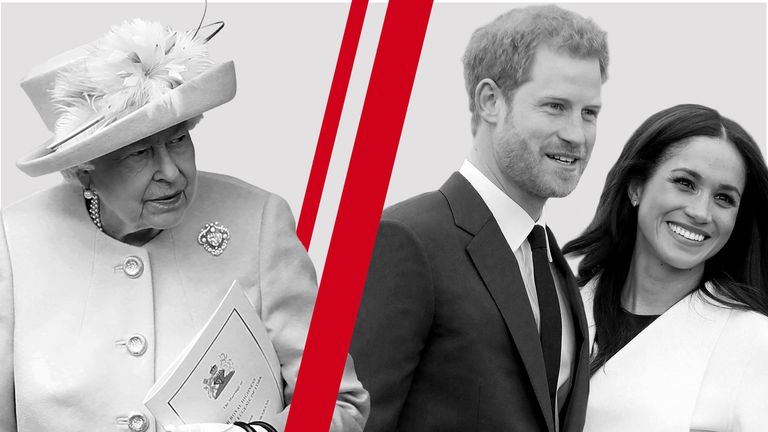
When season four of The Crown drew to a close on Netflix last year, many people thought they were in for a long wait before their next dose of royal drama.
That has all changed in recent weeks, as Harry and Meghan‘s highly anticipated interview with Oprah Winfrey is set to be broadcast, and Buckingham Palace is investigating “very concerning” bullying complaints against the duchess.
Here, we look at the escalating row between the Sussexes and the palace.
‘Perpetuating falsehoods’
On 4 March 2021 the Duchess of Sussex accuses the Royal Family of “perpetuating falsehoods” against her and Prince Harry.
During a teaser clip for their CBS interview with Oprah Winfrey, Meghan says: “I don’t know how they could expect that, after all of this time, we would still just be silent if there is an active role that The Firm is playing in perpetuating falsehoods about us.
“And, if that comes with risk of losing things, I mean, I … there is a lot that has been lost already.”
This all comes as Prince Philip recovers from a procedure for a pre-existing heart condition after already having spent more than two weeks in hospital.
The interview is set to be broadcast in the US on Sunday 7 March and in the UK the next day.
Please use Chrome browser for a more accessible video player

Meghan accuses palace of ‘perpetuating falsehoods’
Bullying complaints
The Times newspaper reports a complaint was made by the Sussexes’ then-communications secretary Jason Knauf in October 2018.
On 3 March 2021 Buckingham Palace says it will investigate the claims that Meghan bullied members of staff while she was a working royal.
The Sussexes respond by saying they are being targeted in a “smear campaign”.
Lawyers for the couple say The Times reports were based on “misleading and harmful misinformation”.

‘History repeating’
On 1 March 2021 Prince Harry says he feared “history repeating itself” and the process of leaving royal life has been “unbelievably tough” for him and his wife Meghan.
The remarks come out in one of the first promo clips for the Oprah interview.
Harry says: “I’m just really relieved and happy to be sitting here talking to you with my wife by my side.”

As a photo is shown of him as a child with his mother, Princess Diana, he continues: “Because I can’t begin to imagine what it must have been like for her going through this process by herself all those years ago, because it’s been unbelievably tough for the two of us.
“But at least we have each other.”
‘Never walking away’
On 26 February 2021 Harry reveals in a candid interview with James Corden that he felt the need to step back from royal duties because of “toxic” stories about him in the British press.
He says it was “never walking away”, but “stepping back rather than stepping down”.
“We all know what the British press can be like. And it was destroying my mental health. I was like… ‘this is toxic’.”
Harry says he did what “any husband and father would do – I need to get my family out of here”.
All aboard! James is taking Prince Harry for a double-decker tour of Los Angeles and it starts NOW 🚌 pic.twitter.com/hQGwfsjqyX— The Late Late Show with James Corden (@latelateshow) February 26, 2021
‘Never returning as working royals’
On 19 February 2021 it emerges that Harry and Meghan have told the Queen they will not return as working members of the Royal Family.
Buckingham Palace says the rest of the family is “saddened” by their decision” but they “remain much loved members of the family”.
Sky’s royal correspondent, Rhiannon Mills, says there appears to have been “tense discussions” behind the scenes and that the couple “don’t sound happy” in their latest statement.

With them stepping back permanently from royal duties, the palace says the Queen confirmed in writing that it is “not possible to continue with the responsibilities and duties that come with a life of public service”.
Harry and Meghan say in their statement that: “We can all live a life of service. Service is universal.”
The Oprah interview announcement
Later in February, the Sussexes confirm they will give their first interview since stepping back from royal duties by sitting down with Oprah Winfrey.
Buckingham Palace say they will not be commenting on the Sussexes’ decision to do the interview.
The announcement comes a day after the duke and duchess revealed they are expecting their second child.
Subscribe to the Daily podcast on Apple Podcasts, Google Podcasts, Spotify, Spreaker
The bombshell announcement that started it all: Harry and Meghan step back from royal duties
In January 2020, the Sussexes declare on Instagram that they will “step back” from their roles as working royals.
They say they will divide their time between the UK and North America and become financially independent.
Buckingham Palace warns the move will be “complicated” and take time.
It is later reported that the Queen is disappointed Harry and Meghan had failed to consult her about their decision.
Sky’s royal correspondent Rhiannon Mills says: “I’m told that the statement was solely written by the Duke and Duchess of Sussex – no senior members of the Royal Family were consulted before it was released.”
Comment These are a dreadful pair of narcisists , Harry is carrying on where his mother left off , exposing the Royal Family for what it is. Britain claims to be a democracy, well so did East Germany when it called itself the German Democratic Republic. We certainly have our Stassi and men in fancy miltary uniforms , like Harry’s lot, waving down from balconies or from motorcades. It is absurd that this deception has lasted so long , but just look at the fear created by lockdown. As Trump said : ‘Fear is power.’

Zero Negativity March 5th 2021
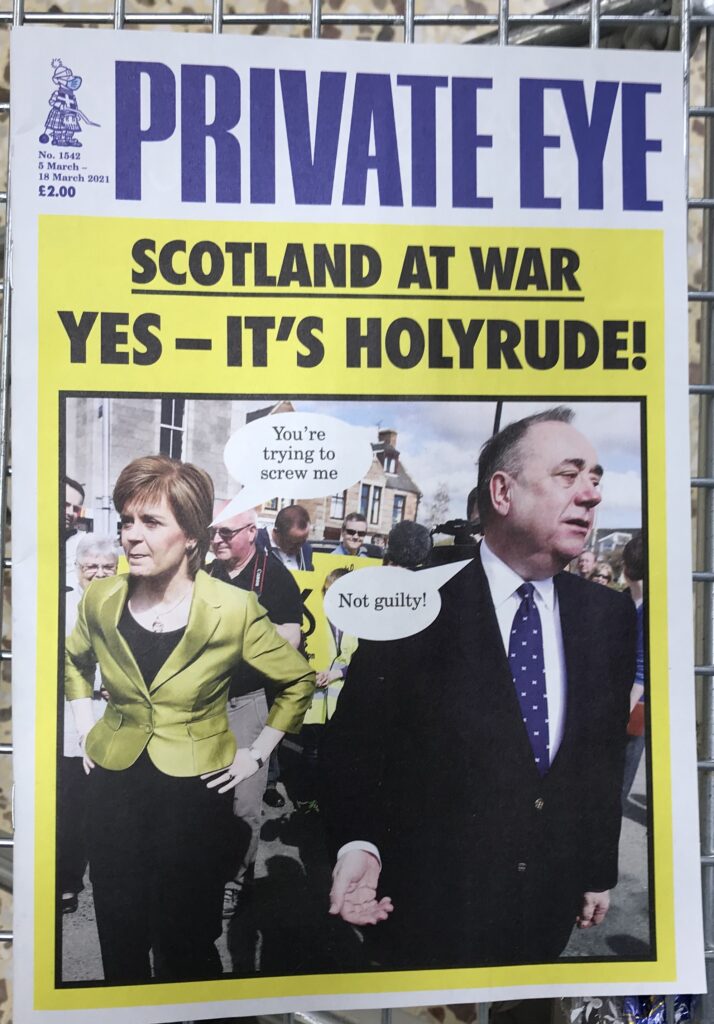

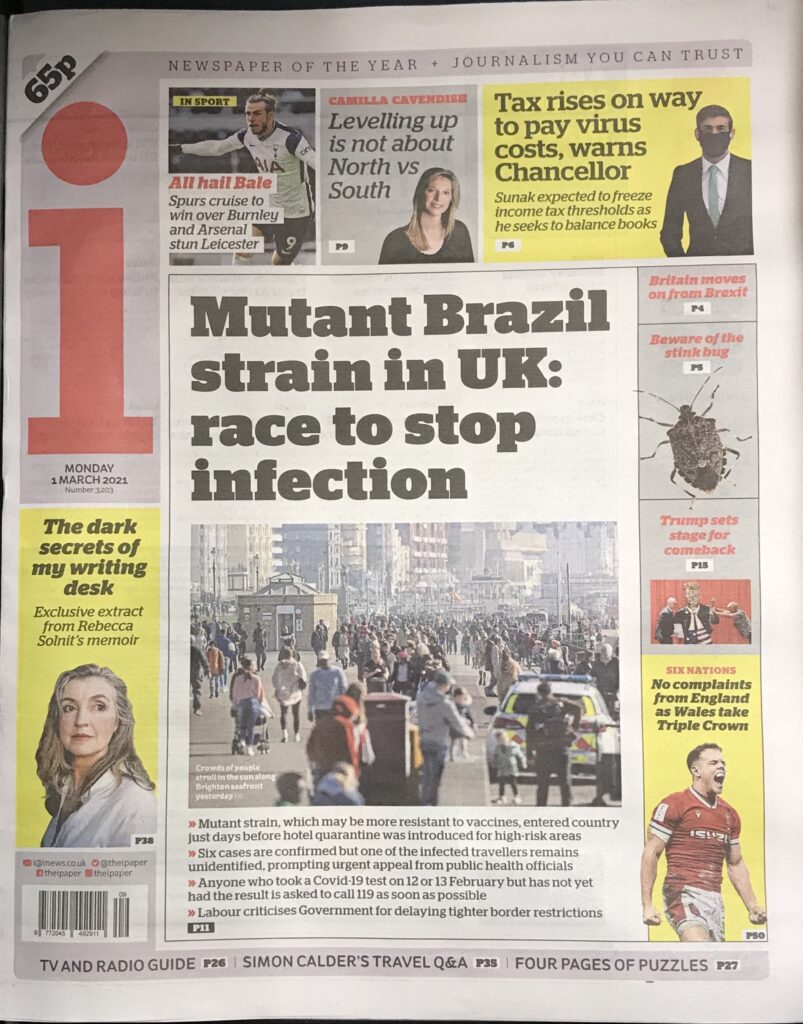
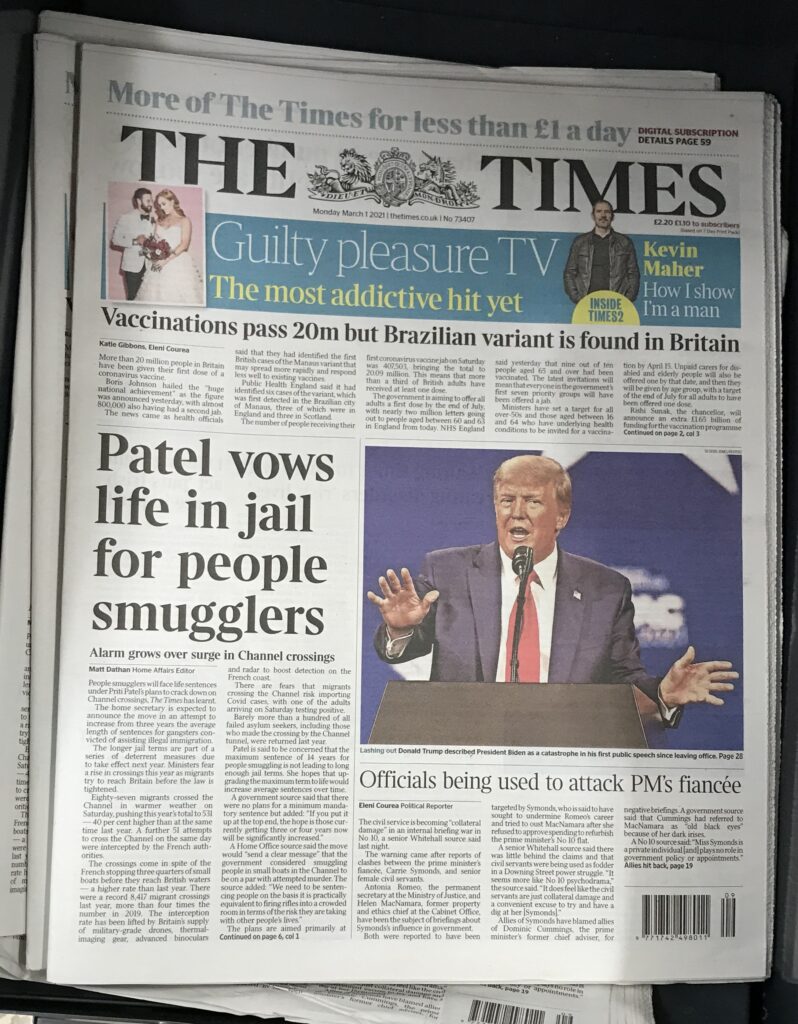
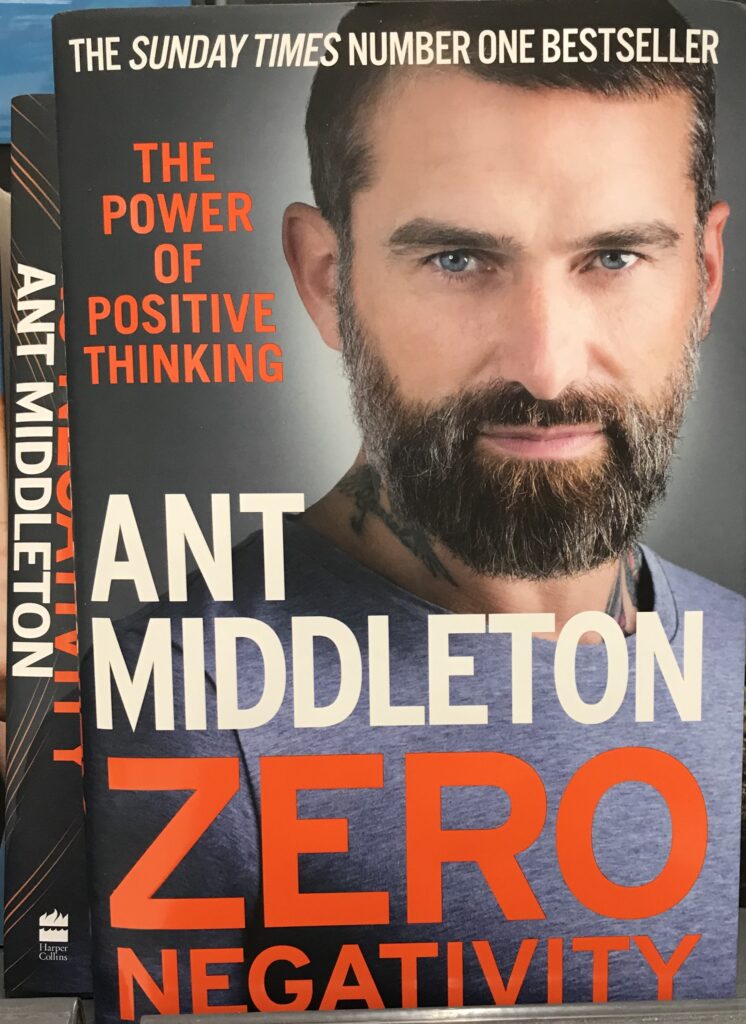
February 25th 2021
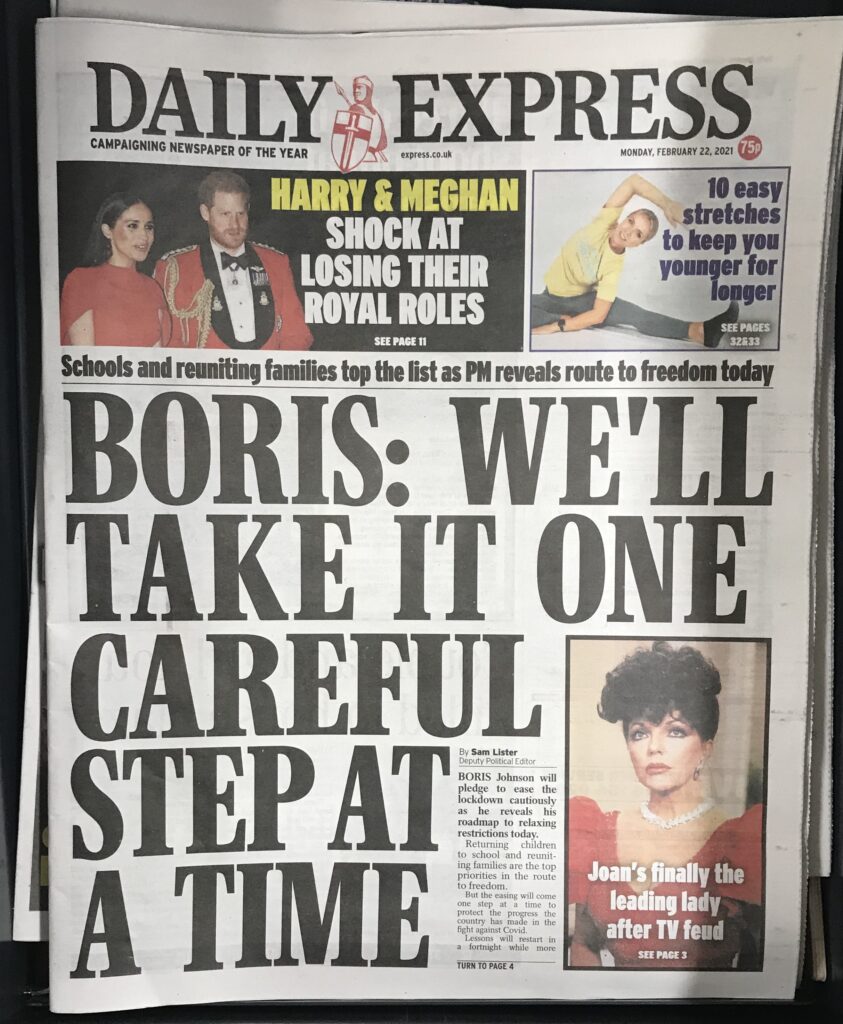
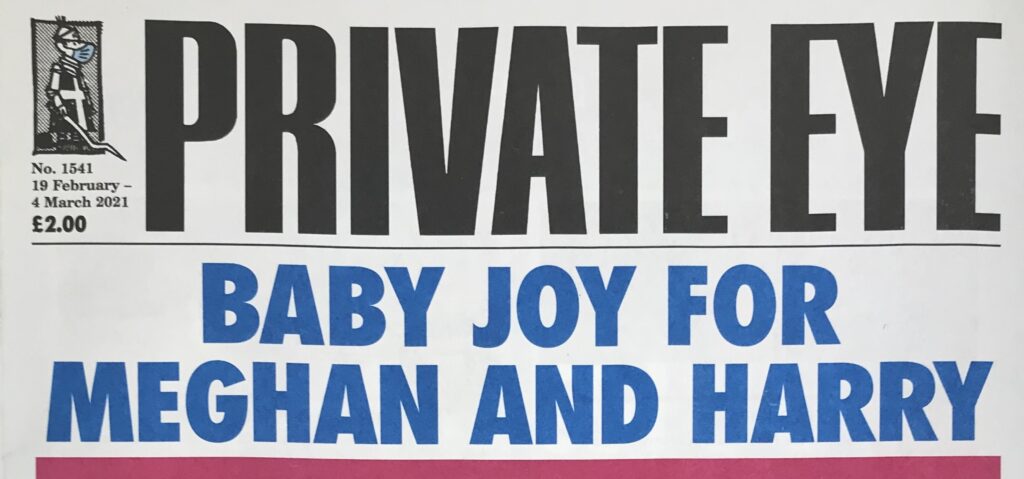
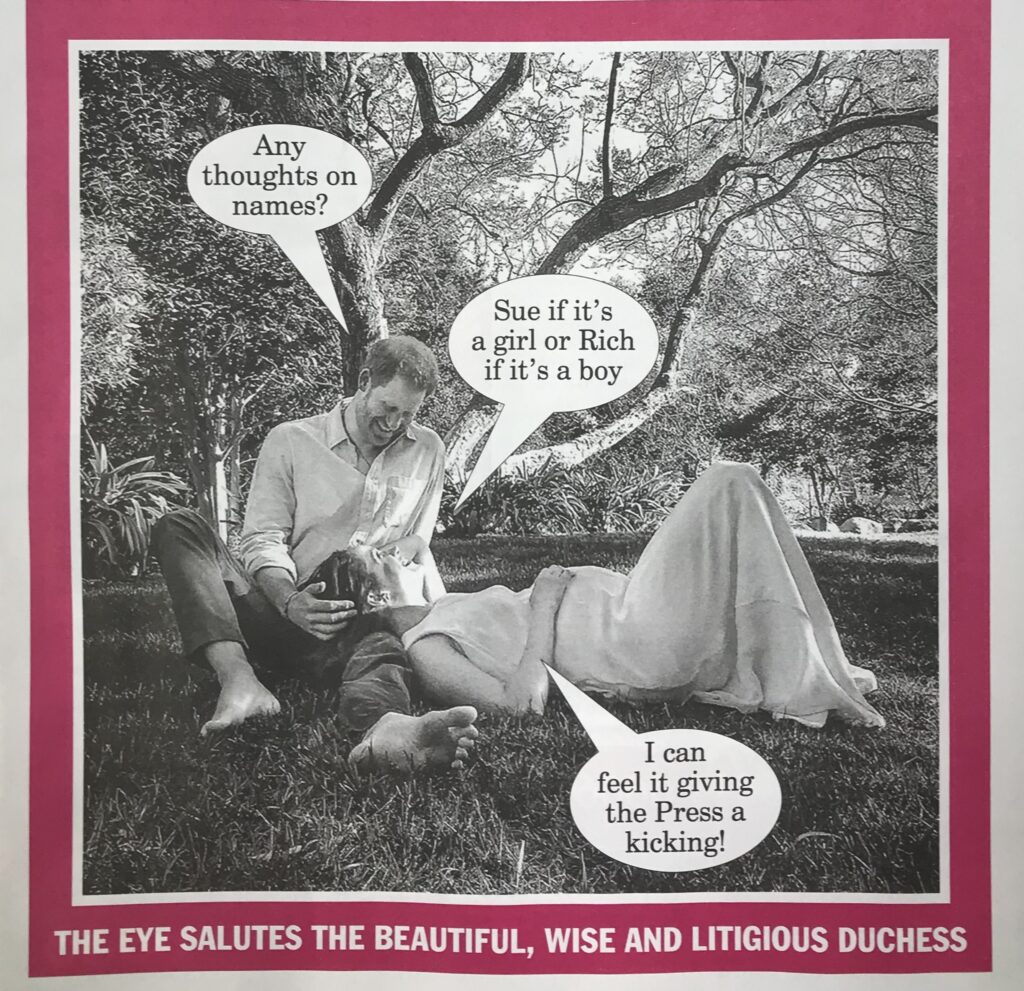
Britain leads world in institutionalising corruption & Denying Conspiracy Theories by R.J Cook February 23rd 2021
It is comical the way in which the BLM have risen to condemn a group they simply call ‘white privileged.’ The Coca Cola bosses, like Gillette, out to boost sales to blacks , have come out with the wonderful advice that white employees should be ‘less white.’ For starters we must be less arrogant , less oppressive. The roots of BLM were apparently in the police murder of black man George Floyd.
” On May 25, Minneapolis police officers arrested George Floyd, a 46-year-old black man, after a convenience store employee called 911 and told the police that Mr. Floyd had bought cigarettes with a counterfeit $20 bill. Seventeen minutes after the first squad car arrived at the scene, Mr. Floyd was unconscious and pinned beneath three police officers, showing no signs of life.
” By combining videos from bystanders and security cameras, reviewing official documents and consulting experts, The New York Times reconstructed in detail the minutes leading to Mr. Floyd’s death. Our video shows officers taking a series of actions that violated the policies of the Minneapolis Police Department and turned fatal, leaving Mr. Floyd unable to breathe, even as he and onlookers called out for help.” New York Times

This event should have sparked an inquiry into the police murder and the reality of blacks topping the police arrest list. But it turned into an attack on the mindset of the average white, blaming them for the slave trade and slavery that benefitted an elite minority of blacks and whites whose family wealth was passed down the generations without media reproach.
As the imperial pigeons come home to roost across Europe and the United States – behind the smokescreen and deception of multi culture ,with its love of Islam , LGBTQI and TERFS , all riddled with contradictions – the ruling multi national hideously wealthy decsion making elite are working hard at distractions like Covid 19 , and wars to protect and sustain their greedy planet eating life style.
There are protests across the world and the police have to be portrayed as protectors of all good people. To suggest that the elite and their lackeys – often too stupid to know or care about what they are really doing- are involved in conspiracies, is to to display a paranoid personality disorder, inviting forced medication and possible institutionalisation. This is because there is an elite conspiracy to cover up conspiracies. The following article should be read with this in mind. I will comment on it later. R.J Cook
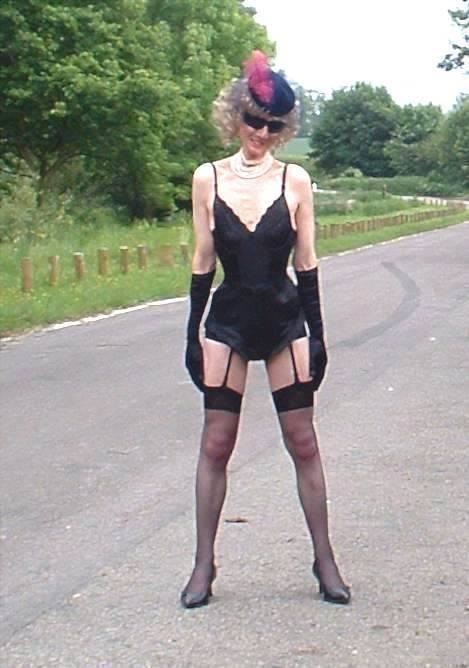
Image Appledene Photographics.
Adam Curtis knows why we all keep falling for conspiracy theories
In Can’t Get You Out of My Head, Curtis argues that we need to rediscover our sense of imagination
Saturday 13 February 2021

Adam Curtis, the critically acclaimed documentary maker, says he began his new film, Can’t Get You Out of My Head, for two separate reasons that came together perfectly. The first was aesthetic. Where his last film, Hypernormalisation, was about ideas – really, one overarching idea, that elites had given up managing the complex “real world” and built a simpler “fake world” – this time he was keen to make a film about people, closer to a dramatic work, “like the great multipart novels that go back to the 19th century”, he says. It would not be a work of fiction, but a work of reality. Its fractured style would mirror our fractured world.
The second reason was recent history. Not the obvious stuff, like Brexit or Donald Trump, not quite – it was the reaction to these events by people “who would describe themselves as progressive or radical,” he says. To Curtis, these people had come unmoored from the real world. He heard them ask: how have these “nice working-class people – who should respect them – turned around and bitten them”. World-changing events were happening – chaos under heaven – and all this lot could do was doom monger and hate. “They hated Brexit; they hated Trump. And they hated the world that was going to be created as a result of that,” he says. But they seemed to have no interest in thinking about the political grievances that had gotten us all here, or offering an alternative – they just went on hating.
“Since 2001, we’ve had a series of big catastrophes,” he says. “But instead of saying, okay, we’ve got climate change, or, okay, we’ve got inequality, these are really bad, but we should do something about it, we can try this, the progressives retreated into ‘Oh, my God, the world is going to die. And I was just puzzled by that.’”
He wanted to know why the progressive ideas of our time seem to manifest in doom mongering and inaction. What was wrong with these people? Where was the optimism? Where, above all, was their imagination?
Read next
- 53 of the best documentaries on Netflix right now
 53 of the best documentaries on Netflix right now By WIRED
53 of the best documentaries on Netflix right now By WIRED
These two ideas combine in a film that tries to smash this liberal fantasy; to get away from the “goodies and baddies” that modern television journalism has retreated into, and to show a world of ambiguous characters, “whose actions and whose lives expressed some of the ambiguities of our time”.
The result, after four years, is Can’t Get You Out of My Head, which is airing on BBC iPlayer. It is an eight-hour epic covering what feels like hundreds of characters, spread out across the world and the 20th century, from the landlord Peter Rackman to Jiang Qing, Mao Zedong’s wife, to the life, death and digital resurrection of Tupac Shakur. Curtis investigates conspiracy theories, artificial intelligence, melancholy about empire, the seductions of nationalism, and individualism’s rise at collectivism’s expense. He tries to explain how certain ideas got in people’s heads and made them act crazy – “an emotional history”. And to find out why, he explains, the idea of the world as something humans could change has disappeared.
Curtis is a highly imaginative filmmaker, which is either a compliment or a criticism, depending on your perspective. His documentaries resemble someone pointing out the constellations. His fans commend his prescience and his global perspective; his detractors – “the rationalists who hate me” – say that he makes connections that aren’t there: that his work can be a bit ‘galaxy brain’. Everyone agrees his films are beautiful – Curtis has a sixth sense for combining image and sound in a way that heightens both. In Bitter Lake, for instance, the bloody bombed out cities of Afghanistan meld with mournful synths; a “drug-like experience” he says. “You feel it’s in front of your eyes, but you reach out and it’s something else, it’s not there”; a place we expected to be one way, but turned out another.
The new doc retains his loyalty to archive footage, as well as the music of Burial and Aphex Twin. But it is different. As he intended, characters come and go and return, often without explanation; he wanted this to feel like the ties of friendship, he explains, where close companions stick with you, and acquaintances fade away. We skip continents and eras – gun-toting individualism flourishes in 1950s America; later we are following the life of Eduard Limonov, a Russian poet and political dissident. Curtis offers no vantage point from which to view all these characters. Still, it is possible to discern a pattern in the chaos. Each individual has a revelation, and rides to power on the back of that idea. That idea then escapes their control, destroying them or mutating beyond them, and messing things up for us – the future generation.
Take Brexit. Curtis outlines a fascinating history of a man named Cecil Sharp, a key leader in the English folk-song revival back in the early 1900s. Sharp travelled through England learning old rural dances; black and white footage shows Sharp and his companions prancing from leg to leg like fauns, the kind of ye olde English country dancing parodied by Julia Davis in her black comedy Hunderby.
Read next
- 74 of the best Netflix series to binge watch right now 74 of the best Netflix series to binge watch right now By WIRED
“Sharp sort of invented the idea of folk music,” says Curtis. “And that’s not to say people didn’t sing songs. But this idea that there was this thing called the music of the folk, he sort of invented that, and he did it with this country dancing, and it’s so recent. And it was really a myth of England.”
Curtis deepens his analysis. Sharp drew on the volk of German nationalism. His aim was more ambitious, and sinister – responding to a fear of industrialised mass society, and the corruption of ascendant financial institutions, he intended to manufacture a new nationalism for the middle classes – a natural order extracted from England’s rolling hills. In other words, the impulse is Brexit: a retreat into a mythical version of the past. At that episode’s conclusion, Nigel Farage emerges from a tundra of blue, Brexit Party glow sticks.
“There’s a melancholy about the loss of the Empire, but really the roots of Brexit are in that sort of mythical, nostalgic idea of England, that was invented in those years, and then comes back up again in the Second World War,” Curtis says. “And it’s still there. You know, lots of my middle class friends have that nostalgia, you can see it.”
Followers of Curtis’s work will recognise one theme – he tries again to square the circle of the individual and the collective. In Curtis’s eyes, this is pretty much the definitive theme of the 20th century. Individualism, he argues, began as a utopian ideal: freedom through self-expression. Then it morphed into consumerist enslavement. In other words, Curtis hates hippies. “The great big shift, which is the root of our age, is that somewhere in the late 1960s, the radical left who talked in terms of power, society, overthrowing the power structure – all that rhetoric – gave up. And instead, encouraged by radical psychotherapy, they went for an alternative idea which said, ‘Okay, if you can’t change the world, in terms of power structure, what you do is change yourself.’”
When this culture of narcissism didn’t bring the Me Generation the nirvana they hoped for, corporations stepped into this emotional void. They offered these people other ways of pacifying their emptiness, like products to buy and pills to swallow – Robert Sackler, the developer of OxyContin, enters stage left – while the ideology that was actually generating this pain mushroomed. Fast forward to now, narcissism remains a generational diagnosis and the enemy of collective action.
Read next
- 21 of the best films on Amazon Prime UK right now
 21 of the best films on Amazon Prime UK right now By WIRED
21 of the best films on Amazon Prime UK right now By WIRED
“You can’t just blame the elites,” says Curtis. “It’s you, it’s us, who are as much at fault for doing this. It’s not what the left or the right wants to hear. But it’s sort of true. If you have a society full of individuals, it’s like herding squealing piglets; you can’t collect them together into a mass group.”
None of this is particularly new. But Curtis brings a new perspective in his discussion of conspiracy theories. Here he makes a more abstract point – that we have begun to think like Google’s neural networks. Rather than pursuing deeper meaning, we hunt out patterns in masses of data; we are aroused instead of thoughtful – putty for conspiracy theorists.
“There’s a way of thinking that the internet has pushed in people’s minds,” Curtis says. “If you notice how people now think and behave, and you could also argue, how people like me make films, it’s through a great collage of patterns of images and stories, which is very much like the way what machine learning works. You’re not looking for meaning for logical meaning any longer. You’re looking for patterns, connections, which is how conspiracy theories work.”
Of course, just as TV wasn’t the source of all the seventies’ problems, neither is the internet now. “You’ve got Brexit and Trump because we’ve actually run out of all stories,” he says. “The world was just being run by a group of technocrats who just wanted to keep the world stable. It was fine for them. But it wasn’t very good for anyone else.”
In Curtis’s mind, the retreat into conspiracy goes both ways. Several times, bespectacled upper-middles are shown dancing lamely to the music of the people they’ve exploited, their gawky limbs juxtaposed to the zombie-like gait of opioid-stunned Americans. The right, Curtis tells me, has Hillary Clinton drinking blood, but technocrats hold their own delusions. “That’s not to say that there aren’t a lot of people who are completely stupid and believe in QAnon, but there are lots of people who, I would argue, are pretty stupid to believe Vladimir Putin gave you Donald Trump,” he says.
Read next
- 54 of the best films on Netflix UK this week 54 of the best films on Netflix UK this week By WIRED
Even if you recoil at this parallel, conspiracy theories offer an imaginative compulsion that politics, currently, does not. Grand narratives are dead; Yoga influencers pursue QAnon theories. Curtis begins and ends the films with a quote from David Graeber, the anarchist anthropologist who died last year: “The ultimate hidden truth of the world is that it is something we make and could just as easily make differently”. The films also brought to mind the academic Mark Fisher, who argued that capitalism has delimited our political imagination. Curtis tells me he was influenced by “one of the great works of art of our time” – South Park’s ‘Imaginationland’ trilogy. He sees three futures – a return to management by benign elites like Biden; the death of individualism via algorithmic surveillance, a la China; or a third way, a world where we “regain our confidence” and try to imagine a new future.
“The other way of looking at recent history is you have a succession of groups of people coming from different sources, who constantly promised to change the world, and always fail,” he says. “Occupy and Obama, Trump, Brexit, Cummings, they all failed. Why are they failing? They fail because their imagination isn’t strong enough.”
While researching the film, Curtis interviewed conspiracy theorists in Birmingham, people who believed in “one of the great dream worlds of our time,” the idea that the CIA, Walt Disney and the Illuminati brainwash and control all the major stars. He soon learned that, when pressed, these people didn’t really believe the story. They just loved its epic magical dimensions – an alternative to this “dull, desiccated, grim, utilitarian world.” Their imaginations had taken them somewhere.
“Isn’t it about time the left started recognising that imagination is central to this, that somehow, if you’re going to take people with you, you’ve got to imagine something,” he says. “Sitting in those conspiracy theories, however mad they are, is a sort of truth for a lot of radicals in that you’ve just got to imagine an epic world. And, if you do, people are fascinated, really.”
Will Bedingfield is a culture writer at WIRED. He tweets from @WillBedingfield
‘I man ‘ means what says on the label. R.J Cook Posted February 21st 2021.
I will preface my comment on the following two reports by reminding readers that the science we are supposed to grovel to – accepting without questioning its inductive logic and diktats concerning Covid 19 lockdown – does not apply when it comes to Islam and the concept of faith.
Islam was derivative of Christianity which is why Jesus is their ninth prophet. We are talking about the mere last 3000 years out of science’s assessment of 30 million years of human life on earth. Science and dogmatic religion are not compatible.
Christianity did not exist in Jesus’s life time. it derived from Jesus’s teachings and as critique of original Judaism and the teaching of followers . Those crossing the Mediterranean to what was then the Roman Empire’s H.Q were persecuted until Nero saw mileage in population control by embracing Chrsitianity. Hence the Roman Catholic Church and all the edifices built by white slave labour. This church , via monarchs across Europe, paying homage to the Pope who ruled ex cathedra ( sic ) tortured and burned alive non believers.
One wonders what the modern feminist and ‘he for she’ crowd learn for their toilet paper humanitioes degrees, It certainly has nothing to do with facts. or reasoning power – university’s scape the barrel now and have remedial departments. Prejudice is enough for them, religious and feminist prejudice tops it all – that’s MA and PHd material. The courses tell them what and who to be prejudiced for – e.g Islam- and what to be prejudiced against e.g white males , unless they are BAME or ‘he for she’..
So we are expected on the one hand, to accept horrendous lockdown restrictions from science priests , but not question Islam which clearly operates as a fount and weapon in the cause of truth.
People of Europe fought for centuries under bogus flags of God , then fought to escape its yoke. Now Catholicism has to accept criticism with humour. Islam cannot , which is why the French satarists were butchered, some commentators suggesting they asked for it. Then came the teacher’s turn for the butcher.
The so called 100 public figures who objected to the PC ‘Woman’s Hour’ lead asking how many female Imans there are ( the answer is none ) , all have a vested interest in left wing feminist white man hating media and BAME. To complain that the Zara Mohammed was interrogated as if she were a politician is to deny that she serves a key role in religion which is political. She is a figurehead to a political purpose who by her own important lack of an answer , demonstrates the serious implciations of her role i a faith group that has no interest in multi culture. The logic of multi culture from the elite culture perspective is the old imperialist ‘divide and rule.’
If the saintly 100 who signed the letter of complaint to the BBC don’t know that then that speaks volumes for the new opinion makers. Iman means I Man. That’s it. The fact that you can brow beat the Protestant Church and every other notable organisation about how many women are in key positions says it all about ‘sacred Islam’ and where the west is going.
All the wealth is in the hands of the few. Religion has always had much to say about suffering masses enduring , worshipping and getting a better life after death. Importing massive numbers of Muslims, while churning out sanctimonious garbage about their ‘beautiful religion’ ( Woman’s Rights advocate Angelina Jolie ) is all part of the process of diversion , control and keeping the elite safe.
It is going to be interesting to see how that elite enforces a Covid Jab in the name of herd immunity whilst hiding the fact that Muslims ares rejecting it because they are fearful for their all important fertility. These people believe in the inevitabile triumph of their religious faith. Bombing so much of the Islamic world has heightened their anxiety and determination.
Meanwhile , well educated upper middle class feminists presenters and journalists , like Emma Barnett, need to remember that their only legitimate targets for contempt , blame and ridicule are lower class or conservative white men.
R.J Cook
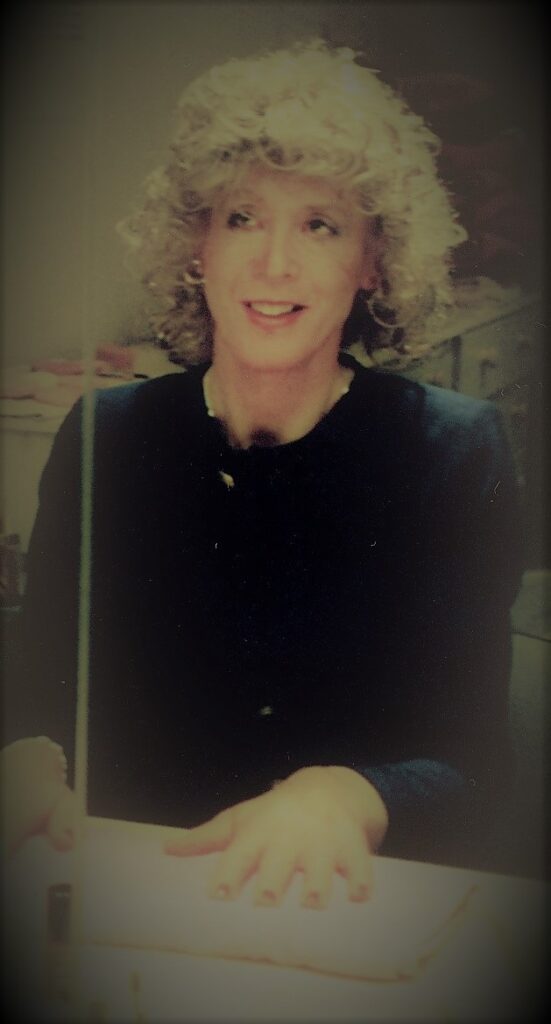
BBC Woman’s Hour accused of ‘hostile’ interview with Muslim leader
Published3 days ago
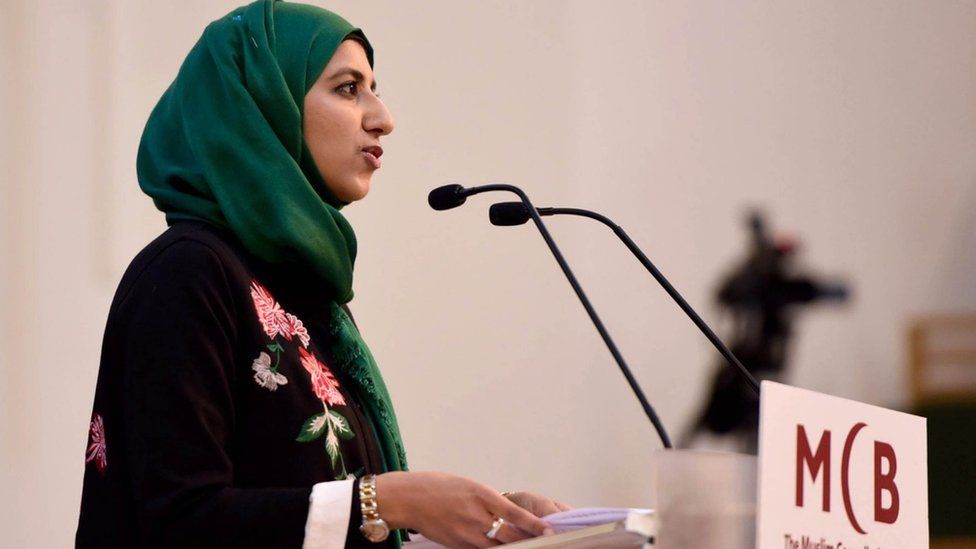
A BBC Radio 4 Woman’s Hour interview with the first woman to lead the Muslim Council of Britain has been criticised for being “strikingly hostile”.
More than 100 politicians, writers and other prominent figures have signed an open letter complaining about Zara Mohammed’s “mistreatment” on the show.
It said host Emma Barnett “appeared intent on re-enforcing damaging and prejudicial tropes” about Islam.
A BBC spokesperson said the corporation would reply “in due course”.

The letter’s signatories include Conservative peer Baroness Warsi, Labour MPs Diane Abbott and Naz Shah, journalist Afua Hirsch, Rizzle Kicks’ Jordan Stephens and the Muslim Council of Britain’s founding secretary general Sir Iqbal Sacranie.
“The BBC needs to address its engagement with and representation of Muslim women,” it said.
In particular, it took issue with Barnett for “persistently” asking how many female imams there are in Britain.
“Despite Mohammed’s repeated claims that religious adjudication was not within the parameters of her role leading a civil society organisation, Barnett asked the question about female imams four times, each time interrupting Mohammed’s answer,” it said.
The interview “mirrored the style and tone of an accountability interview with a politician, rather than authentically recognising and engaging in what this represented for British Muslim women”, the letter added.
It said “the false equivalence between imams with rabbis and priests in a religion that has no clergy reflected a basic lack of religious literacy needed for authentic engagement with British Muslim communities”.
Last week we posted a clip from an interview with Zara Mohammed @ZaraM01 Secretary General of the Muslim Council of Britain. In retrospect, the clip should have included more of the radio interview to provide full context of the discussion. We have now removed the original tweet.— BBC Woman’s Hour (@BBCWomansHour) February 11, 2021
The BBC is not responsible for the content of external sites.View original tweet on Twitter
After the letter was published, the BBC spokesperson said: “This is a topic we’ve been responding to already and now that we’ve received this letter we will reply to it in due course.” Barnett has not addressed the issue since her tweet after the interview.
The letter also criticised a “lack of representation” within the BBC, calling for the broadcaster to release a public statement “recommitting to engaging with Muslim women” and recruit Muslims in leadership positions.
The Muslim Council of Britain is the largest umbrella organisation for British Muslims, with more than 500 members including mosques, schools, charities and professional networks.
After the interview on 4 February, Barnett retweeted a clip of that section of the interview, saying “I still have the question and genuinely would like to know” about the number of female imams. She also thanked Mohammed “for our wide-ranging discussion”.
The programme later deleted the clip from Twitter, however, saying it “should have included more of the radio interview to provide full context of the discussion”.
BBC under fire over ‘strikingly hostile’ interview of Muslim Council of Britain head -100 BAME , Feminist & Media public figures sign letter criticising Radio 4 Woman’s Hour segment with Zara Mohammed. Posted February 21st 2021
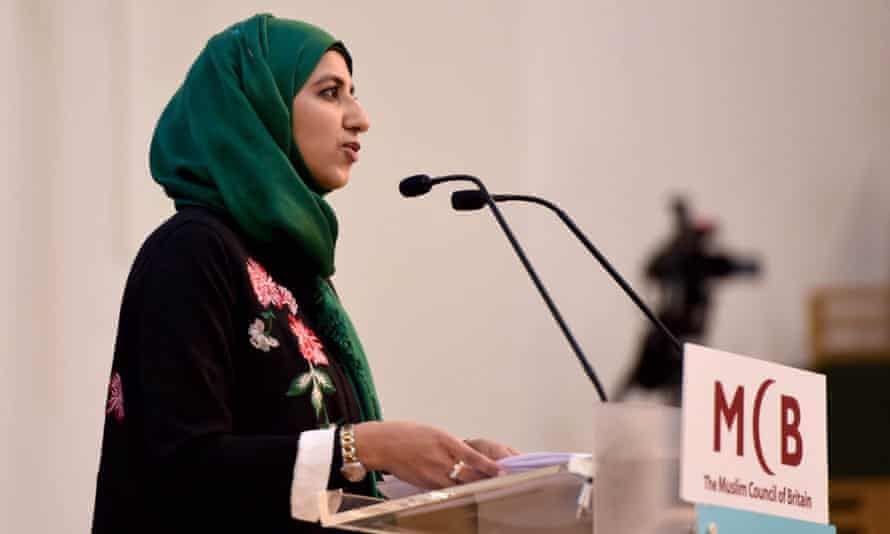
Zara Mohammed was elected first female leader of the Muslim Council of Britain in January. Photograph: MCB/PAAamna Mohdin Community affairs corespondent@aamnamohdinWed 17 Feb 2021 13.06 GMT
More than 100 public figures, including the Tory peer Sayeeda Warsi, the Labour MPs Diane Abbott and Naz Shah, and the comedian Deborah Frances-White, have signed an open letter to the BBC criticising Radio 4 Woman’s Hour “strikingly hostile” interview with Zara Mohammed, the first woman to lead the Muslim Council of Britain.
The letter, organised by the writers Yassmin Abdel-Magied and Mariam Khan, called on the BBC to diversify its editorial and production team and better engage with Britain’s Muslims.
It claimed that the line of questioning in Mohammed’s interview reinforced “damaging and prejudicial tropes” about Islam and Muslim women.
Last month, 29-year-old Mohammed, a training and development consultant from Glasgow, became the organisation’s first female leader, as well as its youngest.
On 4 February, Mohammed appeared as a guest on Radio 4’s Woman’s Hour programme. In the interview with Emma Barnett, Mohammed was repeatedly asked about the number of female imams in the country.
The letter notes: “Despite Mohammed’s repeated claims that religious adjudication was not within the parameters of her role leading a civil society organisation, Barnett asked the question about female imams four times, each time interrupting Mohammed’s answer.
“The framing of the interview and clipping up of the ‘female imam’ segment for social media mirrored the style and tone of an accountability interview with a politician, rather than authentically recognising and engaging in what this represented for British Muslim women. Moreover, the false equivalence between imams with rabbis and priests in a religion that has no clergy reflected a basic lack of religious literacy needed for authentic engagement with British Muslim communities.”
Other signatories include the Labour MPs Zarah Sultana and Apsana Begum; the director of the Class thinktank, Faiza Shaheen; Nikesh Shukla, author and editor ofthe Good Immigrant; Rizzle Kicks’ Jordan Stephens, the theologian Dr Amina Wadud, and media company Gal Dem. A total of 200 people have signed the letter.
The letter states that following complaints online and in private, the BBC removed the original tweet with a clip of Mohammed’s interview.
Abdel-Magied said: “This cannot be the way that media organisations, especially the BBC – which is meant to represent Britain and British people – engage with Muslim women and Muslim people.”
She added she has had conversations with Muslim women who are “seriously reconsidering whether or not going on Woman’s Hour is something that we want to do as part of any publicity around our books or conversations around issues that are really important to us”.
The letter notes that Muslim voices are underrepresented across the public broadcaster. It calls on the BBC to issue a public statement recommitting to engaging with Muslim women and those from historically marginalised communities in good faith, commit to recruiting Muslims in leadership and commissioning roles, and ensure programmes have diverse production and editorial teams.
Khan said: “Seeing the interview between Emma Barnett and Zara Mohammed was disheartening. However, our concern isn’t just about this singular moment – it’s about the wider cultural problem within the BBC and the media when it comes to the representation of Muslims.
“This is a crucial moment in which the BBC can choose to turn its back on the Muslim community or engage in making a change and acknowledging it’s very real-life impact on the lives of Muslims in the UK.”
It comes as Labour MP Dawn Butler published a separate open letter to the BBC about the corporation’s decision to make its editorial director, Kamal Ahmed, redundant. The move meant the public broadcaster was in breach of its own rules on minority ethnic representation. Signed by 48 cross-party MPs and peers, the letter asked: “We would like to know how the BBC intends to deal with its all-white news board and lack of diversity at the leadership level?”
It added: “This matter also suggests a deeper ongoing cultural and managerial issue at the BBC, which is in effect increasing the cynicism among ethnic minority audiences while decreasing the levels of trust they have in the institution.”
The BBC has removed the only Black, Asian, minority ethnic executive from their News Group Board.
In 24hrs I’ve managed to get 48 cross party MPs & Peers to help highlight concerns to @BBC.
Our media must be diverse, from top to bottom, just as the nation it seeks to serve. pic.twitter.com/IVGIrMQwqS— Dawn Butler MP✊🏾💙 (@DawnButlerBrent) February 17, 2021
The BBC said they would respond to the letter “in due course”.
Joanna Lumley: ‘Britain is not awful. We are good people’ – from ‘You’ magazine. Posted February 13th 2021
February 7, 2021
Tough times call for a pep talk. And who better to do it than our most trusted national treasure Joanna Lumley? From resilience to everyday heroism, she tells Cole Moreton what makes her proud to be British – and what makes her see red.
We trust Joanna Lumley’s lovely, silken voice more than that of any other woman, according to a recent poll, and right now she wants to give us all a bit of a pep talk.

‘Think how valiant people have been during this pandemic, how brave the carers and people who look after our health have been,’ says the actor, presenter and national treasure. Joanna has been making us laugh, gasp and cry for more than half a century, from being a Bond girl in the 1960s to the chaotic Patsy in Absolutely Fabulous and more recently the mother of Keeley Hawes in Finding Alice.
‘Think of the people who have gone on working doggedly, the people who have volunteered or who have made food and distributed to those who are poorer. All those great efforts.’ She’s feeling this way after somehow managing to cover the length and breadth of the British Isles in the brief lull between lockdowns last summer, for a new series called Home Sweet Home. ‘I know the fingers always point and say: “Oh, these people broke bounds” or “That person drove two miles too far.” B******s!’ I laugh out loud to hear that word from the woman with the plummiest tones on the planet, but Joanna is in her stride now. ‘Forget all that. Look at the people who are really doing their level best to make it easier for their neighbours, safer for the world and not go completely mad.’ Britain is not as bad as some people make out, she insists. ‘We’re going through a mea culpa thing in this country right now that says everything we do is ghastly and we are the sickest nation. Everything is our fault: it’s our fault the pandemic has run on, it’s our fault we left Europe, it’s our fault for being awful. But I think we are not awful. We are good people.’

Comment Thus is upper middle class drivel from a woman who is as superficial as her measured speech and tone of voice , every inch upper middle class.
One of her first TV appearances was as Ken Barlow.s snooty girlfriend in ‘Coronation Street’ the T.V equivalent of watching paint dry. I cannot think of anything weighty she has done on T.V or stage. Her opinion should hardly count in the real world.
A former model, she has always been tyepcast , possibly because being herself is her limit. She is a posh girl, well paid , successfully trading on her looks , intoxicating all the media posh boys including Patrick Lichfield.
Joanna Lumley was born on 1 May, 1946 in Kashmir, India, to British parents, Thya Beatrice Rose (Weir) and James Rutherford Lumley. Her father was a major in the Gurkha Rifles, and she spent most of her early childhood in the Far East where her father was posted.
An aspiring actress, she first came to fame as a model in London’s swinging 1960s, where she was photographed by the greats, including her friend, the late Patrick Lichfield. She was designer Jean Muir‘s muse and house model for several years before carving a career as a freelance model where she became one of the top ten most-booked models of the 1960s.
Lumley’s breakthrough role was as Purdey in The New Avengers (1976), a role for which over 800 girls auditioned. Purdey propelled Lumley to instant fame and created one of the “must-have” hairstyles of the 1970s — the Purdey bob. Lumley became a pin-up figure for a generation of British males who grew up watching her as the high-kicking action girl.
Ms Lumley is also noted for a voracious appetite for reading. The question is , what does she read ? From the kind of glib comments reported by ‘You‘ magazine , I think I can guess.
It has long been normal for media luvvies to be wound up to put a glossy veneer on events, along with a smokescreen of political correctness. Their having work depends on them being on message. She has the condescending look and the voice for it. These lucky few are well paid and out of touch. Men are easily fooled by the glamorous upper middle class facade.
It is sickening to hear people like Lumley talking about ‘We are good people.’ . Who are ‘the we’ ? Multi culture has divided the lower orders into LGBTQI. and religious groups. As far as I am concerned , a person’s sexuality is what it is. To a large extent gender , like everything else , is binary. But a benign loving God did not make us in his own image. So we can expect problems. We are not mini Gods. Muslims coming to a secular Britain should accept that reality and live in their own world apart if that is what they want , not conflict with other cultures and LGBTQI because we should not be dragged back into pre Mary Whitehouse censorship and moralising – thence back to the Dark Ages.
The Muslims can’t do that because at an early age they are at one with their parents and proseltylising like good Muslims. Good is what they think they are .
Lumley hasn’t had my experience teaching sexist Muslim boys or my experience driving a big truck for hundreds of miles , all through London and on down to Kent at Chrstmas time in 2018 , ( moron cops take note ) with a young religion obsessed Muslim driver’s mate from Banbury. Islam is not a race and we talked a lot about religion because I knew more about Islam than he did – remember I was head of R.S at Grange School Aylesbury. Muslim kids taught me to speak Arabic, even brought me a text book.
That is such dreadful vanity to believe we are mini Gods and can know God. Maybe it made sense before the Renaissnace and Reformation. Morons who persecute people’s alternative gender identity , if proven guilty , deserve harsh punishment – that includes punishing Muslims who expect their beliefs protected. In my view , Islam is going nowhere and I should be allowed to say that – look at the Muslim world where religion is used to oppress , just as it was used in Britain during the Industrial Revolution and to justify all the wars in God’s name.
However, accepting our Godless mortality , we must accept that there are certain vulnerabilities specific to being female as there are to being male. Freedom is bullshit for the masses ,where death is the only and ultimate freedom. So if someone makes the MTF transgender choice , they should know or be told about those vulnerabilities. But parading one’s LGBTQI or feminist status is not a useful contribution to facing up to and dealing with how horrible life in Britain has become – to the profit of the elite from which Ms Lumley comes and still belongs.
Ms Lumley like the rest of her class of media luvvies , has little knowledge or awareness of the miseries of life in the multi cultural underworld. She may have black friends , but there are upper class blacks. In this connection, I recall renting a flat from London Weekend TV’s Head of Comedy , Humphrey Barclay, in Bromfelde Rd, South London , while a post graduate student at London University.
Humphrey, an upper middle class, Oxbride Educated white man ,lived with his upper class black friend , also an Oxbridge man, the actor Christopher Asante. I was very amused to see this genteel Earl Grey tea sipping black aristocrat playing a tough West indian jail bird in an episode of the T.V Detective series ‘Hazell.’
One day , I returned to the 4 storey Barclay ( counting the basement where I lived ) on my bicycle. There on the paving in front of the house was Chris talking to my then partner about how Humphrey’s hired Brixton carpenter and decorator had insulted him when he offered the workman ‘a cup of tea.’ Chris said to me , in dismay ‘And him a fellow black.’ That was like me calling Prince Charles a fellow white. But we are not supposed to talk about class , because, as the Queen said ‘We are all in it together.’ Absolute rubbish of course.
There is no glass ceiling in this country. It is a class ceiling made all the stronger by all the new speech censorship laws , anti racism and feminazism – with Covid lockdown the icing on the cake. Mass entry of so called asylum seekers has heighted all the gibberish about how we can all worship in our own way. There is no other way than God and he can only be worshipped in one way according to unreformed Islam – the only ones differing there are the hypocritocal Royal House of Saud who have much in common with the British elite.
But the vast majority of people in Britain are not at one with Islam or any other church. That conflict is exploited by our elite to watch and control the people they call the far right. So they have to watch us all down here at the bottom.
The fact that Ms Lumley sees no serious problem and talks of ‘we’ makes her sound like an airhhead. She is anything but that. Here she is happy to be used for patronising propaganda which will impress a good many , especially some very stupid men who still have not gotten over her ‘Children in Need Striptease’ , a link here for your enjoyment. I do not need a pep talk from her. I want the truth – moron weirdo corrupt police on my case take note , because you are a very big problem in this society and for me , but Ms Lumley only cares that you are keeping her and her kind safe. R.J Cook
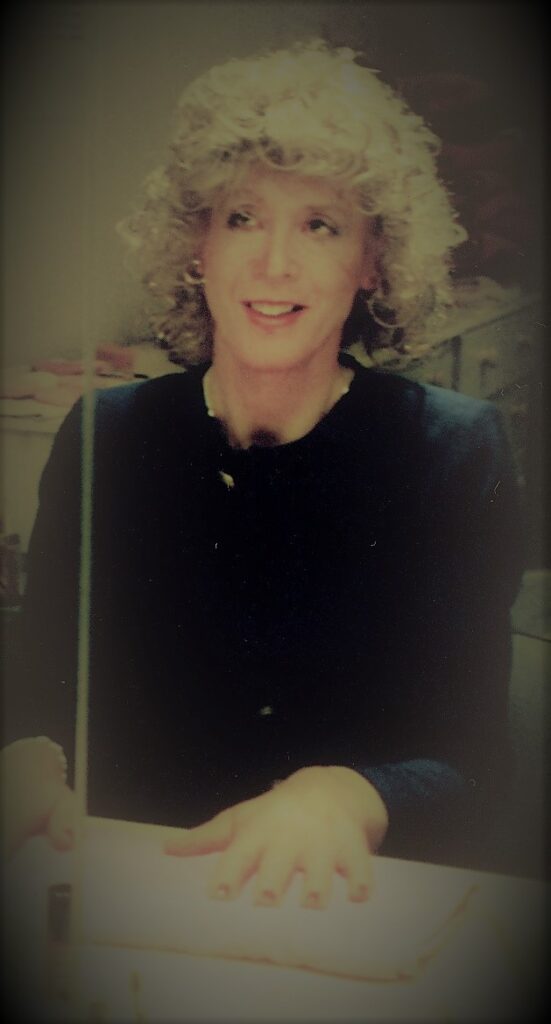
Appledene Photographics
My joanna lumley
Ms Lumley is famous for wearing and revealing stockings and suspenders ( garter belts ) as revealed in the above video.
Children in Need 1983 – Joanna Lumley’s striptease, Terry Wogan
Joanna Lumley – Children in need 1983 – YouTubewww.youtube.com › watch14 May 2017 — children in need. … Your browser can’t play this video. Learn more … Children in Need 1983 – Joanna Lumley’s striptease, Terry Wogan.
My joanna lumley – YouTubewww.youtube.com › playlistMy joanna lumley. 10 videos 983 views Last updated on Oct 1, 2018. Show more … Children in Need 1983 – Joanna Lumley’s striptease, Terry Wogan.
Children in Need 1983 Unscripted – Joanna Lumley’s …www.express.co.uk › videos › Children-in-Need-1983-…… for Terry Wogan. Children in Need 1983 Unscripted – Joanna Lumley’s striptease for Terry Wogan. By Video Desk. 10:03, Sun, Jan 31, 2016. 0 Link copied …
Joanna Lumley’s 1983 CHILDREN IN NEED `Striptease`! by …cyberspaceandtime.com › HAgdvPs8y0U.video+relatedThe comely Ms Lumley shows her stockings & suspenders for charity… 0:00. 1. Joanna Lumley talks to Clive Anderson · VHS Video …
Images for Flying Doctor TV series 1959 Richard Denning videos4 days ago



A Puffy Pouting Lipped Barbie by R.J Cook February 11th 2021

A Puffy Pouting Lipped Barbie February 11th 2020
It disturbed me to hear an erudite guest on RT saying that there was a crisis of dissent from Jo Biden’s government and plan for a brighter future. Given Biden’s immediate display of hostility toward China , posting deadly aircraft within striking distance , backed by sailing the South China sea again, along with spotty dog Boris Brainless of Britain shutting down China’s TV station here – then complaining China shuts down its propaganda BBC World Service – that bright future could turn into a really bright nuclear war.
Britain has a problem with China’s attitude to its rapidly expanding Muslim population. It arrogantly asserts that multi culture led by upper middle class uni girls feminism , is the model for the future.
Britain and the U.S.A’s elite think the same thoughts , all based on money. Around 2,400 own 59% of the world’s wealth. The elite have a problem with white working class men and their culture. They have set them all up as racists and targets for middle class moralisers and BLM resentment.
I heard a lot today about the U.S history being based on slavery , but nothing about Black African chiefs who sold ‘fellow blacks’ to the white men , or the fact that English sailors were pressed into service , or the fact that blacks and whites had and still have repressive class systems that thrives on scapegoats.

So when the Canadian psychologist Jordan B Peterson says there is a “backlash” against masculinity and “a sense there is something toxic about masculinity”, he is setting himself up as a target for the dreadful people who call themselves left wing liberal democrats.
These people infest mainstream media and are outraged by anyone wjo offends their consensus. Thus their was an explosion of liberal outrage when Petersen told Hardtalk’s Stephen Sackur: “There are biological differences between men and women that express themselves in temperament and in occupational choice and that any attempt to enforce equality of outcomes is unwarranted and ill advised as a consequence.” Mr Peterson is a professor of psychology at the University of Toronto and author of 12 Rules for Life: An Antidote for Chaos.

So up jumped Posh Tory Thatcherite Minsiter’s son Hugo Riffkind , born 1977. Now this toff works for the toffee nosed ‘The Times’ and ‘The Sunday Times.’ He has quite a pedigree . Hugo was born n Edinburgh , his father a key player in helping to destroy Scotland’s economy and social fabric. He tested men to the limit and drove them to drink and drugs with his government’s vile divisive and self seeking polices. Masculinity took a quite a bashing , but this impact was not confined to Scotland.

Divorces , drug addiction and suicide went hand in hand with the mass unemployment and give away sale of state assets to Tory fly boys in the city. These were the new men. The old men were left to rot, scapegoated as wife beating good for nothings. A man’s place was living on the street. Women were told they could be anything. Men were told what they were and are.

Hugo Riffkind had the best of everything. He was educated at the independent Loretto School in Musselburgh, near Edinburgh, where, he has written, he was the only Jewish pupil. He also attended George Watson’s College in Edinburgh before reading philosophy at Emmanuel College, Cambridge.
And so this posh boy informed his Times audience that ‘Jordan Petersen’s feminised men just don’t exist. He goes on to say : ‘The wildly popular Canadian psychologist’s barmy theories about masculinity now look as shaky as his diet plan.’

Dr Airhead is quoted in the above extract. She diagnoses a schizophenic who can’t express his emotions – this man cries in public without restraint.
Clearly this nasty so called interview with Dr Petersen exemplifies what mainstream journalism has become. it is all about elite propaganda and brain washing.
On February 1st this year , he wrote : “The apparent collapse of Jordan Peterson is like a parable. Over the past decade, and not always by virtue of his own efforts, the Canadian psychologist’s name has become synonymous with the idea that men are increasingly emasculated in an increasingly feminised world.”
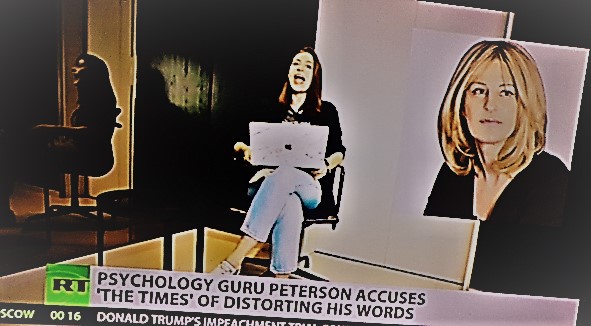
As if that wasn’t enough posh colleague Decca Aitkenhead tore Petersen apart in her weekend’s Sunday Times, in an interview with Decca Aitkenhead . This feminist was not going to be nice to Prof Petersen. He had been fooled by his publisher. She wrote that he had seemingly spent the last 18 months being shuttled around weird health institutions by his daughter Mikhaila, who had also put him on a weird diet. Given that she is also the CEO of his company, he came across like a frail old man dominated by his womenfolk. Which is either ironic, or about as traditionally male as you get. Or in this case……”. Airhead went on to describe Petersen’s daughter as a ‘puffy lipped ‘Barbie.’. Roberta Jane Cook
Turkey’s Media Controls Are Oppressive But Western Hypocrisy Is Remarkable – R.J Cook February 2nd 2021
| RSF, Amnesty International, Article 19, CPJ and 13 other free speech, human rights and journalists’ organizations are issuing a joint statement today in support of RSF representative Erol Önderoğlu, who is facing a possible 14-year prison sentence for promoting media pluralism in Turkey. A #SupportErol video has been released ahead of the start of his trial to draw attention to the judicial harassment to which journalists in Turkey, and Erol Önderoğlu in particular, are subjected. We urge you to share it with as many people as possible. |
https://rsf.us7.list-manage.com/track/click?u=5cb8824c726d51483ba41891e&id=c5868de851&e=7a6a9f52b1
| Erol should be hailed as a credit to his country. Instead he is hounded and prosecuted for arbitrary reasons. No country can claim to be a democracy when its government and judicial system persecute human rights defenders in this way. We call on the Turkish government to drop all the charges against Erol Önderoğlu and his two fellow defendants, the physician and human rights activist Şebnem Korur Fincancı and the writer and journalist Ahmet Nesin, and to put a stop to all forms of persecution of journalists, writers and academics in Turkey. We thank all of you for your support ! — REPORTERS WITHOUT BORDERS (RSF) Isabel Amossé Head of Advocacy |
Posh Tosh R.J Cook January 31st 2021
These days we have mythical under dogs and mythical oppressors – the term privileged white male exemplifies the latter. If I make a meal of my mother’s Irishnesss then, by today’s criteria I am mixed race because the idea of race has been reduced to absurdity. Hence ‘professional’ idiots call Islam a race and mass morons belive them. If I chose to make an issue of being transgendered , then I could claim to be one of the oppressed angels of multi culture and the new world order. People are no longer aspiring to real freedom , just to be part of a blob controlled by expensive media bullsh-i in the name of multi culture. History is being re written to create its fake truth, rather than struggling to find it. Society is being engineered in the name of science, mediated by so called scientists in the name of ‘the science’ which the masses find intimidating , hence the Covid con.
Sociology is being used to tell us what society should be , with all the necessary Draconian new laws and controls, demonising people for doing what comes naturally unless they are of the elite.
Rather than accept what it was intended to be , i.e uncovering social mechanisms for everyone’s benefit and enlightenment , sociology now claims to be the logic of feminism. Putting feminism in the same sentence as logic is an oxymoron. Marx was not a sociolgist, he was a philiosopher under Hegel’s influnce, then historian and polemicist – I have studied and taught students on the subject.
And so we come to the ultimate perversion of Marxism. presenting women and blacks regardless of class as the ultimate underclass, patronising , conning and ostracising anyone out of step , man, woman or black – the attitude to aspiring black supporters of Trump is an example of the latter, loathed by ‘Democrats’ like Biden and Harris, who need blacks as cannon fodder for BLM versus Trump , protecting the elite where their race and gender are weapons are sidelines in a world of bloodsucking real privilege. Hence we get patronising posh tosh written by a posh person of privilege, below .
‘Bridgerton’ Isn’t Bad Austen — It’s An Entirely Different Genre
Critics and viewers have dinged the show for being a cliché-ridden period piece or a sloppy historical drama. But it’s neither: It’s Regency romance, and it’s spectacular.

I was deep in a Regency romance binge a few years ago when I pitched a highly self-interested piece to my editor: an investigation into why this didn’t exist onscreen.
This was a creature apart from the Jane Austen adaptations and sedate period pieces I already enjoyed, or sexy but bloody cable costume dramas. A Regency romance is set in a fantasy version of British high society in the early 19th century, and the central action revolves around the courtship between a woman (often a well-bred beauty) and a man (often a rakish peer). They consummate their attraction in improbably acrobatic sexual encounters, and then they live happily ever after.
In the post-2016 election malaise, these novels became my anxiety palliative of choice. They piled up next to my bed and in my e-reader. But sometimes I wanted more, wanted to see the gossamer petticoats and lingering glances and gently unfastened bodices. The piece I pitched never materialized, but the object of my longing did. On Christmas Day 2020, Shondaland’s “Bridgerton” arrived on Netflix.
What ensued was both somewhat exhilarating — getting to see my Regency escapism come to life — and unnerving. My private indulgence, one generally viewed with dismissiveness if not contempt by non-romance readers, had become the target of a full-blown cultural discourse. “Bridgerton” was met with valid and vital critiques, especially over its treatment of consent, but also ones that made me wince: that it was formulaic, predictable, vapid, historically inaccurate, best suited for teens.
Many of the critiques, understandably, seemed rooted in unfamiliarity with the genre’s conventions, or in the expectation that “Bridgerton,” which is based on a series of books by Julia Quinn, would resemble a “Pride and Prejudice” remake. “You don’t get it!” I wanted to shout. “That’s not what this is!” The historical romance has finally gone mainstream — and that means a whole new audience is learning how to read a genre so long relegated to the margins. Sometimes that can be a bumpy ride.
With its bounty of sherbet-hued satin gowns, scandal rags full of malicious gossip, unblinkingly earnest romance, and on-screen lovemaking, “Bridgerton” seems to defy easy categorization for many critics, journalists and viewers — and even Regé-Jean Page, who stars as the smoldering Duke of Hastings.
“It’s a little bit of Jane Austen meets ‘Gossip Girl’ with maybe ‘49 Shades [of Grey’],” he told The Wrap in a December interview. Critics and viewers, at their wits’ ends trying to make sense of this sexy, gossipy, frothy Regency costume drama, also tried to characterize it in terms of beloved on-screen classics: “Pride and Prejudice,”“Downton Abbey,” and, yes, “Gossip Girl.” These comparisons convey some bafflement, an uncertainty about how to categorize a show that isn’t really a realist historical drama, nor an edgy satire, nor a campy soap.
Though it’s true that Austen was the inspiration behind the whole subgenre — the first Regency romance novelist, Georgette Heyer, was emulating Austen’s work — it has evolved into a well-established genre with its own tropes, conventions and standards.
“There’s a way that those kinds of incredibly popular adaptations of Austen will make you, I think, expect that you’re watching a certain kind of thing, and romance novels are not trying to do the same thing at all,”critic Aaron Bady said in a phone conversation. “If you go in watching ‘Bridgerton’ and say, ‘I think I’m watching Jane Austen,’ you’re going to be disappointed. It feels a little Jane Austen-y, but it doesn’t work like a Jane Austen novel.”
Nor is period romance merely a form of realist period fiction. In her review of the show, Patricia Matthew, an associate professor of English at Montclair State University, placed it in a long artistic tradition of Black women depicted in Regency settings. But ultimately, she said in a phone interview, “Nobody’s reading Julia Quinn because they’re looking for disquisitions on historical precedent.”
Bursting though a romance novel may be with carefully researched, period-accurate details about Vauxhall entertainments, Almack’s vouchers or ribboned chemises, these novels really aren’t about the Regency era, or at least not primarily.
“Historical romance does a different kind of work than historical fiction,” Sarah MacLean, a popular historical romance author, told me during a phone call. “The work of the romance novel is not to tell the story of the past. It is to hold a mirror to the present.”
By building a love story between the primary couple, one that is guaranteed to end “happily ever after” or “happy for now,” a romance novel not only provides escapism and the heart-pounding rush of vicarious passion, but a space in which to explore how romantic relationships can and should be, and how women can find fulfillment and happiness. And that means these stories have little to do with how the marriage market of Regency high society actually functioned; they’re about what readers — predominantly women — want to see in their lives today.
“The appeal of the time period for readers is very much about being able to distance readers from certain kinds of social issues and then reframe them as a reflection of society now,” MacLean explained. In the 1970s, novels typically featured brooding alpha males who took what they wanted sexually ― a narrative device, MacLean argued, for the fictional heroines of the time to have plenty of sex without being seen as loose and deserving of punishment. Historical romance novels today often feature heroes and heroines having what seem like rather anachronistically tender exchanges about consent.
Ella Dawson, a sex and culture critic, sees period romance as a way to provide a balm — an experience in which violence and trauma are, if not absent, superseded by a reassurance of ultimate well-being — while also walking readers through more thorny questions.
“Romance as a genre is really interested in consent, in diversity representation, in political issues,” she said. “Romances are so infused with these issues that I [am] really passionate about, and they explore it through this really fun, romantic, swoony, but still very intellectual, thoughtful, accessible lens.”
As odd as it felt to see a straightforward romance adaptation dissected as if it were a failed attempt at matching Jane Austen, it makes sense. Because the genre is generally regarded with such disdain in mainstream culture, it occupies a rather marginalized niche. A non-romance reader is unlikely to have a firm grasp of many things about the genre, outside of well-worn jokes about throbbing members and Fabio’s flowing hair, and though romance is among the bestselling genres in the book industry, it’s rarely adapted for TV or film.
Why has this omission persisted for so long? “I can’t imagine that it isn’t a huge amount [due to] patriarchy, in the sense that for the same reason it gets disdained on the page, it gets disdained on the screen,” said MacLean. To this day, the people deciding which films and shows to finance are almost entirely men. Shonda Rhimes is that rare exception — a woman with creative control over a TV empire, and a fan of the Quinn series.
Practical obstacles to adapting romance also pop up. A novel stuffed with sex scenes and building toward a tidy happy ending may be tricky to adapt for network TV, which needs to keep things a bit cleaner — and keep the narrative drama going indefinitely.
And it’s not just the network TV standards and the tidy endings. The heightened reality and bodice-unclasping of the genre, Matthew said, rely on an intimacy between the reader and the page that’s difficult to translate to the screen.
“I think the plot lines are bananas. I think they’re so extreme that they strain credulity,” she said, laughing. “You have to believe that a sane man, an adult, would say, ‘Oh, I’m just not going to have children so I can spite my father.’ It only works if it’s you with a glass of wine, kind of throwing yourself over to the world of romance.” It’s awkward to sit with someone else, knowing they’re watching the same melodramatic story unfold, partaking in a pleasure that feels somewhat private, if not embarrassing. “We all have these fan worlds that when they’re exposed to other people that aren’t a part of that world we might feel protective of, or feel bashful,” she said.
Then there’s the money question. Whereas romance novels are relatively cheap to publish, printed in the most inexpensive format (mass-market paperbacks) and typically garnering small advances for authors who churn out multiple volumes per year, the vision they conjure is decadent, over-the-top. “There’s a sumptuous world that has to be depicted, and it seems like that’s a very expensive endeavor,” Matthew said. (“Bridgerton” reportedly had an eye-popping budget.) On camera, the heroine’s jewel-encrusted gown costs far more than some well-chosen keystrokes. The visual equivalent of a $7.99 mass-market volume calls for a prestige TV budget. And for a prestige TV budget, many viewers expect a period piece to be an ambitious work of art, not a faithful adaptation of a cheap paperback they might see in a grocery store aisle.

When we see the telltale signs of a period piece, we have reason to expect something that will submerge us in the era being depicted, in all its grit as well as its glamour. As Jane Hu wrote in a skeptical Vulture review of Netflix’s other recent soothing period hit, “The Queen’s Gambit,” “the visually ornate period piece approaches something like a nostalgic fetishization of whiteness in decline. They should not make one feel: ‘I want to go to there.’ Instead, the effect is more like: ‘I can never go back there again.’”
When we see such a glossy period piece, in other words, we expect the trenchant historical insight of a “Mad Men” or Austen — not Harlequin. Not “I want to go to there.”
But this, as Bady wrote in an essay on “The Queen’s Gambit,” is not really the Netflix way. “Netflix is TV that you binge or chill or fall asleep to, TV for relaxing,” he wrote. “[T]he immaculately rich interiors and production detail of ‘The Queen’s Gambit’ make it less a period piece than a kind of fantasy of what the past was like, or could have been, the past re-imagined as product.”
Netflix makes historical shows that salve our anxieties with a past where, as he puts it, “nothing bad happens.” In a very real way, this is what the Regency romance genre is, part of its particular appeal: They’re gorgeous, escapist stories that end happily ever after.
“The idea that historical romance would be able to unpack and solve these big issues of colonialism and race and gender and sexual politics and identity from a massive lens is unrealistic when the books are really doing a very specific kind of work around the domestic role of women and other marginalized people in our current society,” MacLean said. “The work of the romance is to show characters in hope and prosperity and joy and love.”
It’s not, in other words, to expose the decay at the heart of Regency-era society. Perhaps it was inevitable that Netflix and Rhimes would be the ones to plunge full-throttle into a genre defined by happy endings, unqualified pleasure, and a vanished historical setting that looks good enough to eat.
But if historical romance is not, as a rule, a genre interested in undermining our nostalgia for an imagined, bygone golden age, it is also not empty of political concerns ― and the easily mocked anachronisms common to the genre, like the empowered heroines who are determined to find a love match or embark on a scholarly career, reveal what’s really at play in the worlds of these books.
“There’s all of these ways that these novels themselves are trying to have it both ways, to give audiences a world of fantasy ― a world of the aristocracy, where everyone’s lives look very elegant, people go to balls, women are swept off their feet by dashing rakes, and in return reform the rakes with their love,” said Matthew.
At the same time, she said, we don’t want to see heroines who are marriage-obsessed and weak. She pointed to the scene in which Daphne Bridgerton punches a loutish suitor who attempts to compromise her, as a moment that would not have appeared in a Regency romance even a few decades ago. “I think it’s a response to our audience needs, not to see women as simply in the service of strong, often wicked men,” she said.
Historical romances live in these tensions — the escapism of another time battling against the more enlightened social attitudes of the modern era; sheer fantasy coexisting with a critique of gender roles, or even the slave trade and colonialism. “Happily ever after has a tremendous amount of power that I think is subversive in many ways,” said MacLean. Much of that has to do with telling stories in which women find joy and comfort rather than being harmed or neglected.
For Black women, this is particularly true. Though the romance world has been undergoing a painful and overdue reckoning with racism in its institutions (most notably the Romance Writers of America), Black romance novelists including Alyssa Cole, Vanessa Riley, and literary legend Beverly Jenkins have found in the genre a way to center Black women’s happiness and care, both in contemporary settings and in historical ones.
Though Quinn’s Bridgerton novels are entirely white, the Shondaland adaptation featured diverse casting to controversial effect. In a Medium essay on the series, Tressie McMillan Cottom argued that the adaptation’s addition of people of color to “Bridgerton” coupled with a light-handed explanation of their presence, made historical escapism possible for Black viewers, who are often confronted with brutal reminders of slavery and colonialism when consuming historical fiction. The show, she wrote, offered “just enough realism to give a Black viewer permission to suspend disbelief” and enjoy the sumptuous sights and passionate sighs.
That’s the comfort of the genre: It doesn’t intend to thoroughly represent or deconstruct all the ills of society. Instead, a successful romance constructs a world that directs you to focus on a story of love and possibility, and it lets that be sufficient.
“The economics and politics of that world that Bridgerton makes, it just makes no sense. And that’s fine, that’s not what they’re trying to do,” Bady said. “There’s a way that the show is telling you, here is how to enjoy this. Don’t really worry about other things. I think that’s a big part of how genre works.”

Matthew also told me that because of the particular genre, she’s not interested in “scolding the series for not matching the history that I know it comes from.”
“But having given it the multicultural world,” she went on, “I’m really looking forward to what they do with that moment.” With Marina, a young mixed-race debutante who gets pregnant out of wedlock and needs to enter a marriage of convenience, she sees possible groundwork being laid for a more subversive kind of story than the conventional, white Regency romance.
“You had that figure of the ‘tragic mulatto,’ who’s the mixed-race woman whose narrative requires her to have a bad end,” Matthew pointed out. “[Marina] is drawn with a different set of challenges to face that mirror Daphne’s around childbirth. But I think she’s also a woman who is loved and respected. That’s not how that narrative usually unfolds … they make her such a sympathetic character without making her weak or obsequious. She’s beautiful and playful and making the best of a situation.”
With careful writing in future seasons, she said, “I think there’s a lot that could happen with these characters of color that doesn’t reduce them to being characters of color while still acknowledging that there’s a historical trajectory that brings them there.”
Acknowledging the show as a certain kind of fluff, even giving oneself over to the pleasure of the escapism, doesn’t mean disengaging critically. Some critics who love the romance genre hated “Bridgerton”; others loved it; others felt all kinds of complicated things about it. The shocking scene in which Daphne, Season 1’s heroine, sexually assaults the Duke in order to get pregnant against his wishes, has received particular scrutiny. Some romance lovers, like Matthew, cringed at the sex scenes, while others (guilty) found them deliciously steamy.
Dawson noted that while she has plenty of issues with the show and the source material, including its troubling portrayal of nonconsensual sex, “as far as adaptations go, it did a fantastic job adapting what it is like to read a romance. It included so many of the little genre touches that make romances so satisfying ― the physicality, and the tension, and the anticipation.”
A romance isn’t meant to be restrained and biting like Austen, or a gritty work of art like “Mad Men,” or even a constant churn of drama like “Gossip Girl.” It’s a show about the slow build, and the explosion of passion. “The sex is a payoff! They fall in love, and there’s a payoff! They’re happy at the end!” MacLean said, quoting a male friend of hers who discovered romance ― and the purpose of all those erotic scenes — through “Bridgerton.”
And amid all the sex and swooning and utterly frivolous fashion, there are stories about the relationships we want to have, the work that goes into making them, and the social context that shapes them. “Bridgerton” isn’t Austen, but it never claimed to be. Romance is its own kind of story, and, as many critics and fans have discovered, it’s worth paying attention to — on its own terms.Suggest a correction
- Claire Fallon Books and Culture Writer, HuffPost
‘Bridgerton’ Isn’t Bad Austen — It’s An Entirely Different Genre
Critics and viewers have dinged the show for being a cliché-ridden period piece or a sloppy historical drama. But it’s neither: It’s Regency romance, and it’s spectacular.

I was deep in a Regency romance binge a few years ago when I pitched a highly self-interested piece to my editor: an investigation into why this didn’t exist onscreen.
This was a creature apart from the Jane Austen adaptations and sedate period pieces I already enjoyed, or sexy but bloody cable costume dramas. A Regency romance is set in a fantasy version of British high society in the early 19th century, and the central action revolves around the courtship between a woman (often a well-bred beauty) and a man (often a rakish peer). They consummate their attraction in improbably acrobatic sexual encounters, and then they live happily ever after.
In the post-2016 election malaise, these novels became my anxiety palliative of choice. They piled up next to my bed and in my e-reader. But sometimes I wanted more, wanted to see the gossamer petticoats and lingering glances and gently unfastened bodices. The piece I pitched never materialized, but the object of my longing did. On Christmas Day 2020, Shondaland’s “Bridgerton” arrived on Netflix.
What ensued was both somewhat exhilarating — getting to see my Regency escapism come to life — and unnerving. My private indulgence, one generally viewed with dismissiveness if not contempt by non-romance readers, had become the target of a full-blown cultural discourse. “Bridgerton” was met with valid and vital critiques, especially over its treatment of consent, but also ones that made me wince: that it was formulaic, predictable, vapid, historically inaccurate, best suited for teens.
Many of the critiques, understandably, seemed rooted in unfamiliarity with the genre’s conventions, or in the expectation that “Bridgerton,” which is based on a series of books by Julia Quinn, would resemble a “Pride and Prejudice” remake. “You don’t get it!” I wanted to shout. “That’s not what this is!” The historical romance has finally gone mainstream — and that means a whole new audience is learning how to read a genre so long relegated to the margins. Sometimes that can be a bumpy ride.
With its bounty of sherbet-hued satin gowns, scandal rags full of malicious gossip, unblinkingly earnest romance, and on-screen lovemaking, “Bridgerton” seems to defy easy categorization for many critics, journalists and viewers — and even Regé-Jean Page, who stars as the smoldering Duke of Hastings.
“It’s a little bit of Jane Austen meets ‘Gossip Girl’ with maybe ‘49 Shades [of Grey’],” he told The Wrap in a December interview. Critics and viewers, at their wits’ ends trying to make sense of this sexy, gossipy, frothy Regency costume drama, also tried to characterize it in terms of beloved on-screen classics: “Pride and Prejudice,”“Downton Abbey,” and, yes, “Gossip Girl.” These comparisons convey some bafflement, an uncertainty about how to categorize a show that isn’t really a realist historical drama, nor an edgy satire, nor a campy soap.
Though it’s true that Austen was the inspiration behind the whole subgenre — the first Regency romance novelist, Georgette Heyer, was emulating Austen’s work — it has evolved into a well-established genre with its own tropes, conventions and standards.
“There’s a way that those kinds of incredibly popular adaptations of Austen will make you, I think, expect that you’re watching a certain kind of thing, and romance novels are not trying to do the same thing at all,”critic Aaron Bady said in a phone conversation. “If you go in watching ‘Bridgerton’ and say, ‘I think I’m watching Jane Austen,’ you’re going to be disappointed. It feels a little Jane Austen-y, but it doesn’t work like a Jane Austen novel.”
Nor is period romance merely a form of realist period fiction. In her review of the show, Patricia Matthew, an associate professor of English at Montclair State University, placed it in a long artistic tradition of Black women depicted in Regency settings. But ultimately, she said in a phone interview, “Nobody’s reading Julia Quinn because they’re looking for disquisitions on historical precedent.”
Bursting though a romance novel may be with carefully researched, period-accurate details about Vauxhall entertainments, Almack’s vouchers or ribboned chemises, these novels really aren’t about the Regency era, or at least not primarily.
“Historical romance does a different kind of work than historical fiction,” Sarah MacLean, a popular historical romance author, told me during a phone call. “The work of the romance novel is not to tell the story of the past. It is to hold a mirror to the present.”
By building a love story between the primary couple, one that is guaranteed to end “happily ever after” or “happy for now,” a romance novel not only provides escapism and the heart-pounding rush of vicarious passion, but a space in which to explore how romantic relationships can and should be, and how women can find fulfillment and happiness. And that means these stories have little to do with how the marriage market of Regency high society actually functioned; they’re about what readers — predominantly women — want to see in their lives today.
“The appeal of the time period for readers is very much about being able to distance readers from certain kinds of social issues and then reframe them as a reflection of society now,” MacLean explained. In the 1970s, novels typically featured brooding alpha males who took what they wanted sexually ― a narrative device, MacLean argued, for the fictional heroines of the time to have plenty of sex without being seen as loose and deserving of punishment. Historical romance novels today often feature heroes and heroines having what seem like rather anachronistically tender exchanges about consent.
Ella Dawson, a sex and culture critic, sees period romance as a way to provide a balm — an experience in which violence and trauma are, if not absent, superseded by a reassurance of ultimate well-being — while also walking readers through more thorny questions.
“Romance as a genre is really interested in consent, in diversity representation, in political issues,” she said. “Romances are so infused with these issues that I [am] really passionate about, and they explore it through this really fun, romantic, swoony, but still very intellectual, thoughtful, accessible lens.”
As odd as it felt to see a straightforward romance adaptation dissected as if it were a failed attempt at matching Jane Austen, it makes sense. Because the genre is generally regarded with such disdain in mainstream culture, it occupies a rather marginalized niche. A non-romance reader is unlikely to have a firm grasp of many things about the genre, outside of well-worn jokes about throbbing members and Fabio’s flowing hair, and though romance is among the bestselling genres in the book industry, it’s rarely adapted for TV or film.
Why has this omission persisted for so long? “I can’t imagine that it isn’t a huge amount [due to] patriarchy, in the sense that for the same reason it gets disdained on the page, it gets disdained on the screen,” said MacLean. To this day, the people deciding which films and shows to finance are almost entirely men. Shonda Rhimes is that rare exception — a woman with creative control over a TV empire, and a fan of the Quinn series.
Practical obstacles to adapting romance also pop up. A novel stuffed with sex scenes and building toward a tidy happy ending may be tricky to adapt for network TV, which needs to keep things a bit cleaner — and keep the narrative drama going indefinitely.
And it’s not just the network TV standards and the tidy endings. The heightened reality and bodice-unclasping of the genre, Matthew said, rely on an intimacy between the reader and the page that’s difficult to translate to the screen.
“I think the plot lines are bananas. I think they’re so extreme that they strain credulity,” she said, laughing. “You have to believe that a sane man, an adult, would say, ‘Oh, I’m just not going to have children so I can spite my father.’ It only works if it’s you with a glass of wine, kind of throwing yourself over to the world of romance.” It’s awkward to sit with someone else, knowing they’re watching the same melodramatic story unfold, partaking in a pleasure that feels somewhat private, if not embarrassing. “We all have these fan worlds that when they’re exposed to other people that aren’t a part of that world we might feel protective of, or feel bashful,” she said.
Then there’s the money question. Whereas romance novels are relatively cheap to publish, printed in the most inexpensive format (mass-market paperbacks) and typically garnering small advances for authors who churn out multiple volumes per year, the vision they conjure is decadent, over-the-top. “There’s a sumptuous world that has to be depicted, and it seems like that’s a very expensive endeavor,” Matthew said. (“Bridgerton” reportedly had an eye-popping budget.) On camera, the heroine’s jewel-encrusted gown costs far more than some well-chosen keystrokes. The visual equivalent of a $7.99 mass-market volume calls for a prestige TV budget. And for a prestige TV budget, many viewers expect a period piece to be an ambitious work of art, not a faithful adaptation of a cheap paperback they might see in a grocery store aisle.

When we see the telltale signs of a period piece, we have reason to expect something that will submerge us in the era being depicted, in all its grit as well as its glamour. As Jane Hu wrote in a skeptical Vulture review of Netflix’s other recent soothing period hit, “The Queen’s Gambit,” “the visually ornate period piece approaches something like a nostalgic fetishization of whiteness in decline. They should not make one feel: ‘I want to go to there.’ Instead, the effect is more like: ‘I can never go back there again.’”
When we see such a glossy period piece, in other words, we expect the trenchant historical insight of a “Mad Men” or Austen — not Harlequin. Not “I want to go to there.”
But this, as Bady wrote in an essay on “The Queen’s Gambit,” is not really the Netflix way. “Netflix is TV that you binge or chill or fall asleep to, TV for relaxing,” he wrote. “[T]he immaculately rich interiors and production detail of ‘The Queen’s Gambit’ make it less a period piece than a kind of fantasy of what the past was like, or could have been, the past re-imagined as product.”
Netflix makes historical shows that salve our anxieties with a past where, as he puts it, “nothing bad happens.” In a very real way, this is what the Regency romance genre is, part of its particular appeal: They’re gorgeous, escapist stories that end happily ever after.
“The idea that historical romance would be able to unpack and solve these big issues of colonialism and race and gender and sexual politics and identity from a massive lens is unrealistic when the books are really doing a very specific kind of work around the domestic role of women and other marginalized people in our current society,” MacLean said. “The work of the romance is to show characters in hope and prosperity and joy and love.”
It’s not, in other words, to expose the decay at the heart of Regency-era society. Perhaps it was inevitable that Netflix and Rhimes would be the ones to plunge full-throttle into a genre defined by happy endings, unqualified pleasure, and a vanished historical setting that looks good enough to eat.
But if historical romance is not, as a rule, a genre interested in undermining our nostalgia for an imagined, bygone golden age, it is also not empty of political concerns ― and the easily mocked anachronisms common to the genre, like the empowered heroines who are determined to find a love match or embark on a scholarly career, reveal what’s really at play in the worlds of these books.
“There’s all of these ways that these novels themselves are trying to have it both ways, to give audiences a world of fantasy ― a world of the aristocracy, where everyone’s lives look very elegant, people go to balls, women are swept off their feet by dashing rakes, and in return reform the rakes with their love,” said Matthew.
At the same time, she said, we don’t want to see heroines who are marriage-obsessed and weak. She pointed to the scene in which Daphne Bridgerton punches a loutish suitor who attempts to compromise her, as a moment that would not have appeared in a Regency romance even a few decades ago. “I think it’s a response to our audience needs, not to see women as simply in the service of strong, often wicked men,” she said.
Historical romances live in these tensions — the escapism of another time battling against the more enlightened social attitudes of the modern era; sheer fantasy coexisting with a critique of gender roles, or even the slave trade and colonialism. “Happily ever after has a tremendous amount of power that I think is subversive in many ways,” said MacLean. Much of that has to do with telling stories in which women find joy and comfort rather than being harmed or neglected.
For Black women, this is particularly true. Though the romance world has been undergoing a painful and overdue reckoning with racism in its institutions (most notably the Romance Writers of America), Black romance novelists including Alyssa Cole, Vanessa Riley, and literary legend Beverly Jenkins have found in the genre a way to center Black women’s happiness and care, both in contemporary settings and in historical ones.
Though Quinn’s Bridgerton novels are entirely white, the Shondaland adaptation featured diverse casting to controversial effect. In a Medium essay on the series, Tressie McMillan Cottom argued that the adaptation’s addition of people of color to “Bridgerton” coupled with a light-handed explanation of their presence, made historical escapism possible for Black viewers, who are often confronted with brutal reminders of slavery and colonialism when consuming historical fiction. The show, she wrote, offered “just enough realism to give a Black viewer permission to suspend disbelief” and enjoy the sumptuous sights and passionate sighs.
That’s the comfort of the genre: It doesn’t intend to thoroughly represent or deconstruct all the ills of society. Instead, a successful romance constructs a world that directs you to focus on a story of love and possibility, and it lets that be sufficient.
“The economics and politics of that world that Bridgerton makes, it just makes no sense. And that’s fine, that’s not what they’re trying to do,” Bady said. “There’s a way that the show is telling you, here is how to enjoy this. Don’t really worry about other things. I think that’s a big part of how genre works.”

Matthew also told me that because of the particular genre, she’s not interested in “scolding the series for not matching the history that I know it comes from.”
“But having given it the multicultural world,” she went on, “I’m really looking forward to what they do with that moment.” With Marina, a young mixed-race debutante who gets pregnant out of wedlock and needs to enter a marriage of convenience, she sees possible groundwork being laid for a more subversive kind of story than the conventional, white Regency romance.
“You had that figure of the ‘tragic mulatto,’ who’s the mixed-race woman whose narrative requires her to have a bad end,” Matthew pointed out. “[Marina] is drawn with a different set of challenges to face that mirror Daphne’s around childbirth. But I think she’s also a woman who is loved and respected. That’s not how that narrative usually unfolds … they make her such a sympathetic character without making her weak or obsequious. She’s beautiful and playful and making the best of a situation.”
With careful writing in future seasons, she said, “I think there’s a lot that could happen with these characters of color that doesn’t reduce them to being characters of color while still acknowledging that there’s a historical trajectory that brings them there.”
Acknowledging the show as a certain kind of fluff, even giving oneself over to the pleasure of the escapism, doesn’t mean disengaging critically. Some critics who love the romance genre hated “Bridgerton”; others loved it; others felt all kinds of complicated things about it. The shocking scene in which Daphne, Season 1’s heroine, sexually assaults the Duke in order to get pregnant against his wishes, has received particular scrutiny. Some romance lovers, like Matthew, cringed at the sex scenes, while others (guilty) found them deliciously steamy.
Dawson noted that while she has plenty of issues with the show and the source material, including its troubling portrayal of nonconsensual sex, “as far as adaptations go, it did a fantastic job adapting what it is like to read a romance. It included so many of the little genre touches that make romances so satisfying ― the physicality, and the tension, and the anticipation.”
A romance isn’t meant to be restrained and biting like Austen, or a gritty work of art like “Mad Men,” or even a constant churn of drama like “Gossip Girl.” It’s a show about the slow build, and the explosion of passion. “The sex is a payoff! They fall in love, and there’s a payoff! They’re happy at the end!” MacLean said, quoting a male friend of hers who discovered romance ― and the purpose of all those erotic scenes — through “Bridgerton.”
And amid all the sex and swooning and utterly frivolous fashion, there are stories about the relationships we want to have, the work that goes into making them, and the social context that shapes them. “Bridgerton” isn’t Austen, but it never claimed to be. Romance is its own kind of story, and, as many critics and fans have discovered, it’s worth paying attention to — on its own terms.Suggest a correction
- Claire Fallon Books and Culture Writer, HuffPost

It is an odd experience, is it not, to watch mainstream media patronise us about “fake news” when their own version of “real news” suggests we probably know far more than they’d ever acknowledge.
Did you know….
· That Covid19 has never been isolated….a fact best understood by following Christine Massey et al’s exhaustive research into the subject.
· That Covid19 is an invented name for just another Coronovirus – Number 7 – since the series began a considerable time ago….check out Dr Simone Gold talking about this with clinical accuracy and at length on Bitchute.
· This probably helps explain PCR false negative results, in that ‘…..a negative result does not rule out COVID-19 and should not be used as the sole basis for treatment or patient management decisions.It is possible to test a person too early or too late during COVID-19 infection to make an accurate diagnosis via COVID-19 RT-PCR Test. In addition, asymptomatic people infected with COVID-19 may not shed enough virus to reach the limit of detection of the test, giving a false negative result. In the absence of symptoms, it is difficult to determine if asymptomatic people have been tested too late or too early. Therefore, negative results in asymptomatic individuals may include individuals who were tested too early and may become positive later, individuals who were tested too late and may have serological evidence of infection, or individuals who were never infected.’ Or in short, “Yes and No with reservations”. (See Official FDA report for details)
· Although only 4% of PCR tests are dubbed “false positive”, this nomenclature is misleading for one simple reason outlined earlier above: no test can detect Covid19 with accuracy, because nobody has ever seen it. The PCR tests identify the presence of Coronavirus in the patient, not Covid19 specifically. Six previous strains have been around for decades, and in older/comorbid patients with reduced-effectiveness immune systems this can easily result in death with a strain of Coronavirus rather than death as a result of Covid19. This obviously makes all tests and ‘case rate’ data based on PCR completely meaningless.
· Despite that reality, self-assigned ‘fact check’ organisation Politifact insists that ” the idea that PCR tests don’t work or result in huge numbers of false positives is false”. These days, one has to fact-check the fact checkers….especially those who ignore false negatives – and proudly proclaim they are “partnered with Facebook”. UK MP Rebecca Harris or example uses her constituency site to assert “You should only accept information from trusted health bodies and authorities. They have scientific evidence to support their advice, these conspiracy theories do not.”. Severely lacking from that blatant, blanket lie is one iota of evidence to support it. The FT asserts, ‘The idea that we are suffering an ‘infodemic’ when it comes to Coronavirus is attractive — and wrong’. Also a ludicrous whopper: there are in excess of 1.4 million official ‘anti-disinformation’ out there according to Google.
· The greatest Fact-Checking False Fact output on the planet comes from the Washington Post. Some of the examples are hilarious, but I choose this one as most typical in its partial truisms: “While a cure for covid-19 would be more than welcome, no drug or other treatment has been found to eliminate the illness. Since the coronavirus emerged in China late last year, myriad false rumors have circulated about potential cures, ranging from drinking bleach to snorting cocaine”. Deconstructing this garbage, 1. There can be no cure for Covid19 because it is a rapidly mutating virus like the Common Cold 2. Invermectin when taken in the right dosage at an early stage (or as a prophylactic) has been shown in high-quantity trials to produce close to 100% certainty of zero resultant mortality. HCQ + Zinc when used as a management drug after symptomatic infection reduces even older patient death rates by 88%. 3. President Trump was accused by WaPo’s Sister BS title The New York Times as “advising people to drink bleach”. A total lie, so something of an own-goal by the DC Dissemblers there. Trump did however not wear a mask, but chose instead to use the HCQ cocktail; when he became infected, he was up and about, fully recovered, within 72 hours.
· Physical abuse of children during Lockdown in the UK is up a staggering 1500% compared to the three previous years – the British Medical Journal has the details on that one.
All I ask is that you now consider today’s MSM in the empirical context of that (whether you agree or not) well-documented account above…
Bob Dylan Was Going to Quit Music But Then Wrote One of His Biggest Hits Posted January 27th 2021
While taking refuge from the business, the musician created the chart-topping song “Like a Rolling Stone.”Jordan ZakarinDec 8, 2020
It didn’t take long for Bob Dylan to become a star, but it required a few very whirlwind and unprecedented years for the folk-rock icon to actually feel like he was doing something worthwhile and in control of his life and career. And if it weren’t for one rambling writing session and an experiment at the piano that led to his generation-defining hit “Like a Rolling Stone,” Dylan may have wound up as a blip in music history instead of one of the most influential and enigmatic artists of all-time.
Dylan felt ‘drained’ from his music
Dylan had just celebrated his 22nd birthday when his second album, The Freewheelin’ Bob Dylan, hit record stores. The record, a historic achievement in many ways, propelled Dylan on from the folk clubs of Greenwich Village toward national recognition. It also established a new kind of politically charged, rock-infused folk song. More success followed, with another big studio album, a prominent place in the civil rights movement and even a tour of England that made him a star in Europe.
Still, Dylan wasn’t feeling fulfilled. He argued with Ed Sullivan and blew off the biggest talk show in the United States, got criticism (and accusations of smoking dope) for mouthing off during performances and felt alienated from the folk and political scenes that had been so central to his identity. Even with a slew of iconic hits already under his belt — including “Blowin’ in the Wind” and “The Times They Are a-Changin’” and “Subterranean Homesick Blues” — he wasn’t even sure that he wanted to stay on his ever-rising trajectory.
“I was going to quit singing,” he told Playboy in an interview published in February 1966. “I was very drained, and the way things were going, it was a very draggy situation… I was playing a lot of songs I didn’t want to play. I was singing words I didn’t really want to sing. It’s very tiring having other people tell you how much they dig you if you yourself don’t dig you.”
The urge to quit hit in the spring of 1965, when Dylan was finishing up a tour of England, which was later featured in D.A. Pennebaker’s documentary Don’t Look Back. During a stop in London, Dylan even told his manager that he was going to quit. It didn’t help that his newest album, Bringing It All Back Home, released that February, earned middling reviews and backlash for its introduction of electric guitar and a backing band, a major departure from his folk style.

“Like a Rolling Stone” was never meant to be a song
Once Dylan returned from England, he went back up to Woodstock, New York, where he’d started taking refuge from the demands of the public and press. During his retreat, he began writing again, putting anything and everything that came into his mind onto the page.
“It was 10 pages long,” he later told the Saturday Evening Post. “It wasn’t called anything, just a rhythm thing on paper all about my steady hatred directed at some point that was honest. In the end, it wasn’t hatred, it was telling someone something they didn’t know, telling them they were lucky. Revenge, that’s a better word.”
In some interviews, Dylan said the document went 20 pages. Regardless of length, the Kerouacian stream-of-consciousness was supposedly meant to be the beginning of a novel. Then inspiration struck.
“I had never thought of it as a song, until one day I was at the piano, and on the paper it was singing, ‘How does it feel?’ in a slow motion pace, in the utmost of slow motion following something,” Dylan said in the Saturday Evening Post interview. “I wrote it. I didn’t fail. It was straight.”
- By Tim Ott SEP 28, 2020
Celebrity Inside Brian Wilson’s Mental Health Struggles
- By Colin Bertram DEC 17, 2020
It was something of a revelation for Dylan, who began mining his pile of notes for lyric materials. What followed was what Dylan would later call a “breakthrough,” with the resultant song clarifying his purpose, passion, and the course of his career.
“I’d never written anything like that before and it suddenly came to me that was what I should do,” he told the CBC in an interview a few years later. “After writing that I wasn’t interested in writing a novel, or a play. I just had too much, I want to write songs.”
“Like a Rolling Stone” wasn’t directly political like some of Dylan’s other songs, but it captured the anger, cynicism and revolutionary spirit of a generation. The song’s four verses poked at a once-affluent and comfortable princess, whom he called “Miss Lonely,” and chronicled her socioeconomic decline. “You better take your diamond ring, you better pawn it babe,” Dylan warned, suggesting that further comeuppance was headed her way.
There have been attempts over the years to figure out who “Miss Lonely” stood in for, with suggestions that it could have been Joan Baez or Edie Sedgewick, who may or may not have had an affair with Dylan during that period. Dylan had little love lost for Andy Warhol’s Factory scene, and the people he describes in the song certainly match up to those involved in that art collective.

Dylan continued his work with a backing band, a big departure from his earlier work
Dylan invited a blues guitarist named Mike Bloomfield, with whom he had little history, to come up to Woodstock to help him complete the song. When they began, it was still raw and unfinished, requiring experimentation and rearrangement. Years later, when the original lyrics sheet was auctioned off, it revealed that words and phrases were swapped out for others and the chorus was initially buried on the fourth page.
“I figured he wanted blues, string bending, because that’s what I do,” Bloomfield later said. “He said, ‘Hey, man, I don’t want any of that B.B. King stuff.’ So, OK, I really fell apart. What the heck does he want? We messed around with the song. I played the way that he dug, and he said it was groovy.”
“Like a Rolling Stone” became Dylan’s highest-charting single at that point, reaching No. 2 on the Billboard Hot 100, and revived his passion for music. Later on, he’d speak about it in spiritual terms.
“It’s like a ghost is writing a song like that,” Dylan said in a 2004 interview. “It gives you the song and it goes away, it goes away. You don’t know what it means. Except the ghost picked me to write the song.”
Mrs Lowry & Son January
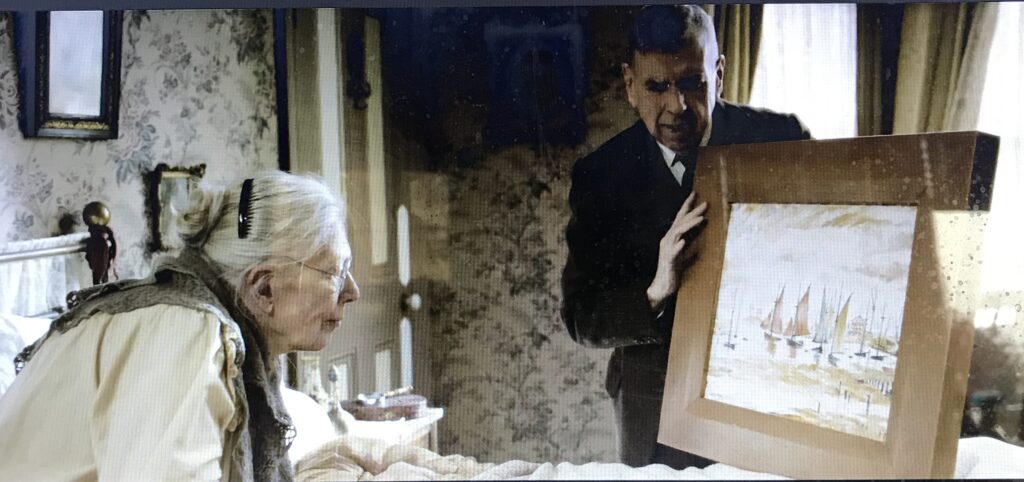
Whenever I see a movie has a bad review I make a point of watching it. Reviewers tend to be upper middle class control freak dictator politically correct types. They like history re written. Rewriters are out to brainwash all into the simplistic view of black good , white bad , woman good , man bad. So there is a problem with this film for them.
The brilliant Vanessa Redgrave , who found fame under Ken Russell’s direction in the 1960s , plays a snobbish bitter domineering mother. She pleads with her son never to leave her, compares him to his father as a loser who didn’t get anywhere in the commercial world, Lowry’s day job being a rent collector who gave money to the neighbourhood’s poor children , pretending he dropped it while blowing his nose.
The critics had the cheek to write that Redgrave, the equally brilliant Timothy Spall and script writer didn’t bring the painter to life . I will refrain from reviewing the reviewers here .
Spall, convincingly as Lowry, saw beauty in the stark grim industrial landscape. He shocked his mother for having sketched a lady with a perfectly combed clean beard he had seen on a bus, calling her beautiful, and a coal miner forced by his wife to use a tin bath outside their little house . Mother caled her son sick and wanted him to paint proper things like a bowl of fruit . Lowry pleads , on the verge of being driven to burn his paintings in the back yard , ‘I painted them all for your love. ‘ She tore up a letter inviting him to his own exhibition in London.; ‘Go on, burn them she screams.’
The film is testament to the power of mothers to help or harm . I was lucky enough to have an inetlligent also widowed mother whose family also fell on hard times, but she did not lay in bed all day complaining and blaming others for her downfall.
In my view this character , who meant no harm maybe , is a metaphor for bitter twisted feminists who think and act as if all men have something lacking and wrong with them , wanting them to do as they are told and ultimately destroying so much good , along with creativity, for the sake of their revolting lust for power and privilege .
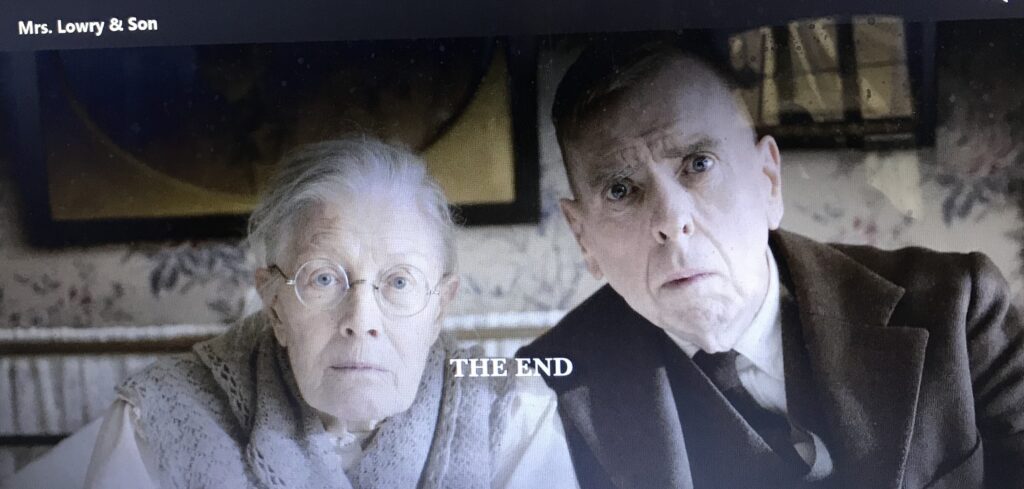
Critics just can’t stand anything negative said about women. They must have positive role models. Mrs Lowry was far from that. On the plus side she was a hell of a character and Lowry’s muse whether she wanted to be or not, him no doubt intensely aware of her abstract beauty as difficult as she was to live with . Beware feminists want women to be self righteous clones. Mrs Lowry was not that. She gave us a genius rather than a clone . Well done Little Films , Redrave and Spall.
R.J Cook
More Media Madness January 22nd 2021

Anyone with a brain should work out what is going on , as well as realsie lockdown has not and will not defeat a virus which by nature will go on mutating. The big difference with this virus is that all the signs point to bio engineering. R.J Cook



It scares me how the masses just fall into line. This site is already under police investigation and I have had some scary times in police custody.
I am taking a big risk with my editorial line in the British Police State. They say I am a paranoid bi polar schizophrenic, got a psychiatrist on my case. Have to repeat this warning as would not want to lead anyone one astray because I am officially delusional. R.J Cook
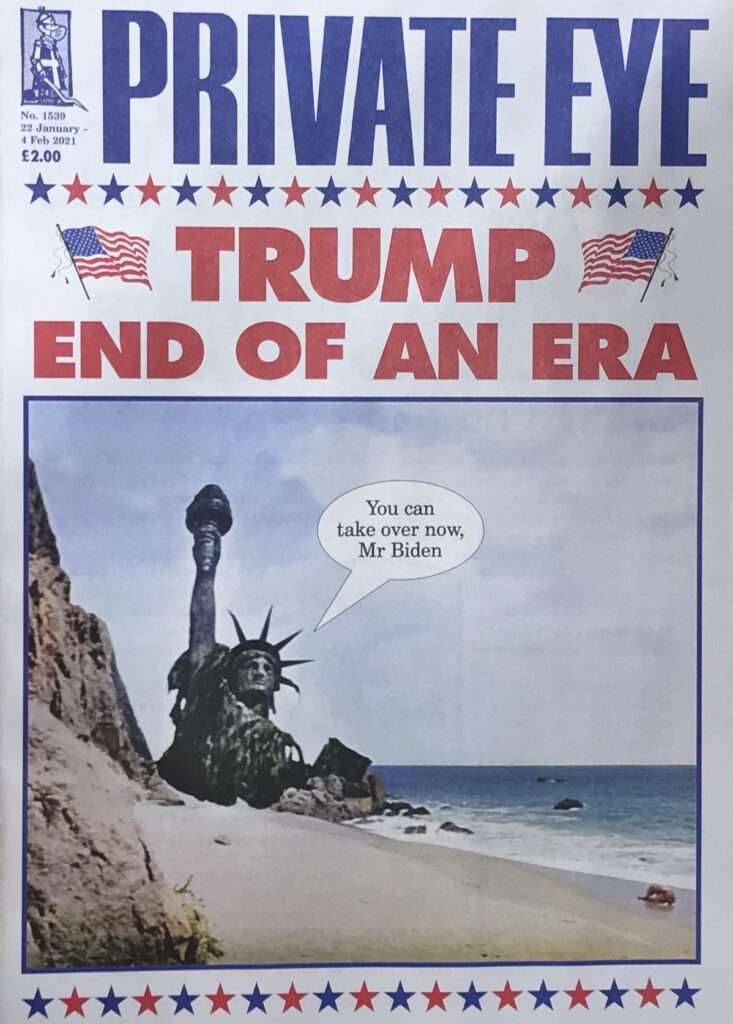
A Shift in American Family Values Is Fueling Estrangement Posted January 20TH 2021
Both parents and adult children often fail to recognize how profoundly the rules of family life have changed over the past half century.Joshua ColemanJanuary 10, 2021

Sometimes my work feels more like ministry than therapy. As a psychologist specializing in family estrangement, my days are spent sitting with parents who are struggling with profound feelings of grief and uncertainty. “If I get sick during the pandemic, will my son break his four years of silence and contact me? Or will I just die alone?” “How am I supposed to live with this kind of pain if I never see my daughter again?” “My grandchildren and I were so close and this estrangement has nothing to do with them. Do they think I abandoned them?”
Since I wrote my book When Parents Hurt, my practice has filled with mothers and fathers who want help healing the distance with their adult children and learning how to cope with the pain of losing them. I also treat adult children who are estranged from their parents. Some of those adult children want no contact because their parents behaved in ways that were clearly abusive or rejecting. To make matters worse for their children and themselves, some parents are unable to repair or empathize with the damage they caused or continue to inflict. However, my recent research—and my clinical work over the past four decades—has shown me that you can be a conscientious parent and your kid may still want nothing to do with you when they’re older.
Recommended Reading
- Can Children Be Persuaded to Love a Parent They Hate?Barbara Bradley Hagerty
- Dear Therapist: My Father and Grandmother Haven’t Spoken in 30 YearsLori Gottlieb
- Masters of LoveEmily Esfahani Smith
Read: Dear Therapist: My daughter hasn’t wanted a relationship with me for 25 years
However they arrive at estrangement, parents and adult children seem to be looking at the past and present through very different eyes. Estranged parents often tell me that their adult child is rewriting the history of their childhood, accusing them of things they didn’t do, and/or failing to acknowledge the ways in which the parent demonstrated their love and commitment. Adult children frequently say the parent is gaslighting them by not acknowledging the harm they caused or are still causing, failing to respect their boundaries, and/or being unwilling to accept the adult child’s requirements for a healthy relationship.
Both sides often fail to recognize how profoundly the rules of family life have changed over the past half century. “Never before have family relationships been seen as so interwoven with the search for personal growth, the pursuit of happiness, and the need to confront and overcome psychological obstacles,” the historian Stephanie Coontz, the director of education and research for the Council on Contemporary Families, told me in an email. “For most of history, family relationships were based on mutual obligations rather than on mutual understanding. Parents or children might reproach the other for failing to honor/acknowledge their duty, but the idea that a relative could be faulted for failing to honor/acknowledge one’s ‘identity’ would have been incomprehensible.”
The historian Steven Mintz, the author of Huck’s Raft: A History of American Childhood, made a similar observation in an email: “Families in the past fought over tangible resources—land, inheritances, family property. They still do, but all this is aggravated and intensified by a mindset that does seem to be distinctive to our time. Our conflicts are often psychological rather than material—and therefore even harder to resolve.”
In The Marriage-Go-Round, the Johns Hopkins University sociologist Andrew Cherlin wrote that starting in the late 19th century, traditional sources of identity such as class, religion, and community slowly began to be replaced with an emphasis on personal growth and happiness. By the second half of the 20th century, American families had gone through changes that, Cherlin said, were “unlike anything that previous generations of Americans have ever seen.”
Deciding which people to keep in or out of one’s life has become an important strategy to achieve that happiness. While there’s nothing especially modern about family conflict or a desire to feel insulated from it, conceptualizing the estrangement of a family member as an expression of personal growth as it is commonly done today is almost certainly new.
Of course, not all individuals base their ideas of family on these more individualized principles. “Most immigrant families, especially those in the first generation, still value interdependence and filial duty,” Mintz noted. “However, in recent decades the majority of American families have experienced weakening [extended] kin ties and high rates of mobility and dispersion. I would argue that these factors have made the opportunities for familial alienation greater than in the past.”
Estrangement seems to affect a small but significant portion of families in the United States, and it is happening today against a backdrop of record-high parental investment. During the past 50 years, people across the classes have been working harder than ever to be good parents. They have given up hobbies, sleep, and time with their friends in the hope of slingshotting their offspring into successful adulthood.
On the positive side, this increased investment of time and affection has meant that parents and adult children are in more consistent and positive contact than in prior generations. Due to the likelihood of divorce, many parents in the past half century have had reason to believe that the relationship with their child might be the one connection they can count on—the one most likely to be there in the future. Yet, in the same way that unrealistically high expectations of fulfillment from marriage sometimes increase the risk of divorce, unrealistically high expectations of families as providers of happiness and meaning might increase the risk of estrangement.
Studies on parental estrangement have grown rapidly in the past decade, perhaps reflecting the increasing number of families who are affected. Most estrangements between a parent and an adult child are initiated by the child, according to a 2015 survey of more than 800 people. A survey of mothers from 65 to 75 years old with at least two living adult children found that about 11 percent were estranged from a child and 62 percent reported contact less than once a month with at least one child.
In these and other studies, common reasons given by the estranged adult children were emotional, physical, or sexual abuse in childhood by the parent, “toxic” behaviors such as disrespect or hurtfulness, feeling unsupported, and clashes in values. Parents are more likely to blame the estrangement on their divorce, their child’s spouse, or what they perceive as their child’s “entitlement.”
While estrangement can occur for many reasons, divorce appears to heighten the risk for both mothers and fathers—especially fathers. Fathers are also at greater risk of being estranged from their kids if they were never married to the mother, and might have more distant relationships with their children if they remarry later in life. In my survey of more than 1,600 estranged parents summarized in my forthcoming book, Rules of Estrangement, more than 70 percent of respondents were divorced from the estranged child’s other biological parent.
Why would divorce increase the risk? In my clinical work I have seen how divorce can create a radical realignment of long-held bonds of loyalty, gratitude, and obligation in a family. It can tempt one parent to poison the child against the other. It can cause children to reexamine their lives prior to divorce and shift their perspective so they now support one parent and oppose the other. It can bring in new people—stepparents or stepsiblings—to compete with the child for emotional or material resources. Divorce—as well as the separation of parents who never married—can alter the gravitational trajectories of a family so that, over time, members spin further and further out of one another’s reach. And when they do, they might not feel compelled to return.
But in other cases, estrangement is born from love. One of the downsides of the careful, conscientious, anxious parenting that has become common in the United States is that our children sometimes get too much of us—not only our time and dedication, but our worry, our concern. Sometimes the steady current of our movement toward children creates a wave so powerful that it threatens to push them off their own moorings; it leaves them unable to find their footing until they’re safely beyond the parent’s reach. Sometimes they need to leave the parent to find themselves.
Read: “Intensive” parenting is now the norm in America
And sometimes children feel too much responsibility for their parents’ happiness. I often hear estranged adult children request better boundaries from their parents as a condition of reconciliation. As Andrew Solomon wrote in Far From the Tree, “There is no contradiction between loving someone and feeling burdened by that person. Indeed, love tends to magnify the burden.”
Many fathers and mothers tell me they feel betrayed by their children’s lack of availability or responsivity, especially those who provided their children with a life they see as enviable compared with their own childhoods. As the University of Virginia sociologist Joseph E. Davis told me, parents expect a “reciprocal bond of kinship” in which their years of parenting will be repaid with later closeness. The University of Chicago philosophy professor Agnes Callard told me in an interview that this expectation of reciprocity is fraught because “today, the boundary of parenting is unclear. If receiving shelter, food, and clothing is enough, then most of us should be grateful to our parents, irrespective of how our lives go.” However, if parents are supposed to produce happy adults, then, fairly or not, adult children might hold parents responsible for their unhappiness.
In my experience, part of what confuses today’s parents of adult children is how little power they have when their child decides to end contact. From the adult child’s perspective, there might be much to gain from an estrangement: the liberation from those perceived as hurtful or oppressive, the claiming of authority in a relationship, and the sense of control over which people to keep in one’s life. For the mother or father, there is little benefit when their child cuts off contact. Parents instead describe profound feelings of loss, shame, and regret.
While most of the research focuses on parents and adult children, estrangements among other family members might not be uncommon. The University of Washington communications professor Kristina Scharp found that estrangements between parents and adult children often ripple out to create other types of family schisms. In a forthcoming study of sibling estrangement, the Edge Hill University lecturer Lucy Blake found that arguments over caregiving for aging parents were a common cause of these rifts, as was sibling abuse. She also found that estranged siblings often reported having been treated worse by their parents than their other siblings.
After becoming estranged from her own parents, the journalist and researcher Becca Bland started Stand Alone, a charitable organization in the U.K. that provides education and support for people estranged from their families. (I’m also starting a training program on estrangement with Bland this year.) She notes that before considering estrangement, it is vital to let the parent know more about what is creating the conflict. “While an estrangement may be very necessary, it’s important that you give your parents time and opportunity to hear your perspective and what you want them to change,” Bland said in an email. To those who are open to reconciliation, I would also propose working with a family therapist or mediator to talk through sensitive or painful subjects with your parents.
Because the adult child typically initiates the estrangement, parents are often the ones who must take the first steps toward reconciliation. In my practice and in the survey I conducted, I have seen that when reconciliations happen, parents often attribute successful reconnection to efforts on their part to make amends, such as taking responsibility for past harms; showing empathy for the adult child’s perspective and feelings; expressing willingness to change problematic behaviors; and accepting their child’s request for better boundaries around privacy, amount of contact, and time spent with grandchildren. It’s also crucial to avoid discussions about “right” and “wrong,” instead assuming that there is at least a kernel of truth in the child’s perspective, however at odds that is with the parent’s viewpoint.
Fathers often seem less willing to accept those conditions than mothers. Mothers’ willingness to empathize or work to understand the child’s perspective might result from the ways in which women are held to a higher standard of responsibility for maintaining family relationships than men are. Fathers are deeply wounded by estrangements too, but men’s tendency to cover depression with anger, social withdrawal, and compartmentalization might make them look less affected than they actually are. They might also feel that pushing back on the child’s requests is more in line with their ideals of masculinity and maintaining authority in the relationship.
There are good and bad features of modern family life, in which relations are often based more on ties of affection than on duty or obedience. In these times, the people we choose to be close to represent not only a preference, but a profound statement of our identities. We are freed to surround ourselves with those who reflect our deepest values—parents included. We feel empowered to call on loved ones to be more sensitive to our needs, our emotions, and our aspirations. This freedom enables us to become untethered and protected from hurtful or abusive family members.
Yet in less grave scenarios our American love affair with the needs and rights of the individual conceals how much sorrow we create for those we leave behind. We may see cutting off family members as courageous rather than avoidant or selfish. We can convince ourselves that it’s better to go it alone than to do the work it takes to resolve conflict. Some problems may be irresolvable, but there are also relationships that don’t need to be lost forever.
It is sometimes tempting to see family members as one more burden in an already demanding life. It can be hard to see their awkward attempts to care for us, the confounding nature of their struggles, and the history they carry stumbling into the present. It can be difficult to apologize to those we’ve hurt and hard to forgive those who have hurt us. But sometimes the benefits outweigh the costs. Tara Westover wrote in her memoir, Educated, “I know only this: that when my mother told me she had not been the mother to me that she wished she’d been, she became that mother for the first time.”
We are all flawed. We should have that at the forefront of our minds when deciding who to keep in or out of our lives—and how to respond to those who no longer want us in theirs.Joshua Coleman is a psychologist and senior fellow at the Council on Contemporary Families, and the author of the forthcoming book Rules of Estrangement: Why Adult Children Cut Ties and How to Heal the Conflict.
Government officials need to consider regulating the algorithms that drive news, Twilio CEO Jeff Lawson says
Published Tue, Jan 12 202110:27 AM ESTUpdated Tue, Jan 12 20213:19 PM EST
Points
- Twilio CEO Jeff Lawson, a supporter of President-elect Joe Biden, said the U.S. government must take a closer look at regulating social media algorithms that dictate what we “see and read,” in order to combat disinformation.
- Lawson confirmed Tuesday on CNBC’s “Squawk Box” that the cloud communications platform ended its relationship with social media application Parler.
The U.S. government should consider regulating social media algorithms that drive “what we as consumers see and read every day,” Twilio CEO Jeff Lawson said in an interview with CNBC.
Twilio, a cloud communications platform, is one of several large U.S. technology companies that have cracked down on removing content and applications that promote violence in the wake of the U.S. Capitol riot Wednesday. Lawson confirmed Tuesday that Twilio told popular conservative social media application Parler it was “in violation of our terms of service,” leading to Parler ending its integration with Twilio.
“I think our government leaders should seek to understand the role of algorithmic systems in driving what we as consumers see and read every day, because I think that is uncharted territory for how technology is affecting individuals all the way up to the societal level,” Lawson told CNBC’s “A View from the Top.”
“Government officials should seek to understand how algorithms work and what they optimize for and what’s the societal impact of that. Because that’s the biggest externality that you see today in some of the technology that society has not figured out what to do with it. And I think the impacts of it are pretty wide-reaching.”
Amazon Web Services, Zendesk and Okta joined Twilio in pulling its services from Parler in recent days. There’s been a significant shift among technology companies in the past few days of removing speech that incites violence, including Twitter’s permanent ban of U.S. President Donald Trump. Still, future government intervention, regulation or potential congressional laws regarding how to police hate speech and disinformation will need to be ironed out in President-elect Joe Biden’s administration, which begins next week.
Lawson has publicly supported Biden and donated to his presidential campaign to defeat Trump. He told CNBC that Biden’s attention to science and policy, and shift away from tribalism, will be a welcome change for the U.S.
Lawson dismissed the notion that certain technology companies would start to take on customers based on politics.
“What we’re talking about here is hate speech and threats of murder,” Lawson said on CNBC’s “Squawk Box.” “That’s not normal public speech that we’re used to in our society. This is fringe stuff. What we’re trying to say is that the vast minority of people who engaged in fringe talk of hate speech and murder and overthrowing governments, that’s what’s not allowed. I’m pretty sure that most rational people would agree that that type of content, most of which is illegal, should not be a part of mainstream services.”
The Planet Eaters January 16th 2021
| We must impose democratic obligations on the leading digital players Posted January 16th 2021 |
| After overlooking the fake news and hate speech that Trump posted throughout his four years as US president, Twitter unilaterally decided on 8 January to permanently close his @realDonaldTrump account and then, a few days later, 70,000 other accounts linked to the pro-Trump QAnon movement. Facebook, Instagram and Twitch also suspended the presidential accounts for an unspecified period, while Amazon then suspended the pro-Trump social media Parler. All of these decisions were taken by private-sector companies without any democratic or judicial control! The laws of the public arena used to be established by parliaments and enforced by judges, but private-sector corporations are now in charge. Their norms are not defined within a democratic framework with checks and balances, they are not transparent and you cannot appeal to any court before they are carried out. The organization of the online public arena should not be left to market forces or individual interests. It was to propose democratic safeguards for the digital arena that RSF launched:  The Forum on Information and Democracy in November 2019 with 11 organizations, research centres and think-tanks based in all continents. In November 2020, it published 250 recommendations on platform transparency, content moderation, the promotion of the reliability of information, and messaging apps when their massive use goes beyond the bounds of private correspondence. The Forum on Information and Democracy in November 2019 with 11 organizations, research centres and think-tanks based in all continents. In November 2020, it published 250 recommendations on platform transparency, content moderation, the promotion of the reliability of information, and messaging apps when their massive use goes beyond the bounds of private correspondence.  The Journalism Trust Initiative (JTI), which is producing a set of machine-readable standards so that search engine algorithms can give preference to media that adhere to journalistic methods and ethics. These standards, which can also be used by advertisers, are the result of a self-regulatory initiative in which entities from all over the world collaborated under the aegis of the European Committee for Standardization (CEN). The Journalism Trust Initiative (JTI), which is producing a set of machine-readable standards so that search engine algorithms can give preference to media that adhere to journalistic methods and ethics. These standards, which can also be used by advertisers, are the result of a self-regulatory initiative in which entities from all over the world collaborated under the aegis of the European Committee for Standardization (CEN). |
R.J Cook January 16th 2021
Faking or using the news ? January 13th 2020
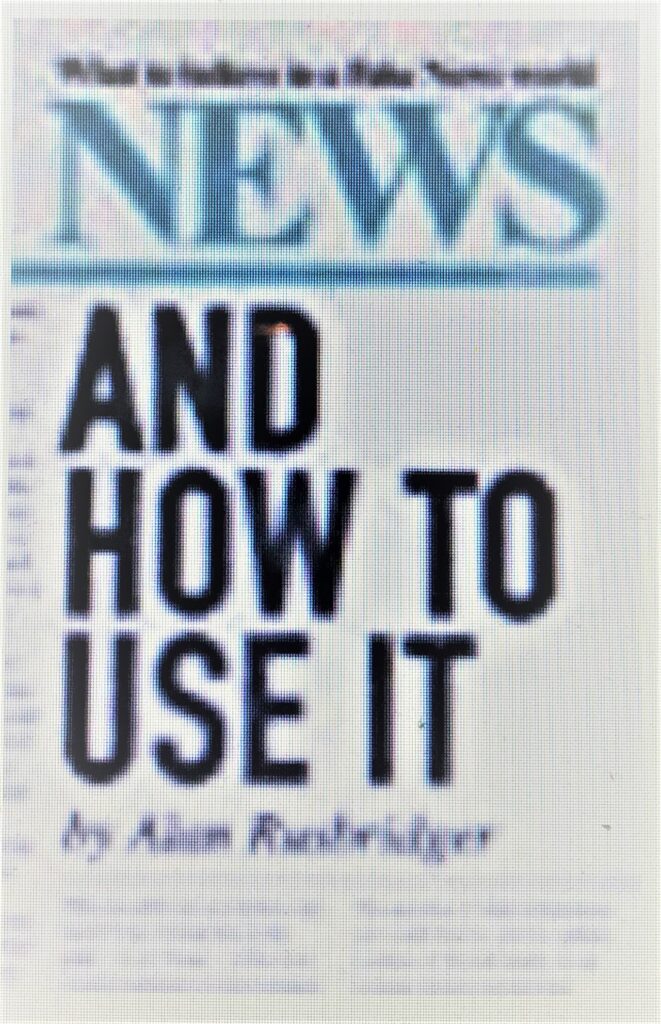
Interviewed on RTs ‘Going Underground’ posh Rushbrdger turned Oxford College boss, speaking from his Gloucestershire retreat, seemed rather surprised when it was suggested he might be extradited to the U.S.A. That just doesn’t happen to British upper middle classes like him and his journalist daughter Bella ( short for the posh name Annabella. ). R,J Cook
Alan Charles Rusbridger is a British journalist, Principal of Lady Margaret Hall, Oxford and the former editor-in-chief of The Guardian. Rusbridger became editor-in-chief of The Guardian in 1995, having been a reporter and columnist earlier in his career. WikipediaBorn: 29 December 1953 (age 67 years), Lusaka, ZambiaSpouse: Lindsay Mackie (m. 1982)Children: Isabella RusbridgerParents: B.E. Wickham Rusbridger, G.H. RusbridgerEducation: Magdalene College, University of Cambridge, University of Cambridge, Harlow College
Rusbridger was born in Lusaka,[2] Northern Rhodesia, a protectorate (now Zambia), the son of B. E. (née Wickham) and G. H. Rusbridger, the Director of Education of Northern Rhodesia. When Rusbridger was five, the family returned to Britain[2] and he was educated at Lanesborough Prep School, Guildford, where he was also a chorister at Christ Church, and Cranleigh School, a boys’ independent school in Surrey. At Magdalene College, Cambridge, he read English Literature. During the vacations of his first two years at university, he worked for the Cambridge Evening News as an intern, and accepted a job offer from the newspaper after graduation. He stayed with the Evening News until 1979.[2]
He then joined The Guardian as a reporter, and subsequently wrote the paper’s diary column and later became a feature writer. In November 1985, Rusbridger had a brief stint as a Royal reporter following the Prince and Princess of Wales around Melbourne, Australia. Fascinated by gadgets, at this stage he was already using a Tandy word processor and an early (slow) modem to file stories back to London.[7] He left in 1986 to become TV critic of The Observer, then an entirely separate newspaper, before moving to America to be the Washington editor of the short-lived London Daily News in 1987.[8]
Britain’s Place in the world. R.J Cook – also published on the Global News Page. January 6th 2021
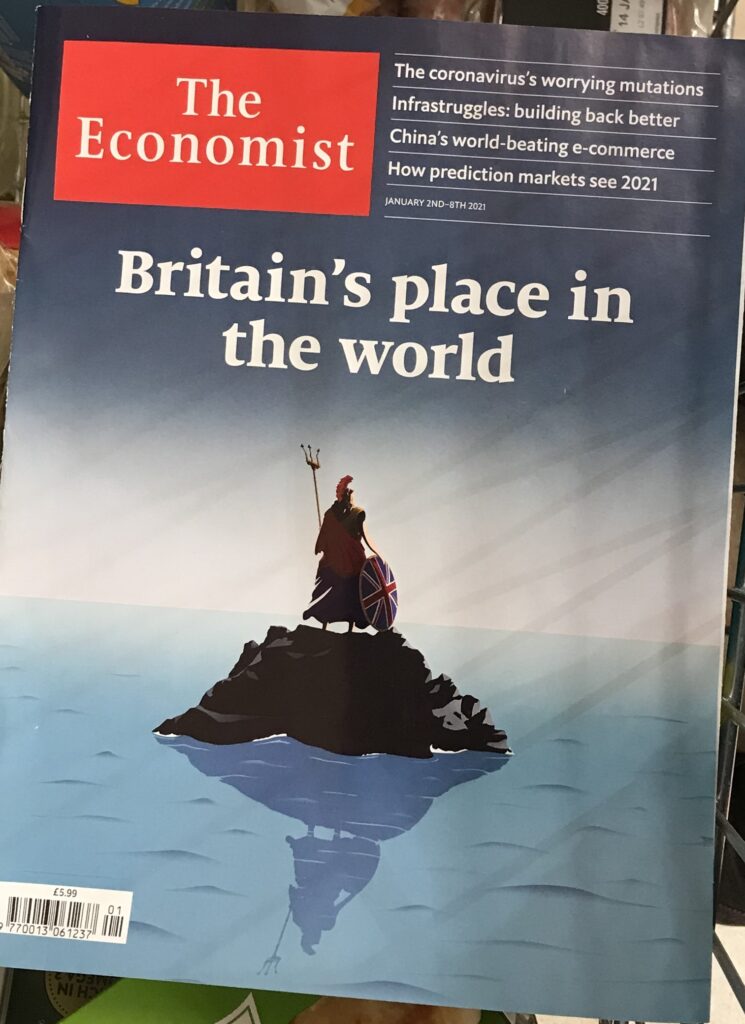
The fact that millions of migrants and alleged refugees make a beeline across Europe and the treachorous English channel for a better life, speaks volumes for how awful it is in the old Third World, run mainly by black bigots, white multinationals and religious lunatics, . As my late mother used to say ‘Where ignorance is bliss, it is folly to be wise.’
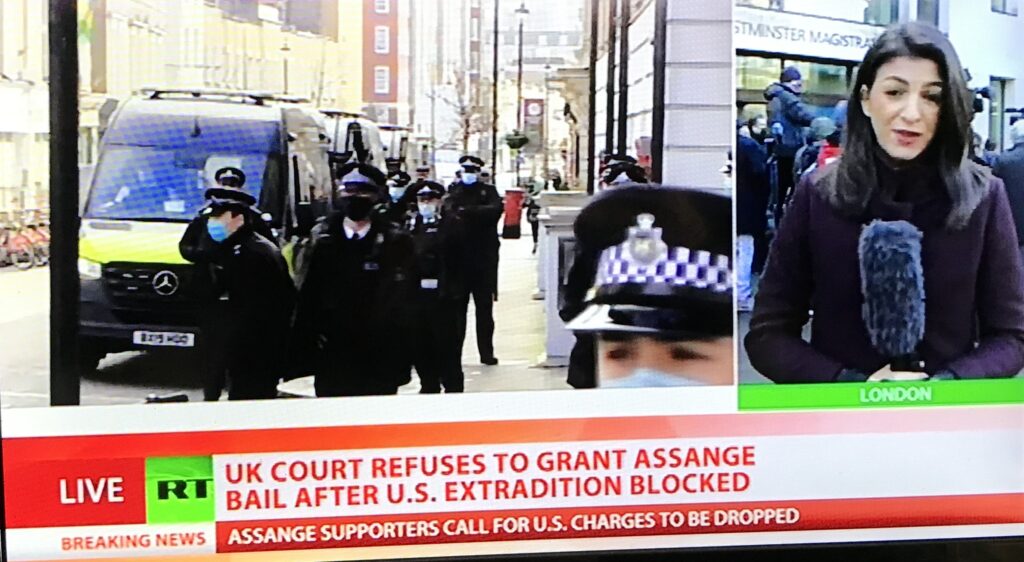
The fate of whisteleblower and publisher Julian Assange tells us all we need to know about Britain’s version of democracy. The ruling elite call it representative democracy, yeh, well representative of them may be, but not what most intelligent honest people would call democracy.
The Anglo- US Deep States were caught out by Assange leaking Chelsea Manning’s stolen documents revealing , among other things, U.S War Crimes in a war significantly faciliated by Britain’s Tony Blair, with Press Officer Alistair Campbell, using a fake dossier about ‘weapons of mass destruction. The Weapons Inspector, Dr David Kelly, who rubbished the claims, later died, after being hounded by elite owned press lackeys, in what many believe was a British Intelligence service faked suicide murder.
The stakes are high for these ruthless people. But British en masse are selfish cowards, they also know the system will label and destroy any opponent. Time in the cells is very frigtening, as I know from much experience. Only Russians and Chinese are baddies. Trump would not dare pardon Assange. It would be all the ‘evidence’ the fake democrats’ need to finally convict him of being a Russian agent..
The odd couple of Blair and Campbell, with dopey feminised parliamentary backing – I attended a party at the House of Commons when all of this was going on- started the war, helping George Bush Junr, complete what his father deliberately fell short of in 1990, destroying Saddam Hussein, the man who fought a proxy war for them , against Iran to please Israeli money, over 7 years, then broke OPEC price fixing to rebuild his country. This all came out through leaks. They needed an oil panic and price rise for Texas and Saudi oil billionaires. All very simple.
The end result was destroying the Middle Eastern social fabric and openining the door to the mass migration into Europe from there, North and West Africa when they extended their ‘ethical’ ( sic ) foreign policy to Libya and Syria. Covid 19 lockdown and fear montering is a perfect distraction , smokescreen and block on protest regards these rolling wars. To add insult to injury , this proected elite blame us, the white underclass, for racism and slavery !. The eliet then use dopey schoolteacher to roll out the rainbow multi culture to deal with conflicts caused by Islam and feminism , labelling parents who don’t approve.
Briatin has the nastiest smoothest most patronising effective elite, with an army of lackeys to keep the lid on reality, criminalising or labelling as mad anyone who steps out of line. But don’t worry, they are ‘protecting the NHS, the elderly, obese and other and vulnerable.’ No wonder people like me are either thinking about or committng suicide. I find it a job not to be sick every time I wake up.
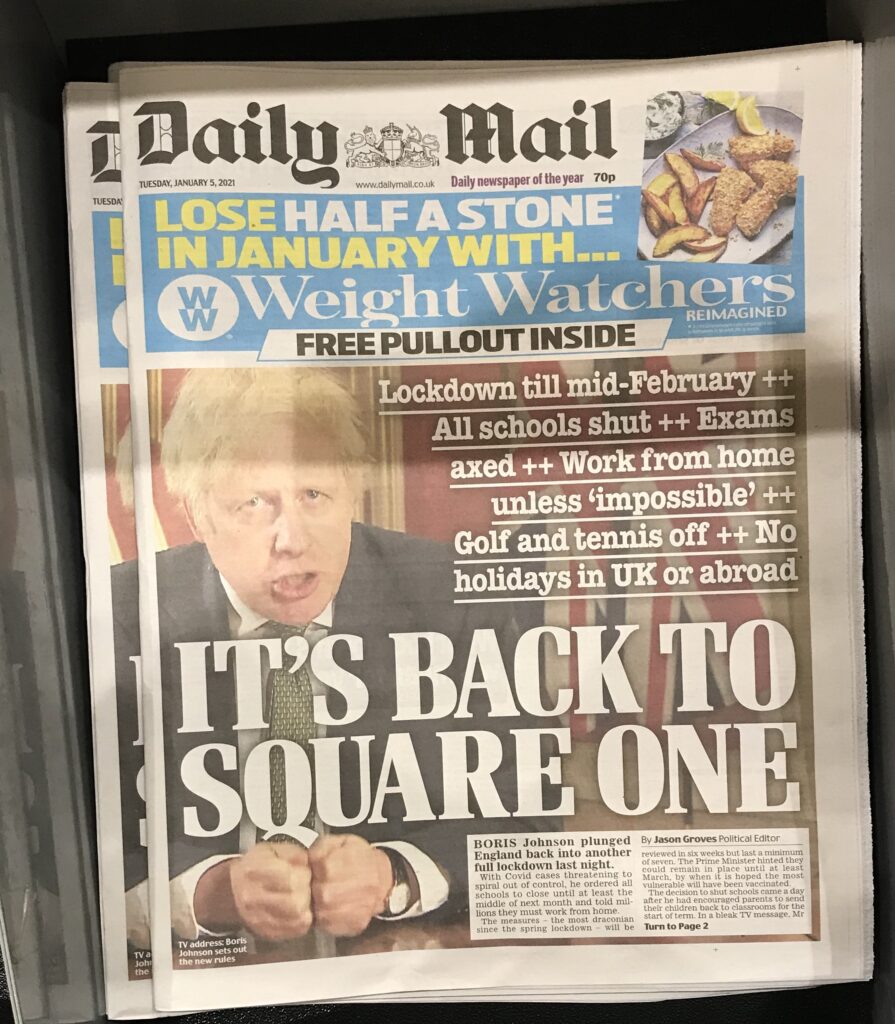
If it is back to square one, why should we even flatter the so called ‘scientists ‘ for their predictions and ‘remedies’ which don’t even deserve the flattering name of guesswork artists when they are all for blatant propaganda and fear mongering manipulation?

I have never understood the British and wider world’s obsession with women’s bums let alone anal sex. The anthropologist Dr Desmond Morris, in his work ‘The Naked Ape’ explained bum fixation along the lines that buttocks reminded would be impregnators of the comforting site of mummy’s milk laden life sustaining breasts.
Still the hygiene issues of probing where the faeces emits is pretty disgusting but appealing to many – I know the idiot vindictive police have been hoping to catch me at it with men for years – they still have a case on file rather than face the truth and legal action. That story is covered elsewhere. That is because the British police employ sickos, weirdoes, paedophiles , bullies and fantasists. But I digress.
This picture of women’s fetishistic ridiculous ‘pantie covered’ bulbous cellulite troubled bottoms, says a lot about toilets and women’s underwear fetishistic sad sicko pathetic big headed moronic Britain. Guessing whose bottom the pictures belong to, is something not even apes would bother to do. But as the Trans Exclusionary Feminists ( Terfs ) demonstrate, the Brits are obsessed with public toilets, vaginas , tits and bums.
Pity they are not more interested in personalities. It is high time the judges were judged. Our highly esteemed Christians go to church, shameless hypocrits. Ask them where it is written ‘Judge not lest ye be judged’ and they won’t be able to tell you unless they are linked to the clerical world which is totally out of touch with reality and hypocritical in its own patronising money grabbing way. By the way, especially for moron U.K cops who monitor this site, the ‘Sexy Me’ page is a piss take especially for you to enjoy while you are polishing your helmets.
Thankfully greedy local councils are selling all these public toilets off. Who needs them with lockdwon anyway ? Oh yeh, the homeless, record numbers rising every day, they will have to pee and sh-t in the street, and maybe die soon because the Covid Billioanires won’t help them.


Talking of sicko weirdo pervert police in the U.K, should there be any need to debate their dismissal ? Yes, because if you get rid of them all , how many will be left ? They used to say, set a thief to catch a thief, so maybe set a pervert to catch a pervert. Maybe that’s the sort of cop they send into men’s toilets to catch gays ? How many British Police Officers do you need to hear the truth ? Don’t know because it never has and never will happen.
Twitter Nukes Alleged Hunter Biden Sex Tape After Letting Borat-Giuliani Sex Scene Trend Posted December 19th 2020
A few days ago, the MSM and their political allies in the Democratic Party celebrated the release of a “compromising” photo appearing to show former NYC Mayor Rudy Giuliani with his hands down his pants. Giuliani claimed that he was merely retucking in his shirt after removing some recording equipment, but nevertheless, the whole news cycle played out in full view of the public as social media giants like Twitter and Facebook looked the other way, allowing the photo, and links to news stories covering the controversy (orchestrated by “Borat” prankster Sasha Baron Cohen) to circulate widely.
However, just days later, a Chinese digital media company has published footage showing a man who looks identical to Hunter Biden engaging in a sex fetish act with an unidentifiable woman (along with a photo purporting to show what appears to be the same man engaging in sex with a Ukrainian prostitute). But instead of allowing discussion and links to the video to circulate, Twitter has scrubbed all links and photos related to the video and story, and is suspending accounts that appear to be trying to spread the video or screenshots from the footage.
Some background: Late Saturday afternoon, a mysterious link surfaced on Reddit purporting to be the vaunted Hunter Biden sex tape – or at least, one of the Hunter Biden sex tapes (whispers about more footage have so far gone unsubstantiated).
In it, a naked Hunter Biden can be seen, smoking crack, and laying with an unidentified woman, possibly a prostitute. The woman’s face is blurred out, making it impossible to tell whether or not she appeared to be underage.
The video itself was posted by a news site purporting to be an anti-CCP intelligence operation called G-TV, which is also tied to Guo Wengui, the Chinese billionaire dissident who is close to Steve Bannon (Bannon was reportedly arrested after a visit on Guo’s yacht in Connecticut).
Interested parties can find the video here.
Footage of the sex act is preceded by footage of Guo Wengui at the national press club raging over a Chinese takeover of the US, “9/11 times a thousand,” he says, before transitioning to a screed slamming Western politicians who collaborate with the CCP, and warning about the dangers of American kleptocrats falling sway to CCP “influence” (blackmail etc).
During the opening minutes if the video, Hunter can be heard complimenting the woman on her technique. “That’s so professional,” Hunter exclaims. “You can’t even find that on there,” he laughs as he gestures toward something off camera.
A few minutes in, the man who is allegedly Hunter Biden can be seen firing up a crack pipe.
The reaction on Twitter was swift. Users who tried to share the link and photos were quickly blocked (even though Twitter famously allows porn and nudity). Some cracked jokes about Hunter Biden receiving what appeared to be a ‘footjob’, while shrugging off the video as simply evidence that Biden has been victimized by revenge porn.
I just watched Hunter Biden get a foot job I think
— Cassandra Scarebanks? (@CassandraRules) October 24, 2020
Others focused on the statement at the beginning of the video, which also begins with footage of an unrelated event.
?This message is extremely important. Please read it. The sex tape is to prove the CCP’s BGY & their possessions of such content. Anything involving children can’t be released to public. They DO EXIST & have been verified by multiple reporters. #HunterBiden #BidenCrimeFamiily pic.twitter.com/TEcSif1L1v
— Judy.Anderson茱迪 (@JudyAnd56006226) October 24, 2020
Of course, now that actual pornographic footage of Hunter Biden has been produced, the world will stop and wonder: could these other rumors be true?
hunter biden sex tape pic.twitter.com/SjHqIFVxEq
— Luke Mahler (@lukecmahler) October 24, 2020
Even some conservatives urged the public not to share the Hunter Biden “revenge porn”.
Disgusted with people sharing Hunter Biden revenge porn. What the fuck. Completely vile on its own and it obfuscates the legitimate corruption issues. Be better. Fuck!
— Cernovich (@Cernovich) October 24, 2020
Others simply noted the disparity in treatment between the Hunter Biden story and the “Borat” revelations about Giuliani, and wondered aloud how Twitter might be handling this if those photos were of Donald Trump Jr., not Hunter Biden.
Of course, twitter didn’t simply ignore the Giuliani photo; the news became one of the top trending topics (thanks to the fact that Twitter’s user-base skews toward young leftists).
Everyone tweeting that Hunter Biden video is getting locked out and tweets are being disappeared
Twitter also promoted a doctored video of Rudy Giuliani this week claiming it was sexual
— Jack Posobiec ?? (@JackPosobiec) October 24, 2020
One Twitter used even proclaimed that Hunter was really “a victim” of his father, Joe Biden.
Just saw Hunter Biden’s sex tape. DO NOT WATCH IT. It is basically a 50-year-old guy smoking crack getting a blowjob from someone who may or may not be underage. The issue isn’t Hunter. The issue is the father who made him sell his influence. Hunter is a victim.
— @amuse (@amuse) October 24, 2020
At any rate, the group that released the footage and the above-mentioned screenshot are promising to release more compromising material, while the MSM and Big Tech rallies to Hunter Biden’s defense. —————————————————–
The corrupt establishment will do anything to suppress sites like the Burning Platform from revealing the truth. The corporate media does this by demonetizing sites like mine by blackballing the site from advertising revenue. If you get value from this site, please keep it running with a donation. [Jim Quinn – PO Box 1520 Kulpsville, PA 19443] or Paypal Emigrate While You Still Can!
John le Carré Knew England’s Secrets December 16th 2020
He revealed more about the country’s ruling class than any political writer of his era. Tom McTaguek.
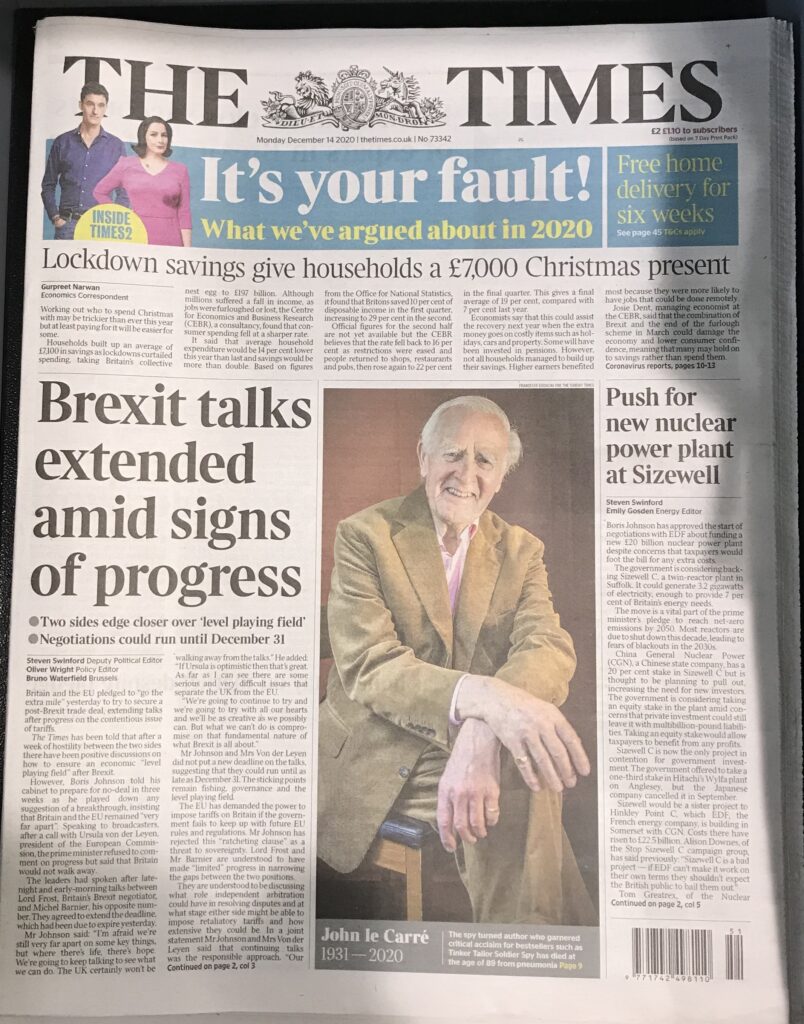
Writing about John le Carré is intimidating. Writing an appreciation after he has died feels doubly so. In some ways, this fear says much about the England that le Carré was so masterful at capturing: the class consciousness and fear of straying beyond your place. Le Carré inhabited an England beyond my horizons, not just the cloak-and-dagger one, but the one that exists at Eton and at Oxford and in many parts of London, lands that remain foreign to most of us. To write about him, then, is to risk exposing yourself—for missing the subtlety of a particular line of dialogue, or the joke woven into a novel that others can see because they know and you don’t.
Many of us relied on le Carré to reveal our own country to us. Through his novels, we got to spy on England’s crumbling ruling class. In A Perfect Spy, seen by many as le Carré’s autobiographical masterpiece, he writes that our rulers are not bad people, just “men who see the threat to their class as synonymous with the threat to England and never wandered far enough to know the difference.” Le Carré is not only an English shapeshifter, a man who bridges classes and professions, but one who knows the world beyond England too.
Because of this, le Carré, who died of pneumonia yesterday at 89, is a hero for many Englishmen like me, those who move between the subtle strata of England’s classes, each heaped on top of the other, the lines between them difficult to discern. The son of a con man who smuggled his son into the English upper class through boarding school, le Carré went on to be a student at Oxford, a teacher at Eton, and, of course, a spy, before becoming a writer. Even as David Cornwell—the novelist’s real name—he was a romantic figure, the liver of an unobtainable life, one of us and one of them. Who hasn’t secretly wanted a tap on the shoulder to see whether you would be prepared to serve Queen and country; to have country houses, where one could read medieval German poetry and deal with Hollywood filmmakers; and to live during the Cold War, when Britain still had an idea, and a side—when it was still just about able to convince itself that it was not the “poor island with scarcely a voice” that le Carré identified.
More Stories
- John le Carré Goes Back Into the Cold David Ignatius
- The Decline of the American World Tom McTague
- Martin Amis Goes Out With a Bang James Parker
The thing about le Carré is that he was so penetrating. Reading a le Carré novel often feels more revelatory about England, and the world, than any op-ed. Because he was writing fiction, he captured the real motivations of men—and they were usually men—who drove politics, and so got to something we journalists usually cannot. Almost every le Carré novel I have is full of pages whose corners are folded down to mark something that I thought was especially great and that I could squirrel away for a future piece to make me look clever or well read.
In A Perfect Spy, he writes of America, “No country was ever easier to spy on … no nation so open-hearted with its secrets, so quick to air them, share them, confide them.” Presenting the country as the opposite of England, rather than its logical extension as is often assumed, he continued: “They loved their prosperity too obviously, were too flexible and mobile, too little the slaves of place, origin and class.” Driving through Ohio, welcomed into homes and college campuses to report on American decline and rebirth, I remember thinking of these lines.
Or listen to him on political fanaticism in Tinker Tailor Soldier Spy, writing of Karla, the Russian spy chief: “Karla is not fireproof, because he’s a fanatic. And one day, if I have anything to do with it, that lack of moderation will be his downfall.” It is an insight that has stuck with me since.
Yet the most penetrating observations in his espionage novels were not about foreign adversaries or global conflict—they were about decaying old England. “They are the body corporate I once believed was greater than the sum of its parts,” he wrote of the ruling class in A Perfect Spy. “In my lifetime I have witnessed the birth of the jet aeroplane and the atom bomb and the computer, and the demise of the British institution.” It is impossible not to read those lines and think of Brexit and the disastrous response to COVID-19.
So who are the ruling class? “The privately educated Englishman is the greatest dissembler on earth,” le Carré’s most famous character, George Smiley, says in The Secret Pilgrim. “Nobody will charm you so glibly, disguise his feelings from you better, cover his tracks more skilfully or find it harder to confess to you that he’s been a damn fool.” Who today can look at the former premier David Cameron, or current Prime Minister Boris Johnson—both the products of Eton and Oxford—and not smile reading these lines?
To watch Johnson in particular—a cosmopolitan with a bohemian multicultural background, born in New York, named after a Russian, great-grandson to an assassinated Turk, who nevertheless presents himself as the most English person of all—is to see the shadow of Jerry Westerby, the tragic hero in The Honourable Schoolboy, another outsider inside the upper class, like le Carré himself. Westerby’s speech is full of “good old boys” and the like. But, as le Carré writes, there is a “hardness buried in the lavishness.” And, as with all le Carré’s characters, a romanticism underneath the world-weary cynicism.
Le Carré also presents a bygone Englishness that many of us wish still existed. How, for example, does Smiley react to his ultimate victory in Smiley’s People? “Did I?” He responds to the news that he has prevailed over his nemesis. “Yes. Yes, well I suppose I did.” Oh, how Johnson must wish he could find a way to reenact that scene with Brexit, or the coronavirus. Did I win? Oh, yes, I suppose I did. England’s tragedy today is that it has allowed the part of the understated victor to slip from its grasp; now it must beat its chest in a way Smiley would loathe.
In fact, the reality is that the English upper class doesn’t just con its fellow countrymen, but the wider world as well. I’ve lost count of the number of times European diplomats and officials have told me of the brilliance of the old British civil service before Brexit. Even as the wool is pulled from their eyes, they still don’t see that they’ve been conned, that the British foreign office was never a Rolls-Royce, just richer and better dressed than it is today. Even now, a certain type of Englishman, eyebrow permanently raised, can prosper mightily abroad by presenting this same cultured cynicism and easy wit.
Smiley is the central hero of le Carré’s works, and like le Carré himself, the kind of hero a certain part of England loves: calm and pudgy and resolute and cultured, driven by inner passions that he must occasionally escape to the countryside to soothe lest they overwhelm him. “George doesn’t alter,” le Carré writes in A Legacy of Spies, his final Smiley novel. “He just gets his composure back.” He is a cynical romantic with a terrible domestic life who commits himself to England for reasons he is never quite sure of—a player of the great game, but wise to it. He is an outsider uncomfortable in any social class, but capable of moving through them all. To be English, after all, is to always feel a little bit out of place, even in England.
Smiley—and, by extension, le Carré—also embodies a different England. In A Legacy of Spies, Smiley looks back on his career and what it was all for. Was it for world peace, whatever that is? “Yes, yes of course.” But that’s not really the answer. “In the great name of capitalism? God forbid. Christendom? God forbid again.” So was it all for England, Smiley wonders. Perhaps. He is a patriot, but a moderate one. And, anyway, he asks: “Whose England? Which England? England all alone, a citizen of nowhere?”
This is le Carré the fierce anti-Brexiteer, whose politics were never far from the surface in his novels. “I am European,” Smiley says. “If I had a mission—if I was ever aware of one beyond our business with the enemy, it was to Europe. If I was heartless, I was heartless for Europe. If I had an unattainable ideal, it was of leading Europe out of her darkness towards a new age of reason. I have it still.”
In A Perfect Spy, le Carré is back grappling with the same question of human motivation. What is it that drives us to spy or fight or hope or kill? For England, or for class, or for Europe, or for America? Under all of it, he was also a kind of romantic, just one who is well hidden. I wonder if it’s for this reason that Smiley and his creator remain the heroes many of us Englishmen most want to be? But enough of that, or as Smiley himself said, closing le Carré’s final Smiley novel, “Forgive me, Peter. I am pontificating.”
Tom McTague is a London-based staff writer at The Atlantic, and co-author of Betting the House: The Inside Story of the 2017 Election.
December 14th 2020
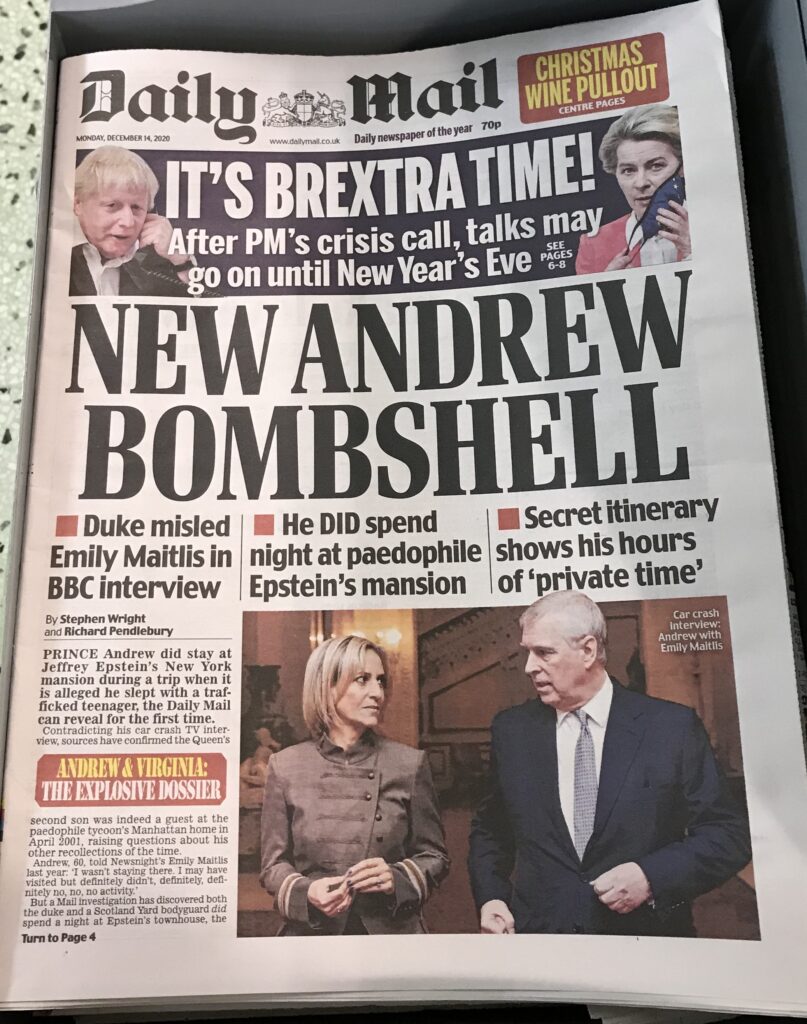
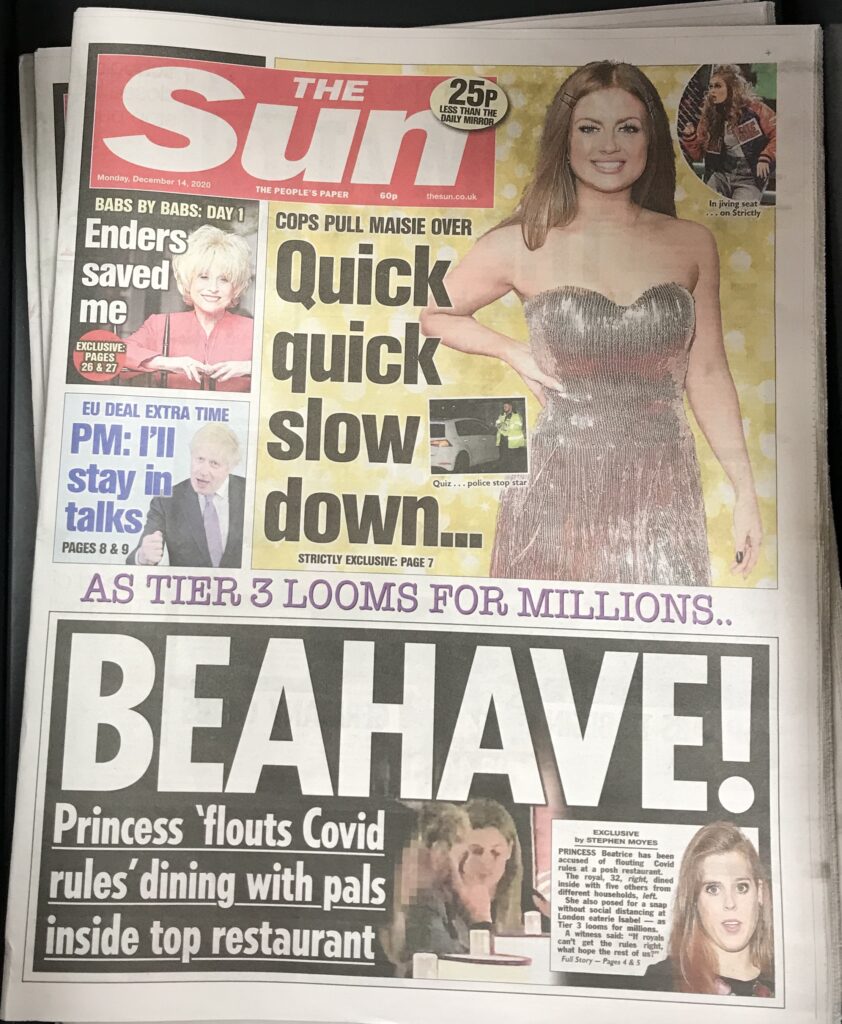
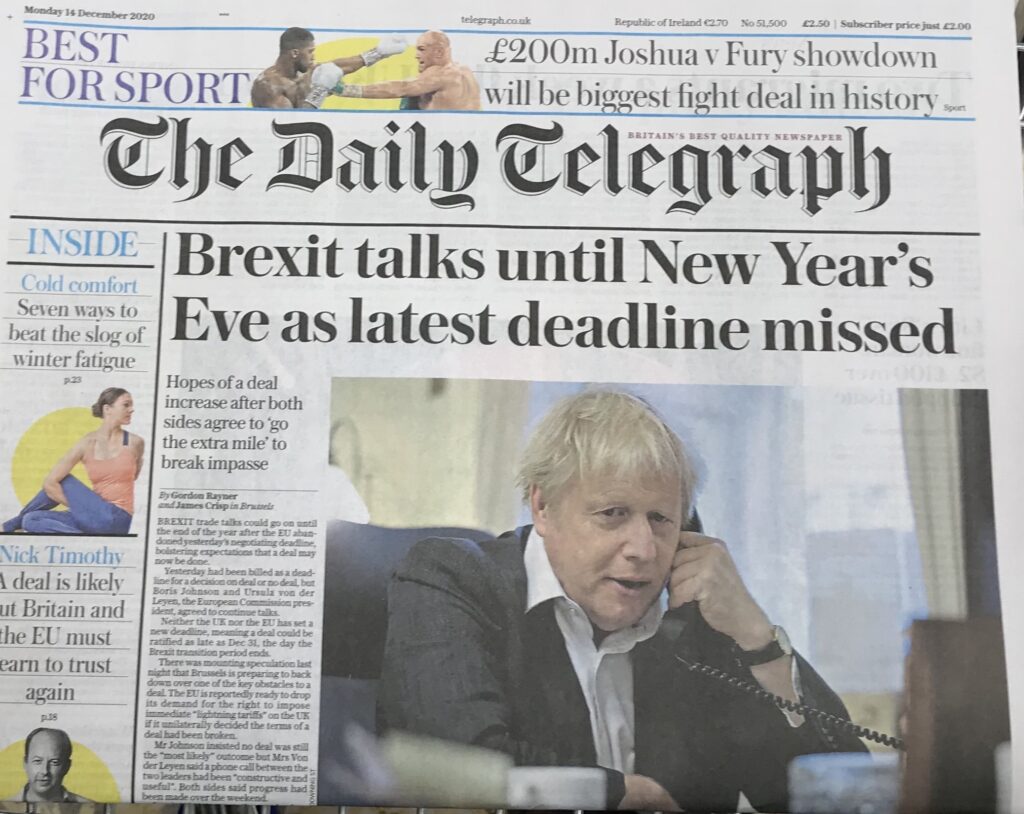

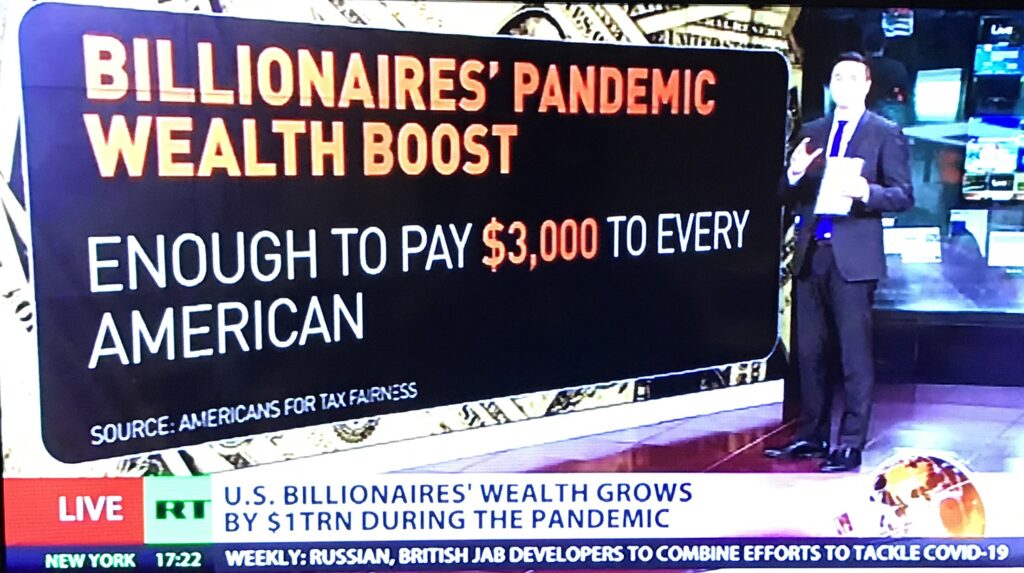
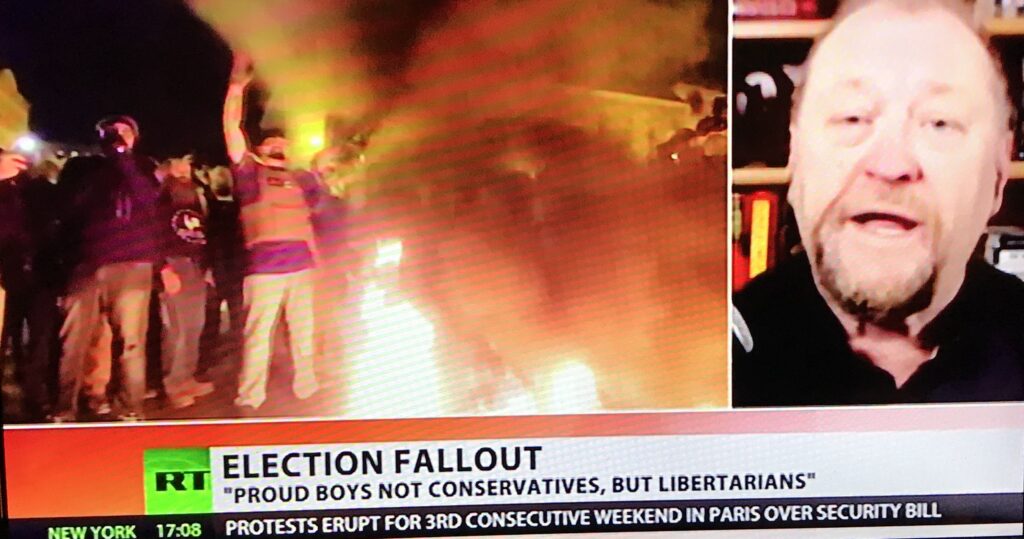

The trillions pocketed by the global elite and pseudo scientists with this lockdown charade should be divided among the masses, the elite are disgusting people and they get away with breaching lockdown. The elite’s extra trillions are coming from the poor and will be paid for with years of lockdown taxes by those who survive this ‘great’ global reset.
You can’t save what you don’t have, just go deeper into debt in Third World Police State Britain. R,J Cook
December 5th 2020
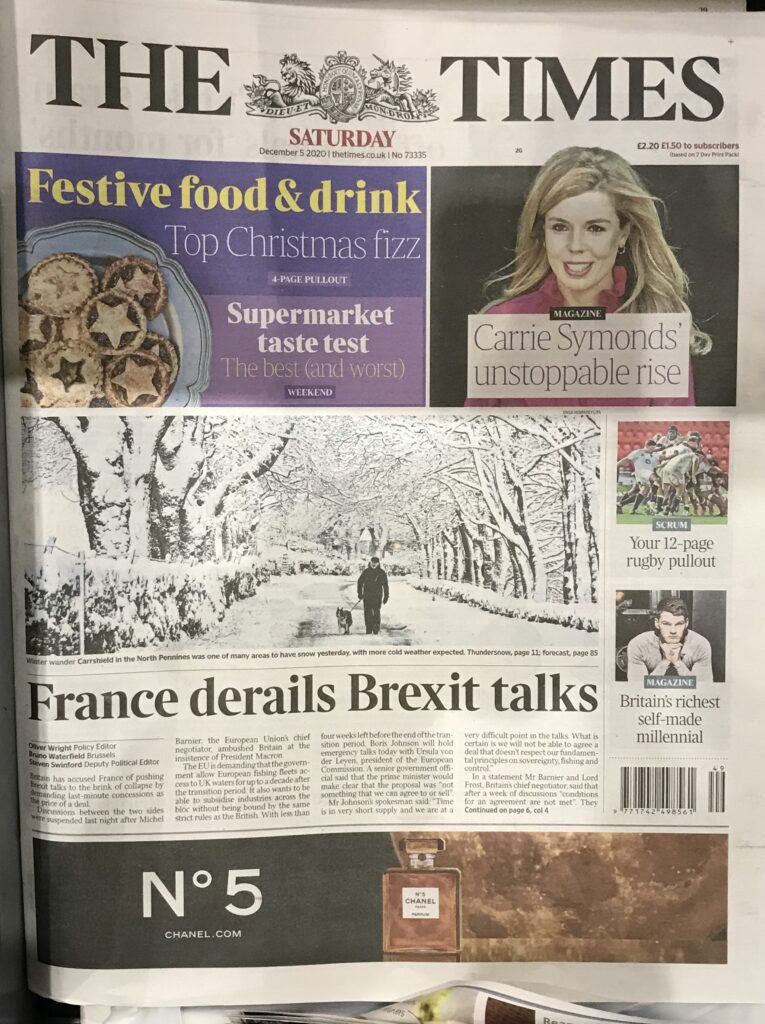
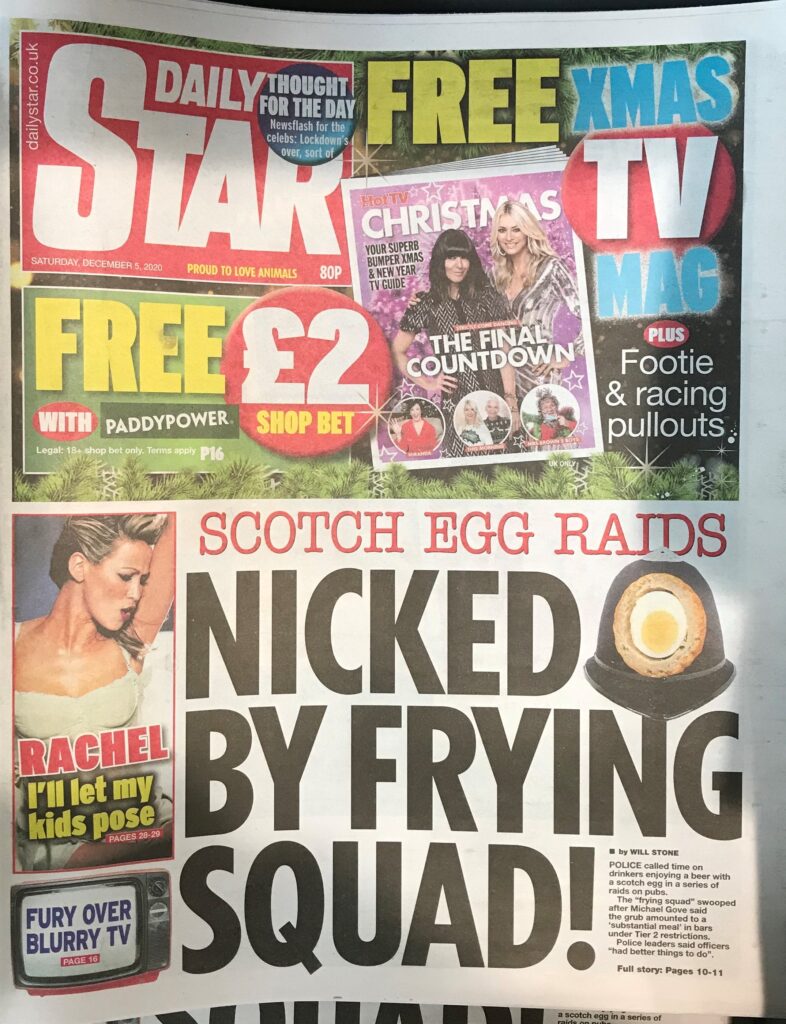
Kill the Messenger review – what really happened to Gary Webb Posted November 23rd 2020
2 / 5 stars 2 out of 5 stars.
Jeremy Renner stars in this true-life tale of Gary Webb, a US reporter who broke a story linking the CIA to a drugs conspiracy and the Nicaraguan contras. Review by Mark Kermode
Sun 8 Mar 2015 08.00 GMT Last modified on Thu 22 Mar 2018 00.16 GMT

‘Convincingly conflicted’: Jeremy Renner in Kill The Messenger
In 1996, journalist Gary Webb wrote a series of articles under the title “Dark Alliance” for the San Jose Mercury News suggesting a CIA connection between anti-government contras in Nicaragua and monies raised from the sale of crack cocaine in the impoverished districts of South Central LA. Feeling scooped by a lowly regional (and arguably ignoring the bigger picture), publications such as the Washington Post and LA Times turned on Webb, accusing him of bad journalism with career-wrecking results.
This dramatisation portrays Webb (whom a former editor described as “a relentless reporter [with] an inability to question himself”) as a wronged hero with a troubled past but impeccable journalistic credentials. It’s sporadically gripping but ultimately rather frustrating fare, leaving us intrigued enough by the conspiracy-theory backstory to want hard documentary evidence rather than mere dramatic licence. Jeremy Renner is convincingly tortured and conflicted as the beleaguered lead, but top marks go to Rosemarie DeWitt and Mary Elizabeth Winstead as Webb’s long-suffering wife and editor respectively.
Comment I watched this movie last night. Kermode is typical of modern reviewers. There is a rude word to describe his sort. Suffice it to say, the only good word such people have for the performers lands on the females, however small their part.
Anyone outside of the feminist pseudo liberal media elite should be able to see some very serious issues that make a mockery of all the liberal PC trash about our precious democracies. The script and acting was what it needed to be, subtle when needed, ferocious and tormented in large part.
The very idea of what Regan’s vile deep state were doing, its impact on poor neighbourhoods because the CIA were flooding them with cocaine to raise secret funds to seriously help tyrants kill revolutionaries against the Fascist Nicaraguan Government’s vile rule, seems to have escaped the smug British elite and BBC favourite reviewer Kermode. Add to that the spineless jealous mainstream media and the sad end of Gary Webb – who strangely fired two shots in what was judged suicide – and this is a five star production but not good for the consensus ( sic ). R.J Cook
Review: An Acceptable Loss Is a Morally Urgent B Movie Posted November 23rd 2020
The film is a cynical critique of American foreign policy wrapped up in an uncluttered narrative that thrives on pulpy thrills.
Published 2 years ago
on January 16, 2019

Photo: IFC Films
Writer-director Joe Chappelle’s An Acceptable Loss is a B movie with a morally urgent message, a cynical critique of American foreign policy in the Middle East wrapped up in an uncluttered narrative that thrives on pulpy thrills. By positioning the U.S. government as the film’s primary antagonist, Chappelle takes to task the repeated killing of innocent lives as collateral damage in the hunt for terrorists and other ostensible enemies.
The ethical quandary that arises from such an operation is embodied by Elizabeth “Libby” Lamm (Tika Sumpter), a former national security adviser to Vice President Rachel Burke (Jamie Lee Curtis) who’s taken a teaching gig at a Chicago university. As Libby secretly transcribes her experiences, and faces civilians who are angry over her role in a controversial military operation in Syria, Chappelle shows a surprising empathy for the character. The filmmaker outlines that Libby’s memorializing of her experiences and her honest attempt at assimilating within a society that more or less shuns her is borne out of feelings of regret.
But An Acceptable Loss’s compelling take on moral reckoning is compromised by the distracting presence of Martin (Ben Tavassoli), a grad student who consistently exposes lapses in the storyline’s logic. Martin mysteriously stalks Libby and sets up an elaborate surveillance system in her house, but it’s never explained how Martin can operate with the skill, knowledge, and proficiency of some kind of intelligence officer. Dubiously, when Libby and Martin need each other’s help in a moment of crisis, the film oddly passes on holding the latter’s disturbingly voyeuristic behavior accountable; Libby shakes her head, and then the film drops the matter completely. For a film eager to ponder the ethics of people’s actions, it comes off as strange that Chappelle doesn’t scrutinize Martin’s own.Advertisement
Still, it’s difficult not to get swept up in An Acceptable Loss’s technical virtuosity. The film’s propulsive narrative is nothing if not efficient, aided in no small part by crisp editing that relishes the fine art of cross-cutting. The dark interiors that Chappelle favors create a Tourneur-like atmosphere of dread that subsumes Libby, underlining the covert nature of her documenting her secrets; even scenes in daylight have a strangely nocturnal feel to them. This visual style complements An Acceptable Loss’s pessimistic view of America’s foreign policy, which is sustained right up to the film’s hopeful coda. The film shows that if policy is to change, it greatly helps to be supported by people like Libby, someone who had been complicit in committing atrocities but ultimately embraced her humanity.
Comment I watched this movie two days ago and it is the most favourable review I could find. Still the writer is more concerned with nit picking about the structure and filming. The seriousness of the Anglo U.S on going attitude to their long standing Middle Eastern stomping ground gets little evaluation.
The reviewer raises the stupid question as how the young grad student knew about surveilance – which any A level Eng lit student could have contrived to explain if it actually mattered. I can only suspect that the liberal elite do not like the obvious caricature of feminist icon Hilary Clinton – who famously said whilst laughing insanely, that she would double down on Syria if elected president.
I dread to think what will happen now her kind of people are back in the White House – not that the world was safe with the people running rings around Trump. But in short, we just can’t have women portrayed as lunatic killers on any level, let alone nuclear bombing an entire city. The grad student had every incentive to work out the tricks of surveilance, just as the rich pampered Saudis who flew into the twin towers learned how to fly airlinersd – a much more difficult task with that level of precisions. R,JCook
Potty about Potter November 20th 2020
The following BBC Radio 4 article is , to my mind, a cause for concern. It is difficult to feel sympathy for J.K Rowling being ostracised for what are apparently transphobic comments on twitter. This woman struggled with depression in her efforts to become a writer. She was one of the lucky ones, although she was taken to court over plagiarism allegations.
She became a feminist and media icon. The problem is that these icons are supposed to be on message when it comes to key issues like immigration and LGBTQI. We little people are always being held to account for any sign of a faux pas. Therefore Rowling deserves absolutely no sympathy for her predicament. The same goes for public servants, especially the police whose job is to arrest us for suspected hate crime. They must adhere to the highest standards or face the most serious consequences.
However, it is wider situation that is a cause for most concern. The bone of contention here is whether or not a man can become a woman. As a feminist Rowling is bound to chant this virttually racist statement because she speaks from the perspective of female supremacy. Womanhood to these people is an exalted state, a birthright.
Thus, Rowling felt divine in tweeting that men can’t become women. For the likes of her and followers, it is reasonable to claim women’s safe spaces because feminsts attest all men have potential to assault them or shout them down.
However, with no need of explanation, any claim for male safe spaces to guard against wome’s false allegations or controlling tendencies, is called nasty sexism and misogyny which should be against the law. Feminists are great on this sory of inductive logic, it comes natirally to them. Women claim the right to police men, along with all their other rights and legal favouritism.
A more important question than how a man can claim womanhood, is why on earth a man would want to be a woman ? A second question is what kind of assesment methods , procedures and techniques are used to determine the mainstream psychological conclusion that there is such a thing as a woman in a man’s body. I have done much research and written a book on this subject. Perhaps the so called gender experts are charlatans with a social engineering aganda.
For now, I will confine myself to the implcations of shutting down Rowling and banning her book. This is a dangerous attitude, pathetic and worrying when the BBC publishes an article asking whether it is still OK to read Harry Potter. Imagine the outcry if a similar question was asked about the Koran, where there are very worrying attitudes to fake upper middle class white liberalism. Muslims are at odds with much of the LGBTQI agenda. No one questions them because it is their culture within the absurd so called multi culture. The same tolerance is not extended to this wealthy white woman.
One might also ask the question as to what a woman actually is ? Is it just body parts or body plus brain ? Is it hormones, hair, wanting to wear a dress hair style, lingerie fetishism, wearing high heels, make up and perfume, who you have sex with ? Or is it about rejecting all that culture stuff and being a woman out to compete with men and beating them at what they do, have short hair, body hair, wear men’s clothes and tell men what morons, wife beaters and rapists they are ?
Maybe it is much simpler than that , but dare I say it ? What we came to understand as female was the reproductive parts and traditional roles that used to go with it. Here is the connundrum for the feminist likes of Rowling. To argue this point is to confine women. They must be unbound, not suffer like Prometheus. They can be anything, but men must be scapegoats. They must never try to mimic any version of the female. however hemmed in and abused they may feel as men.
As for whether or not men can become sis or biological women, the answer is no, not unless women can be proven to be all about a state of mind, a brain consciousness – and we trvialise and limit language. The notion of females in male bodies is a lot of guesswork and cultural bias. The motives and methods of organisation like the London Tavistock Gender Identity Clinic need scrutiny and investigation because there appear to be an alarming number of boys wanting to be girls.
There is an interesting book called the ‘Feminisation of Nature’. Maybe that’s where the answer resides. Maybe it is the rise of one parent families, demise of the male and pernicious feminism ? Shutting down debate is not healthy, but Rowling is not looking for debate. Media successes seem to think they should be the agenda setters, after all, they do not have to live with the pressing problems of living among the masses. These people are arrogant, causing more harm than good. Having said that, it is a sorry day when the likes of the BBC have anything to do with advising us what we are allowed to read. R.J Cook
Is it still OK to read Harry Potter?
The Harry Potter books have sold over 500 million copies worldwide and made J. K. Rowling a celebrity in her own right. Aja Romano has been a fan of both for over 20 years. Romano is a writer for the American website Vox, where they specialise in internet culture and fandom. As well as giving Romano countless hours of entertainment, the wizarding world books helped them to explore and express different parts of their gender and sexual identity. But after J.K. Rowling expressed thoughts on gender identity that they vehemently disagreed with, Romano wondered if they could continue their love for the series.
In Can I Still Read Harry Potter? Romano considers whether it’s possible to separate the author from their work.

Listen to Can I Still Read Harry Potter?
In late 2019, J. K. Rowling faced criticism for expressing support for Maya Forstater, who lost her job at a thinktank after writing a tweet that said, “men cannot change into women.” Rowling was accused of transphobia, which she has argued against, writing in June 2020 about her experience of domestic abuse and sexual assault and her “concerns around single-sex spaces.” Romano says that for many fans like them, Rowling’s views caused them to examine whether they could comfortably still read the Harry Potter books.
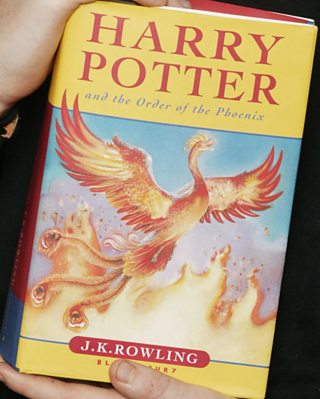
Safe space
“As a non-binary person and a wannabe wizard, I always found safety and comfort within the world of Harry Potter,” says Romano. “And so, when J. K. Rowling expressed her personal views on gender, which I found deeply upsetting, it felt like my safe space had gone, or maybe it hadn’t ever been there at all.”
YouTuber Jackson Bird felt a similar sense of a fantasy refuge for LGBTQ+ people being damaged. He thinks a lot of LGBTQ+ young people identify with Harry Potter as someone who, “doesn’t fit in at all. And then suddenly, out of nowhere, these people basically pluck him off of the street and are like, “Hey, you’re a wizard, everything that you do is totally normal.’ I think that really resonated… I do think she intended that in some way Hogwarts is meant to feel like a safe space.”
Romano suggests that the backlash faced by Rowling is in part due to her being so present on social media and having a relationship with her fans. “In the pre-internet age, it was more common to let the books speak for themselves,” they say. “Today, many authors are now celebrities.”
Ika Willis, a lecturer in literary reception, agrees. Willis says Rowling has created a dialogue with her readers that makes them feel a larger sense of ownership of her stories. “J. K. Rowling is a bit of a helicopter parent,” Willis says. “She publishes the text, she sends them out into the world and she follows them around… [She] keeps on telling us more and more. So instead of reading the text as a kind of self-contained, formally coherent piece with a beginning, middle and end, it’s much more common to view a text as an ongoing conversation with an author.” She says readers can view a book as by, “someone they want to be friends with or don’t want to be friends with.”
“An ongoing conversation with the author”
Dr Ika Willis talks about J.K. Rowling’s interaction with her own work.
Expecting too much?
Others disagree. Writer and broadcaster Gavin Haynes argues that readers shouldn’t consider their relationship with an author akin to a friendship and that abandoning the books due to disagreement with Rowling is, “churlish and childish… Surely the reason we read literature is expand our psychology and to come into contact with different views and to get a broader sense of the great ambiguity of life itself.” He also believes that the debate really only exists within a small group on social media. “I think if you sort of asked the man on the street about this particular debate, he’d ask you what you’re talking about.” Does disagreeing with an author mean we can’t enjoy their books?
Does disagreeing with an author mean we can’t enjoy their books?
Literary critic Sam Leith, like Haynes, is of the opinion that expecting an author to reflect all your own views lacks maturity. He tells Romano, “I feel sort of slightly dismayed that a reader of your evident subtlety and sophistication is saying, ‘I feel I need to stop reading this woman’s work because of something she said in public.” He also says that this stance ignores the inclusivity of Rowling’s writing. “The overall drift of those books, morally, is be kind; be inclusive. You know, being different is okay.”
Little agreement
Romano notes that there are many who agree with Rowling’s views and that sales of the Harry Potter books have risen by 9% since Rowling wrote her blog in June. Her fan base remains enormous. Patricio Tarantino, who runs a Harry Potter fan site, The Rolling Library, says his love of the books has not diminished. “It doesn’t change what I think of her as a writer or artist,” he says. “I’m focused on her words, and I don’t think this affects her words.” Rowling has seen support from a lot of her fan base, as well 58 entertainers and authors, including Ian McEwan, Sir Tom Stoppard and Andrew Davies, who signed a letter to The Times condemning an “onslaught of abuse” after the hashtag #RIPJKROWLING trended on Twitter.
In talking about the subject, Romano finds little agreement but a spectrum of different views. They call their own relationship with the books, “like a weary divorce,” and wonders if their retreat from the Potter books will be permanent. For now, they feel it’s, “time to dig deeper and ask questions. After all, it’s what Harry would do.”
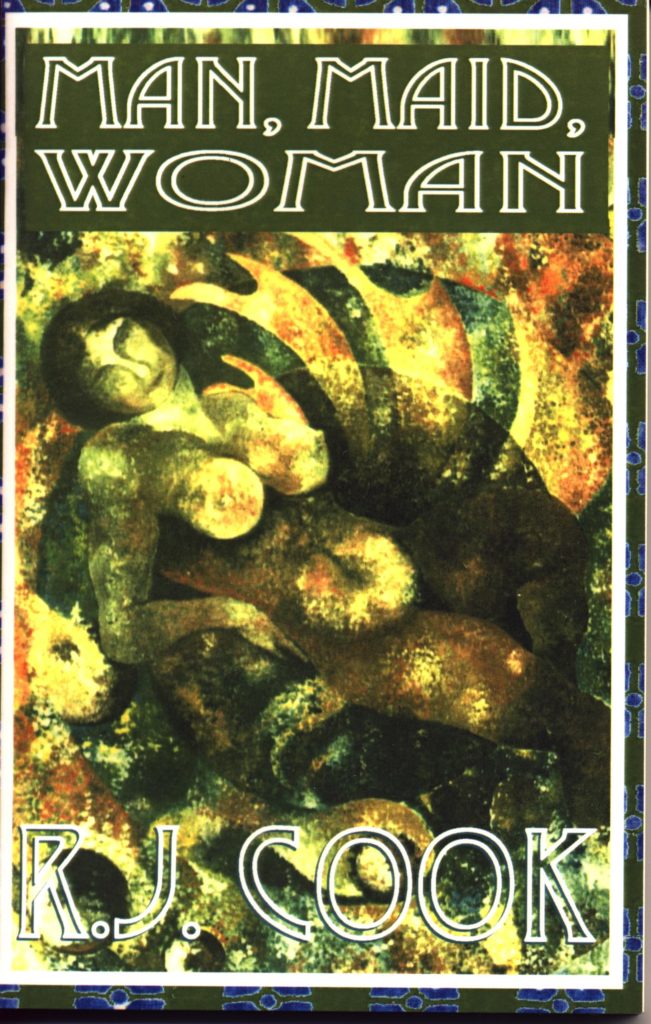
BBC Radio will play EDITED version of Fairytale of New York this Christmas due to song’s ‘offensive’ lyrics

BY: Harry Brent
November 19, 2020
BBC RADIO 1 will only be featuring an edited version of Fairytale of New York this Christmas due to the song’s ‘controversial’ lyrics.
The British broadcaster is set start playing the Christmas classic from the end of November right through to the festive season, but it won’t be the version everyone loves and remembers.
Radio 1 will be playing a version of the song with the words ‘f****t’ and ‘sl*t’ edited out, though Radio 2 will still feature the classic version, because they deem that Radio 1 listeners are particularly sensitive to derogatory terms for gender and sexuality.
Over the last few years, the famous Pogues hit has come under scrutiny for usage of the slurs.
Campaigns have been set up to have the song changed and even removed from the airwaves, but it’s simply proven too popular to suppress.
Kirsty MacColl, who provides the female vocals for the initial song alongside Shane MacGowan, recorded a different version of the song with the slurs swapped out for less offensive replacements, and this is the version Radio 1 will use.
Instead of the famous line: ‘You sc*mbag, you maggot. You cheap, lousy f****t,’ the final four words have been changed to: ‘You’re cheap and you’re haggard’.
In a statement, the BBC said it made its decision because it was conscious that the traditionally younger audience who listen to Radio 1 might take offence to the original version of the song.
“We know the song is considered a Christmas classic and we will continue to play it this year, with our radio stations choosing different versions of the song most relevant for their audience,” the broadcaster said.
Back in 2007, the song was censored by Radio 1, but the decision was swiftly reversed following public outcry.
Lovers of Fairytale of New York have previously hit out against those who slam the song due to its offensive slur, arguing that the characters MacColl and MacGowan are playing aren’t meant to be admired or liked.
After all, the song is about an argument between an alcoholic and a heroin addict who have fallen out of love. Nobody should think that the characters presented are being positively promoted.
Comment Anyone with a brain should be very concerned about this censorship running out of control. There is no line going to be drawn. There will be no passion, no argument, no Hegelian dialectic and thus no philosophy driving us forward, just the police state and the military. In this Grave New World or maybe Slave New World, you can be whatever gender or colour you like just so long as you sign up for the lobotomy and chemical castration if you are a bloke and want to be a joke – I didn’t write man in case the word is offensive or illegal. There are some links here if you want to hear the real thing. R.J Cook
5:50Fairytale of New YorkYouTube · Christy Moore – Topic8 Apr 2017Preview4:27The Pogues Featuring Kirsty MacColl – Fairytale Of New YorkYouTube · Christmas Music Videos10 Nov 2016Preview4:09Christy Moore performs Fairytale of New York | The Story Of A …YouTube · RTÉ – IRELAND’S NATIONAL PUBLIC SERVICE MEDIA21 Dec 2017
Reviewing a reviewer’s review. November 19th 2020

Image Appledene Photographics/RJC
I met an awful lot of posers at my then elite university back in the 1970s, many like reviewer Peter Bradsaw, an upper middle class public school boy, cum Cambridge English lit graduate.
I never did English literature as an exam course because it clashed with maths. Anyway, what sort of person needs a degree in reading poems and novels – and being taught how to criticisse them ?
A little older than Bradshaw and from a hard working class poverty stricken one parent family – because my ex wartime soldier father died from a truck driving related accident -I recall comfortable student contemporaries protesting against the Vietnam War. I never did.
Not once did they mention that Democrat sanctimonious luvvie John F Kennedy took the U.S in there – and a Republican , Nixon, got them out.. At the time, my ambition was simple. I spent much of my youth training for my school, county and athletic club running pursuits, building and flying model aircraft, Air Training Corps where they taught us to maintain and shoot Lee Enfield .303 rifles and tinkering with engines.
By the time the smug English University system had finished with me, I knew how to roll joints talk hippy crap , had forgotten my dreams of being an RAF pilot and all those Air Training Corps days and flying experience. I had learned to blame myself for my part in a horrible country in a horrible world.
So I went on to do all sorts of jobs and stuff, hoping life would make me a writer. Had I been pampered judgemental Peter Bradshaw , I could have taken a short cut, got on the high ground and passed the sort of self righteous judgment on a brilliant film that he doesn’t like because it shows Obama for what he is and was – a posturing fake. How typical of our ‘modern’ men ( sic ) that he only really liked the General’s wife.
In the neo liberal tyranny we are not suppposed to say stuff like that. So anyone who likes my stuff, enjoy it while you can because the police are seriously on my case again – assuming they have ever been off it. R.J Cook
War Machine review – Brad Pitt goes over the top in Afghan war satire
Based on real-life events, David Michôd’s take on the war in Afghanistan plays for laughs and misses the mark

Doomed … War Machine Photograph: Francois Duhamel/Netflix

Peter Bradshaw@PeterBradshaw1Mon 22 May 2017 16.00 BST
Last modified on Thu 22 Feb 2018 19.03 GMT
Not funny enough to be satire, not realistic enough to count as political commentary, not exciting enough to work as a war movie, David Michôd’s supposedly Helleresque romp, released on Netflix, is an imperfect non-storm of unsuccess.
Loosely adapted by Michôd from Michael Hastings’s book The Operators: The Wild and Terrifying Inside Story of America’s War in Afghanistan, this is a fictionalised account of US General Stanley A McChrystal’s experiences during that conflict – McChrystal was the overall commander until he was sacked by President Obama for making rashly critical remarks about his administration to a reporter from Rolling Stone magazine. It is a long, rambling anti-climactic movie that doesn’t know what it wants to be, in which the hero learns nothing, and we, the audience, are encouraged only to learn what we are assured we know already: that the mission in Afghanistan was an endgame doomed to failure.
At the centre of this is producer-star Brad Pitt, who goes cartoonishly over the top in his look-away-now performance as the general, renamed Glen McMahon, nicknamed the “Glenimal”. He is renowned and admired for his straight-talking, can-do attitude – loved by the men under his command and, of course, disliked by the Washington pointy-heads and pen-pushers.Brad Pitt speaks about his divorce from Angelina Jolie and his heavy drinkingRead more
Pitt’s military chief is like the crazy-grandpa version of the grizzled second world war types he played in Quentin Tarantino’s Inglourious Basterds (2009) and David Ayer’s Fury (2014). He struts about manically, has a habit of taking early-morning runs in an extremely unflattering pair of shorts, speaks in a growly down-home drawl with a corner of his mouth is permanently twisted up in a kind of hillbilly grimace. That corner is perhaps home to an invisible corncob pipe, like the one smoked by General Douglas MacArthur. Pitt’s performance is an odd assemblage of second world war cliches, a half-remembered version of George C Scott’s Patton. It is nothing like the real General Stanley McChrystal, who can be watched on YouTube: he has a rasping voice, but otherwise looks like a smart, relaxed human being. That needn’t matter, but Pitt’s wacky performance never satisfactorily answers the laugh-with/laugh-at question, and his pantomime becomes wearing.
The movie follows him as he is appointed overall commander, robustly bringing to bear his confidence and passion for the job, and sweeping aside the bland and cynical Brits. He is convinced that a real military victory can be enforced over the insurgents, but first he has to instil some urgency and energy into the lackadaisical flags-of-all-nations team under his command and ignore as best he can the “Eurosexuals” he sees on his early morning run. But the main order of business is getting some more troops. A cunningly contrived TV interview embarrasses Washington into giving him some of what he needs: then he has to go on a tricky diplomatic tour of Europe, to convince the slippery types out there to put up some of their own troops to join his fighting force.
After cliched scenes of American military commanders speaking through interpreters to suspicious and hostile natives, the movie goes on a long, tiresome, dramatically inert detour around European capitals, with the Glenimal in the company of his Vegas-style Rat Pack entourage: including good-ol’-boy second-in-command Greg Pulver (Anthony Michael Hall), smoothie PR Matt Little (Topher Grace), embedded Rolling Stone reporter Sean Cullen (Scoot McNairy), and token Afghan civilian Badi Basim (Aymen Hamdouchi). And finally, in the last half-hour, there is some actual war-film-type fighting, from which Pitt is frustratingly absent.
The film does have some good points. Ben Kingsley gets one or two laughs in his cheeky performance as President Hamid Karzai: the whole movie might have been better as a bromance between Hamid and the Glenimal. Tilda Swinton has an interesting, if slightly supercilious, cameo as a German politician who questions the general about his personal motivation. But the best and most human performance comes from Meg Tilly as the general’s neglected wife, Jeannie, who has a tremendous, quietly dignified speech, talking to her husband over dinner in Paris, quietly upbraiding him for never being home, and saying that she is proud of him: “I’m proud of me, too … ”
This movie never earns the sentimental respect we are presumably expected to pay to its hero, and Pitt’s wacky caricature leaves you unsure whether he is being celebrated or satirised. War Machine sinks into a quagmire of its own making.

Luke Kelly’s 80th birthday to be marked with tribute concert available to fans around the world

BY: Rachael O’Connor
November 17, 2020
ONE OF Ireland’s greatest musicians should have celebrated his 80th birthday today, 17 November 2020.
The Dubliners star Luke Kelly was born on this day in 1940 to a working class family in Sherrif Street, Dublin.
The acclaimed musician sadly passed away in 1984, but his legacy prevails– and his milestone birthday will be celebrated by fans across the world today.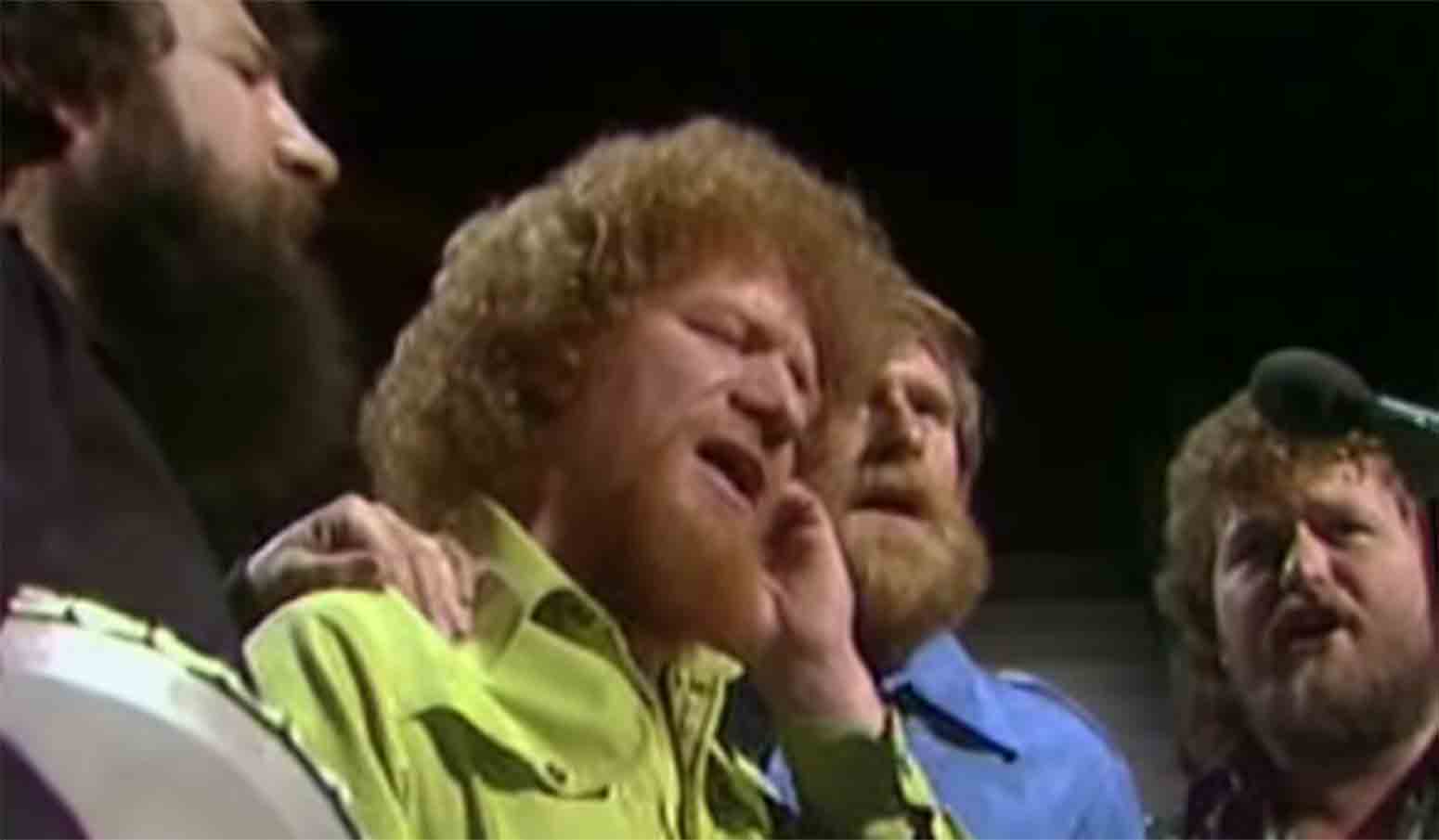 The Dubliner’s star was born on this day 80 years ago, and his milestone birthday will be celebrated with an online concert tonight
The Dubliner’s star was born on this day 80 years ago, and his milestone birthday will be celebrated with an online concert tonight
One superfan, former You’re A Star finalist George Murphy is marking the day with a concert in tribute to the legendary musician, where he and members from the Rising Sons group will take to the stage to perform some of Luke Kelly’s greatest hits.
George had the idea to hold an online event after the planned celebrations were cancelled due to the ongoing Covid-19 pandemic, and the concert will be in full compliance with Ireland’s Level 5 restrictions while allowing fans around the world to celebrate the Dubliner’s life.
Announcing the ambitious project, George took to Facebook where he explained how important Luke Kelly’s legacy was to him when he was starting out as a musician, having once played with the remaining Dubliners members on stage.
“Luke was gone before I was even born but his memory lives on in his wonderful songs,” he wrote.
“And to have had the opportunity to stand on stage with Ronnie and Barney and the rest of The Dubliners and sing some of these songs will always be one of the biggest musical highlights in my life.”
“In an ideal world an event like this would be in a packed venue with smiling faces, raw voices from singing and pints of plain on every table but alas that’s not to be,” George continued.
“However I couldn’t let the day come and go without marking it somehow so please tell your friends and Luke Kelly lovers and join us at 8 pm on November 17th.”
The concert will take place at the iconic Swords Castle in Dublin, and will be livestreamed from George’s official Facebook page (which you can find here) at 8pm Irish tim
- 4:36Raglan Road–Luke Kellyyoutube.com
- 4:20RAGLAN ROAD LUKE KELLYyoutube.com
- 5:09Luke Kelly Raglan Road – LIVE Dublin, 1979youtube.com
- Luke Kelly Raglan Road – YouTube www.youtube.com/watch?v=EuafmLvoJow Video
- Video Duration: 4 min
- Views: 5.6M
- Author: kellyoneill
- Luke Kelly ~ Raglan Road – YouTube www.youtube.com/watch?v=Wk_hLTzppIU 21/02/2013 · 50+ videos Play all Mix – Luke Kelly ~ Raglan Road YouTube; Luke Kelly – The Performer – Duration: 2:02:25. CR’s Video Vaults 188,072 views. 2:02:25. Dublin …
- Video Duration: 4 min
- Views: 3.6K
- Author: Alec John
- Luke Kelly: Raglan Road – YouTube www.youtube.com/watch?v=6TDs05kJg6M 28/11/2011 · 50+ videos Play all Mix – Luke Kelly: Raglan Road YouTube; Luke Kelly Sings ‘On Raglan Road‘ – Duration: 5:32. Broadsheet Ie 1,837,566 views. 5:32. Luke …
- Video Duration: 5 min
- Views: 21.9K
- Author: kellyoneill
- Luke Kelly – Raglan Road – YouTube www.youtube.com/watch?v=qpnsw5KZq84 10/05/2014 · Luke Kelly – Raglan Road [Audio Stream] – Duration: 4:18. Celtic Note 351,992 views. 4:18. 50+ videos Play all Mix – Luke Kelly – Raglan Road YouTube; Luke …
- Video Duration: 4 min
- Views: 657
- Author: IrishMojo
- Luke Kelly Raglan Road – YouTube www.youtube.com/watch?v=MRHeTIcgwH8 Luke kelly Singing Patrick kavanagh’s Poem Raglan Road In 1979
- Video Duration: 5 min
- Views: 338.5K
- Author: kellyoneill
- Luke Kelly – Raglan Road [Audio Stream] – YouTube www.youtube.com/watch?v=yWP7b-60RKw Buy Luke Kelly CDs & DVDs from http://www.celticnote.com Subscribe now for more great Irish music. #celticnote #irishmusic #irishfolkmusic #irishtraditionalm…
- Video Duration: 4 min
- Views: 705.6K
- Author: Celtic Note
- Luke Kelly-Raglan Road Live-Lyrics – YouTube www.youtube.com/watch?v=BApRUXIQ_Hw Luke Kelly–Raglan Road-Live-Lyrics The Performer The Late Great Luke Kelly. More Music and Video At: http://www.myscotland.co http://www.ianwrussell.com Lyri…
- Video Duration: 5 min
- Views: 16.2K
- Author: Ian Russell
Sickening Anglo U.S Elite And Fools They Rule November 17th 2020




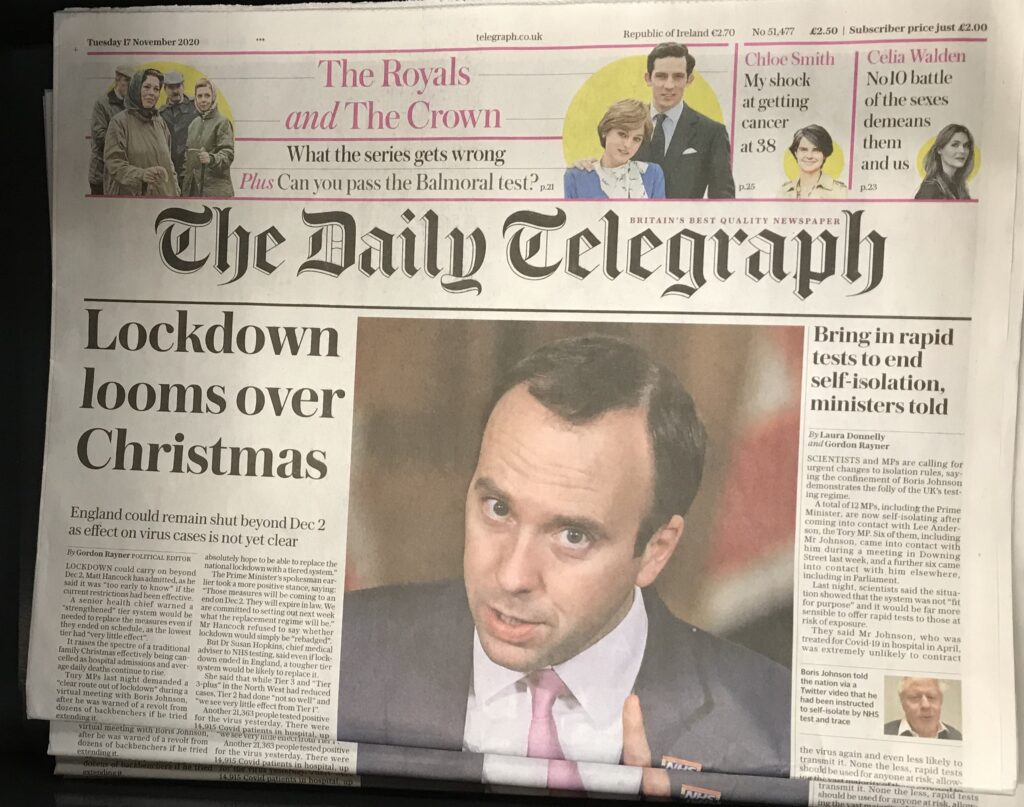
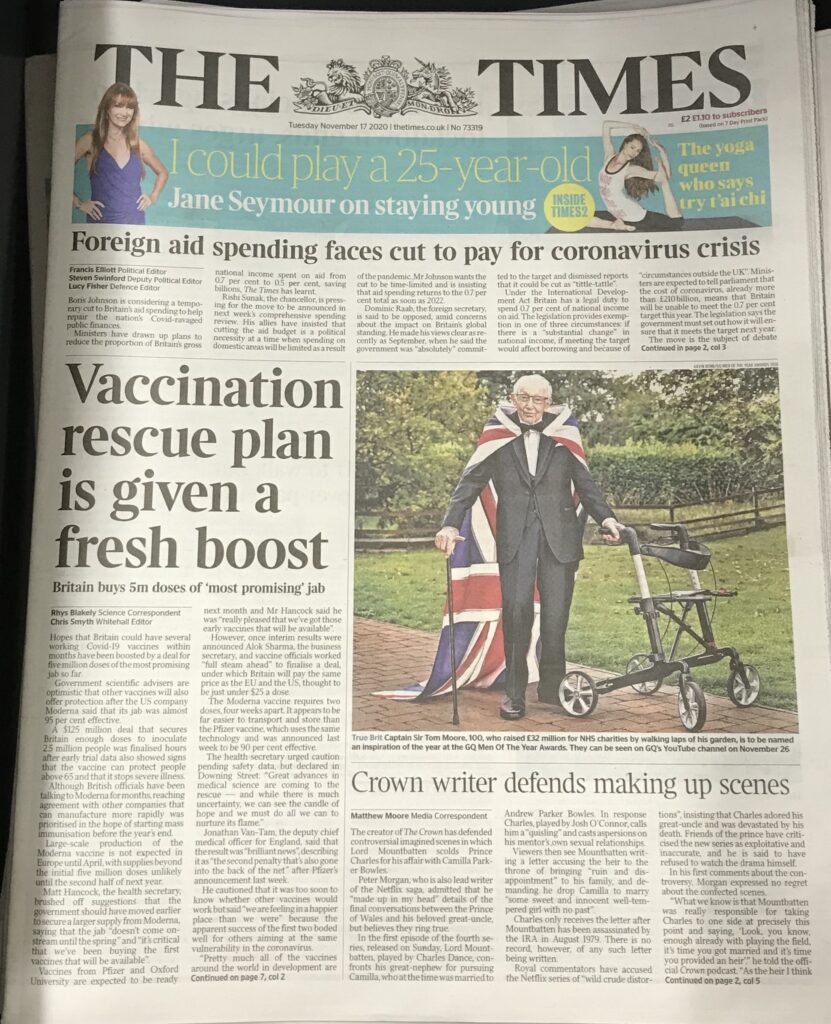
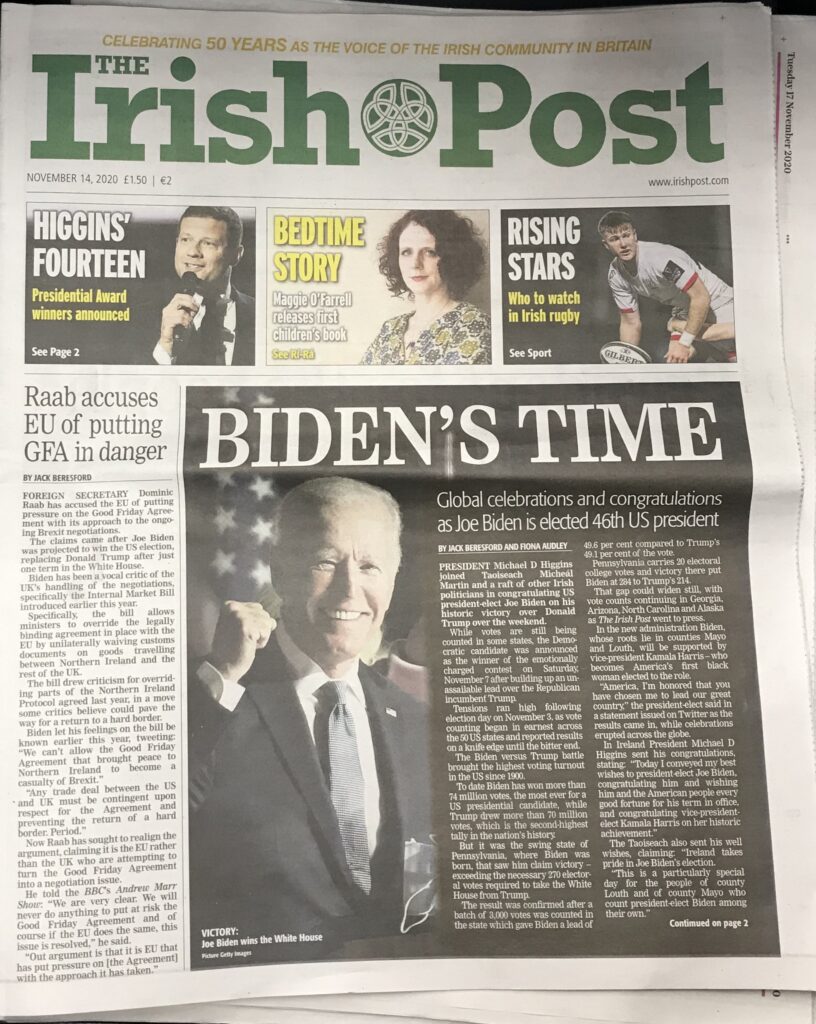
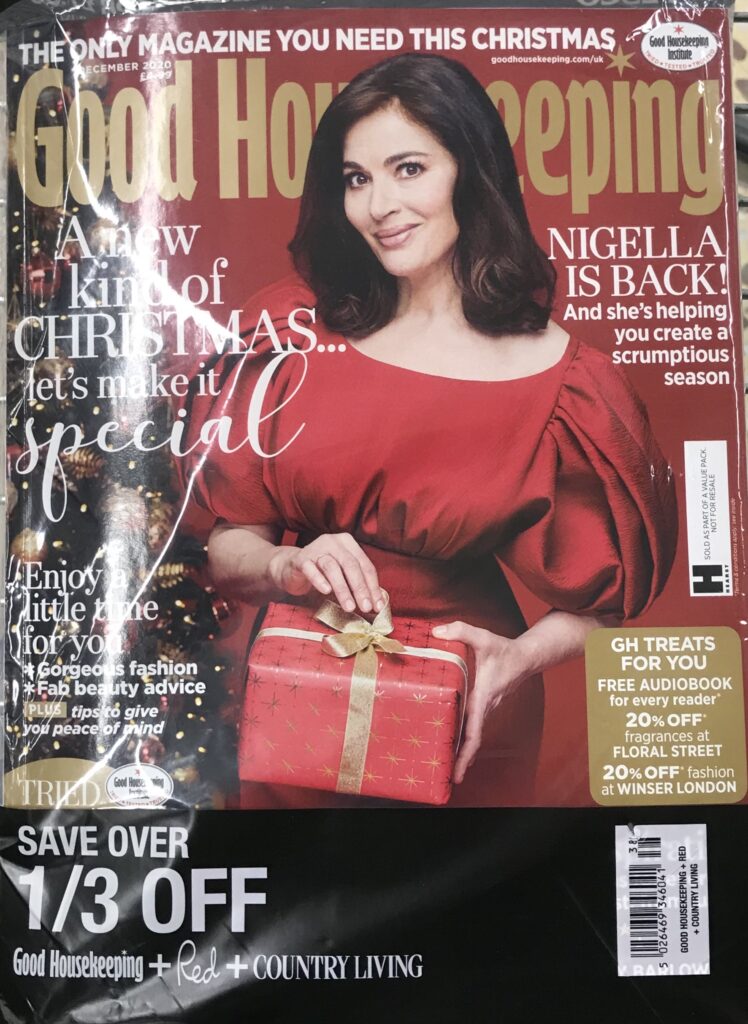
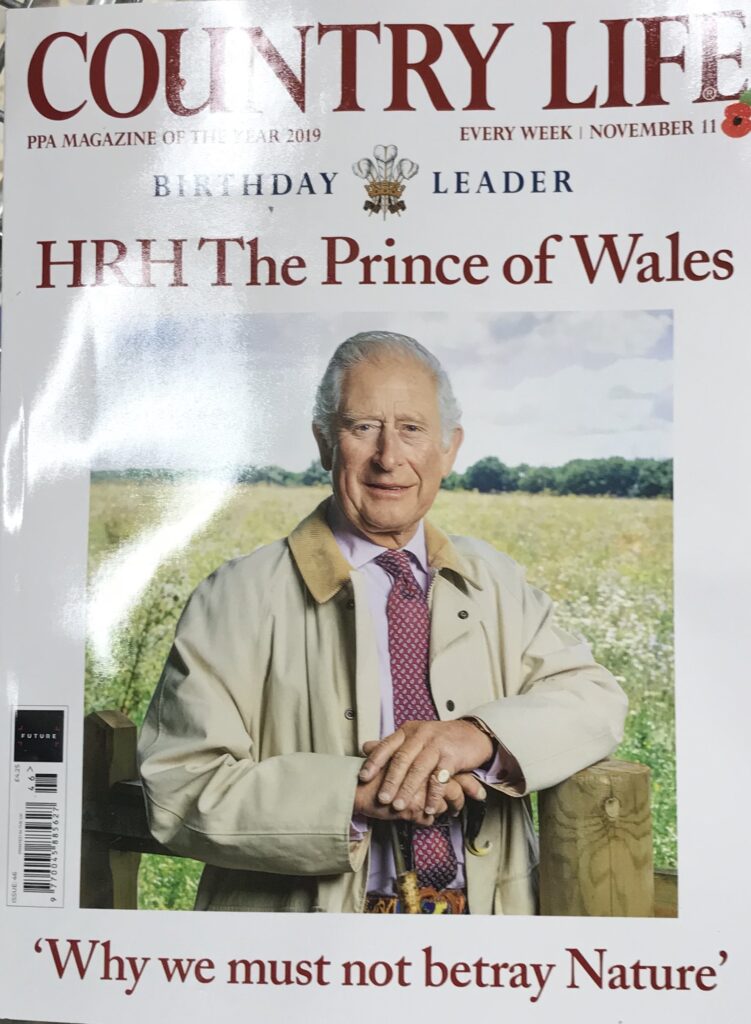

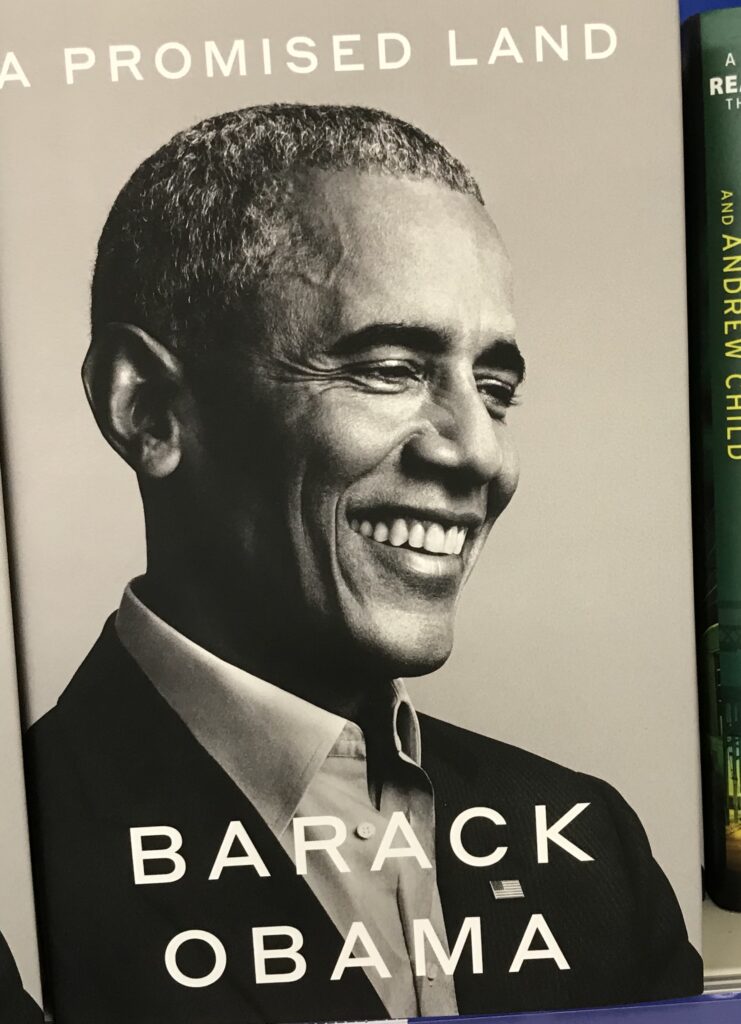
Remember , there is no real end to a rainbow so no crock of gold, and the colours you see in the sky are mere refraction of natural light after heavy rain. They are not separate, they are just parts normal white light, not part of a multi light show, They are nature, not social engineering. As for the rest of the pathetic front pages above, let them speak for themselves about barmy Britain and vote rigging U,S.A, whose deep state, along with Britain’s, want more wars under the fake banner of freedom & democracy. R.J Cook.
November 16th 2020
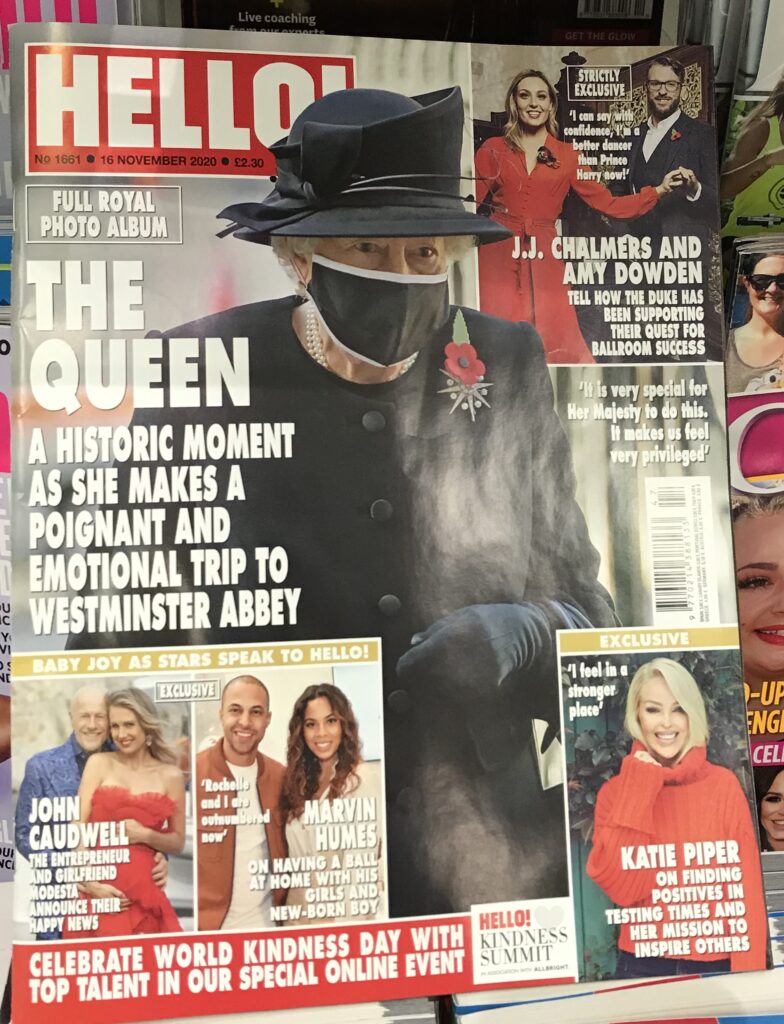
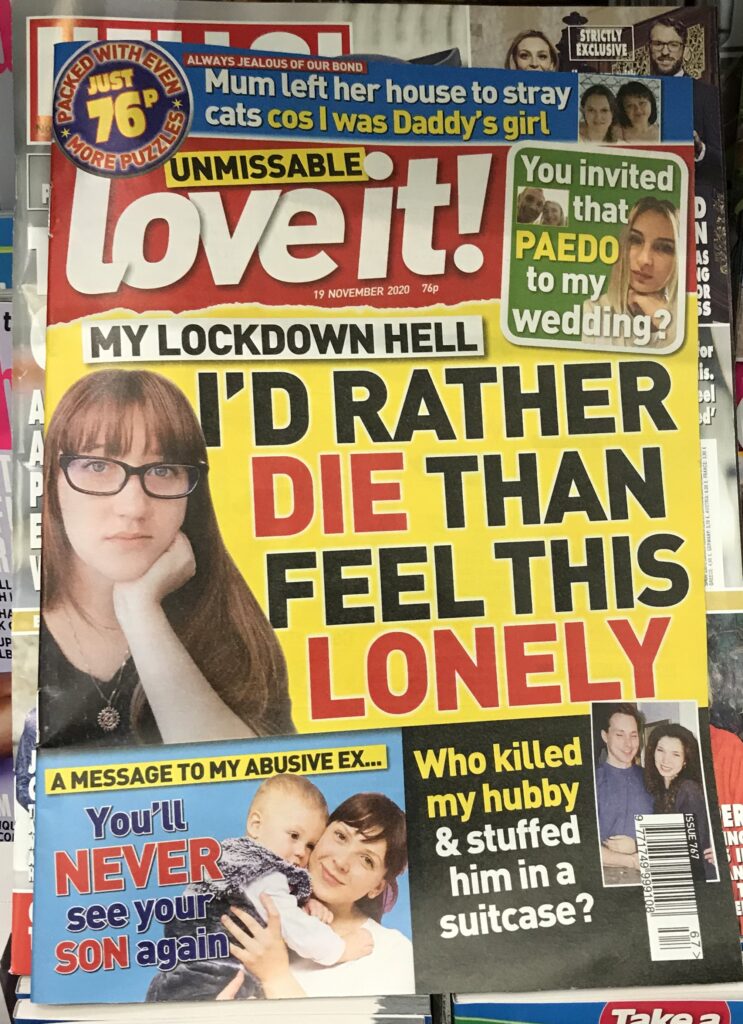


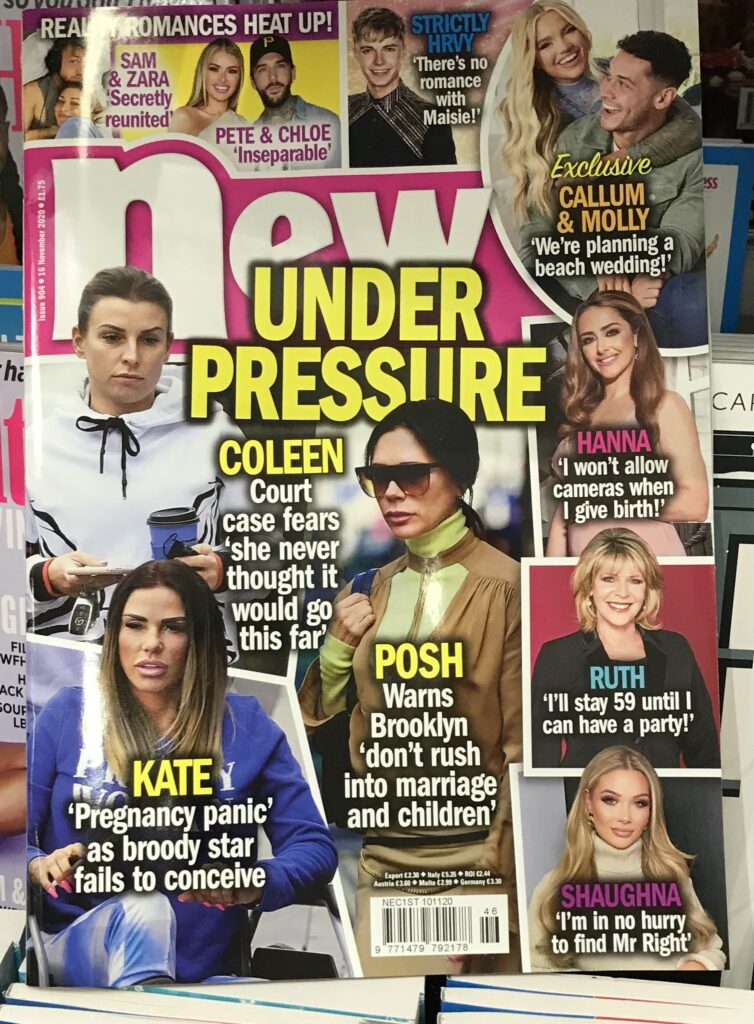
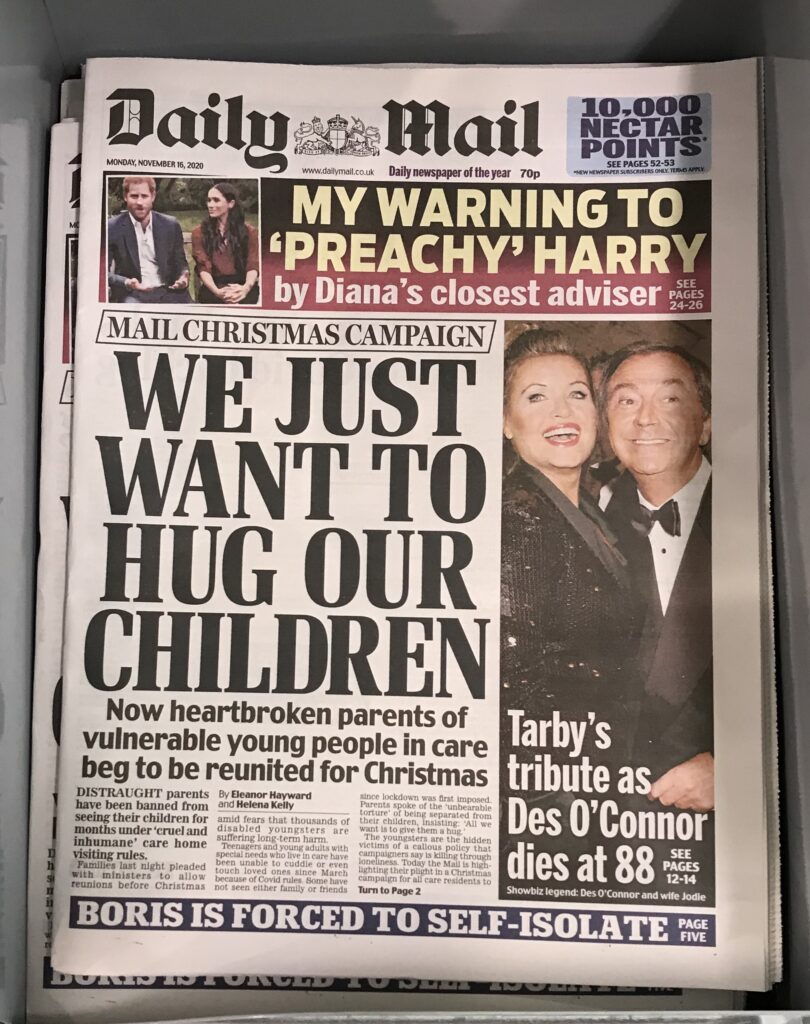
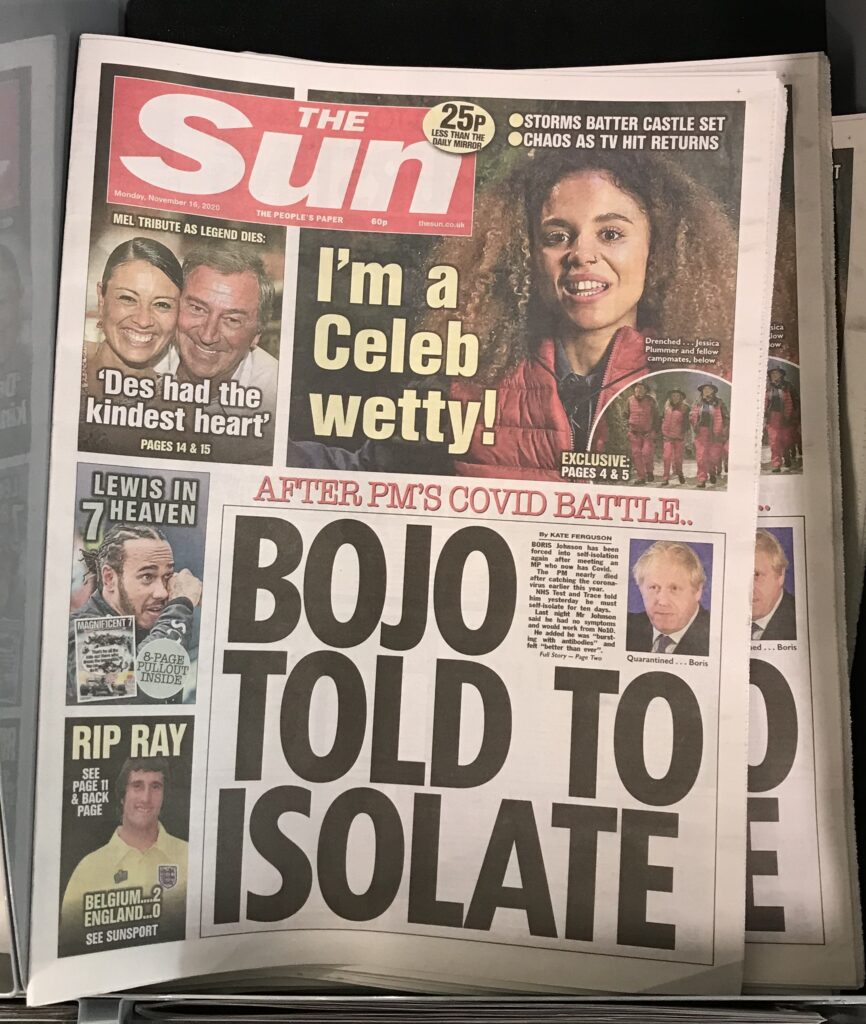
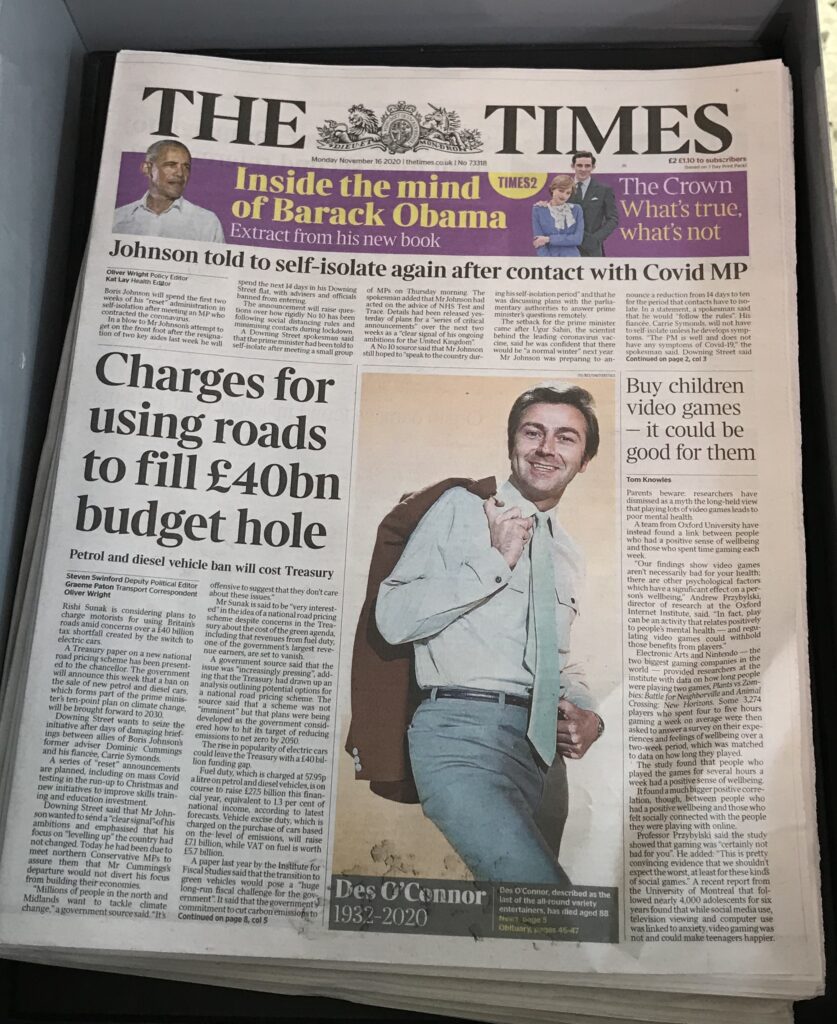
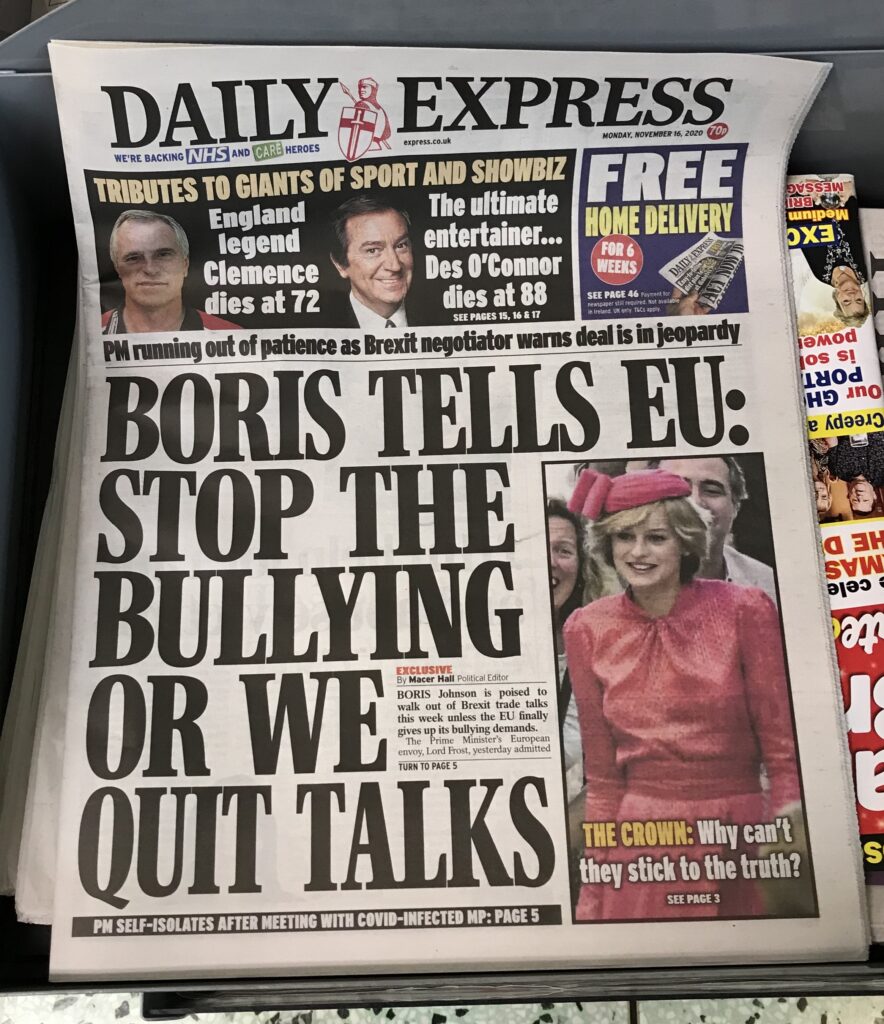
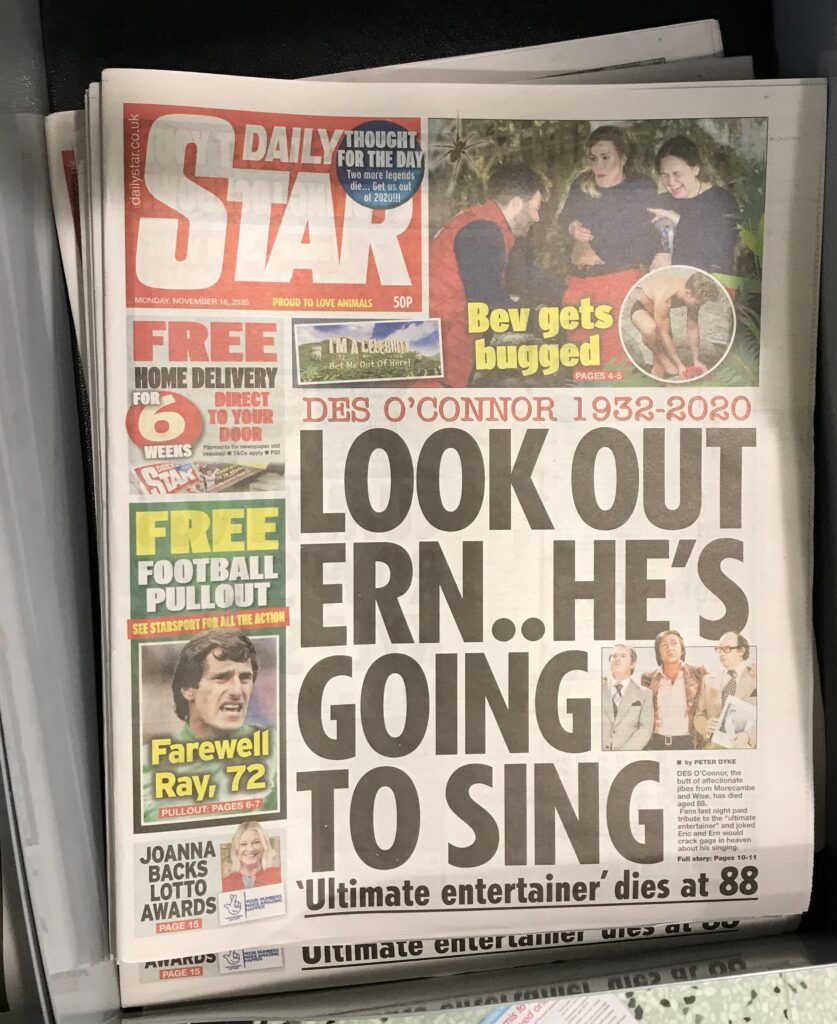
Fool Britannia Land of a most corrupt racist lying police force – a Vile Police State. November 13th 2020

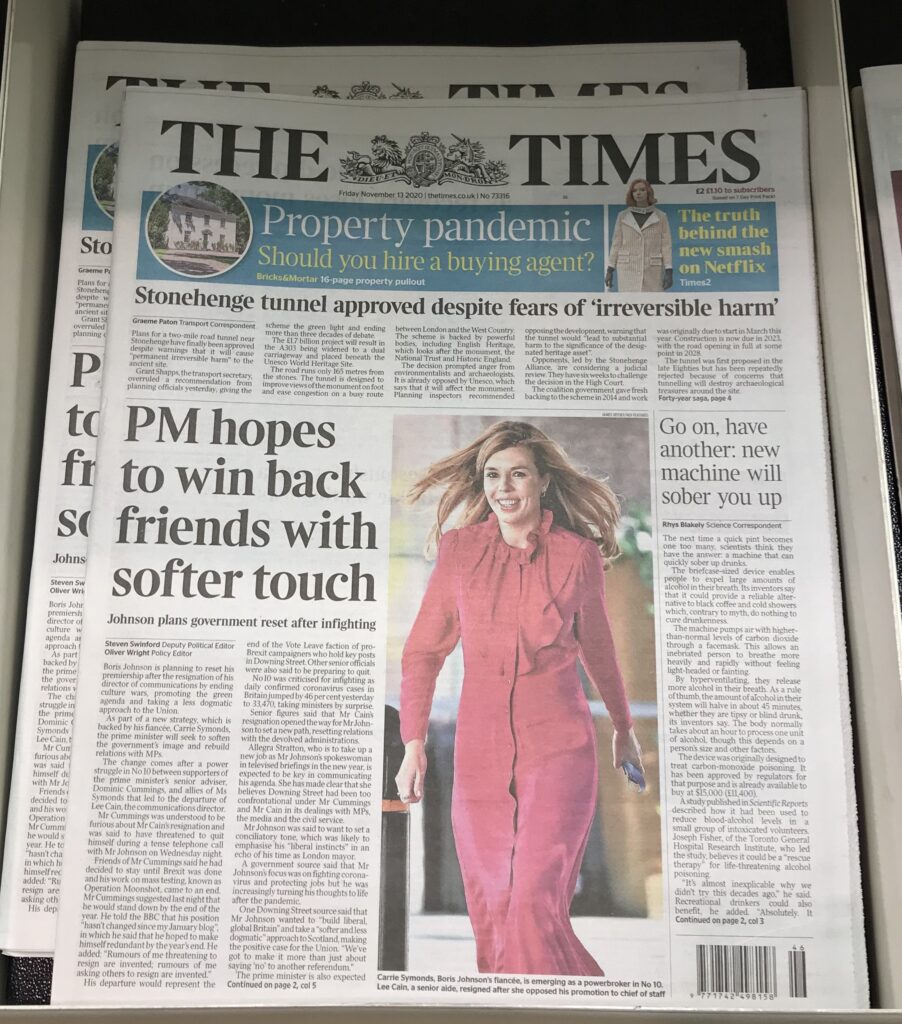
However, the alternative party is led by Starmer the despciably arrogant former leader of a corrupt Crown Prosecution Service that I fell fould of many times. Those disgusting people collude with corrupt police to fabricate and hide evidence as fits their need to jail innocent people – MEN – in fake sham British so called democracy – actually a polioce state that has hidden behind and corrupted the EU for years.
R.J Cook
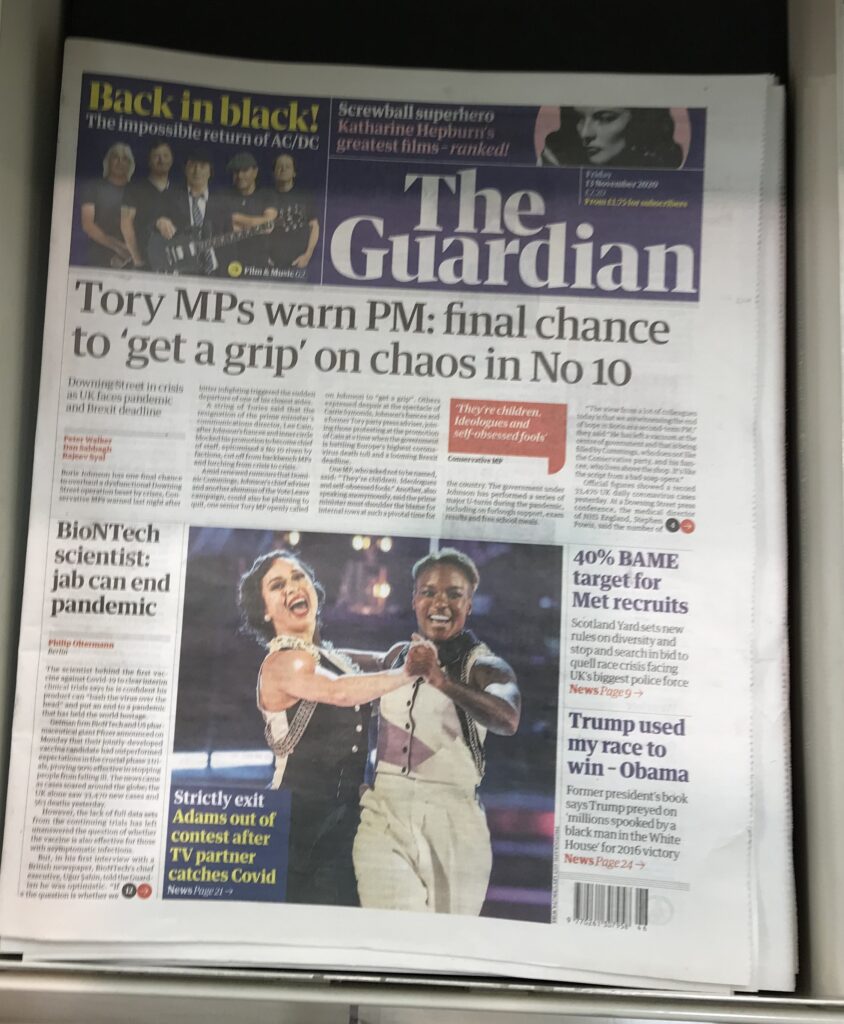
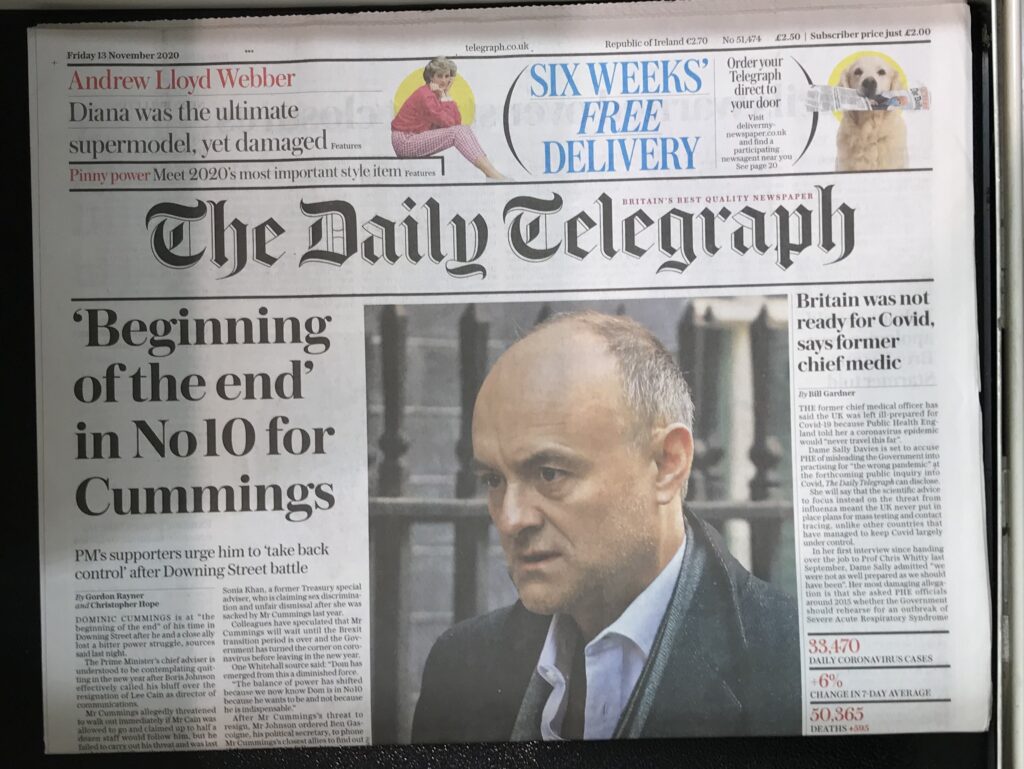
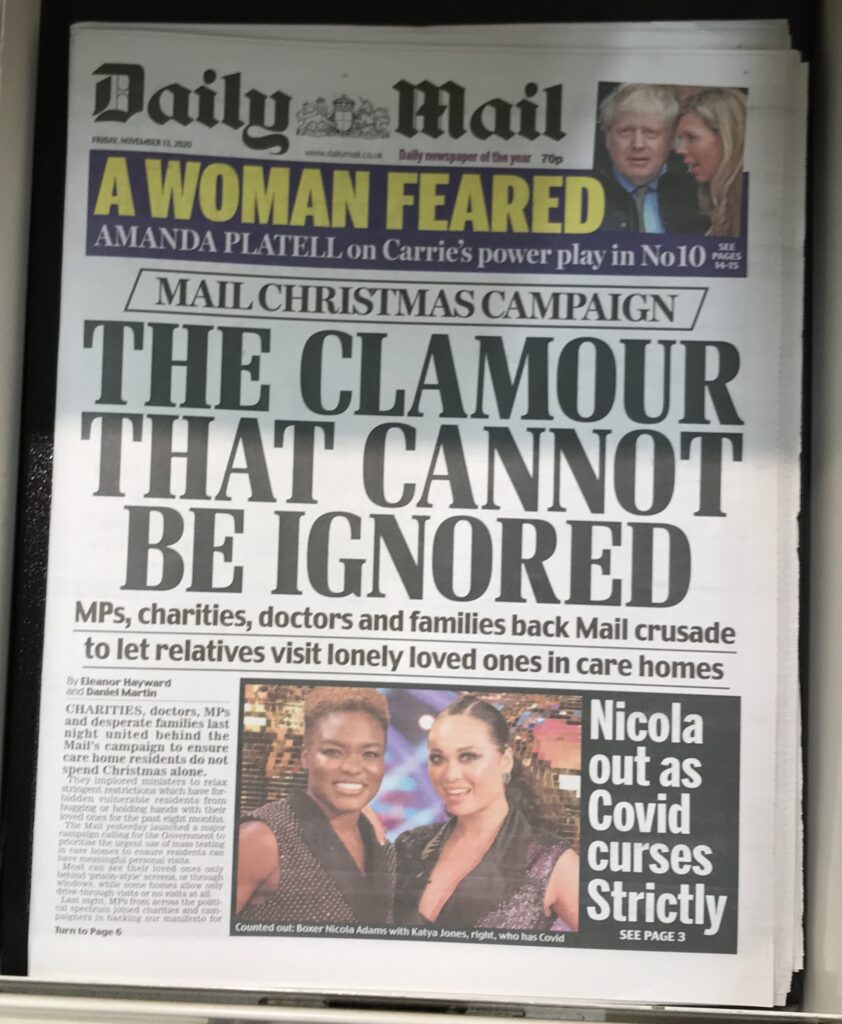
November 12th 2020
Another Day in Another Life

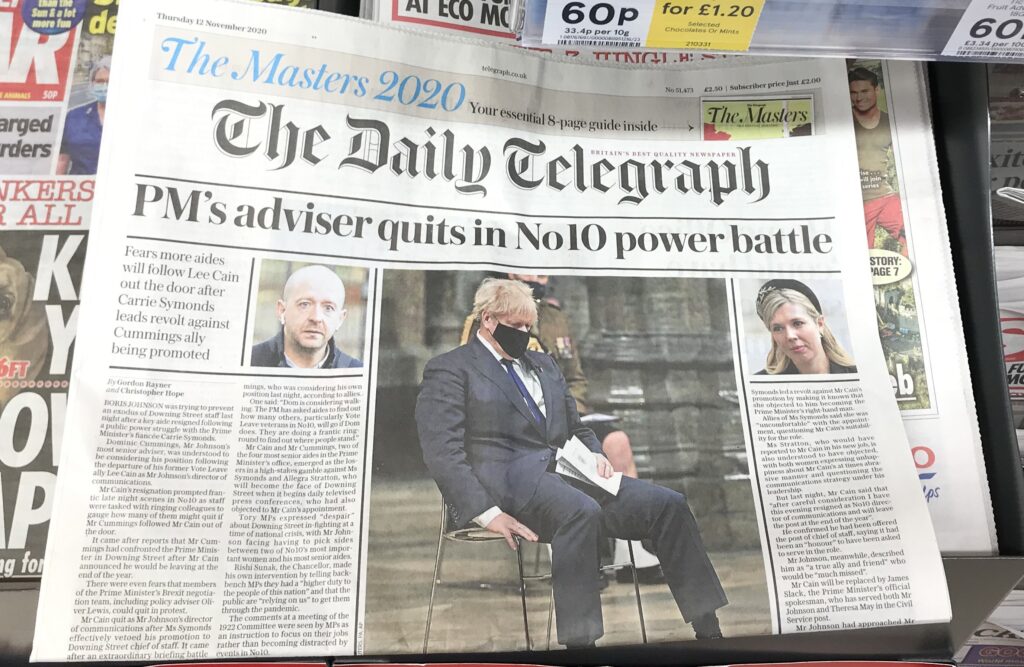
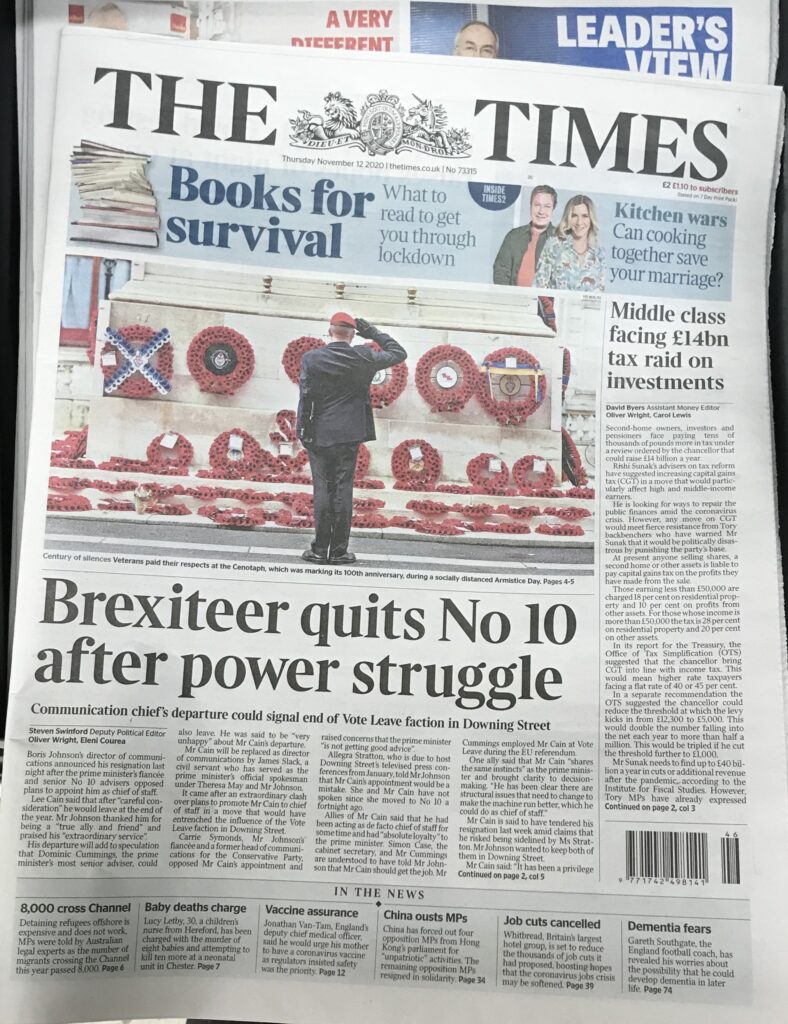
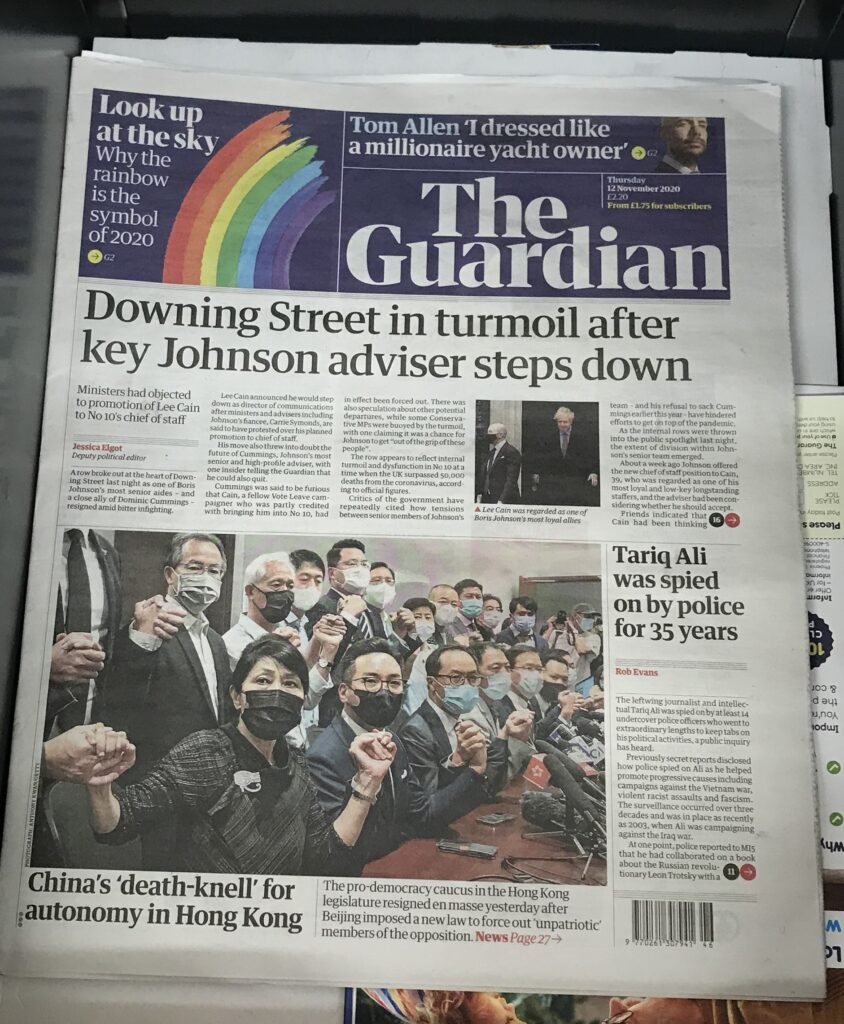
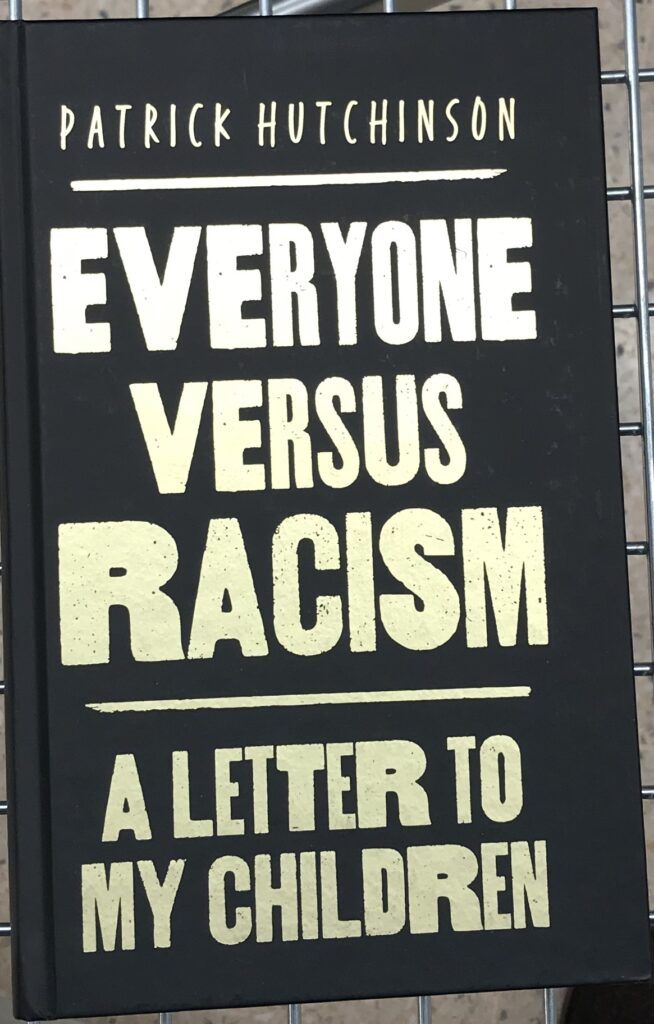
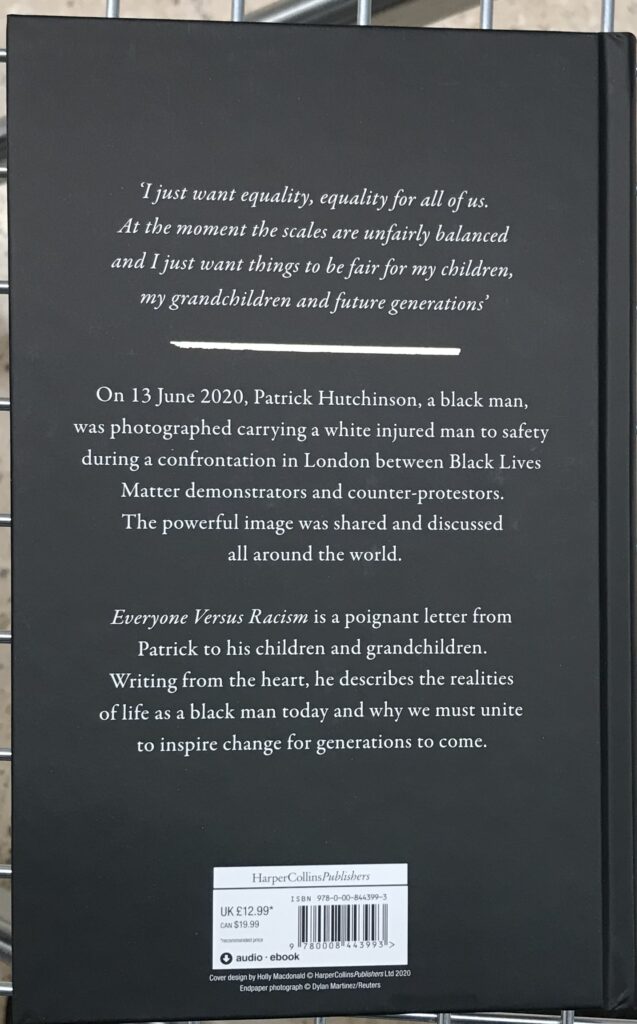
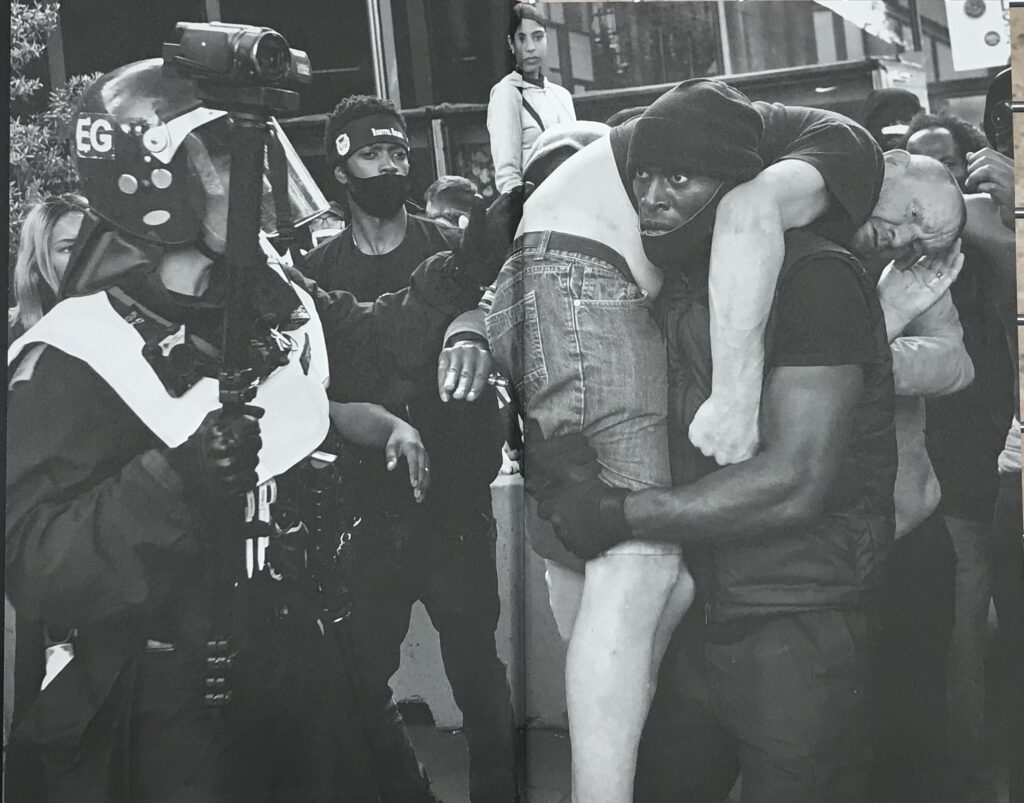
November 11th 2020


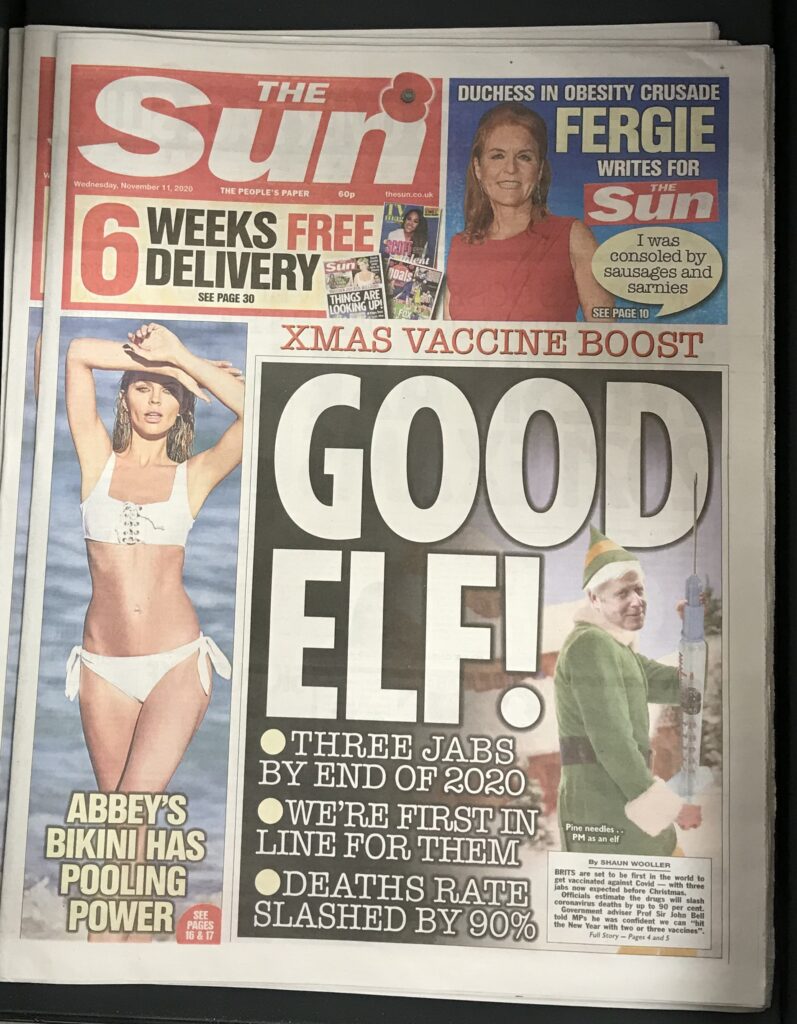





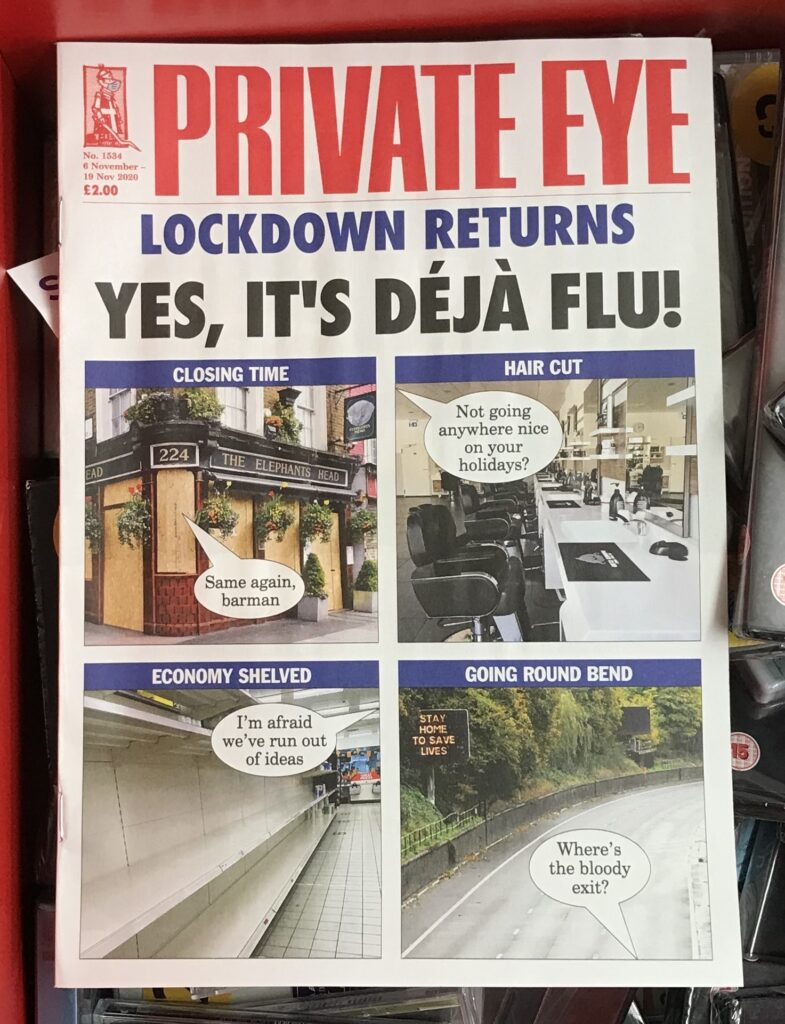
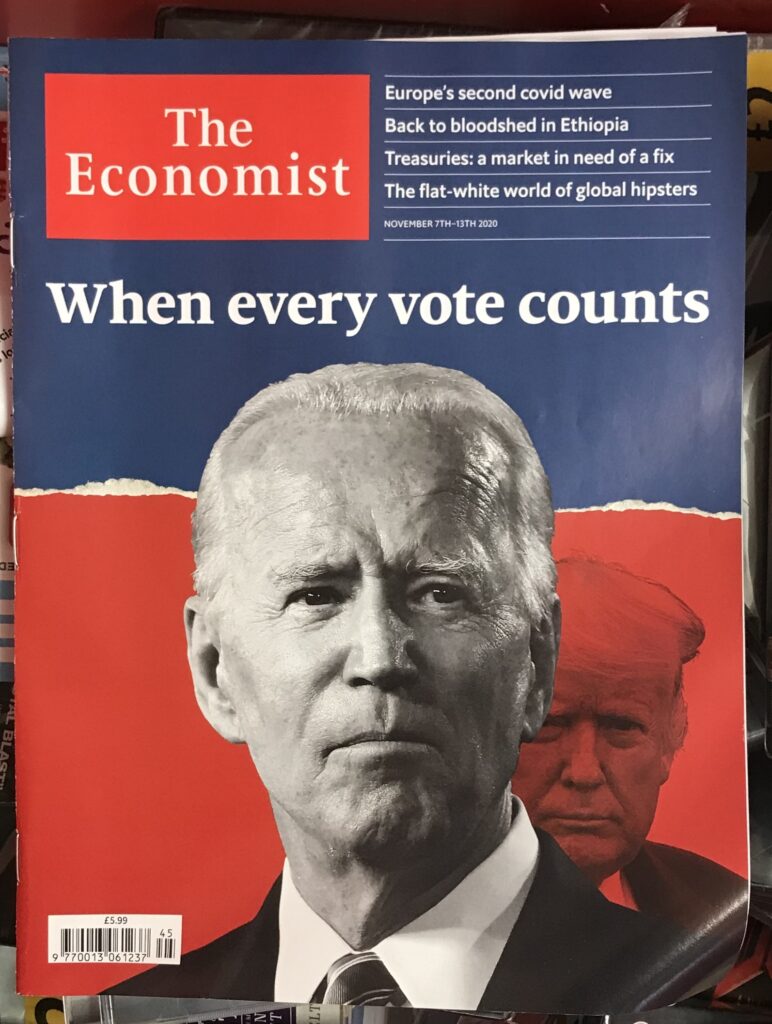

R,J Cook
November 9th 2020
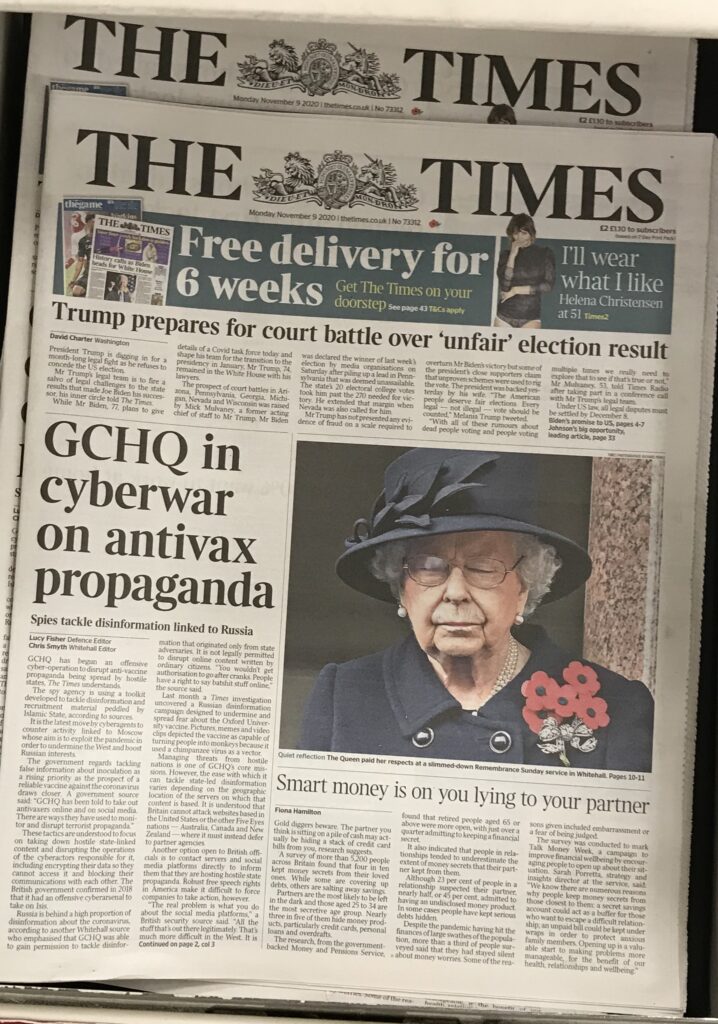


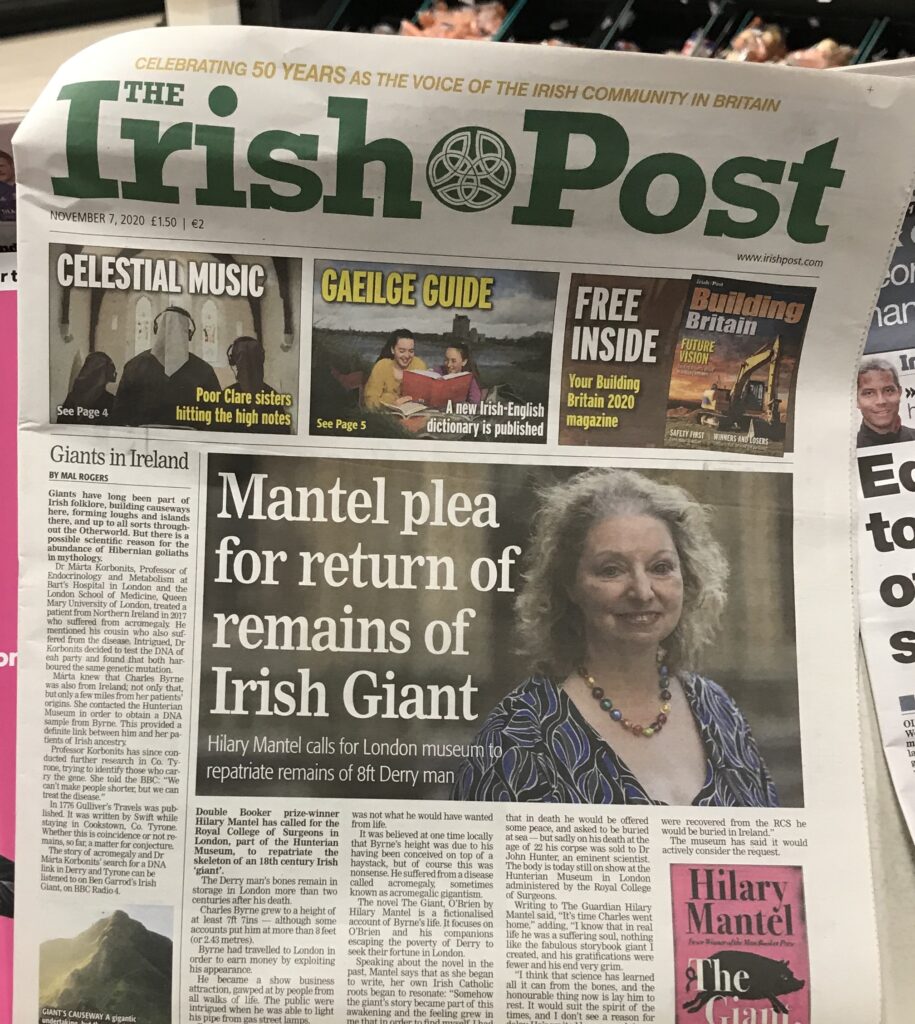
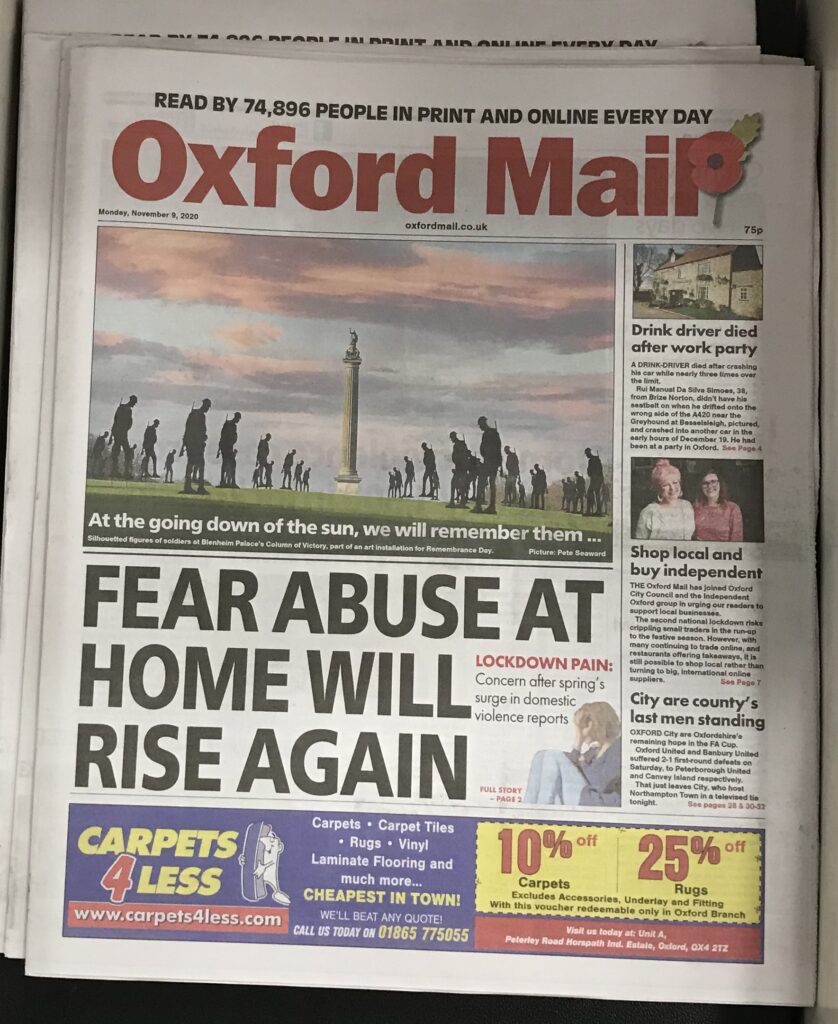
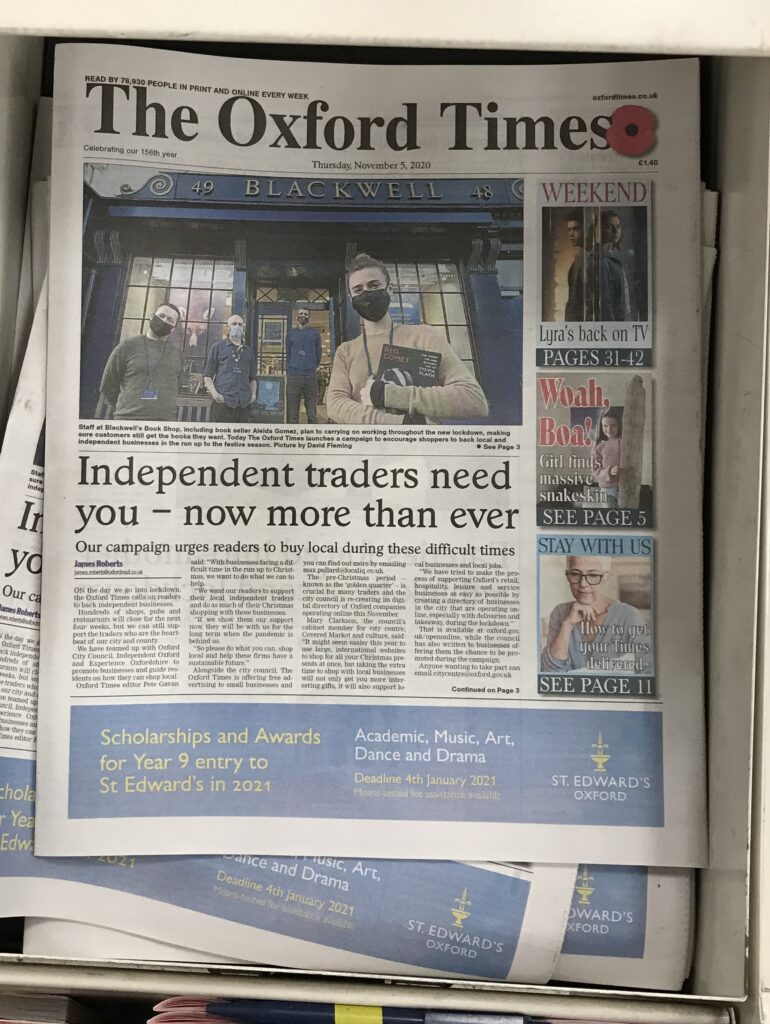
November 7th 2020
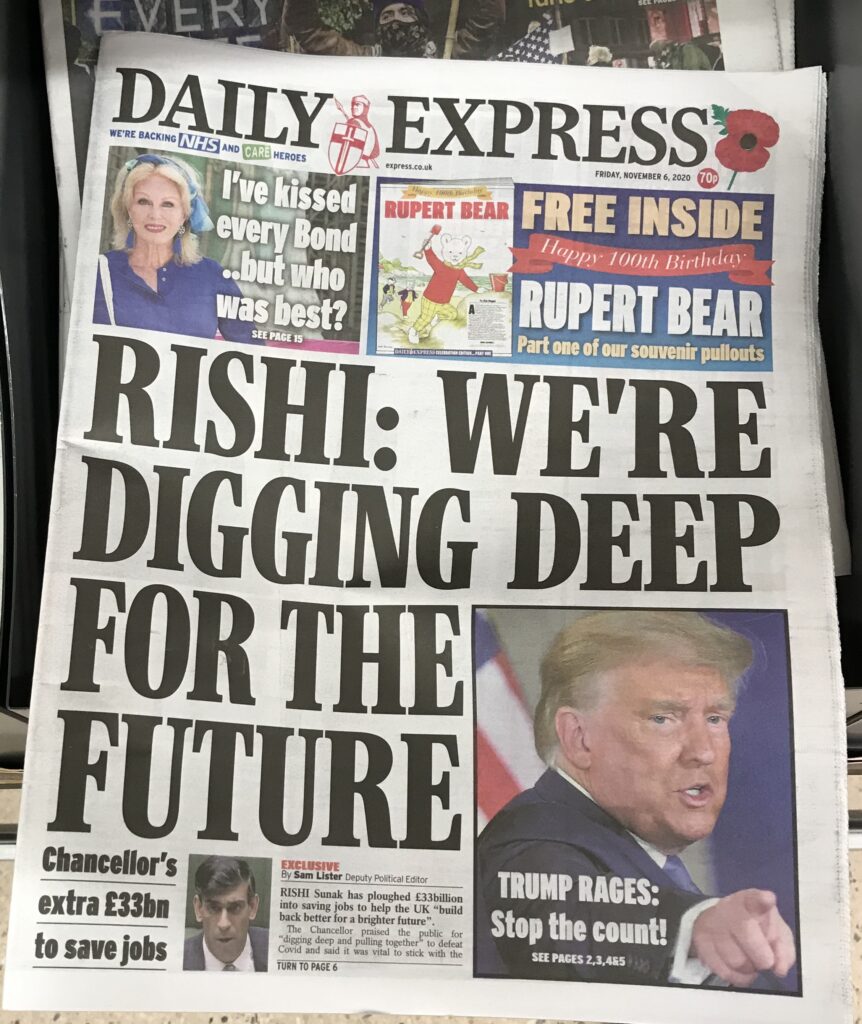
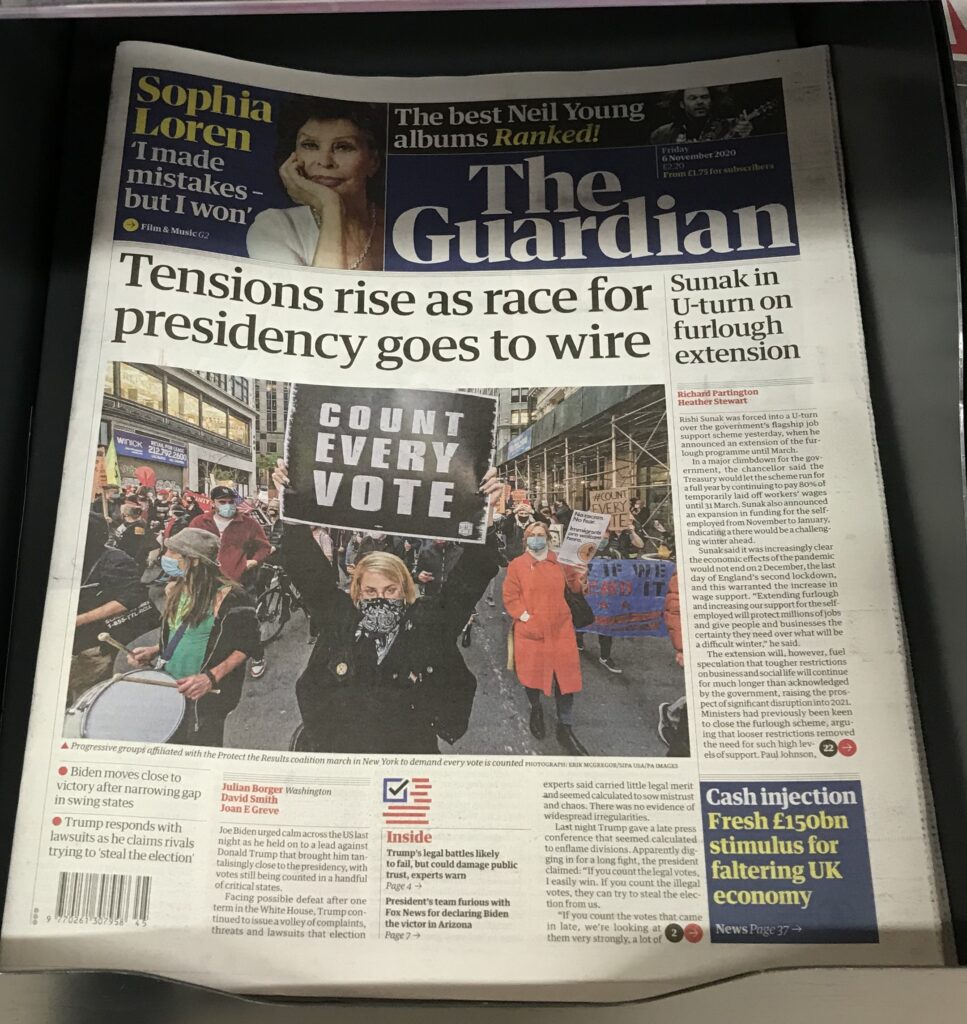
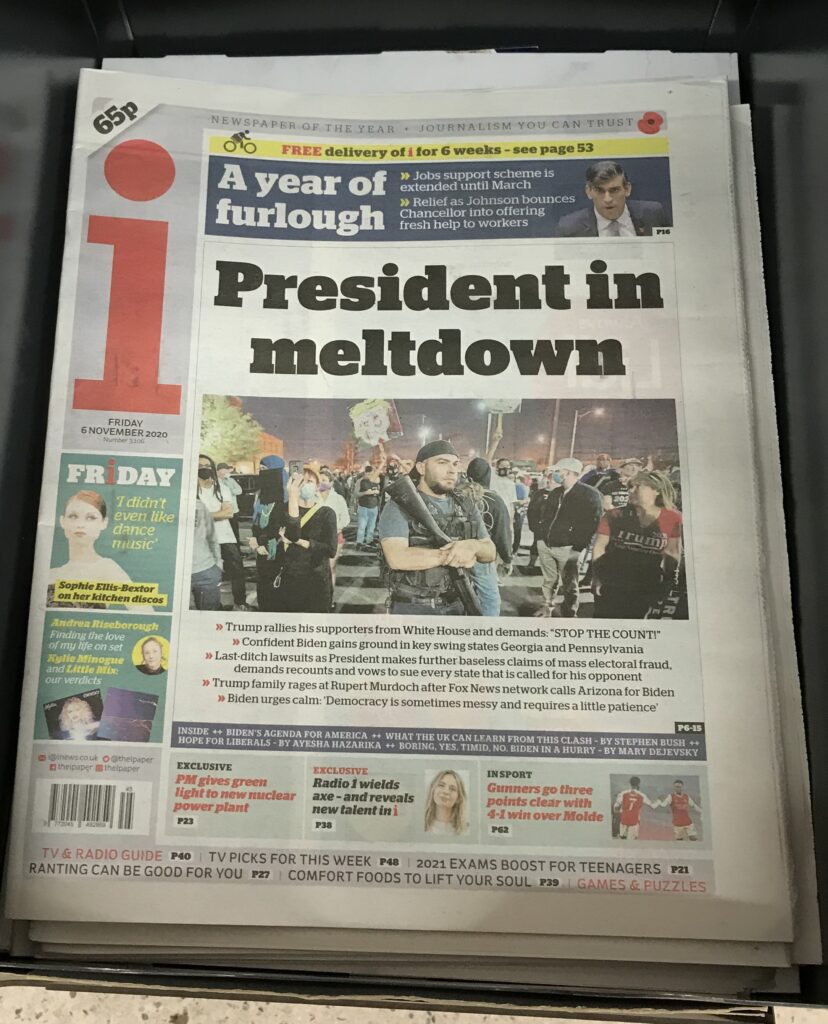
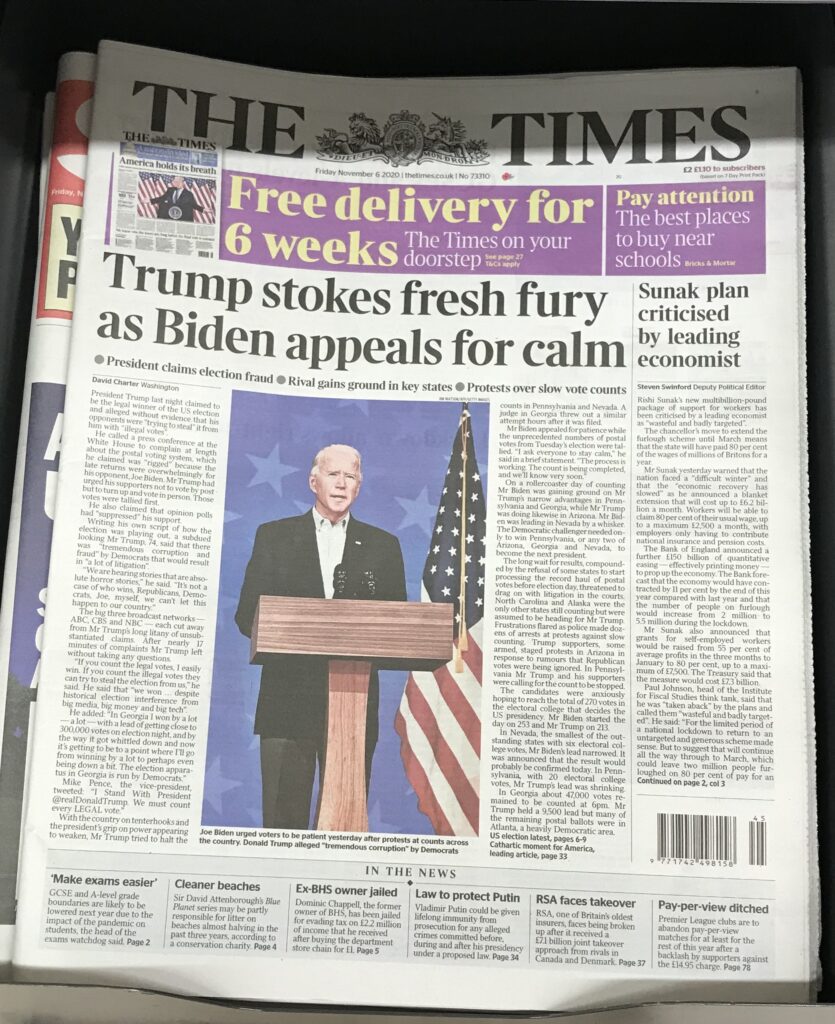
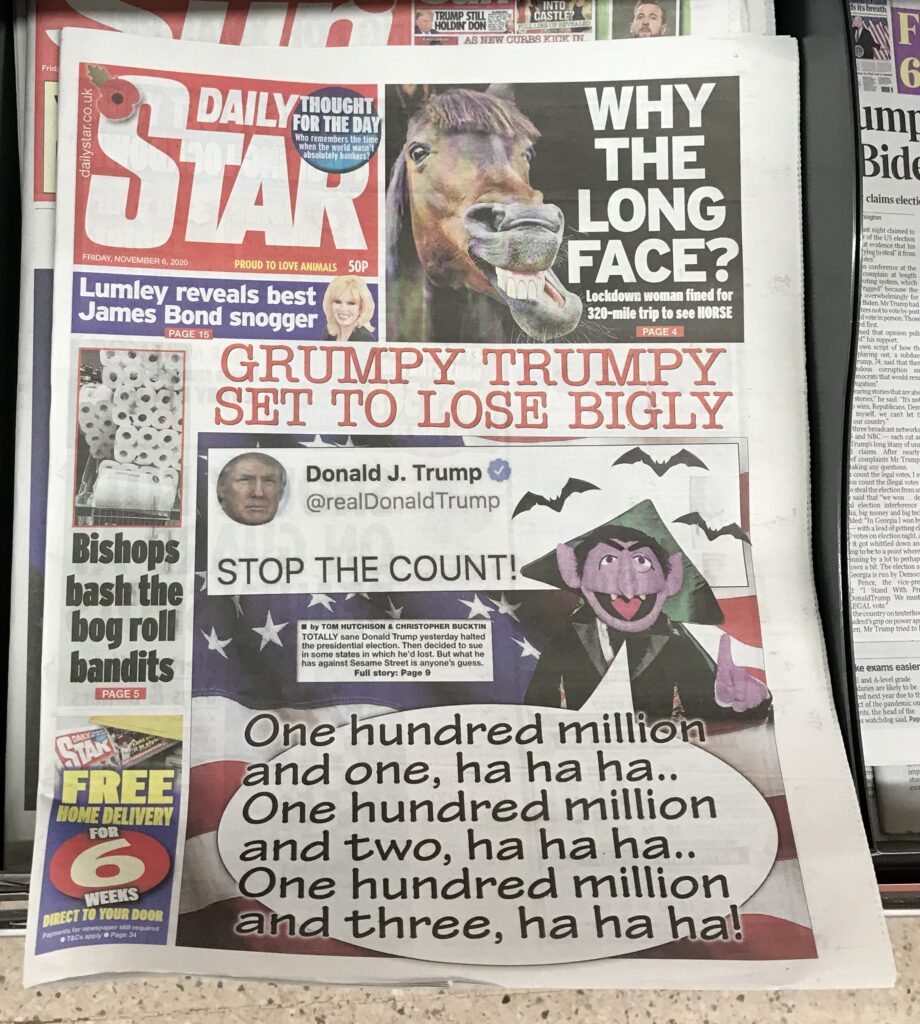
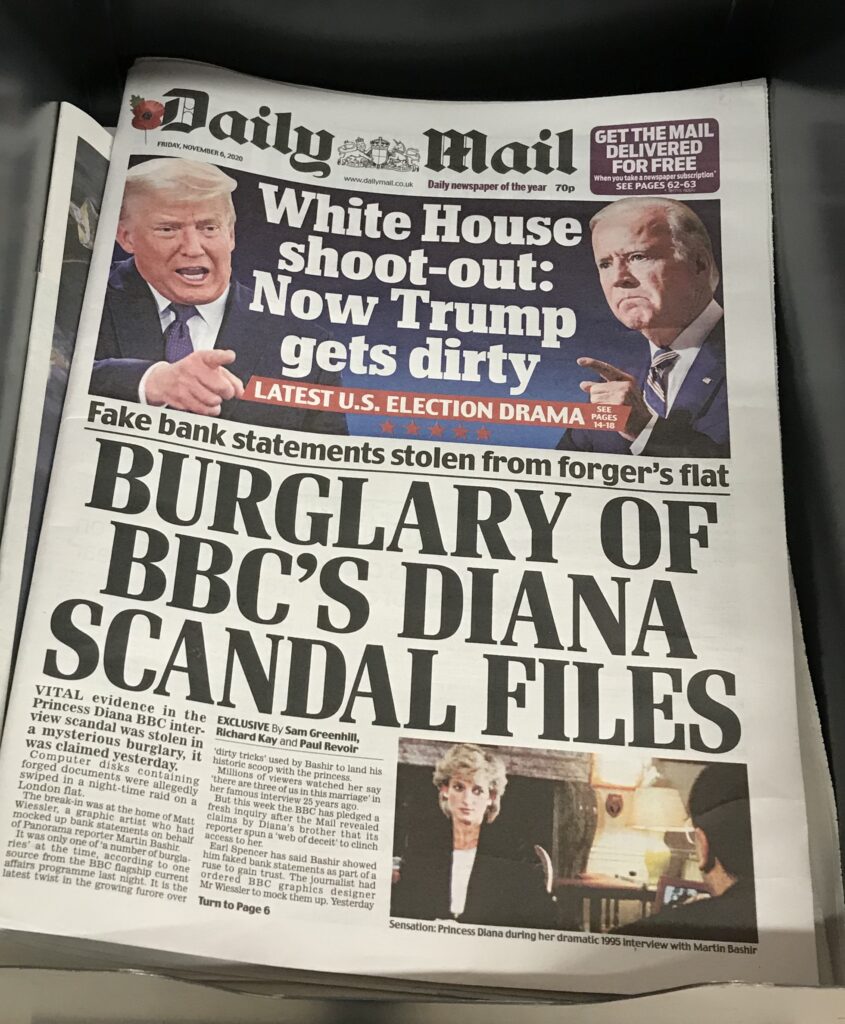
Fascist Britain November 5th 2020
Today is a special day for those who don’t like their government. It was 415 years ago that Robert Catesby, Guido Fawkes et al intended to blow up the King and Parliament. They were betrayed. Now the Government is considering a 500 page report arguing that people should betray family members at dinner if there is talk that maybe hate crime. On the face of it, this is all about protecting minorities.
I have a list of individuals who have committed hate crime against me, including police officers. I have not forgotten the senior police officer’s mother who screeched at me ‘You’re sick and in need of help.’ More to come on that one.
So I am heartened as these matters progress. Action, on my part is underway. What is sauce for the Goose etc. These law makers and enforcers deserve to be hoist by their own petard.
The Britsh Police State is an alarming place and the alarmers deserve to be alarmed. I have been taken to court for swearing at an officer who had maliciously arrested me, locked me in cells for 7 hours, taken my computers, driving licence, debit card and phone, then went to ground for over 3 worrying months. slagging me off to employers so costing me money. Still waiting for feedback on that one and the other hate crimes against me.
Their clincher was using a tame geriatric lying consultant psychiatrist to have me sectioned. This is Nazism. The so calledf far right are simply down trodden forgotten working class whites, just as in 1920s and 30s Germany. The elite and their police lackeys are arrogant morons ( moron means stupid person in case a moron is reading this and thinks I am referring to him or her ) and will not listen or learn.
Today, I learned of a daughter being arrested for assaulting her mother, accused by the staff of the care home where she was imprisoned. The 97 year old was locked in a car while the daughter, was taken to a police station after arrest by a burly officer et al.
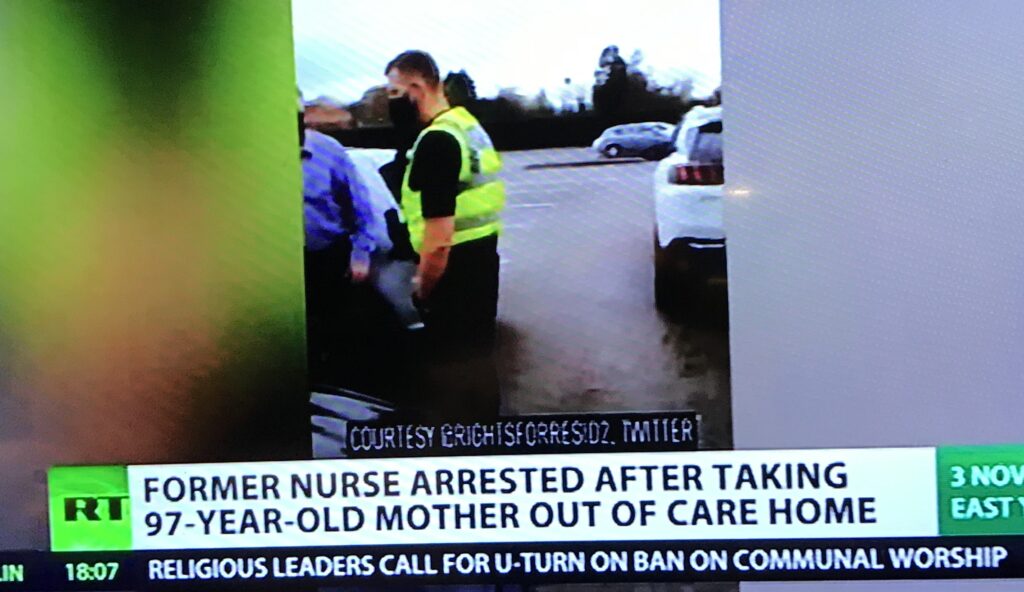
We pay taxes so the agents of the State – I used to be one of them – can brainwash and abuse us.
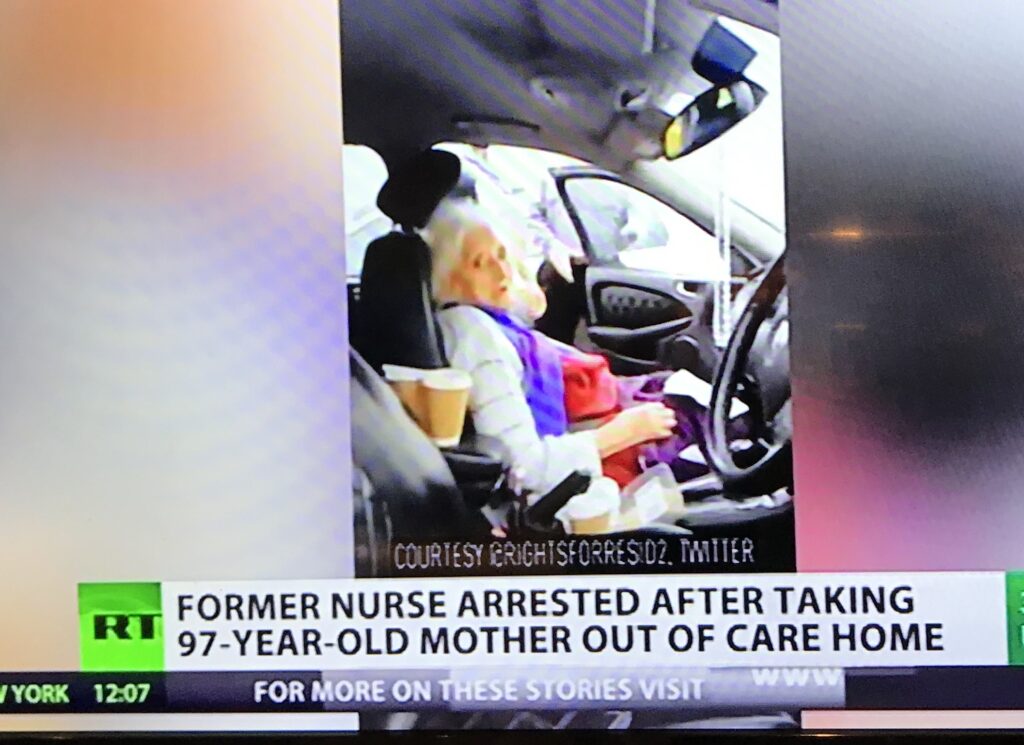


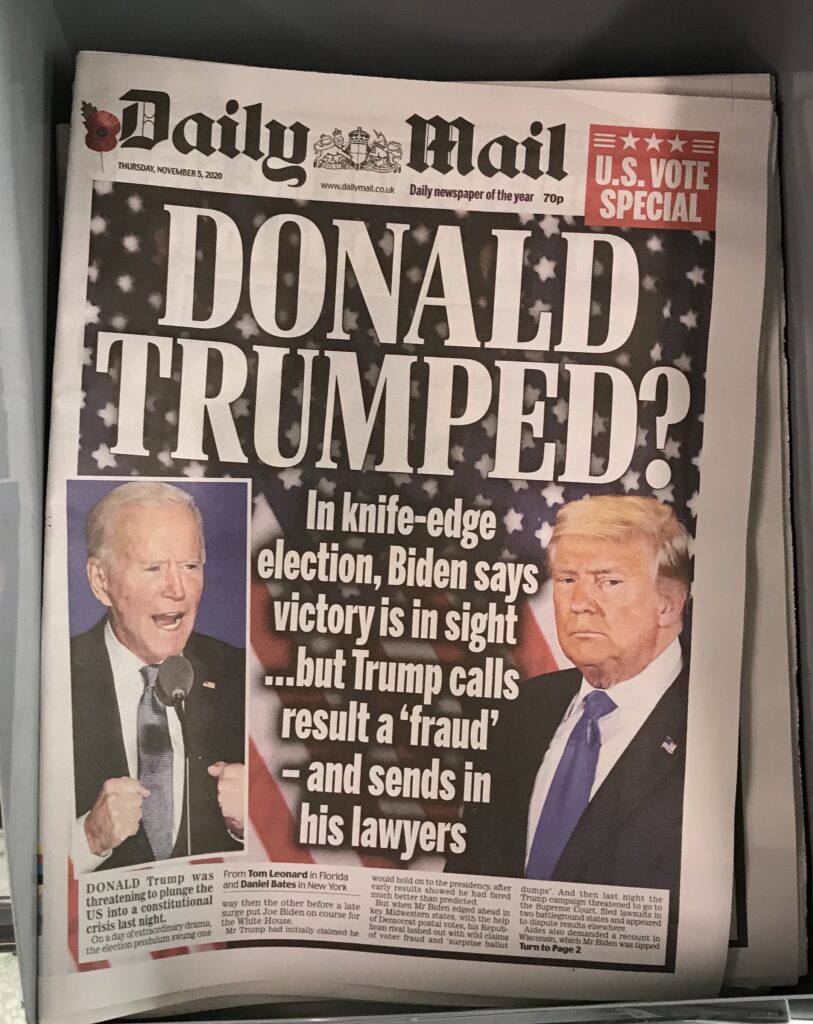
Anglo U.S had motive and have been insane. the big issue is there is an obscene amount of money in too few hands, making the west’s claim for democracy a sick vile joke.
Biden will be very ineresting because he has given BAME unrealistic hopes and has blamed everyone but blacks for their problems. Police are going to have fun, any blacks joining them will become pariahs. They will need more than British advice on the best of tasers to help them. R.J Cook
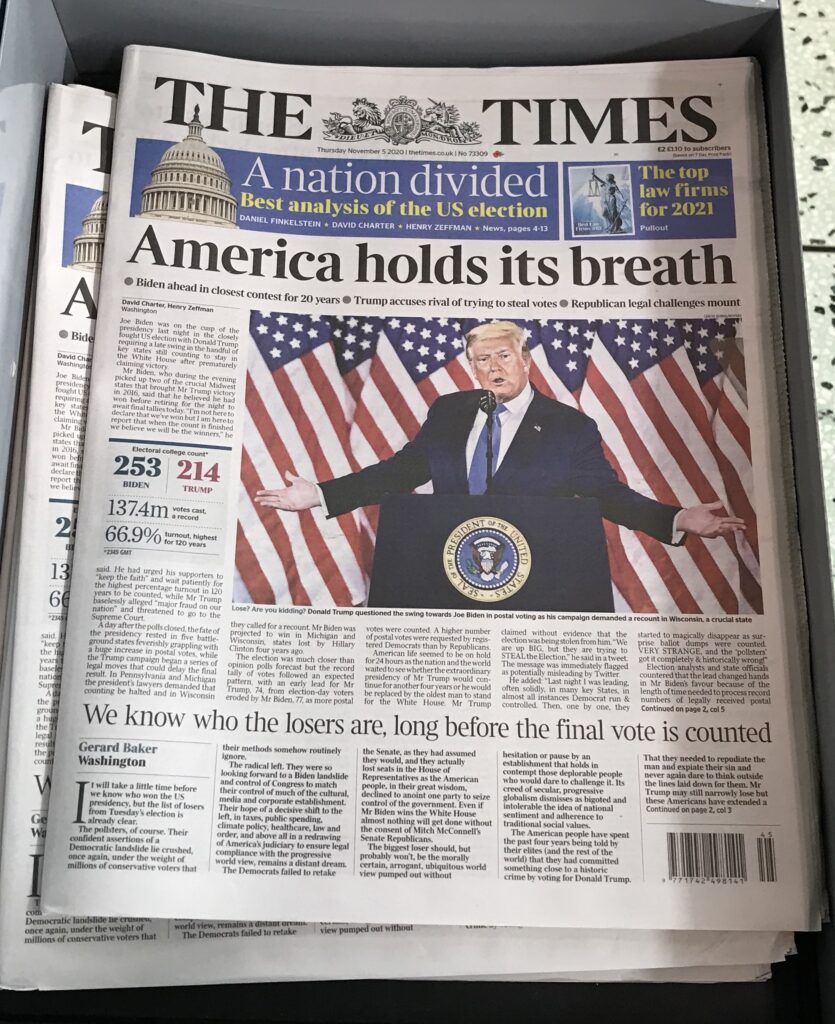

November 4th 2020
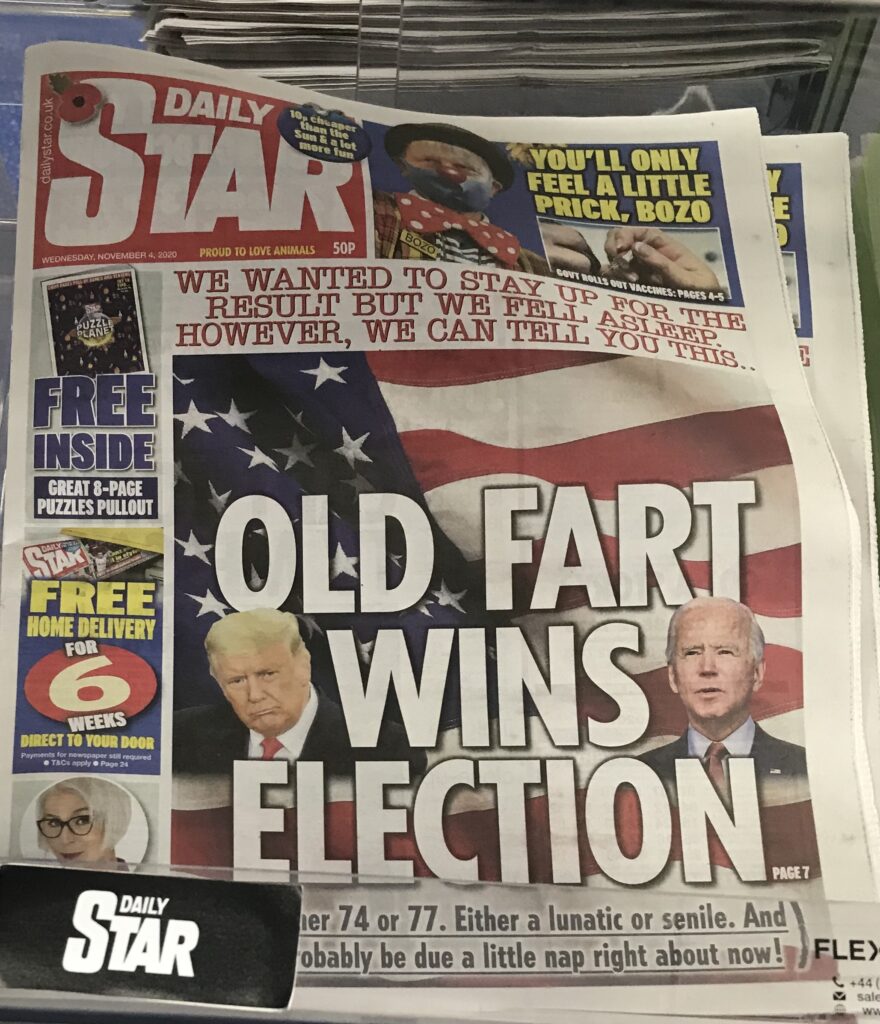


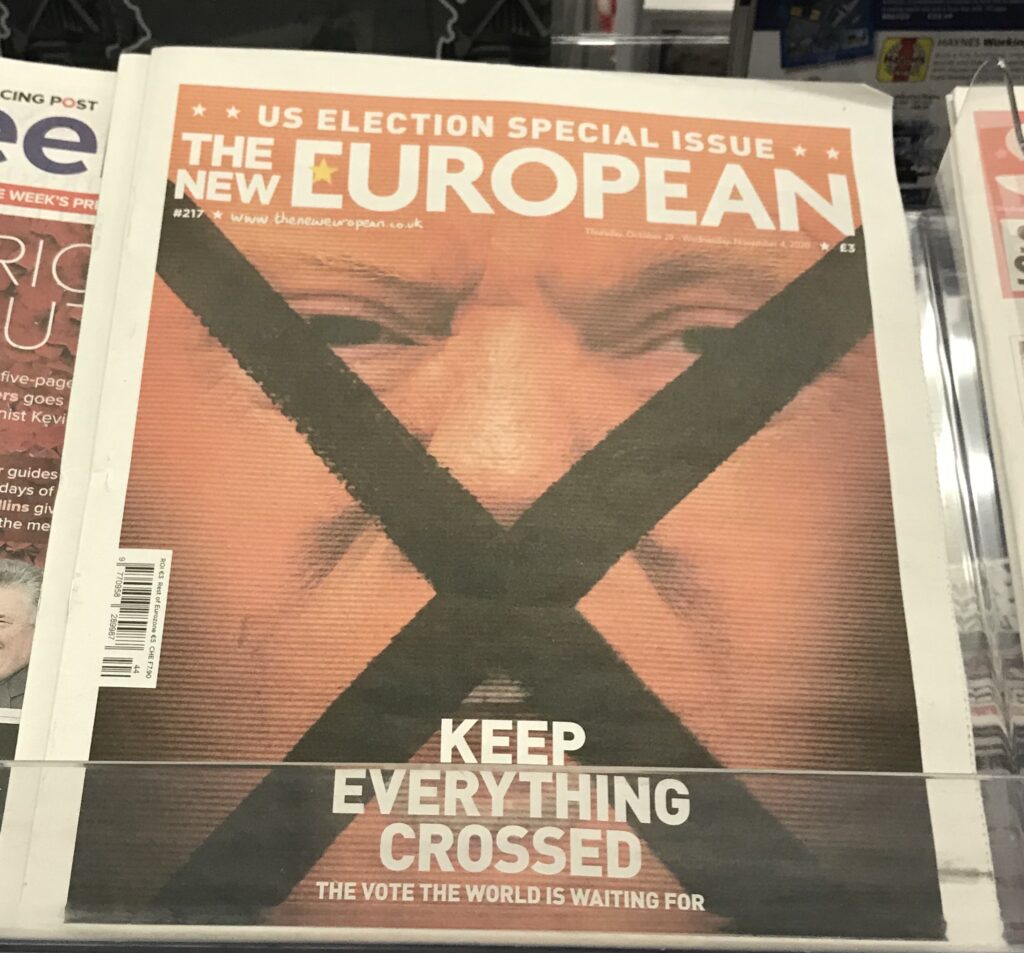
Over Heard November 4th 2020
Stylist Samantha McMillen says she could ‘see clearly’ Heard had no cuts or bruises on December 16, 2015Depp was allegedly violent towards Heard in a row at their LA penthouse the day before, which he denies .In a separate alleged incident in May 2016, Ms McMillen claimed Heard did not have any injuries on her face That was despite the actress claiming the Pirates of the Caribbean star had attacked her three days before
May 2016, Amber Heard, a 30-year-old aspiring actress, arrived at a Los Angeles court seeking a restraining order against her husband, the Hollywood star Johnny Depp.
As she left the building, she was surrounded by photographers, journalists and film crews. On her cheek was what appeared to be a mark. The court was also shown photographs of what looked like facial bruising.
She said Depp had “violently” attacked her and in a rage had thrown a mobile phone at her face with “extreme force”. There were also allegations of other incidents of domestic violence. She said she had endured “excessive emotional, verbal and physical abuse” and “angry, hostile, humiliating and threatening assaults”. Depp denied the abuse.
The restraining order was granted, and soon after the marriage was over.
Four years later the couple were back in court, but this time in London. However, this was not Amber Heard’s case – she had not chosen to be here. This was a libel action Depp had brought against a British newspaper, The Sun.
At the heart of the case was his assertion that the allegations of physical abuse were an “elaborate hoax”. Depp employed one of the best-known libel barristers in the country to try to prove the claims were untrue.
Over the next three weeks, Heard arrived at court each day and walked past her former husband’s fans, who were convinced that it was their hero who was the victim and it was she who had assaulted him. In court her story, photos, memories and the accounts of her friends were all exposed to the world and said by Depp’s team and supporters to be part of a plot to falsely prove that he was, as The Sun had claimed in April 2018, a “wife beater”.
It was not just the fans and media who were watching carefully. Lawyers were already wondering, if he won, what impact this would have on women coming forward with claims of domestic violence.
The accusations were shocking. Heard said she had been assaulted by him on more than 14 occasions. She said she had, at times, been in fear for her life and left with a broken nose, black eyes and split lip. Vicious, drunken tirades had, she said, lasted for days. There was also a 15th allegation too traumatic and personal to be heard in open court.
It felt like a criminal trial; Depp was being accused of repeated assaults on his former partner, the sort of violence that has sent others to prison. But this wasn’t a criminal trial.
It was easy to forget this was a libel battle between Depp and News Group Newspapers, the publishers of The Sun, because no-one from the newspaper was called to the witness stand. Dan Wootton, the journalist whose article had said there was “overwhelming evidence” that the actor was a “wife beater” was not even on the list of 79 names cited in the trial’s documents.
We were shown text messages and video footage of meetings in lifts. The super-rich spend millions protecting their privacy and here was a couple revealing a telephone directory’s worth of secrets. No star would do this unless they felt there was something bigger at stake. For Depp, that was restoring his reputation.
But why did this battle begin in the UK?
The article with the Dan Wootton byline, in particular the phrase “wife beater” in a headline that was later changed, had given Johnny Depp a chance to test his ex-wife’s claims in court – and what’s more, an English court.
It would require a much longer article to explain all the differences, but the essence of the legal split between England and America is that if you write something defamatory in London, the burden is on you to prove it is true.
In America, the defamed person has to prove it isn’t true, a very different task. It sounds a slender legal nicety but it can make all the difference.
Amber Heard was 22 when she met Johnny Depp on the set of the film The Rum Diary in 2009. He was 23 years older and in a long-term relationship with singer and actress Vanessa Paradis. Heard’s wife at the time was the artist Tasya Van Ree.
Two years later, Heard was living with Depp in a penthouse in downtown LA, Depp having separated from Paradis, his partner of 14 years. Heard and Depp married in February 2015, and just over a year later it was over.
Since then, Amber Heard has become a vocal campaigner on the issue of domestic and sexual abuse. The UN Human Rights Campaign named her as a Human Rights Champion for her work promoting women’s rights. She became an Ambassador for Women’s Rights for the American Civil Liberties Union (ACLU) and she has given speeches and written in the Washington Post and New York Times about her experience of domestic violence.
Heard now has a niche in the populist ‘Me Too’ movement speaking up for women who claim to have suffered in silence by revealing the abuse she had endured at the hands of one of the most powerful people in Hollywood. She was Amber Heard, actot and ‘survivor.
Johnny Depp could not be allowed to get away with describing her accusations as a hoax, he was not just challenging her story, he was ripping away the foundations of her public profile. There was a lot at stake here – including target driven police and prosecutors feeding off doemstic violence allegations, eager to convict more alleged rapists and abusers by withholding evidence and packing juries with like minded women.
The entire process was a brutal public examination of a couple’s private life, and a warning to anyone who wants to use the courts to restore a reputation. The courts are a very strong arm of a well armed police state.
It was clearly a doomed relationship, but the case depended on proving who had done what to whom. Now women’s groups are calling for Hollywood to axe him.
And in the end, the judge inevitably decided it was true to describe Depp as a “wife beater”. The tabloid media would have gone for him if he had not.
Comment Prior to the 1950s there were strict rules of contact between the sexes. They need to be restored. The case is complicated because the rich are different. Clearly a mediocre actress trading on cock teasing glamour has much to gain from joining the ‘me too’ campaign. The truth of the court decision cannot be questioned because of the feminist mantra that more women must come forward and the lie that women never lie and are only violent when provoked.
Men on the other hand are labelled rapists – in spite of widespread impotence, record viagra demand, with many opting for the gay or transgender routes. Men need safe spaces from women and women should not be allowed into what were male only spaces. In this context transsexuals need their own public toilets and rest rooms to protect them from women’s false allegations and from sex starved men.The ratchet is getting even tighter with misogyny soon to be criminalised/
If there must be all these new female friendly laws and rules of engagement, then there are consequences. The global rich need to pay taxes to cover them because it is the elite and their spoiled ambitious daughters who have forced and sustained this world where men are easy targets for female malice, revenge and greed. As for Johnny Depp, he was an idiot to marry a girl young enough to be his daughter. Stars get paid too much, drugs are used to sustain their fake bubbly effervescent personalities. In this light, Heard could gain fame in his glow, then put his fire out.
R.J Cook
Bruce Springsteen and the Art of Aging Well November 3rd 2020
What the happiest Springsteen album in decades can teach us about Joe Biden, the wisdom of maturity, and the meaning of life October 23, 2020 David Brooks Contributing writer at The Atlantic and columnist for The New York Times. Enjoy unlimited access to The Atlantic for less than $1 per week. Sign in Subscribe Now
I recently saw a photo of Lyndon B. Johnson in the first year of his presidency. He looked like a classic old guy—wrinkled, mature, in the late season of life. It was a shock to learn that he was only 55 at the time, roughly the same age as Chris Rock is now. He left the presidency, broken, and beaten, at 60, the same age as, say, Colin Firth is now.
Something has happened to aging. Whether because of better diet or health care or something else, a 73-year-old in 2020 looks like a 53-year-old in 1935. The speaker of the House is 80 and going strong. The presidential candidates are 77 and 74. Even our rock stars are getting up there. Bob Dylan produced a remarkable album this year at 79. Bruce Springsteen released an album today at 71. “Active aging” is now a decades-long phase of life. As the nation becomes a gerontocracy, it’s worth pondering: What do people gain when they age, and what do they lose? What does successful aging look like?
President Donald Trump is a prime example of an unsuccessful older person—one who still lusts for external validation, who doesn’t know who he is, who knows no peace. Nearly two millennia ago, the Roman statesman Cicero offered a more robust vision of what elders should do and be: “It’s not by strength or speed or swiftness of body that great deeds are done,” he wrote, “but by wisdom, character and sober judgment. These qualities are not lacking in old age but in fact grow as time passes.”
More by this writer
- America Is Having a Moral Convulsion David Brooks
- Bruce Springsteen’s Playlist for the Trump Era David Brooks
- The Culture of Policing Is Broken David Brooks
David Brooks: Bruce Springsteen’s playlist for the Trump era
Springsteen is the world champion of aging well—physically, intellectually, spiritually, and emotionally. His new album and film, Letter to You, are performances about growing older and death, topics that would have seemed unlikely for rock when it was born as a rebellion for anyone over 30. Letter to You is rich in lessons for those who want to know what successful aging looks like. Far from being sad or lachrymose, it’s both youthful—loud and hard-charging—and serene and wise. It’s a step forward from his Broadway show that debuted three years ago and his memoir, released four years ago. Now he’s not only telling the story of his life, but asking, in the face of death, about life’s meaning, and savoring life in the current moment.
It’s the happiest Springsteen album maybe in decades. “When I listen to it, there’s more joy than dread,” Springsteen told me. “Dread is an emotion that all of us have become very familiar with. The record is a little bit of an antidote to that.” The album generates the feeling you get when you meet a certain sort of older person—one who knows the story of her life, who sees herself whole, and who now approaches the world with an earned emotional security and gratitude.
The album, and the film that recorded the making of the album (I recommend watching the film first), was occasioned by a death. From 1965 to 1968, when rock was in its moment of explosive growth and creativity, Springsteen was in a band called the Castiles. Two years ago, Springsteen found himself at the bedside of a member of that band, George Theiss, as he died of cancer. After his passing, Springsteen realized that he is the sole remaining survivor from that band—the “Last Man Standing,” as he puts it in one of the songs on the new album.
The experience created an emotional vortex and the music poured out of him. “The actual mechanics of songwriting is only understandable up to a certain point,” Springsteen told me, “and it’s frustrating because it’s at that point that it begins to matter. Creativity is an act of magic rising up from your subconscious. It feels wonderful every time it happens, and I’ve learned to live with the anxiety of it not happening over long periods of time.”
On the album, Springsteen goes back in time to those mid-’60s years when he, Theiss, and the Castiles would play in the union halls, hullabaloo clubs, and bowling alleys around Freehold, New Jersey. He goes further back, to his childhood, and reminisces about the trains that used to rumble through town; the pennies he’d put on the tracks; and when he first became familiar with death as a boy, going to the funerals of his extended clan, walking up semi-terrified and kneeling before the casket and then walking back home with a sense of trembling accomplishment.
“Memory is many things,” the Benedictine nun Joan Chittister has written. “It is a call to resolve in us what simply will not go away.” Springsteen has made a career, and built a global fan base, out of going back and back, to Freehold and Asbury Park, and digging, digging, digging to understand the people he grew up around and who made him, for good and ill, the man he became. “The artists who hold our attention,” he told me, “have something eating away at them, and they never quite define it, but it’s always there.”
Even in his 70s, Springsteen still has drive. What drives him no longer feels like ambition, he said, that craving for success, recognition, and making your place in the world. It feels more elemental, like the drive for water, food, or sex. He talks about this in the movie: “After all this time, I still feel the burning need to communicate. It’s there when I wake every morning. It walks alongside of me throughout the day … Over the past 50 years, it has never ceased. Is it loneliness, hunger, ego, ambition, desire, a need to be felt and heard, recognized, all of the above? All I know, it is one of the most consistent impulses of my life.”
David Brooks: How music made Bruce Springsteen
With the Castiles, he not only learned how to do his job but also found his mode of emotional communication and a spiritual awareness. He found his vocation, and his vehicle for becoming himself. A lot of the music on this album is about music, the making of it and the listening to it, the power that it has. The songs “House of A Thousand Guitars” and “Power of Prayer” are about those moments when music launches you out of normal life and toward transcendence. For a nonreligious guy, Springsteen is the most religious guy on the planet; his religion is musical deliverance.
Like every successful mature person, Springsteen oozes gratitude—especially for relationships. The film is largely about the camaraderie of the E Street Band, men and women who have been playing together off and on for 45 years and who have honed their skills and developed a shorthand for communicating. We watch them discussing and arguing over how to put each song together, then savor the end result. The band sounds fantastic, especially the powerful drumming of Max Weinberg.
The film intersperses clips of Springsteen recording and performing with the same guys four decades ago, when they were young and lithe, and today, when they’re a bit grizzled. “We weren’t immune from the vicissitudes. We had the same ups and downs as most rock bands,” Springsteen told me. “It’s like a marriage. The ups and downs have deepened us. The band is as close now as it’s ever been. We had to suffer.”
Letter to You is a sincere and vulnerable album. It conveys Springsteen’s appreciation for the conversation he’s had with his audience, and his appreciation for the dead and the debts we owe them. The core of the album comprises three songs about how the dead live on in us and in the ensuing generations. “It’s just your ghost / Moving through the night / Your spirit filled with light / I need, need you by my side / Your love and I’m alive,” Springsteen sings in “Ghosts,” the best track on the album.
“When you’re young, you believe the world changes faster than it does. It does change, but it’s slow,” Springsteen told me. “You learn to accept the world on its terms without giving up the belief that you can change the world. That’s a successful adulthood—the maturation of your thought process and very soul to the point where you understand the limits of life, without giving up on its possibilities.”
Attaining that perspective is the core of successful maturity. Carrying the losses gently. Learning to live with the inner conflicts, such as alternating confidence and insecurity. Getting out of your own way, savoring life and not trying to conquer it, shedding the self-righteousness that sometimes accompanies youth, and giving other people a break. The owl of Minerva flies only at dusk, as they used to say.
That perspective is evident in the movie’s “bright sadness,” to use a term from the Franciscan monk Richard Rohr. Directed by Thom Zimny, the film cuts again and again to overhead shots of snow-covered forests—Old Man Winter coming. But inside the studio, everything is warm and full of music. The dreams of Springsteen and his band came true times a thousand; they have good reason to be content in old age. But studies show that most people do get happier as they age. They focus more on life’s pleasures than its threats.
Arthur Brooks: What to do when the future feels hopeless
As you watch the film, you may think of not only personal maturity but also national maturity. America has always fancied itself as wild and innocent; youth, Oscar Wilde observed, is the country’s oldest tradition. After the past 20 years, and especially after the presidency of Donald Trump, we’ve become jaded, and look askance at our former presumption of innocence. But, taking a cue from Springsteen, maybe we can achieve a more mature national perspective in the years post-Trump.
“Joe Biden is like one of the fathers in the neighborhood I grew up with as a kid,” Springsteen told me. “They were firemen and policemen, and there was an innate decency to most of them that he carries naturally with him. It’s very American.”
Approaching 80, Biden is pretty old. Seventy-seven is probably not the ideal age to start such a grueling job as president of the United States. But making the most of the not-ideal is what maturity teaches. The urge to give something to future generations rises up in people over 65, and a style of leadership informed by that urge may be exactly what American needs right now. Today, being 77 doesn’t have to be a time of wrapping things up; it’s just the moment you’re in, still moving to something better. Maybe this can be America—not in decline, but moving with maturity to a new strength.
November 2nd Front Pages
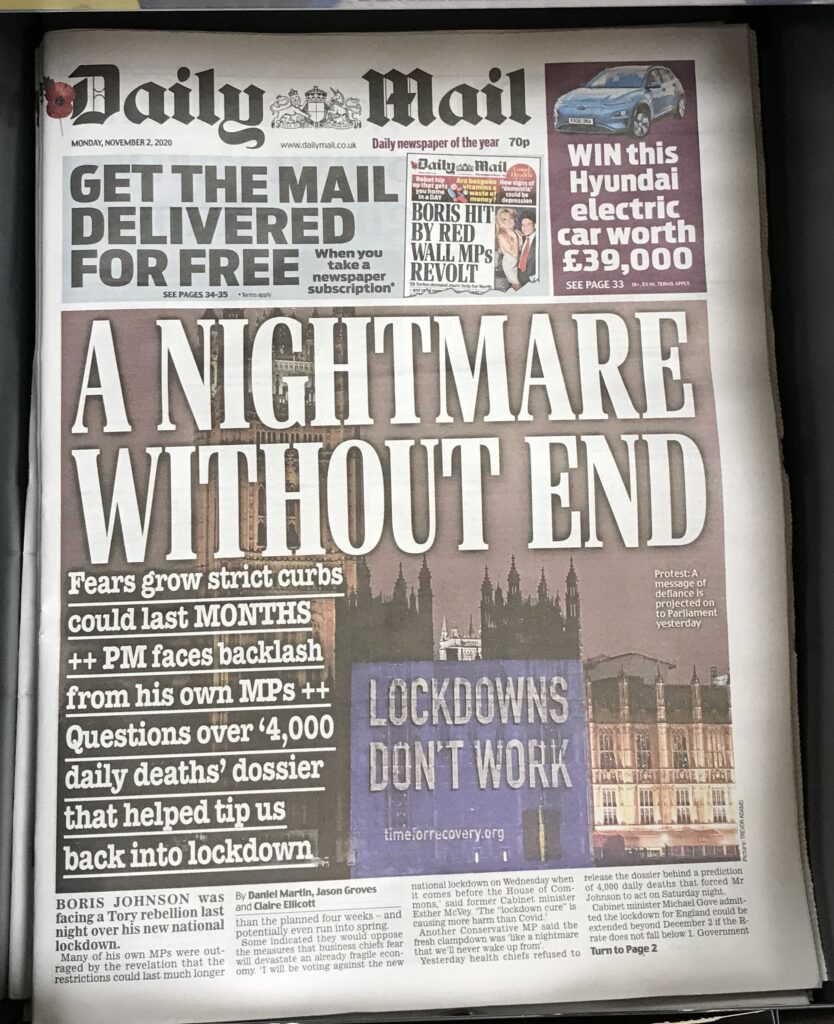

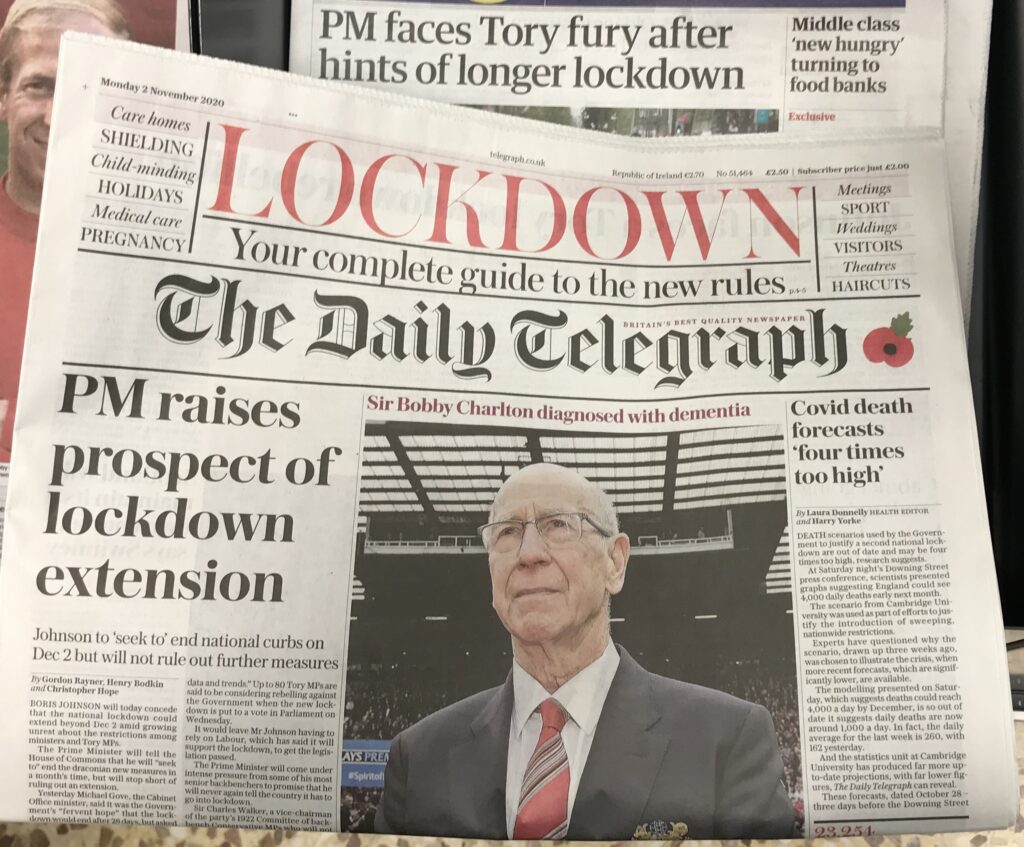
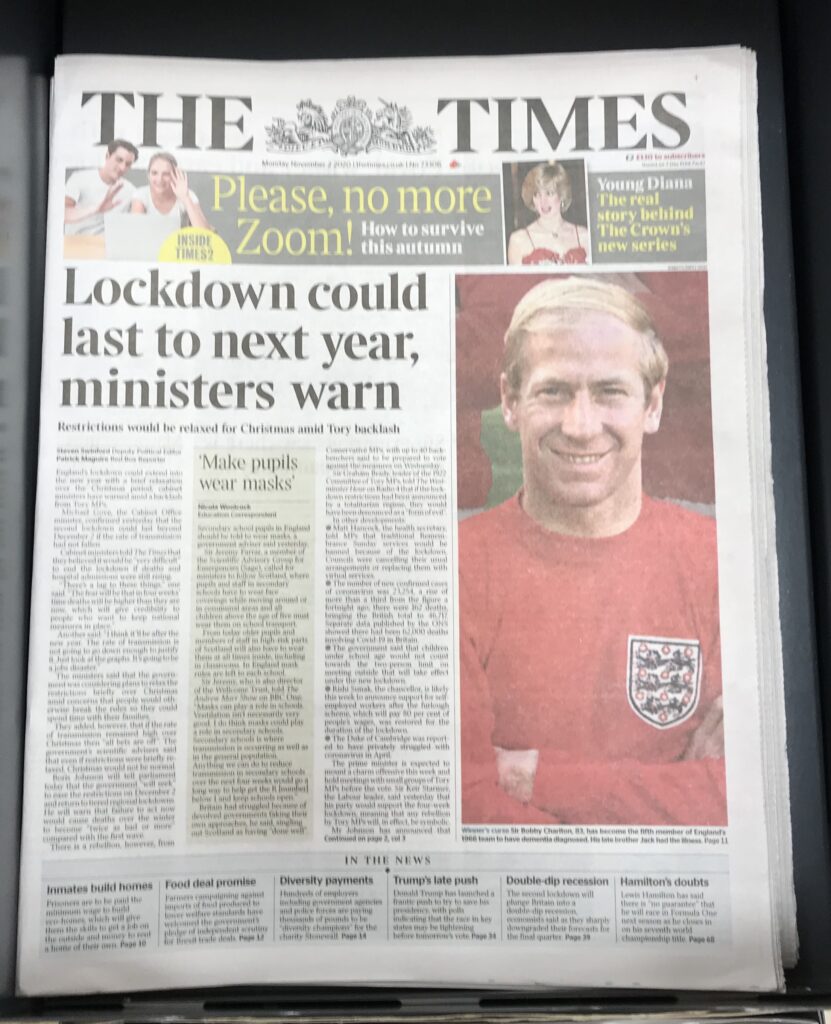
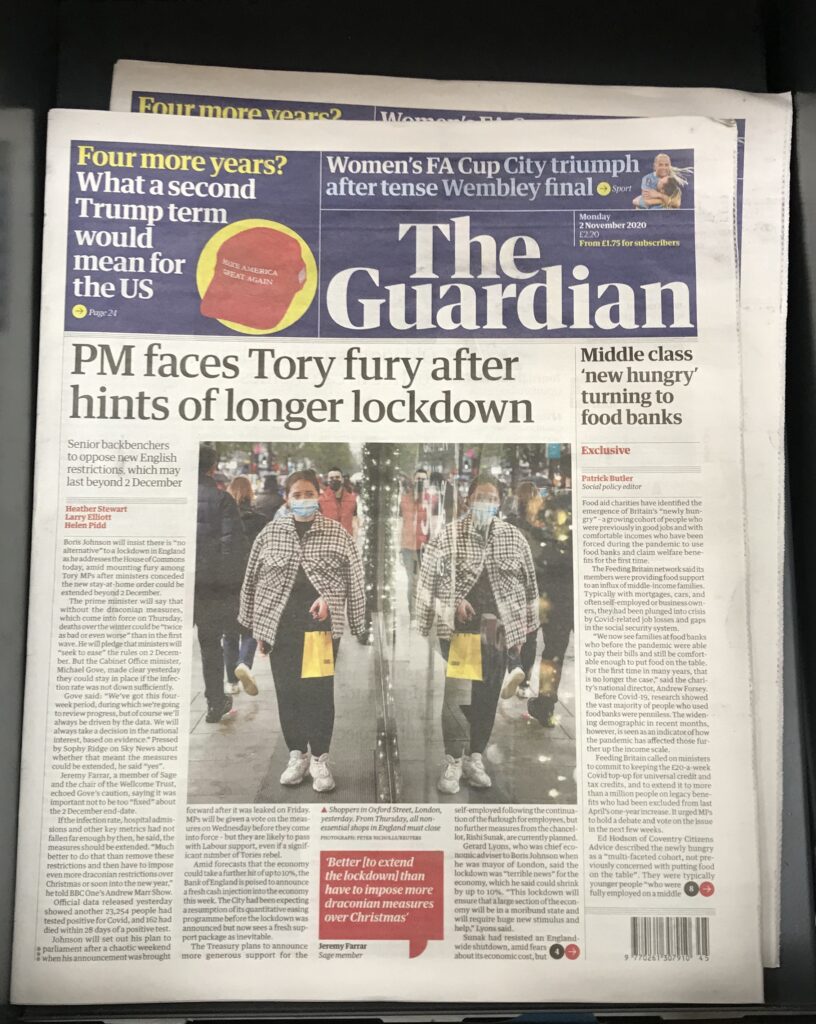
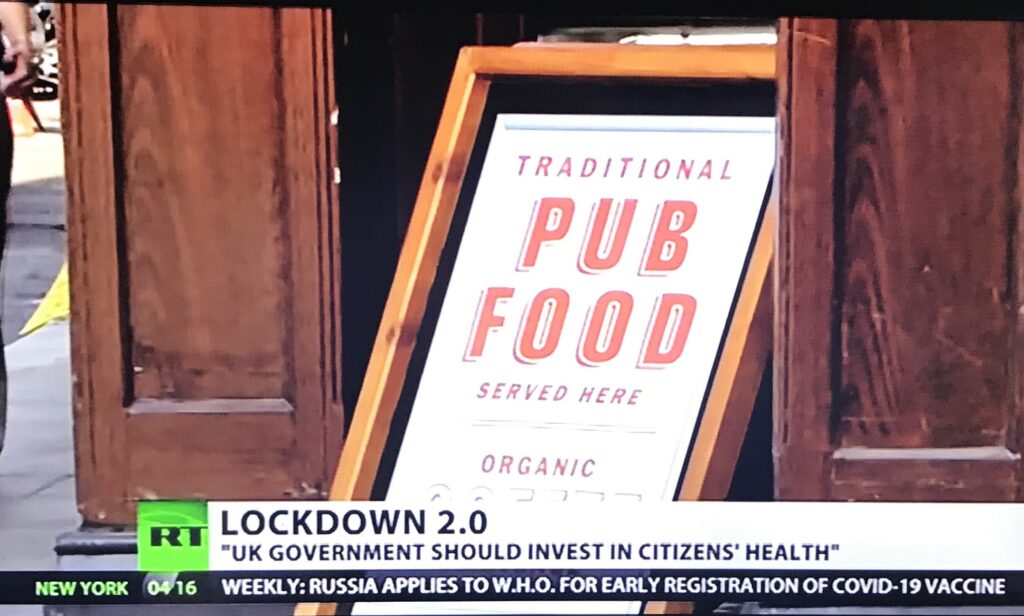
Biden can’t heal the country
Winding down his last week on the campaign trail, Democratic nominee Joe Biden is preaching a message of healing. “Today I’m here at Warm Springs because I want to talk about how we’re going to heal our nation,” he said Tuesday from a small Georgia town where Franklin Delano Roosevelt built a resort for polio patients. “The divisions in our nation are getting wider,” Biden continued:
[M]any wonder, has it gone too far? Have we passed the point of no return? Has the heart of this nation turned to stone? I don’t think so. I refuse to believe it. [ … ] I’m running as a proud Democrat, but I will govern as an American president. I’ll work with Democrats and Republicans. I’ll work as hard for those who don’t support me as for those who do. [ … ] And yes, we can restore our soul and save our country. [Joe Biden, via Rev]
There’s an alluring normalcy and comity here, but Biden’s promise is not and cannot be true. Should he be elected, Biden may be able to make the presidency less of an aggravating factor in our political division, if only by making it easier for Americans to forget about the president entirely for longer stretches than President Trump’s omnipresence has permitted these past four years. But forgetting our division is not the same as healing it. Advertisement
What Biden can realistically offer, if I may extend his medical metaphor, is a Band-Aid. I don’t mean that in the dismissive sense in which it is often used — a Band-Aid is not nothing. Electing Biden might be analogous to cleaning up a skinned knee, taking out the bits of gravel embedded in the cuts, and putting a bandage on top. This is helpful for healing, but it doesn’t heal. The body must heal itself.
It is questionable whether there is such a thing as a “president who doesn’t divide us, but unites us,” as Biden pledges to be. I suspect the bully pulpit and scope of power of the modern office don’t allow for that possibility. There is simply too much at stake for the position to be anything but divisive.
That’s so even of the comparatively anodyne Biden, whose victory nine in 10 Trump supporters believe would “result in lasting harm to the country.” (Exactly the same proportion of Biden supporters say the same of Trump’s potential re-election.) A 2019 study found four in 10 Democrats and Republicans think the opposing party is “not just worse for politics” but “downright evil.” The common thinking among Biden’s opponents, enthusiastically propagated by Trump himself, is that Biden is a Trojan horse for socialism and the radical left, albeit maybe an unwitting one. These beliefs won’t dissipate after the election, no matter how much Biden reaches across the aisle. Optimism loses to fear, disgust, and tribalism.
Yet even if we say, for the sake of argument, that a President Biden could be a net force for unity, we’re left with the same problem: It’s not enough. The president can’t heal our country’s division. The Trump administration is at least as much a symptom as a cause of the illness in our politics, and that illness won’t go away with Trump’s departure, whether next year or in 2025. Clean away the gravel, but the knee is still skinned.
Our illness is a result both of culture and institutions of governance. The cultural etiology is what my colleague Matthew Walther has dubbed “middle-finger voting,” politics for the sake of “seeing one’s real or perceived enemies discomfited.” The point is not governance, but power for its own sake; not adherence to principles but punishing those we deem a threat to us and ours.
This mindset is not universal among Americans, and most of those who call their partisan opponents “downright evil” likely have friends and family whom they love across party lines. But in the turn from those specific relationships to national politics, a fever sets in. “[W]hat defines Republicans and Democrats isn’t programs or beliefs or ideology,” writes J.D. Tucille at Reason; “it’s achieving power and destroying the enemy in the process.” When “platforms and ideas don’t really matter,” he adds, “there’s no room for finding common ground or cutting deals” on policy, because uncompromising control is the very point.
Tucille argues “the only way to keep the peace is to make sure there’s no prize to be won,” to reduce the power available so partisan animosities are accordingly scaled down. Make the presidency less divisive by making it less desirable. I agree, wholeheartedly. But I can’t see how that would happen without dramatic change to our political culture, and I can’t see how the political culture would change while our institutions constantly reinforce it, and I can’t see how the institutions will change while the culture — well, you get it.
Biden says he can interrupt that vicious cycle at the cultural node. However sincere, he’s wrong. A president might be able to refrain from exacerbating our political division, but he can’t heal it. We have to heal ourselves, culturally and institutionally, and I’m not sure we’ll prove capable. I’m not sure we really want to try.
Comment This article is taken from the Bourgeoise ‘The Week’ magazine. It is superficial, not dealing with the facts of Trumps war mongering predecessors or Biden’s funny little ways. It is a matter of if Biden/Harris can’t have the President’s job then it must be made more ineffectual. The Democrats are pretending to be nice caring little sheep, when in fact they are the worst of wolves. Charles Close
Hollow Scene October 31st 2020

Image Appledene Photographics/RJC
Obituary: Sir Sean Connery October 31st 2020
Published6 hours ago
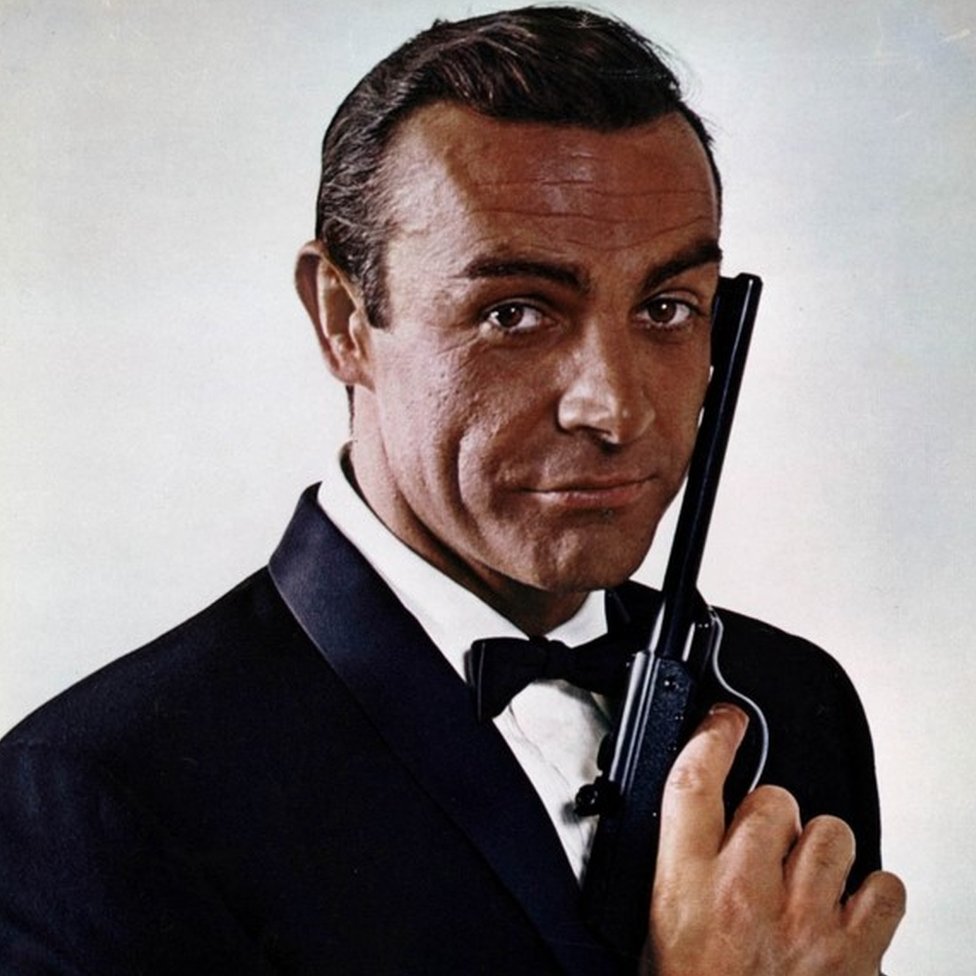
For many, Sean Connery was the definitive James Bond. Suave and cold-hearted, his 007 was every inch the Cold War dinosaur of the books.
He strode across screen, licensed to kill. He moved like a panther, hungry and in search of prey. There was no contest. His great rival, Roger Moore, by contrast, simply cocked an eyebrow, smiled and did a quip.
But whereas Ian Fleming’s hero went to Eton, Connery’s own background was noticeably short of fast cars, beautiful women and vodka Martinis – either shaken or stirred.
Humble origins
Thomas Sean Connery was born in the Fountainbridge area of Edinburgh on 25 August 1930, the son of a Catholic factory worker and a Protestant domestic cleaner.
His father’s family had emigrated from Ireland in the 19th Century; his mother traced her line back to Gaelic speakers from the Isle of Skye.
The area had been in decline for years. Young Tommy Connery was brought up in one room of a tenement with a shared toilet and no hot water.
He left school at 13 with no qualifications and delivered milk, polished coffins and laid bricks, before joining the Royal Navy. Three years later, he was invalided out of the service with stomach ulcers. His arms by now had tattoos which proclaimed his passions: “Scotland forever” and “Mum & Dad”.
In Edinburgh, he gained a reputation as “hard man” when six gang members tried to steal from his coat. When he stopped them, he was followed. Connery launched a one-man assault which the future Bond won hands down.
He scraped a living any way he could. He drove trucks, worked as a lifeguard and posed as a model at the Edinburgh College of Art. He spent his spare time bodybuilding.
Too beautiful for words
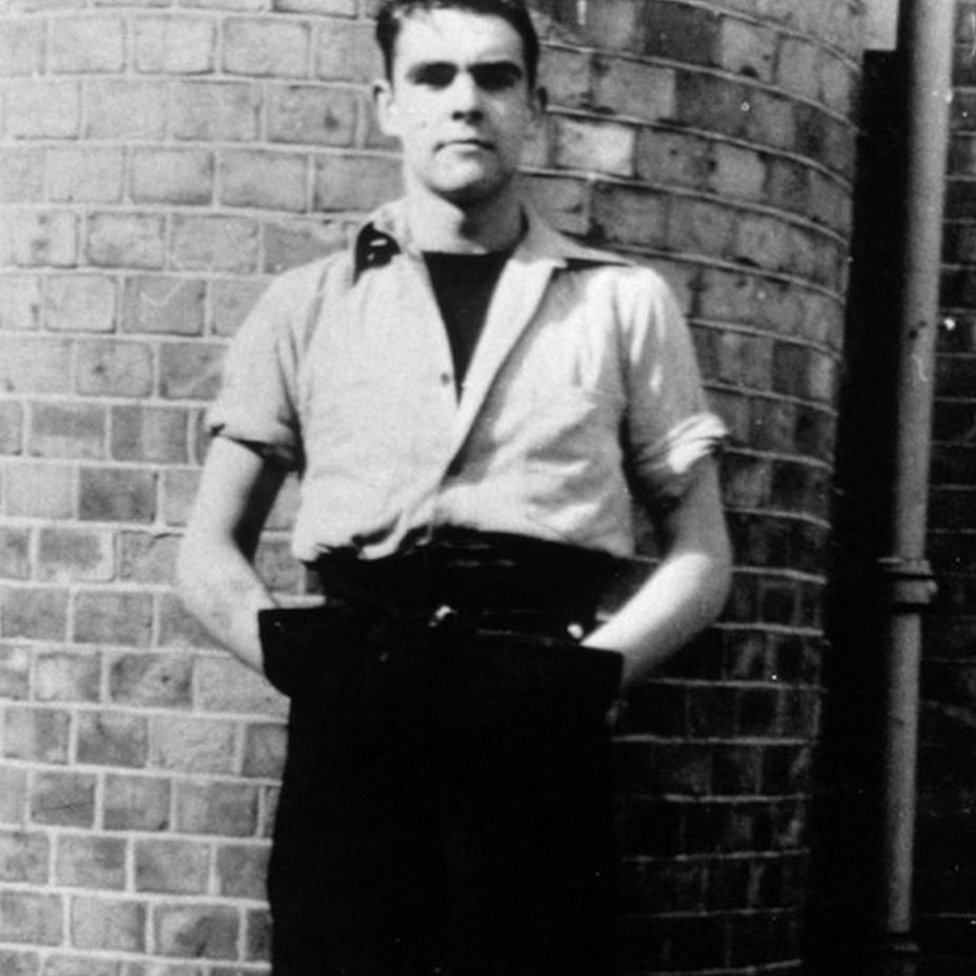
The artist Richard Demarco, who as a student often painted Connery, described him as “too beautiful for words, a virtual Adonis”.
A keen footballer, Connery was good enough to attract the attention of Matt Busby, who offered him a £25-a-week contract at Manchester United.
But, bitten by the acting bug when odd-jobbing at a local theatre, he decided a footballer’s career was potentially too short and opted to pursue his luck on the stage. It was, he later said, “one of my more intelligent moves”.
In 1953, he was in London competing in the Mr Universe competition. He heard that there were parts going in the chorus of a production of the musical South Pacific. By the following year, he was playing the role of Lieutenant Buzz Adams, made famous on Broadway by Larry Hagman.
American actor Robert Henderson encouraged Connery to educate himself. Henderson lent him works by Ibsen, Shakespeare and Bernard Shaw, and persuaded Connery to take elocution lessons.
Connery made the first of many appearances as a film extra in the 1954 movie Lilacs in the Spring. There were minor roles on television too, including a gangster in an episode of the BBC police drama Dixon of Dock Green.
The ladies will like him….
In 1957, he got his first leading role in Blood Money, a BBC reworking of Requiem for a Heavyweight, in which he portrayed a boxer whose career is in decline.
It had been made famous in America by Hollywood legend Jack Palance. When Palance refused to travel to London, the director’s wife suggested Sean.
“The ladies will like him,” she said.
A year later, he was alongside Lana Turner – proper Tinsel Town royalty – in the film Another Time, Another Place. Her boyfriend, the mobster Johnny Stompanato, reacted badly to rumours of a romance.
He stormed on set and pulled out a gun. Connery grabbed it from his hand and overpowered him, before others stepped in and kicked him off set.
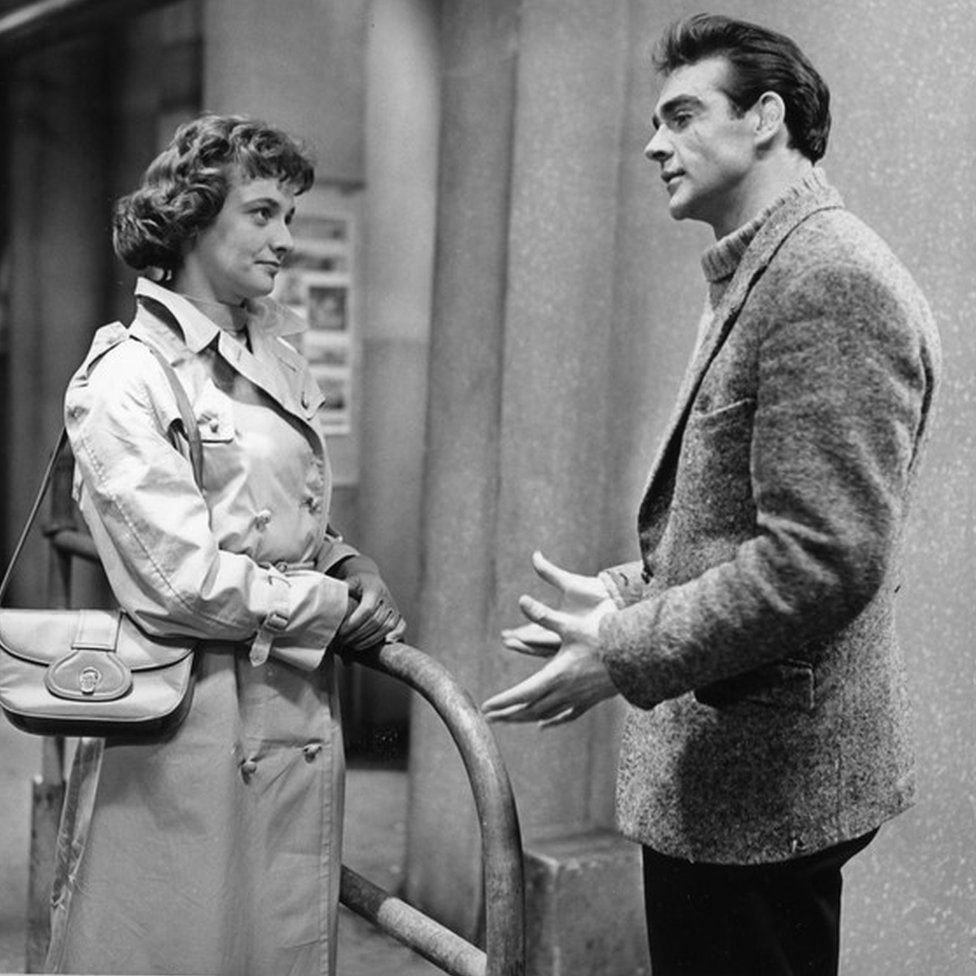
The name’s Bond…
And then came Bond. Producers Cubby Broccoli and Harry Saltzman had acquired the rights to film Ian Fleming’s novels and were looking for an actor to portray 007.
Richard Burton, Cary Grant and Rex Harrison were all considered, even Lord Lucan and the BBC’s Peter Snow.
It was Broccoli’s wife, Dana, who persuaded her husband that Connery had the magnetism and sexual chemistry for the part.
That view was not originally shared by Bond’s creator, Ian Fleming. “I’m looking for Commander Bond and not an overgrown stuntman,” he insisted.
But Broccoli was right, and Fleming was wrong. The author quickly changed his mind when he saw him on screen. He even wrote a half-Scottish history for the character in some of his later works.
A director friend, Terence Young, took Connery under his wing, taking him to expensive restaurants and casinos; teaching him how to carry himself, so the slightly gauche Scot would pass as a suave and sophisticated secret agent.
Connery made the character his own, blending ruthlessness with sardonic wit. Many critics didn’t like it and some of the reviews were scathing. But the public did not agree.
The action scenes, sex and exotic locations were a winning formula. The first film, Dr No, made a pile of money at the box office. Even abroad it was hugely successful; with President Kennedy requesting a private screening at the White House.
More outings swiftly followed – From Russia with Love (1963), Goldfinger (1964), Thunderball (1965) and You Only Live Twice (1967).
It was exhausting and occasionally dangerous. At one point, he was thrown into a pool full of sharks with only a flexi-glass screen for protection. When one of the creatures got through, Connery beat the hastiest of retreats.
There was other work, including Alfred Hitchcock’s Marnie, and The Hill, a drama about a wartime British Army prison in North Africa.
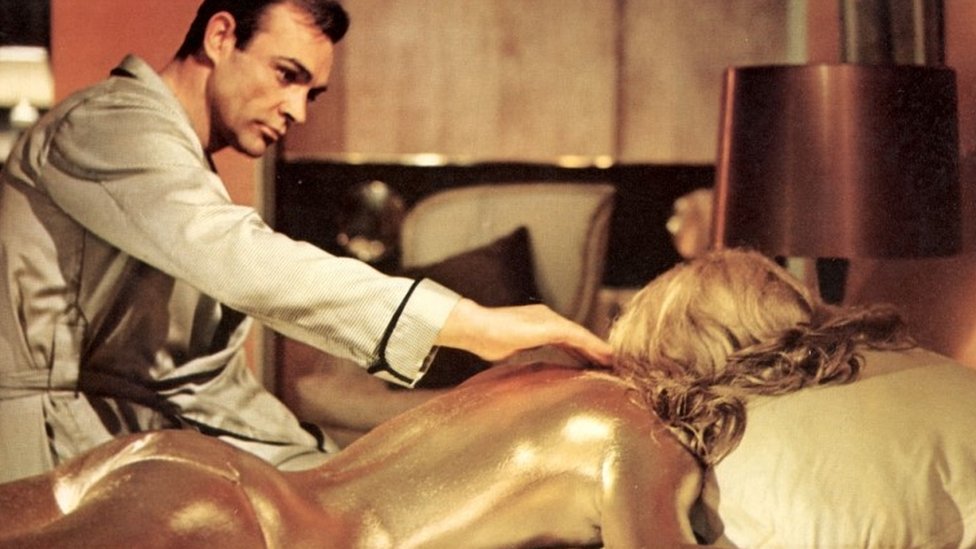
But by the time You Only Live Twice was completed, Connery was tiring of Bond and feared being typecast.
He turned down On Her Majesty’s Secret Service, with the role given to Australian actor George Lazenby, whose career never recovered.
Saltzman and Broccoli lured Connery back for Diamonds Are Forever in 1971, meeting the actor’s demand for a then record $1.25m fee. Connery used it to set up the Scottish International Education Trust, supporting the careers of up-and-coming Scottish artists.
The film had mixed reviews, with some critics complaining the film relied too much on camp humour, a theme that would continue and develop under his successor, Roger Moore.
Connery starred in the Rudyard Kipling tale The Man Who Would Be King alongside his great friend Michael Caine, but most of the next decade was spent in supporting roles, such as in Time Bandits, or as part of an ensemble cast in films like A Bridge Too Far.
Never Say Never
Having lost a lot of money in a Spanish land deal, he accepted a lucrative offer to play Bond again, in Never Say Never Again. This time 007 was an ageing hero; older, wiser and self-deprecating but ultimately still as hard as nails.
The title was suggested by Connery’s wife, who reminded her husband he had vowed “never to play Bond again”.
He continued to play other parts, winning a Bafta for his performance as William of Baskerville in Umberto Eco’s The Name of the Rose.
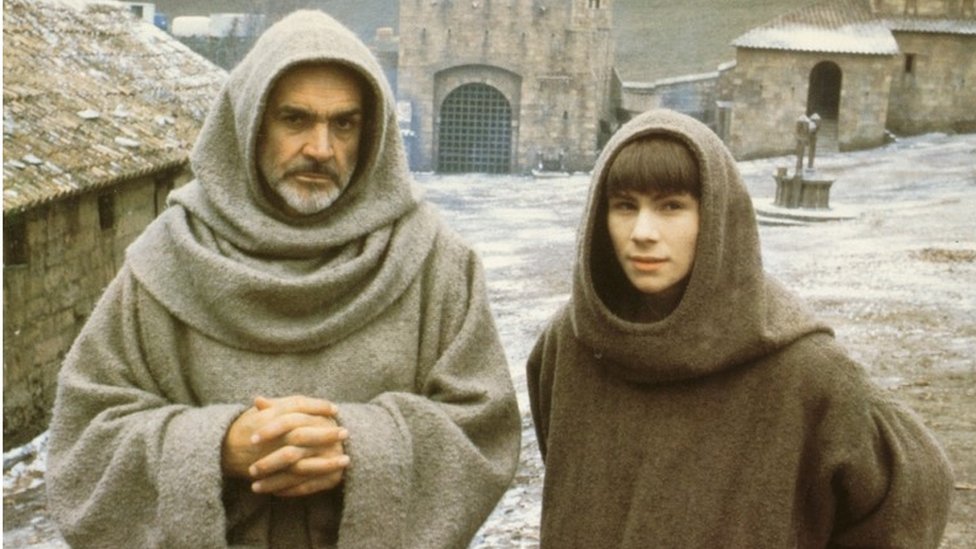
A year later, his performance as a world-weary Irish beat cop, albeit with a definite Scottish accent, in The Untouchables, won him an Oscar for best supporting actor.
In Indiana Jones and the Last Crusade, he played Harrison Ford’s father, despite being only 12 years older. And there was a knowing nod towards James Bond alongside Nicolas Cage in The Rock, where he was a British secret agent kept imprisoned for decades.
There was box office success for The Hunt for Red October, The Russia House and Entrapment; although First Knight and The League of Extraordinary Gentlemen failed to take off.
And he turned down the role of Gandalf in The Lord of the Rings in 2006, declaring himself tired of acting and sick of the “idiots now making films in Hollywood”.
Exile
He was briefly considered for the role of the gamekeeper in the 2012 Bond film Skyfall, but the director, Sam Mendes, wisely felt it would be distracting to have a previous 007 appear with Daniel Craig.
Always hating the Hollywood lifestyle, he preferred to play golf at his homes in Spain, Portugal and the Caribbean with his second wife, Micheline Roqubrune, an artist he had met in Morocco.
His previous marriage, to the Australian actress Diane Cilento, had ended in 1975 amid allegations he had been violent towards her and had a string of affairs. They had one son, the actor Jason Connery.
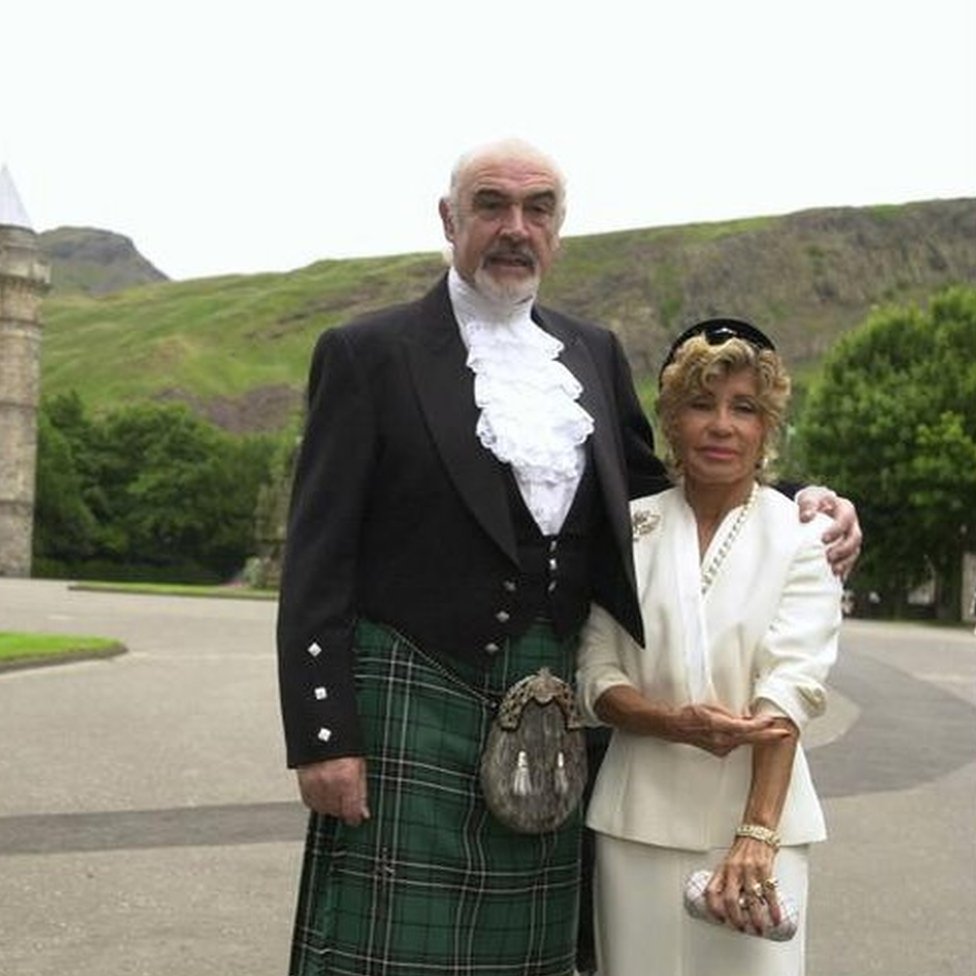
Despite his exile, he retained a full throated passion for Scotland, despite once misguidedly endorsing a Japanese blend of whisky.
He attributed his short fuse and his “moodiness” to his Celtic genes. “My view is that to get anywhere in life you have to be anti-social,” he once said. “Otherwise you’ll end up being devoured.”
A long overdue knighthood, finally awarded in 2000, was reportedly held up by the Labour government because of his support for Scottish independence.
In truth, his Bond is now a museum piece; the portrayal of women impossibly dated. The action scenes are still thrilling, but the sex too often bordered on the non-consensual.
Thankfully, it’s been a while since 007 slapped a woman on the backside and forced a kiss. But Connery’s performance was of its time, enjoyed by millions of both sexes and gave the silver screen a 20th Century icon.
He leaves behind him a body of work that any actor would be proud of and, not least, a vacancy for the title “Greatest Living Scot”.
October 31st 2020
Happening Again
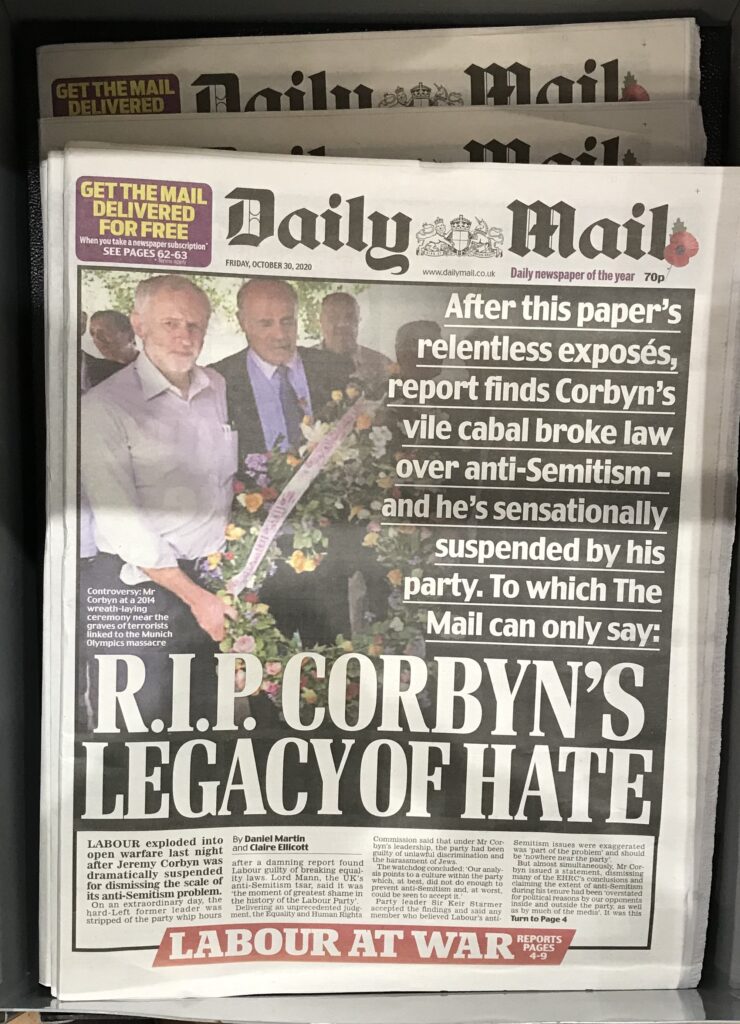
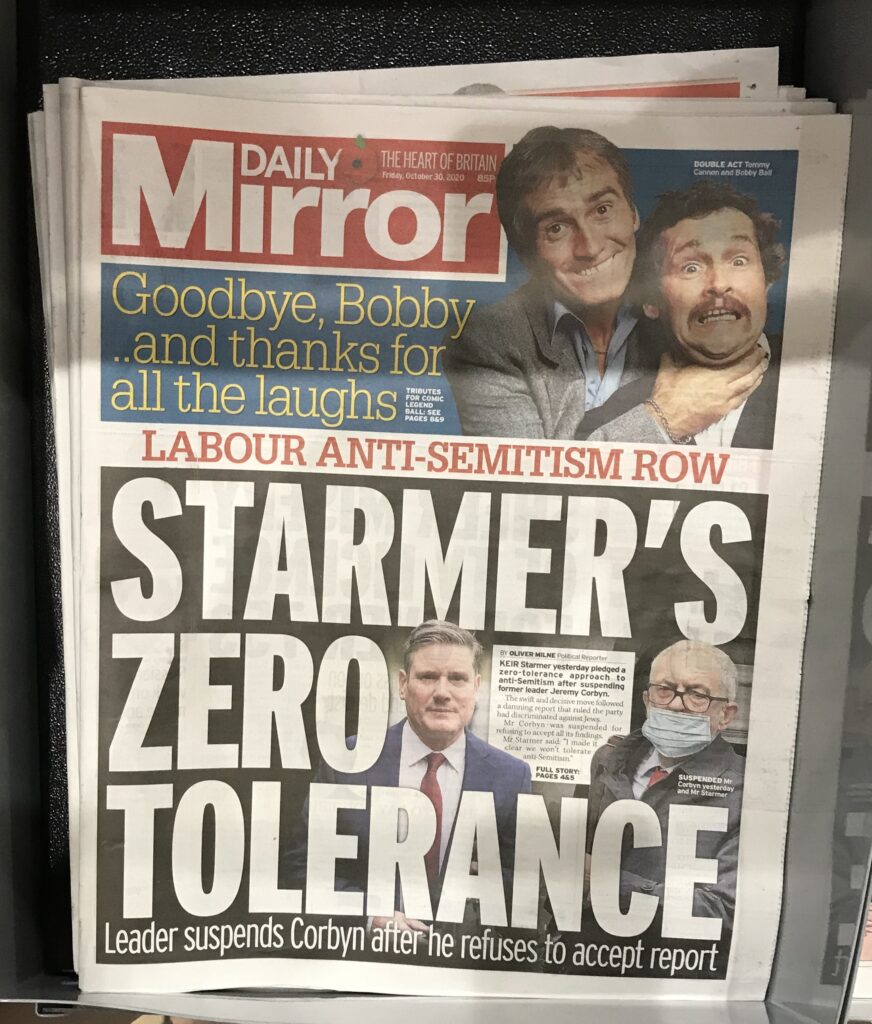
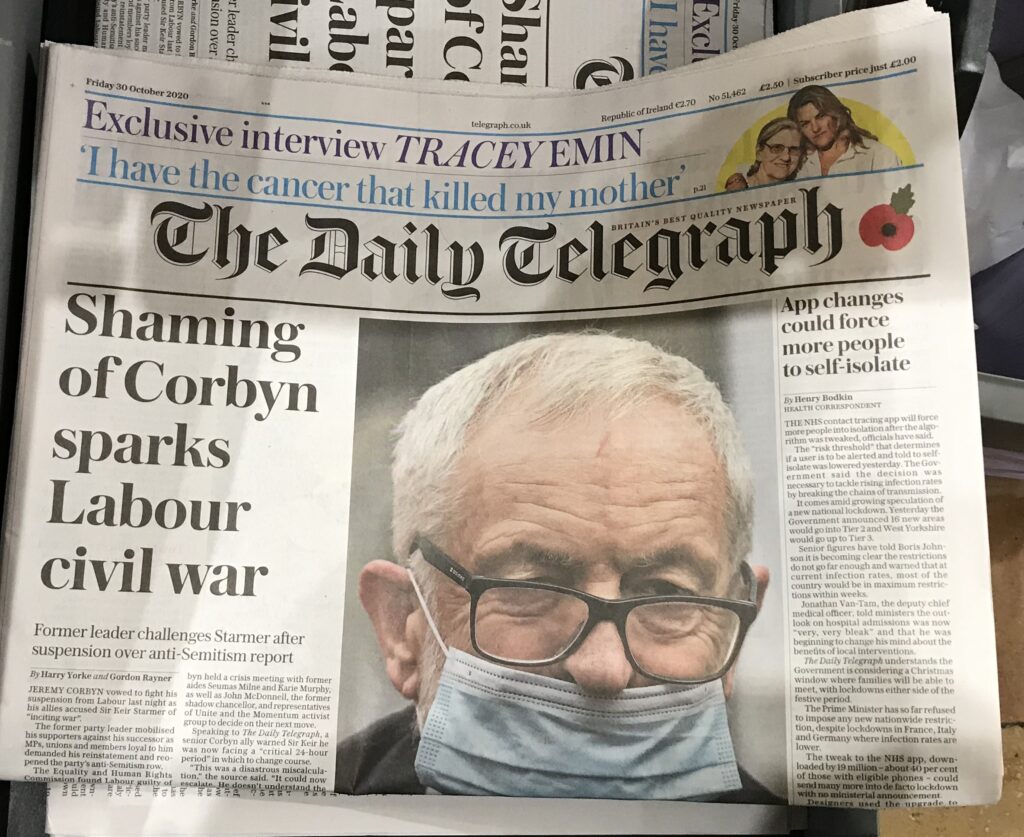
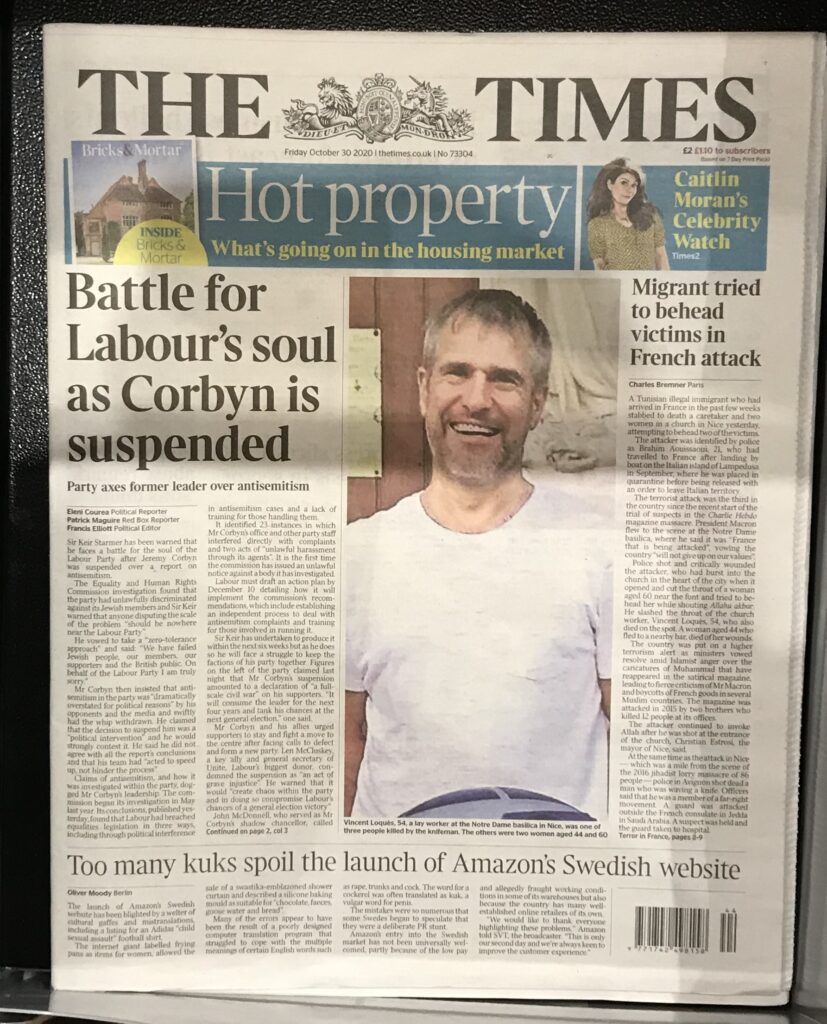
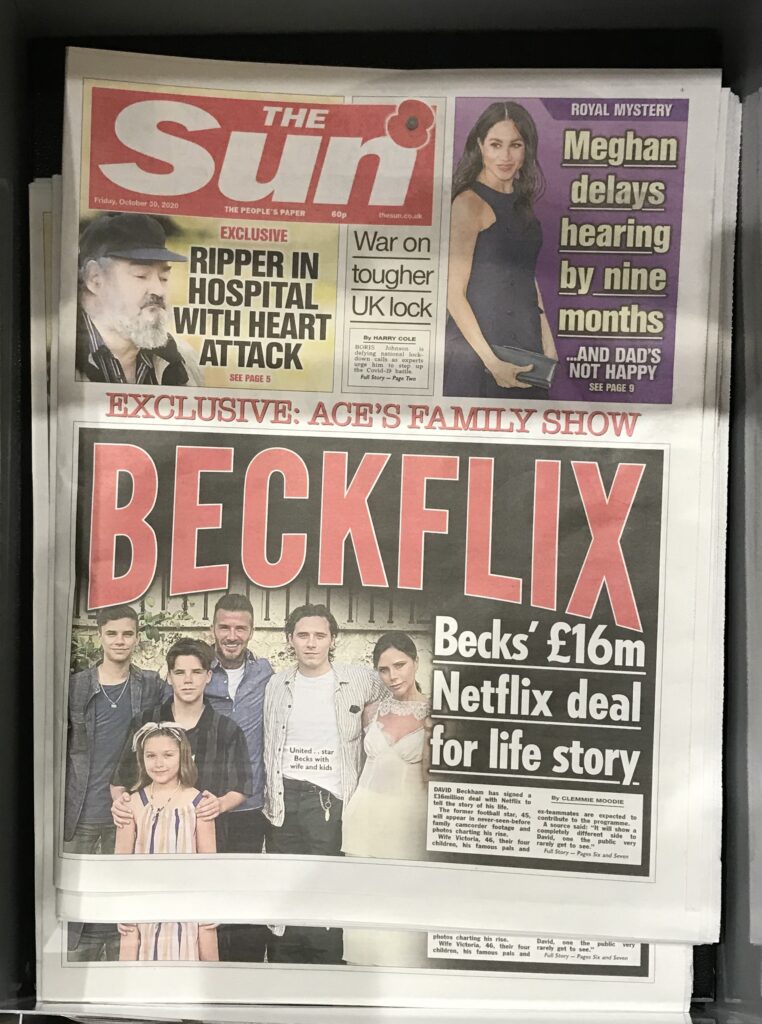

There is no mystery as to why Corbyn’s Labour Party has been exposed for anti semitism. For some years it has courted the Muslim vote, along with preaching on women’s rights and need for more laws to control men. There is an interesting and contradictory mix in Labour’s power base, so it will be interesting to see how the former head of corrupt Crown Prosecution Service, turned Labour leader deals with the crisis. Reptilian smarm is a requisite of the modern politician.
It was David Blinkett, as Home Secretary, who coined the phrase that there is no obvious limit to mass immigration, His then boss Tony Blair said that Britain had a future as the Hong Kong of Europe. He also stated that it was necessary to remove our freedoms in order to protect them.
Labour lost its identity in 1979, when Prime Minister Margaret Thatcher set out to destroy the Trade Unions whose work in tandem with bigoted patronising management combined to destroy much of Britain’s industry. They played into the vile Thatcherite hands. I was kicked out of the Labour Party during the Coal Miner’s strike for questioning the wisdom of Scragill calling a national strike without a ballot.
After years of drivel about Thatcher’s choice of Trident nuclear weapons and feminist ravings, Blair took over with his own version of Thatcher. Then came lies to start the current wars in the Middle East, angering Islamic extremists and fuelling mass migration into Europe. Now we have Covid and the elite’s blind eye to the impact of ludicrous lockdown on the economy. Critics are either nuts or Far Right.
Never mind, the popular Sun Newspaper for morons offers the amazing news that the petulant David Beckham, whose World Cup tantrum led to defeat, is getting paid an obscene £16 million for his life story. And just in case the far right, as the elite call critics, think they can change anything, we have a warning article on the front of the BBC history magazine. There is also a warning about Hitler youth.
It is the same old rubbish about the Nazis. Germany’s working class paid a high price getting the blame for World War One, which was a matter of greedy in bred Imperial leaders in Britain, Germany and Russia falling out over their shares of the world’s land and resources. It led to where we are now. Looking back, and some saw danger at the time, we have no reason to thank the leaders of that time anymore than we can trust their descendants and lackeys today.
It is trendy to ignore the sufferings of lower class whites and pander to BLM. Good old divide and rule built an empire, which along with its allies did so much harm post 1918. There is no mind to the fact that Nazi supporters were not consciously evil , they were like stones being worn away from the bank by a fast flowing and destructive river. The same is happening today. It is hard to imagine the politicians and their vile police lackeys will every stop lying. R.J Cook

If Trump wins Posted October 31st 2020
Damon Linker
I’m pretty confident that Democratic challenger Joe Biden will defeat President Trump next Tuesday. Trump barely managed to win four years ago, and this time multiple factors point toward a much stronger showing for the Democratic ticket.
But like so many who lived through the 2016 election, I now expect the unexpected. For Republicans, this manifests itself as unwavering faith that their side will prevail no matter what the polls predict. For Democrats, it produces the opposite — a PTSD-inspired fatalism that an incredibly stable race showing Biden ahead by 6-10 points for months on end will still conclude with a shocking come-from-behind victory for their ideological bête noire.
That outcome isn’t likely. But it could happen: Trump could win, despite all the signs pointing in the other direction. The race could tighten by a couple of points over the weekend. The polls could be off by another 2-3 points, due to a systematic error in turnout assumptions, putting Biden in reality just 4-5 points ahead of Trump instead of 9. And then Trump could manage to barely prevail in just the right number of states to come out on top once again in the Electoral College while losing the national popular vote by several million ballots (due to even more lopsided results in deep blue states than we saw in 2016). Advertisement
I’m entirely convinced that Trump winning a second term would be bad for the country. He’s been an atrocious president — incompetent, impulsive, cruel, flamboyantly mendacious and corrupt. His debasement of our public life has been so massive that the damage may be incalculable. And all of this was true before COVID-19 proved what Trump critics had long presumed to be the case — that he is singularly unsuited to lead the country through a genuine crisis. With the pandemic and resulting economic shock still unfolding and other crises (from climate change to various potential foreign policy flash points) looming, the prospect of giving Trump four more years at the helm seems downright dangerous.
But that, in itself, is not the scenario that really gives me nightmares. As bad as four more years of Trump would be, it most likely wouldn’t pose an existential threat to the country. We have already survived four years of the Trump administration, after all. Another term would be awful, but we’d make it through. More damage would be done, but come 2024 we’d finally be rid of him, with the possibility of something better on the horizon.
What really worries me isn’t Trump himself. It’s the interaction of another Trump victory with the potential reaction of the left.
I’m pretty confident that Democratic challenger Joe Biden will defeat President Trump next Tuesday. Trump barely managed to win four years ago, and this time multiple factors point toward a much stronger showing for the Democratic ticket.
But like so many who lived through the 2016 election, I now expect the unexpected. For Republicans, this manifests itself as unwavering faith that their side will prevail no matter what the polls predict. For Democrats, it produces the opposite — a PTSD-inspired fatalism that an incredibly stable race showing Biden ahead by 6-10 points for months on end will still conclude with a shocking come-from-behind victory for their ideological bête noire.
That outcome isn’t likely. But it could happen: Trump could win, despite all the signs pointing in the other direction. The race could tighten by a couple of points over the weekend. The polls could be off by another 2-3 points, due to a systematic error in turnout assumptions, putting Biden in reality just 4-5 points ahead of Trump instead of 9. And then Trump could manage to barely prevail in just the right number of states to come out on top once again in the Electoral College while losing the national popular vote by several million ballots (due to even more lopsided results in deep blue states than we saw in 2016). Advertisement
I’m entirely convinced that Trump winning a second term would be bad for the country. He’s been an atrocious president — incompetent, impulsive, cruel, flamboyantly mendacious and corrupt. His debasement of our public life has been so massive that the damage may be incalculable. And all of this was true before COVID-19 proved what Trump critics had long presumed to be the case — that he is singularly unsuited to lead the country through a genuine crisis. With the pandemic and resulting economic shock still unfolding and other crises (from climate change to various potential foreign policy flash points) looming, the prospect of giving Trump four more years at the helm seems downright dangerous.
But that, in itself, is not the scenario that really gives me nightmares. As bad as four more years of Trump would be, it most likely wouldn’t pose an existential threat to the country. We have already survived four years of the Trump administration, after all. Another term would be awful, but we’d make it through. More damage would be done, but come 2024 we’d finally be rid of him, with the possibility of something better on the horizon.
What really worries me isn’t Trump himself. It’s the interaction of another Trump victory with the potential reaction of the left.
It would be one thing if Trump were poised to win close to an outright majority, like Viktor Orban’s Fidesz Party in Hungary — or a solid plurality, like Boris Johnson’s Conservative Party in the United Kingdom. In that case, Democrats would have to accept that their views were outnumbered in the country at large. They’d have to learn to adjust to having lost the battle for democratic public opinion.
It would be one thing if Trump were poised to win close to an outright majority, like Viktor Orban’s Fidesz Party in Hungary — or a solid plurality, like Boris Johnson’s Conservative Party in the United Kingdom. In that case, Democrats would have to accept that their views were outnumbered in the country at large. They’d have to learn to adjust to having lost the battle for democratic public opinion.
Comment The above article is from the trendy British magazine ‘The Week.’ It reeks of the same smug elitist British elite self styled self congratulating so called liberal consensus.
The reality that Trump has been able to do very little other than act as scapegoat, thus revealing the myth of the ‘commander in chief’ is not picked up on. What the Anglo U.S elite are concerned about is getting the right sort of figurehead. Biden’s corrupt dealings as vice president under the saintly Obama ( sic ), does not matter.
He is the pathfinder for the ultimate U.S ( and effectively British figurehead ) , the black female Harris. The Anglo U.S elite who have obscene wealth, made very much richer by Covid 19, need a black woman to rally the masses, ostracising dissenters. That is why their media won’t back off over the mouthy self seeking arrogant Princess Meghan, calling those who don’t like the mixed race girl as racist. The elite and media lackeys cannot believe any white person could dislike her for any other reason than her slightly darker skin. As for blacks, they are not allowed to dislike blacks – according to patronising white elite members and morons.
This love affair with ethnics ( though it should be noted that Islam is a religion not a race, so to critcise its’ violence is not logically a racist act ) is beginning to cause serious and manifest problems in France. In Britain, BAME communities are hot beds of Covid 19. Uncontrolled flow of migrants and so called asylum seekers from failing overpopulated disease and poverty ridden Third World countries is destroying our British NHS and impacting across Europe. Elites call for a ban on social media and censorship because ultimately it is only their enrchment that counts.
In the Third World, they have encouraged ignorance and religious bigotry, along with corrupt place men – who have no virtues other than the white liberal one of being black -across the old empire. Here they fear that to do otherrwise will speed up China’s intrusion. China actually builds Africa and Paksitan infrastructure. The Anglo American elite simply uses their minions to exploit resources and welcome the massive population surplus to Europe. This pushes up prices, depresses wages and swells voters for parties like Britain’s Labour who thrive on the pretence of caring for so called underdogs. Covid 19 is a Godsend for these greedy oppressors – the evdence that it was bio engineered is obviously ridiculed by them.
R.J Cook
Pop and rockInterview
Don McLean on the tragedy behind American Pie: ‘I cried for two years’ Posted October 30th 2020
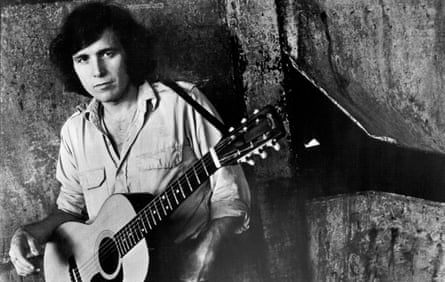
‘You couldn’t talk about my sister because you couldn’t tell the truth’ … Don McLean in the 1970s. Photograph: Michael Ochs Archives/Getty
The rollicking song about the souring of the 60s has now spawned a film, a musical and a children’s book. Its creator talks about its meaning – and reveals the family deaths underlying itThu 22 Oct 2020 06.00 BST
Last modified on Mon 26 Oct 2020 10.01 GMT
When Don McLean was 15 years old, he had a premonition that his father was going to die. Distraught, he ran to tell his grandmother. “Don’t be ridiculous, Donny, why would you say such a thing?” she said. “Because it’s going to happen,” the boy replied. A few days later, his father dropped dead right in front of him. “I saw how he looked,” says McLean. “He’d turned green. I didn’t know what I was going to do without him. He was the king, the boss. He knew everything.”
The singer-songwriter behind the 1971 classic American Pie is speaking from his home in Palm Desert, a town in California where he is now well into what he calls the “desert phase” of his life. Wildfires are still burning across the state. You can’t see the sun for the acrid smoke. “I’m feeling it in my lungs,” says the 75-year-old.
So what did he do when his father died? “I cried for two years,” he says. “I blamed myself.” We’ve been talking about death for half an hour – his father’s and his feelings about his own. “I’m nearing the end of the high-dive,” he says. “Know what I mean?” It’s the big McLean theme running through his songwriting, from American Pie to the virtually unknown Run Diana Run, a weird musical dirge about Princess Diana.

‘The day the music died’ … the 1959 plane crash that killed Buddy Holly is thought to be one of the song’s references – but McLean hints it could be about his father’s death. Photograph: Hulton Archive/Getty Images
We’re meeting, though, to talk about his era-spanning epic: that rollicking eight-and-a-half minute run-through of the 1960s after the decade closed. The Recording Industry Association of America has the song in its top five, behind Over the Rainbow and White Christmas; it’s been covered by everyone from Madonna to Tyson Fury, who sang it after knocking out Deontay Wilder earlier this year; and the original handwritten lyrics sold in 2015 for $1.2m (£800,000), the third highest auction price ever for an American literary manuscript.
McLean wrote it half a century ago, at the age of 24 – and to mark the anniversary, a new documentary, inevitably titled The Day the Music Died, will be released. A Broadway show is planned for 2022, and even a children’s book. That’s a lot of fuss for one song: McLean’s moment, perhaps, to tell the world once and for all what the lyrics actually mean.
There’s general agreement that the song is about the cultural and political decline of the US in the 1960s, a farewell to the American dream after the assassination of President Kennedy. “Bye bye Miss American Pie,” he sings. “Drove my Chevy to the levee but the levee was dry.” But McLean has always kept stumm about the allusions in his verses. “Carly Simon’s still being coy about who You’re So Vain was written about,” he says. “So who cares, who gives a fuck?”
Plenty do. Every line of American Pie has been stripped bare. There are fan websites dedicated entirely to decoding it. Who was the jester who sang for the king and queen in a coat he borrowed from James Dean? What exactly was revealed the day the music died? The Vietnam war, social revolution, Bob Dylan, Elvis Presley, JFK, Mick Jagger, Martin Luther King, Charles Manson, Hells Angels, The Beatles, hallucinogenic drugs, God, the Devil – they’re all in there, aren’t they? No one can be totally sure, except one man.
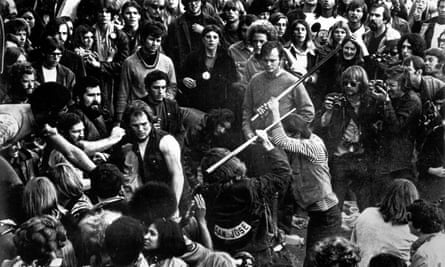
‘Jack Flash sat on a candlestick’ … violence at a Rolling Stones concert at Altamont in 1969. Photograph: Michael Ochs Archives/Redferns
For McLean, though, the genius of the song is in its structure, not its words: a perfect fusion, he says, of folk, rock’n’roll and old-fashioned popular music. The slow intro is the pop part, but then the piano kicks in and the tempo speeds into the chorus – that’s the rock’n’roll bit. The folk component is in the verse-chorus-verse composition. “I’ve never said that to anybody in 50 years,” says McLean.
Hmm, I say, that’s not really the scoop I was looking for. But then there’s no point asking McLean direct questions about what the song means: he’s too well practised at flicking them off. “It means I’ll never have to work again,” he used to quip.
Instead, our conversation drifts back to his childhood, before the death of his father – to what he calls the “dreadful, ugly secret” of his sister Betty Anne. Fifteen years his senior, she was an alcoholic, a drug addict, and a bum who ruined his childhood, he says. “You couldn’t talk about her because you couldn’t tell the truth about what was happening to her. It was a disaster to see it. She was always so shackled. It was terrible.”
She would straighten herself out, leave home, but then come back in a mess, he says. “It happened over and over.” He gets upset just talking about it. “That’s why I’m a blue guy I guess.” He sighs. “All my stuff is about loss – and a certain kind of psychic pain. I’ve never really been happy.”
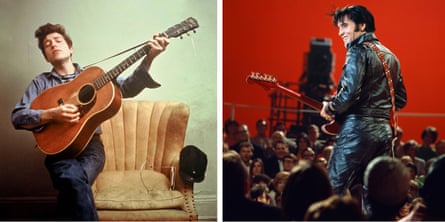
The joker and the king? … Bob Dylan and Elvis Presley. Composite: Don Hunstein, NBCU Photo Bank via Getty Images
For all its catchy sing-along jauntiness, there’s little to really cheer about in American Pie. It’s devoid of hope. McLean did come up with a more upbeat verse where the music gets “reborn” at the end. But he ditched it. “Things weren’t going that way,” he says. “I didn’t see America improving intellectually or politically. It was going steadily downhill, and so was the music.”
He takes me back in time again – to the innocent days, supposedly, of the 1950s that American Pie is lamenting. But McLean hated growing up in what he describes as a small house in an upper middle class neighbourhood of New Rochelle, in New York. People discriminated about everything, he says. “If you didn’t drive the right car, if you didn’t have enough money, if you didn’t wear the right shoes. I hated those fuckers.”
He’s burdened by the pain and grief of his childhood, even now. The opening of American Pie is largely accepted as mourning Buddy Holly, who died in a plane crash in 1959. Holly was McLean’s musical idol as a kid, but could that verse equally be about his father? “You’ve hit the nail on the head,” he says. “I mean, that’s exactly right. That’s why I don’t like talking about the lyrics because I wanted to capture and say something that was almost unspeakable. It’s indescribable.” He adds: “American Pie is a biographical song.”
The cultural allusions are, he continues, his own in-jokes, poking fun at some of the big acts of the day. “Just the idea of choosing names that people could identify with: different artists, what they were doing, what they’d done. I was making fun of it all.”
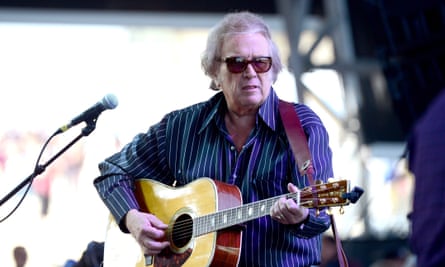
‘I’m nearing the end of the high-dive’ … McLean performing in 2015. Photograph: Frazer Harrison/Getty Images
The jester in the song is widely assumed to be Bob Dylan, stealing the limelight from Elvis Presley as the new messiah: “And while the king was looking down / The jester stole his thorny crown.” Dylan himself seemed to take umbrage with the association. “Yeah, American Pie, what a song that is,” he said in a rare interview in 2017. “A jester? Sure, the jester writes songs like Masters of War, A Hard Rain’s a-Gonna Fall, It’s Alright, Ma – some jester. I have to think he’s talking about somebody else. Ask him.”
So I ask him. “I can’t tell you,” says McLean. “But he would make a damn good jester, wouldn’t he?” He tells me Dylan’s son Jacob asked him the same question, but he didn’t tell him either.
McLean likes to be in charge. He admits that. It’s why he’s planning to put most of his possessions up for auction before he dies: song lyrics, guns, saddles, hunting knives, banjos, guitars, custom-made boots, his car. It’s part, he says, of a cleansing process: “I don’t want to leave it to someone else to figure out what to do with this stuff.”
Perhaps unravelling the mystery of American Pie would mean losing control of that too. “I always have to know where I’m headed,” says McLean, who doesn’t trust the media to give him a fair hearing and claims rarely to read anything that’s been written about him. “Don’t read good things and don’t read bad things,” he says, “because it’s all a bunch of bullshit.”
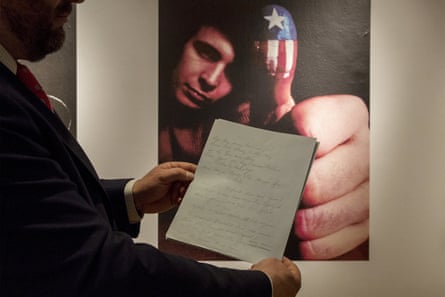
Under the hammer … the original handwritten manuscript of American Pie’s lyrics went for $1.2m. Photograph: Brendan Mcdermid/Reuters
This seems as good a moment as any to ask McLean how he dealt with the situation when he was arrested and charged after his ex-wife accused him of domestic abuse. (McLean pleaded guilty and paid a fine, though his lawyer said this was “not because he was in fact guilty of anything, but to provide closure for his family and keep the whole process as private as possible”.)
“I can truly say that my ex-wife is the worst person I ever knew,” he says. “There’s nobody who compares.” Patrisha McLean, who he divorced in 2016, has talked about their relationship in a travelling exhibit about domestic violence called Finding Our Voices, and has established a non-profit of the same name. He says it took four years for the breakup to sink in. “All these love letters that she sent me every month for 30 years – they immediately turned to salt.”Don McLean review – nostalgic rock’n’roller doesn’t wave bye to American PieRead more
Before we close, McLean offers me this reflection, about a painting by Thomas B Allen hanging in the living room of the country mansion he has in Maine. It captures Clark Gable, Montgomery Clift and Marilyn Monroe as they were in the film The Misfits: they’re all being photographed but their faces look like they’re being shot, assassinated even.
That’s how he feels, he says, thanks to the legacy of American Pie. “Writing a song that everyone on Earth knows shouldn’t make you resentful,” he says. “But you better have a lot inside you – because it’s gonna get sucked out.”
• The Day the Music Died film and the children’s book American Pie are out next year. The musical will follow in 2022.
• This article was amended on 22 October 2020 to remove a reference that said New Rochelle was in upstate New York.
The Penthouse (1967) Suzy Kendall. Terence Morgan. rare cult movie
Cult 60’s movie. Three thugs–Tom, Dick and Harry (a woman)–break into the penthouse apartment of an adulterous couple and proceed to terrorize them, but as it turns out, things aren’t exactly what they seem to be. Apologies for poor sound quality in the second half
Stuff October 27th 2020
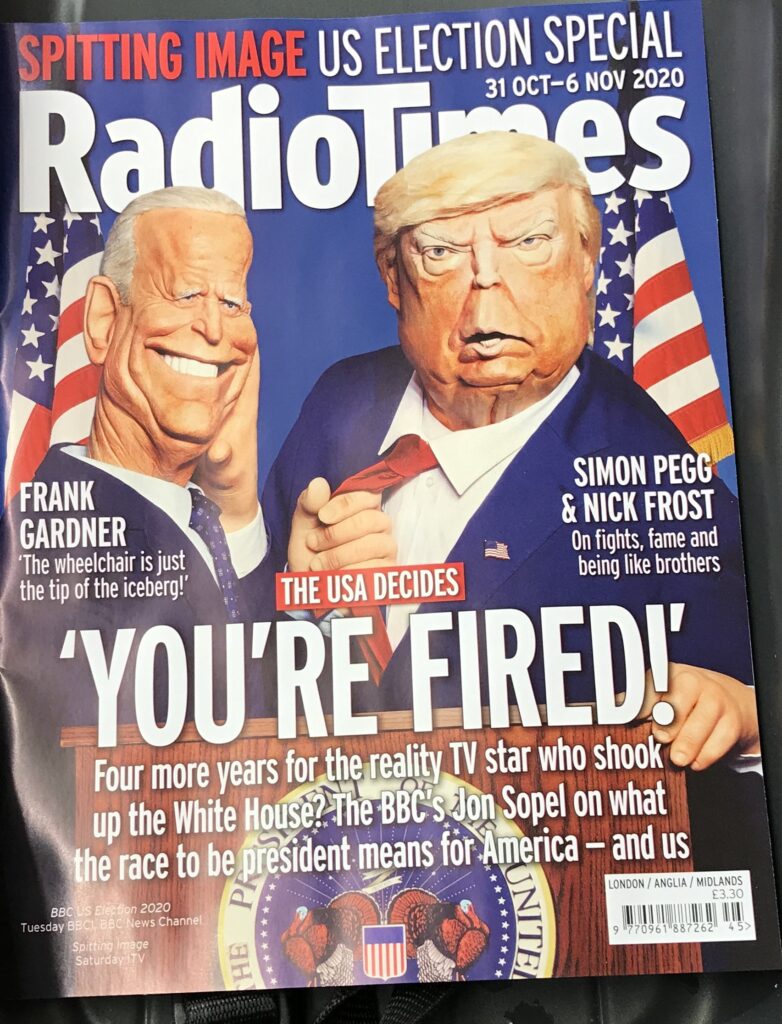
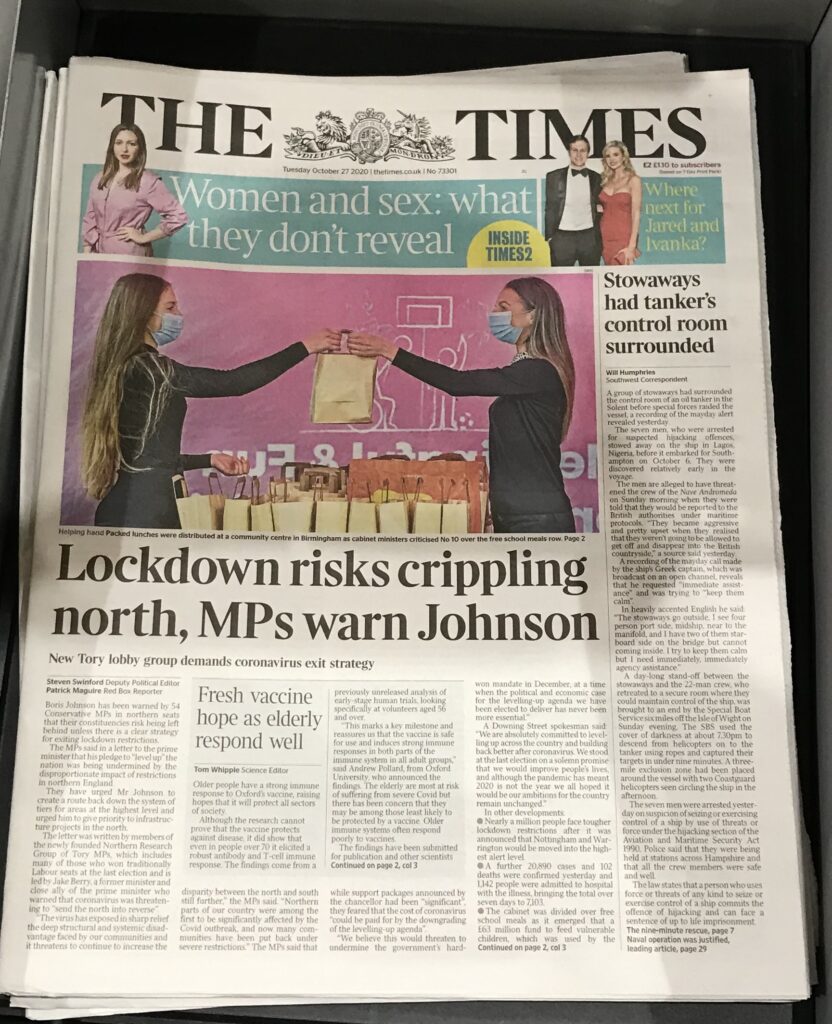
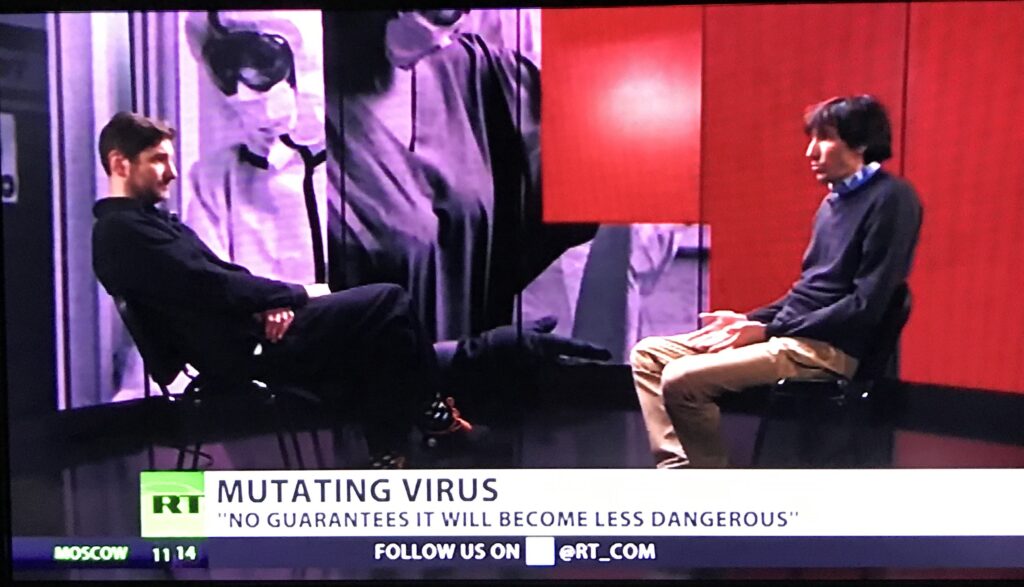

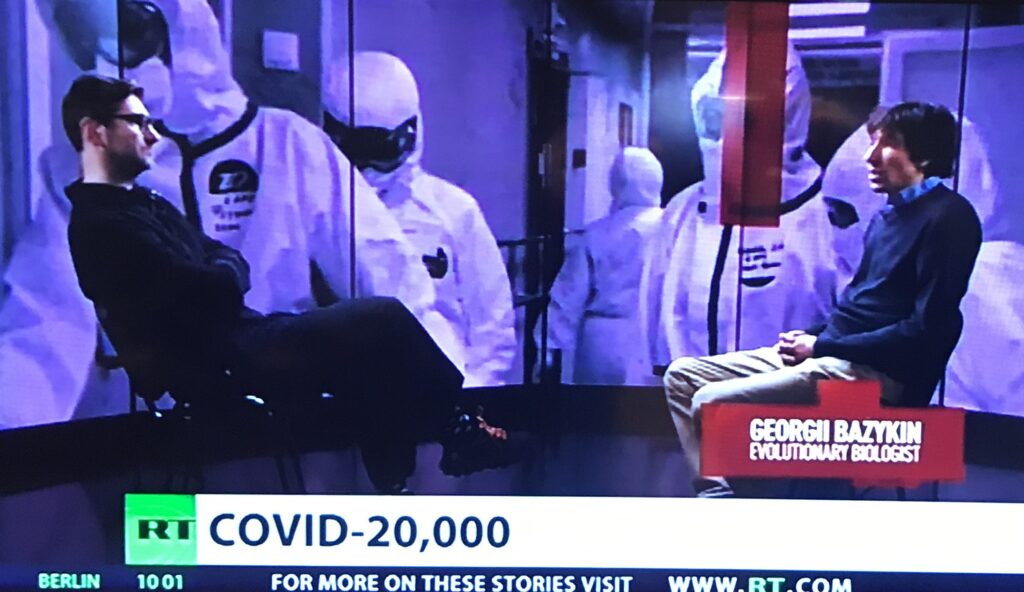

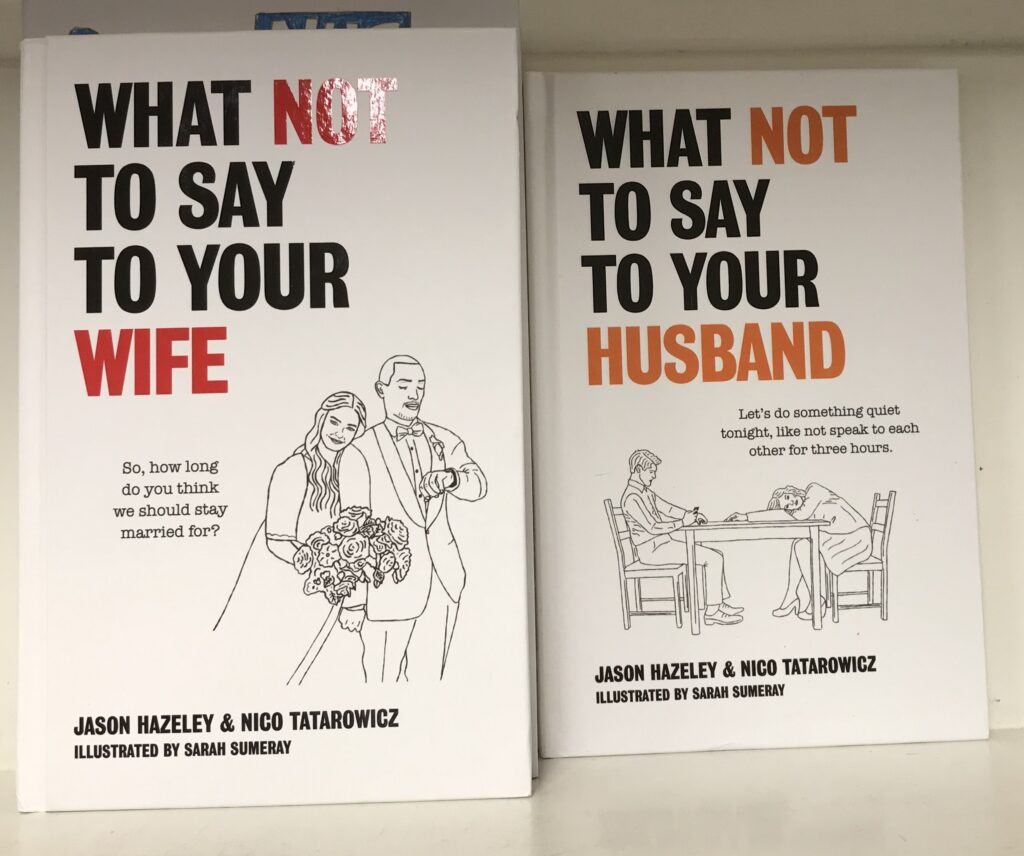
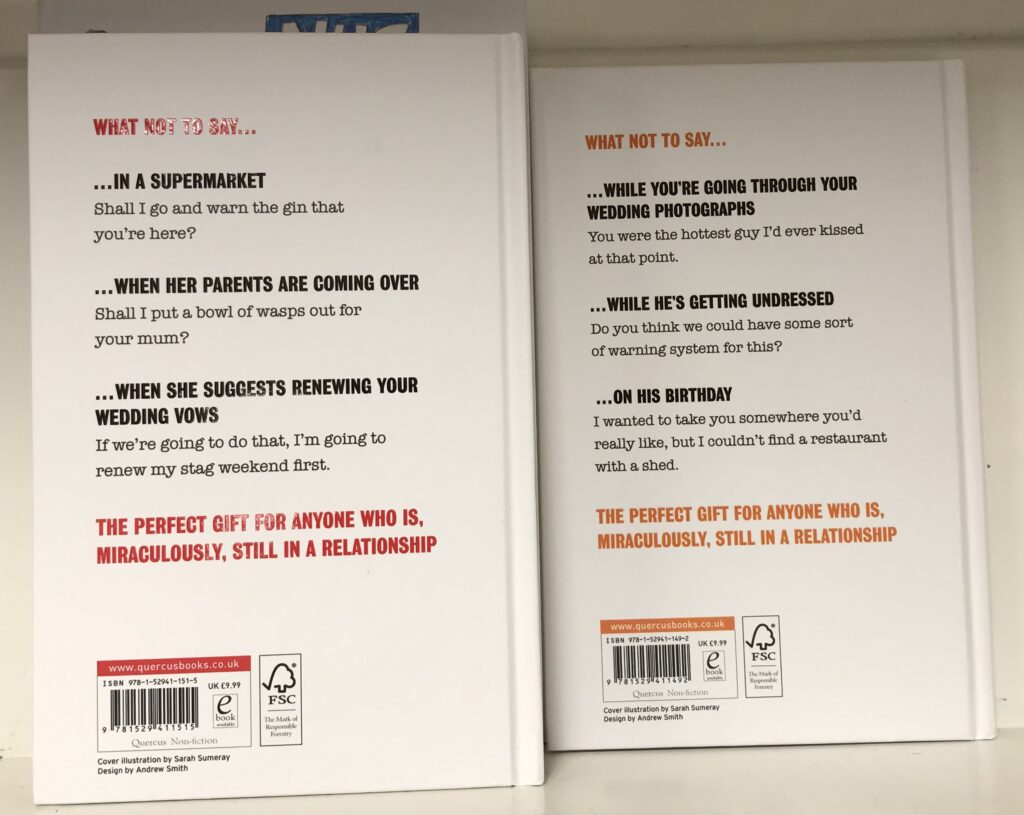
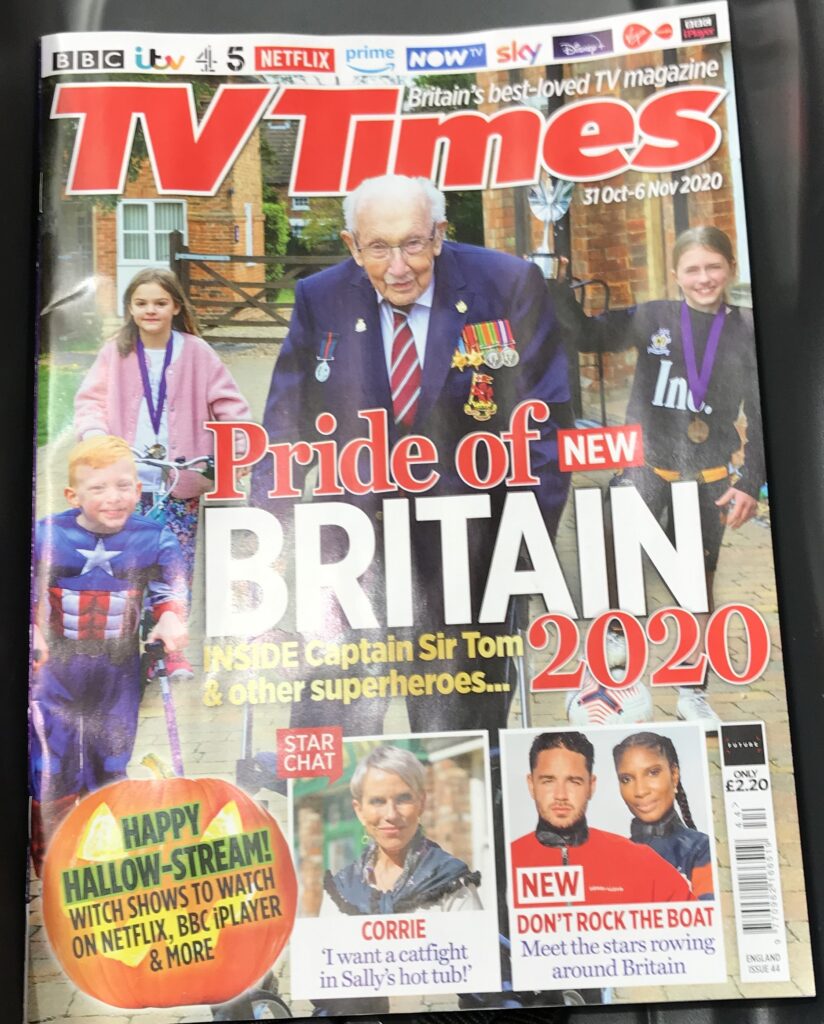
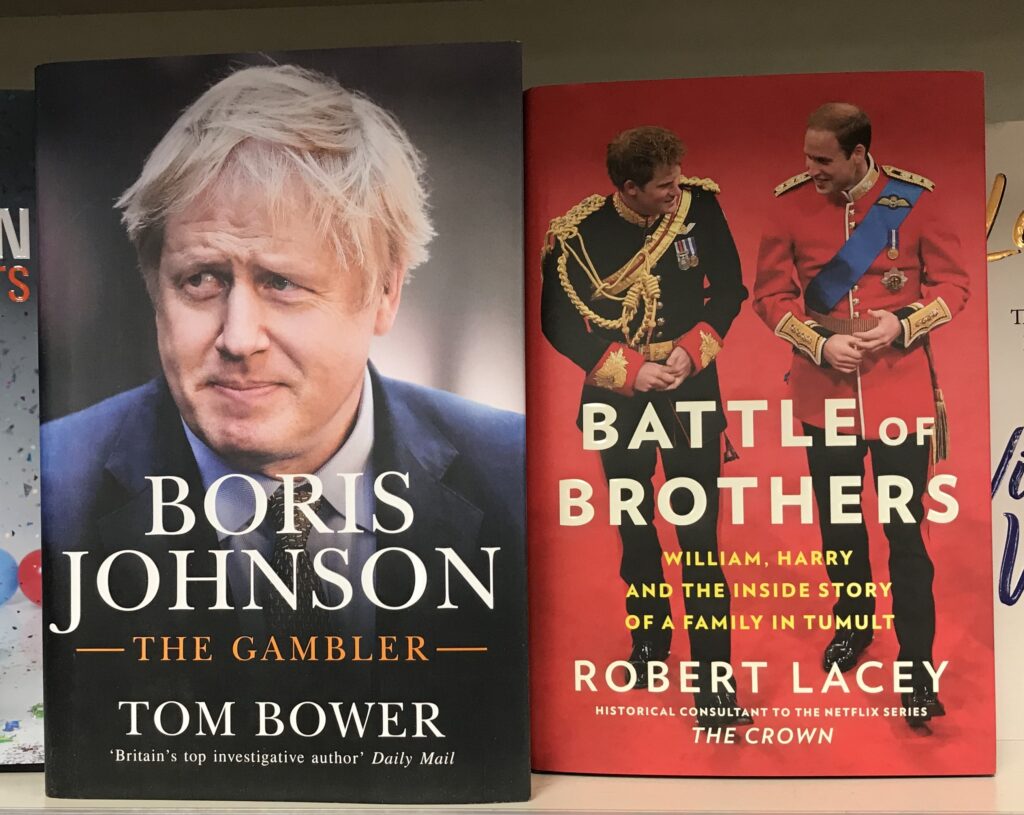
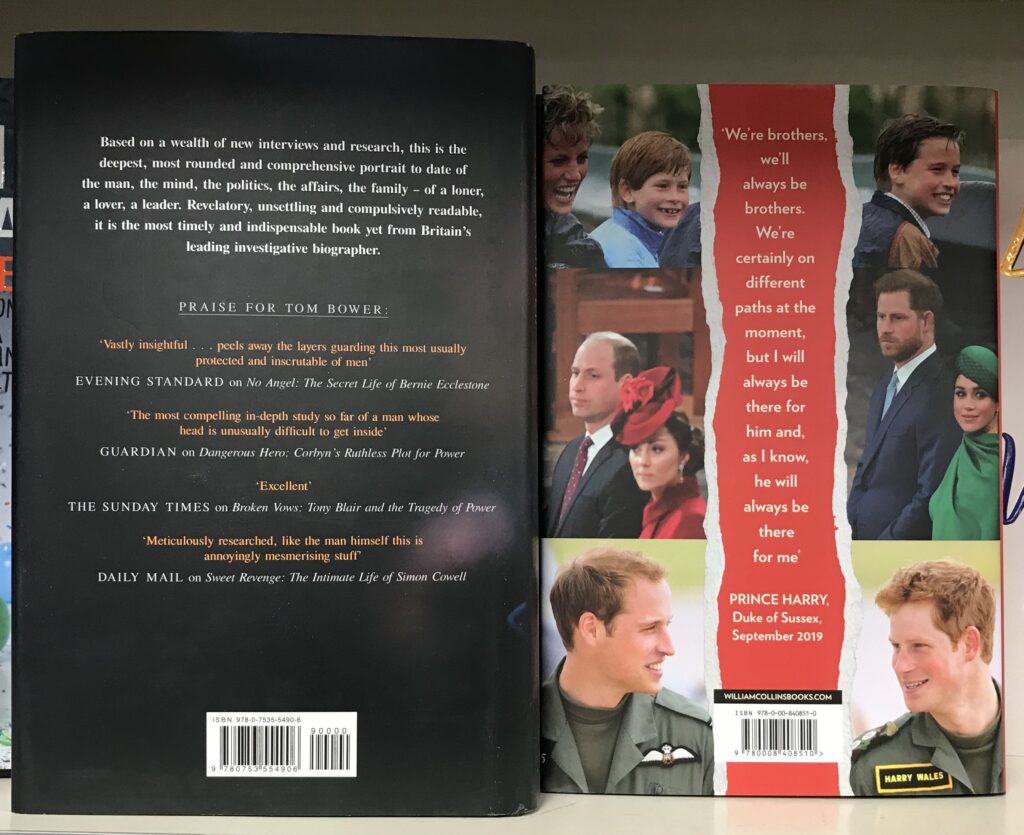
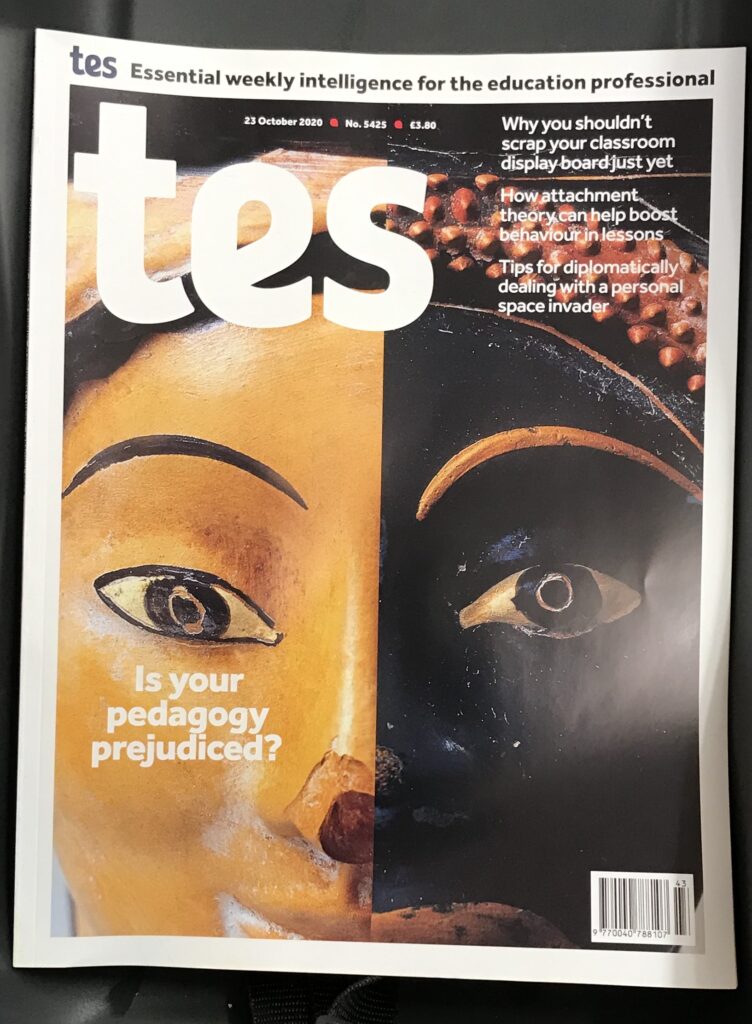

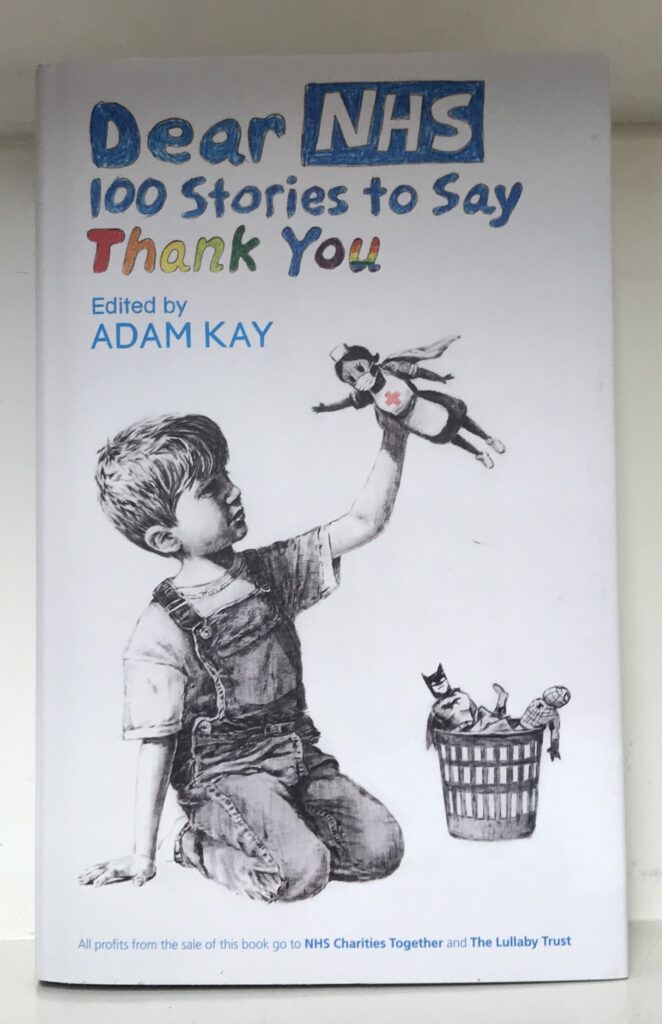
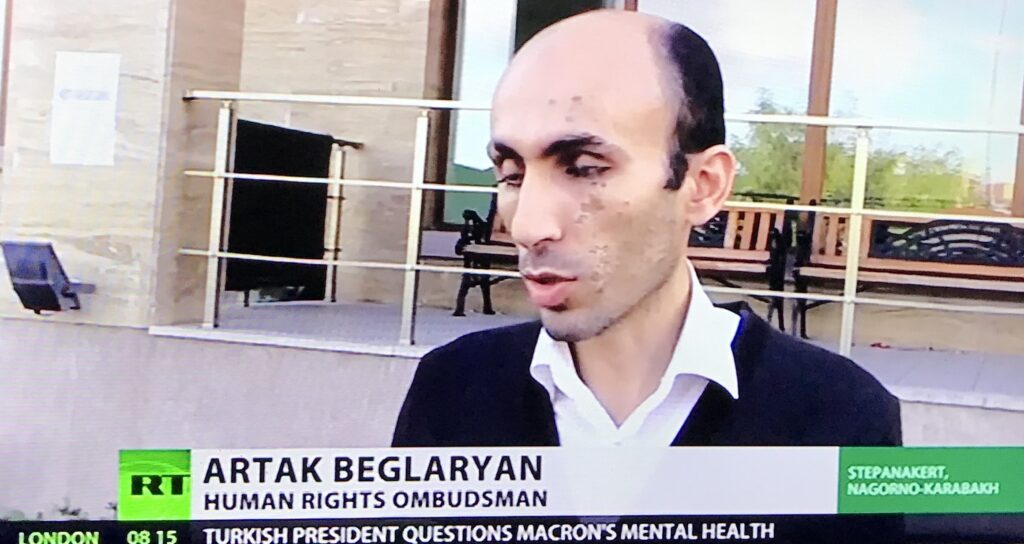


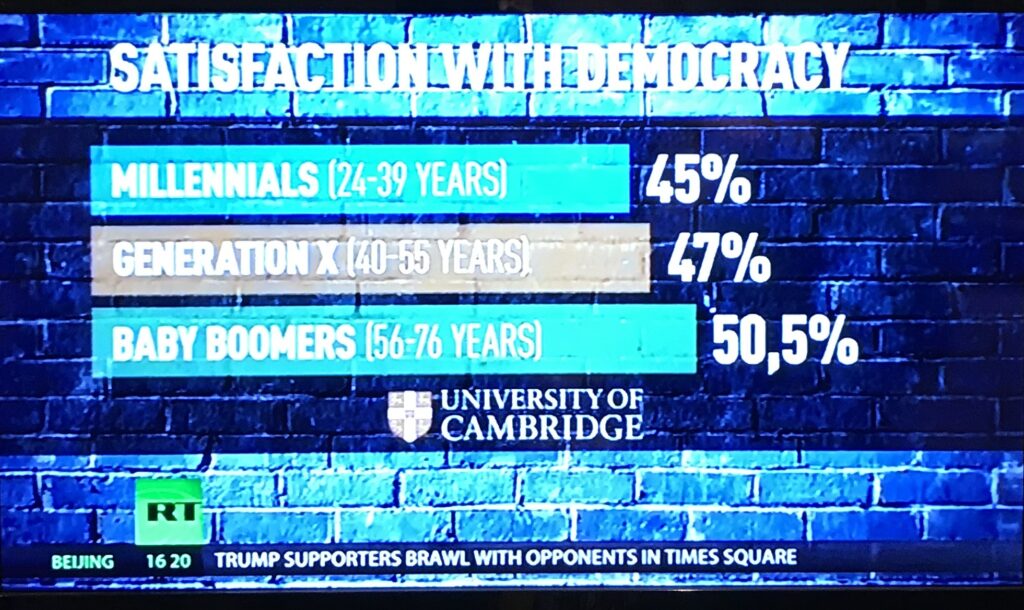
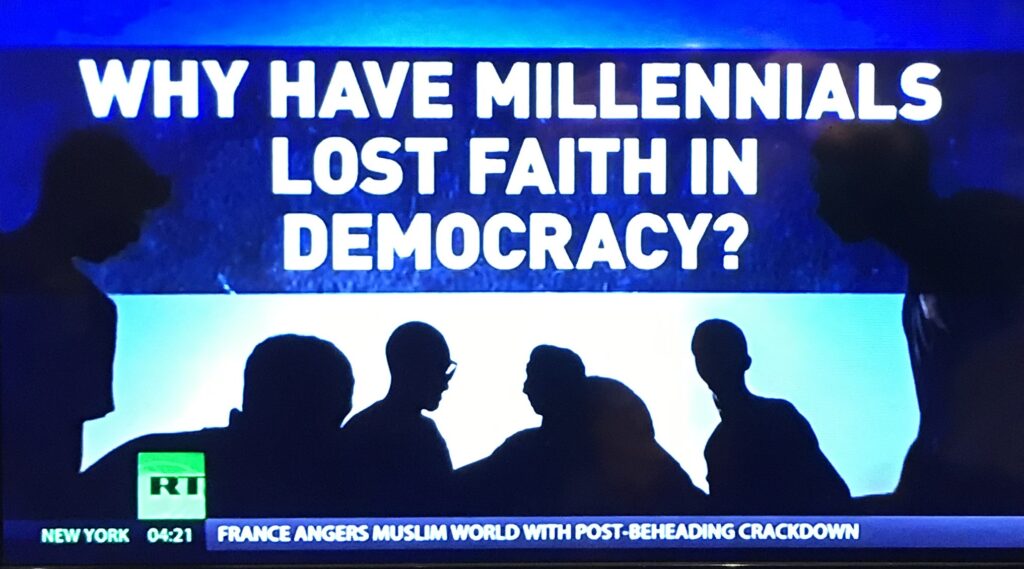
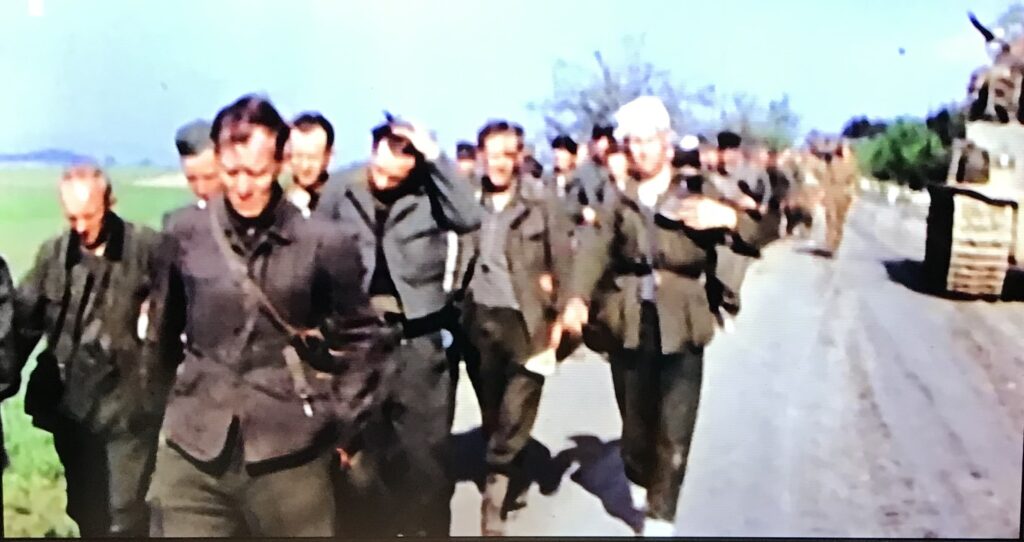
October 25th 2020
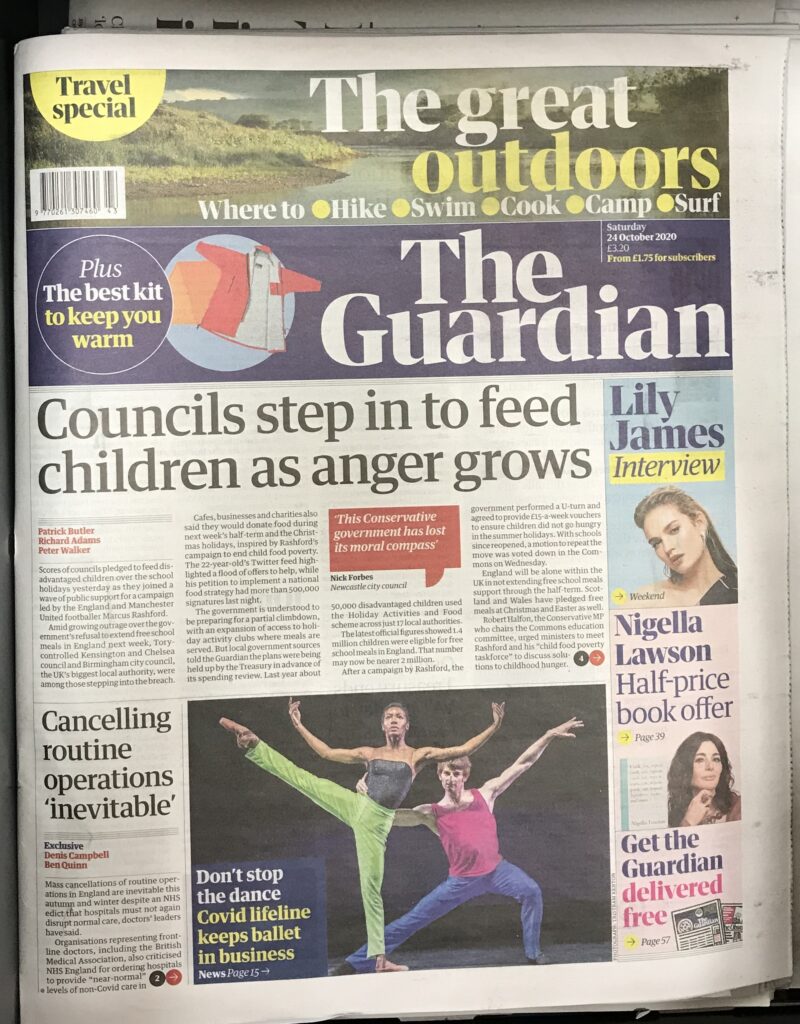
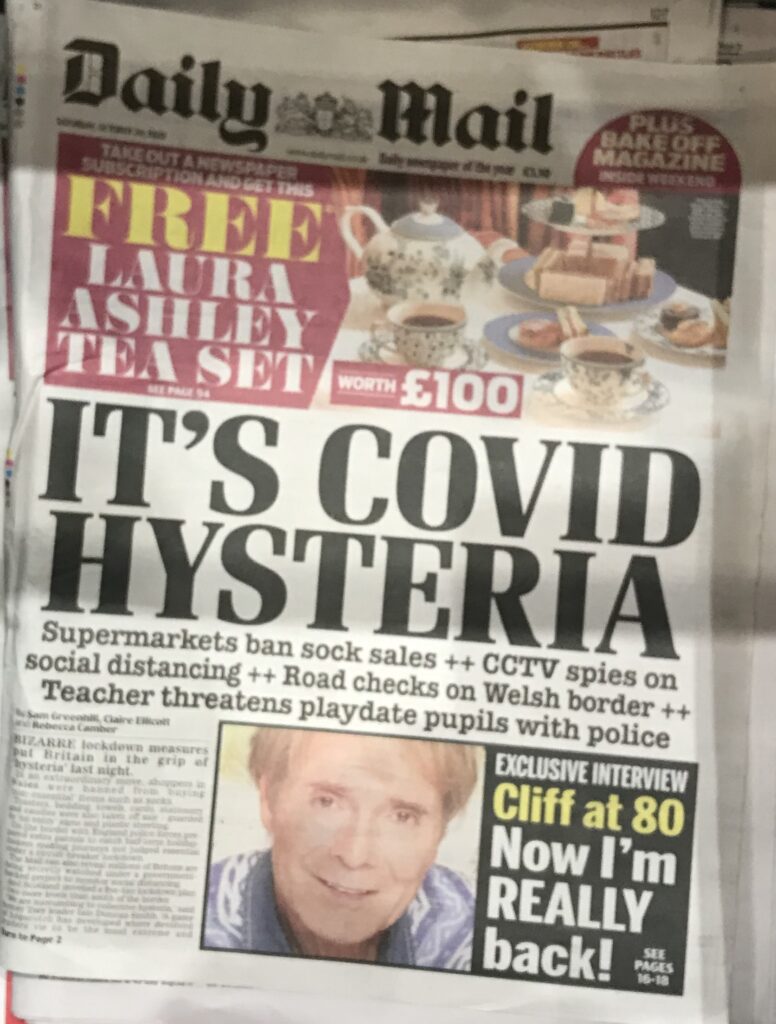
Cliif Richard has always been an enigma, and a very private person. Suspicions have been rife because he never married, in spite of being linked to two beauties.
When he was accused of being a paodophile for many years, the British Police State Police contacted the BBC ‘Ministry of Information’ to film and broadcast when they raided his luxury home in Sunningdale, Surrey.
That is the role of media in Police State Britain and why Sir Kier Starmer, former head of the CPS ( Corrupt Prosecution Service ) called to clamp down on social media and ban RT. The internet was meant to be a disinformation service. When I told my maths de;partment colleagues, back in the early 1980s, how dangerous computers would become, I was laughed at and called a Luddite. Nerds just don’t get it. R,J Cook


Neither pure black or pure white, Meghan was the enigma meant to make the British Royal family acceptable, as a new Diana. Royalty are crucial to Britain’s fake history and solidarity. So the Meghan thing failed because even British morons did not like her brash vulgarity, divisive words and the money she cost.
The elite control history, painting the black population as whiter than white, white working classes as blacker than black and boosting BLM is their latest stroke of genius. Royalty may seem expensive but they impress and mesmerise morons.
Meanwhile, the man , accused without evidence of raping media luvvie weather girl Ulrika Johnson – John Leslie – continues to fight off allegations from women he has allegedly assaulted. Of course they don’t need evidence. To paraphrase Homer Simpson court ordeal when accused of sexual assault , the prosecutor says : ‘You tears say more than real evidence ever could.’ R.J Cook
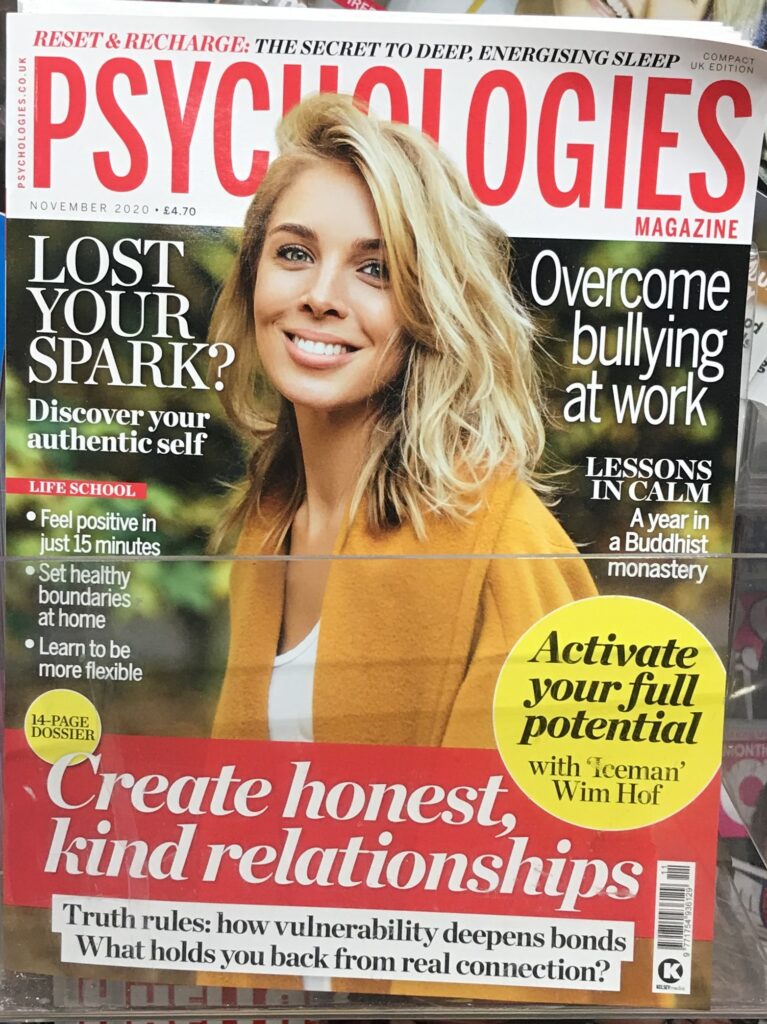
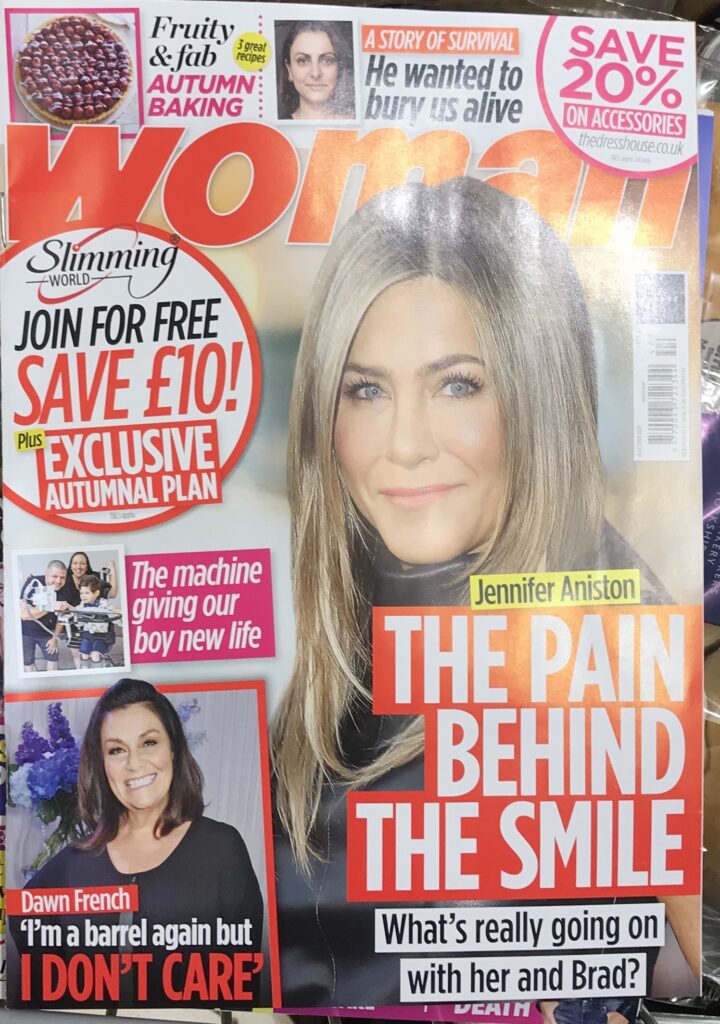
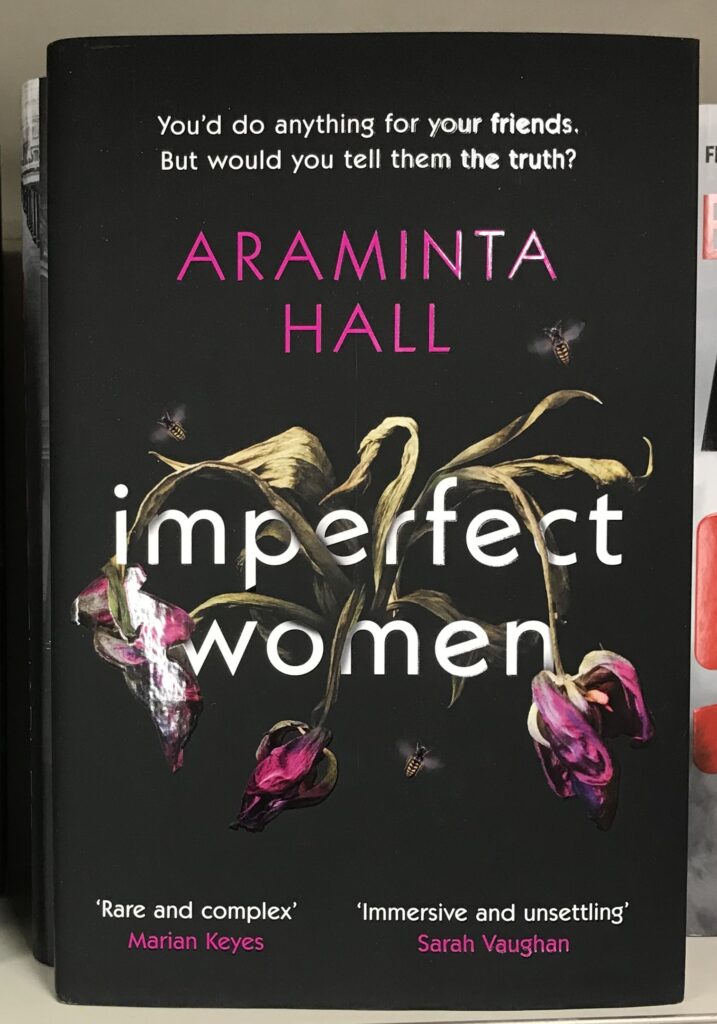
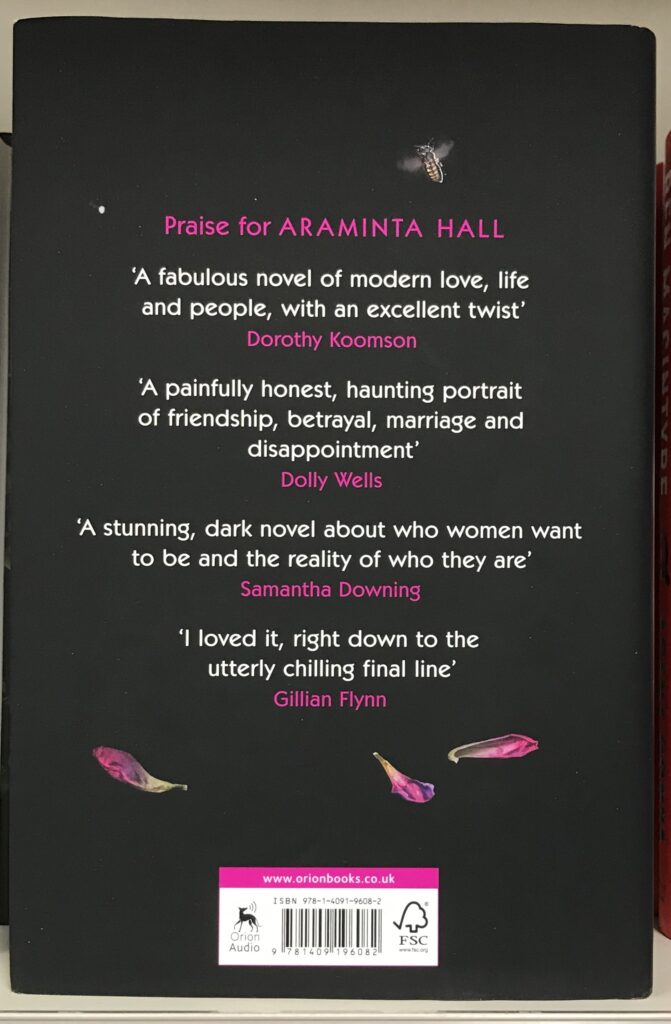
Economy with truth October 25th 2020
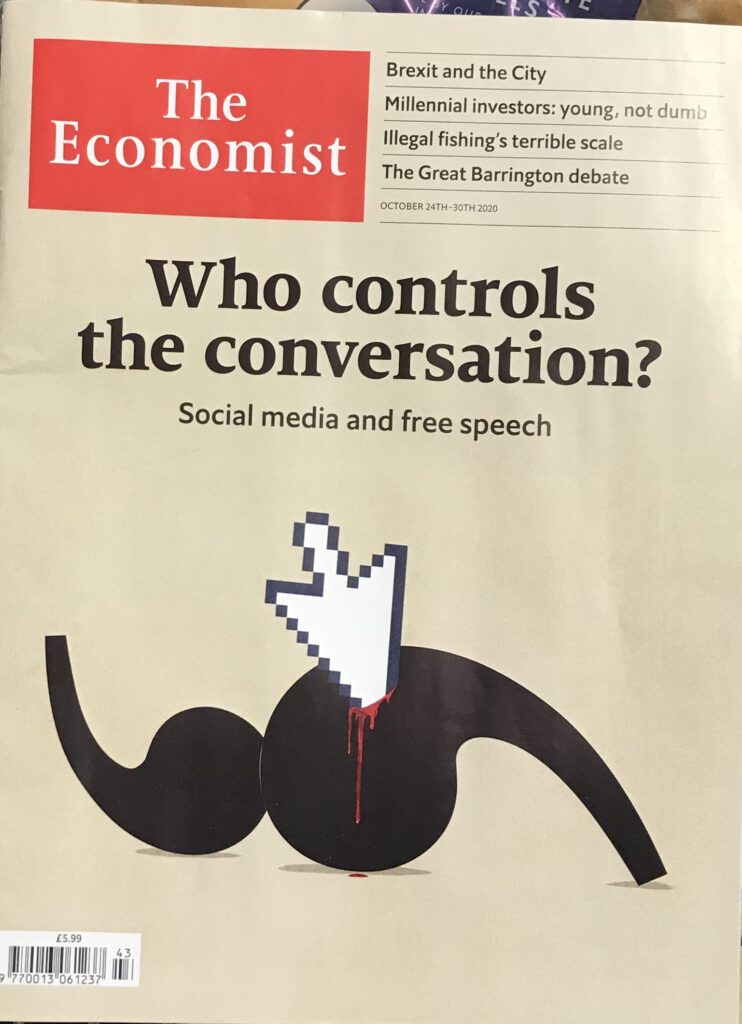
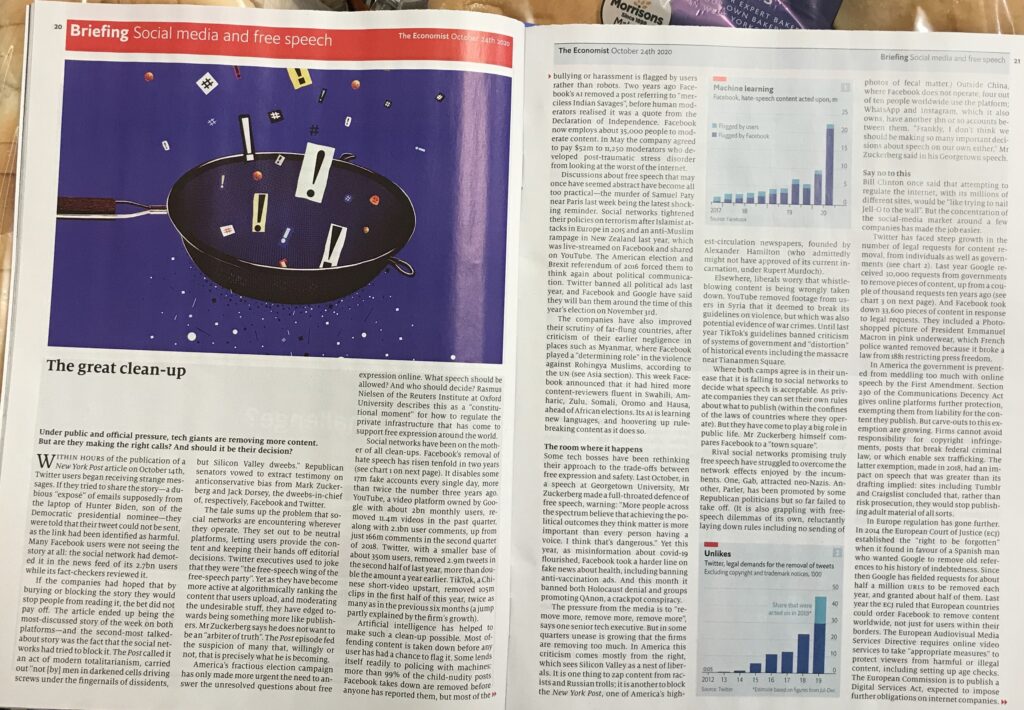
The world is in the process of a massive insidious economic and social revolution.
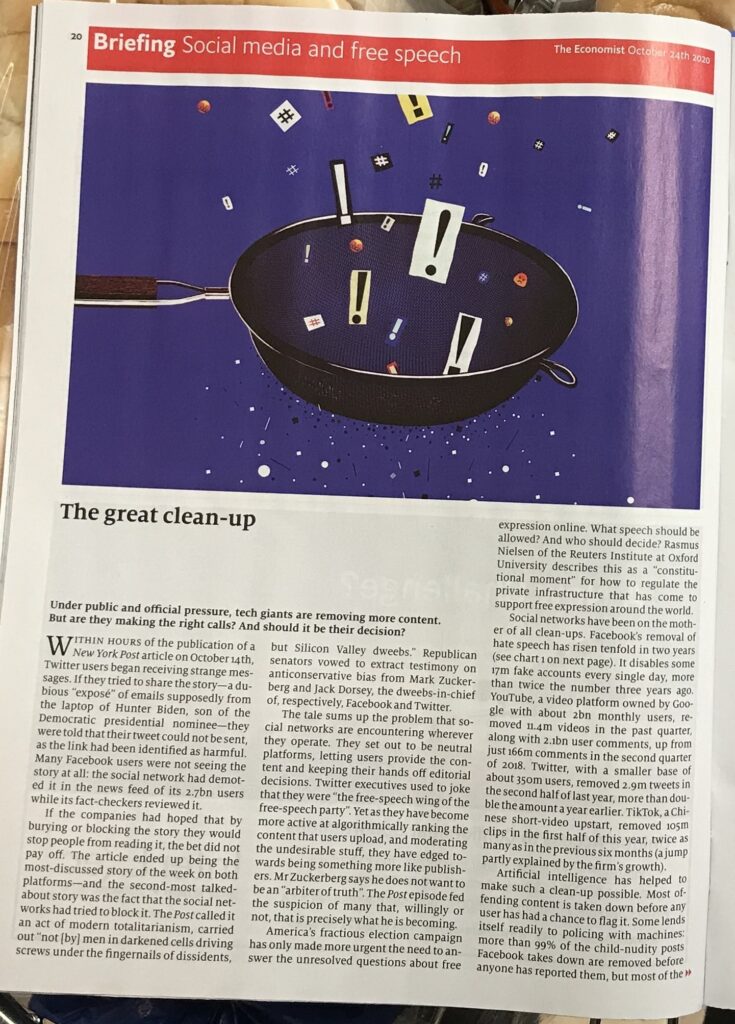
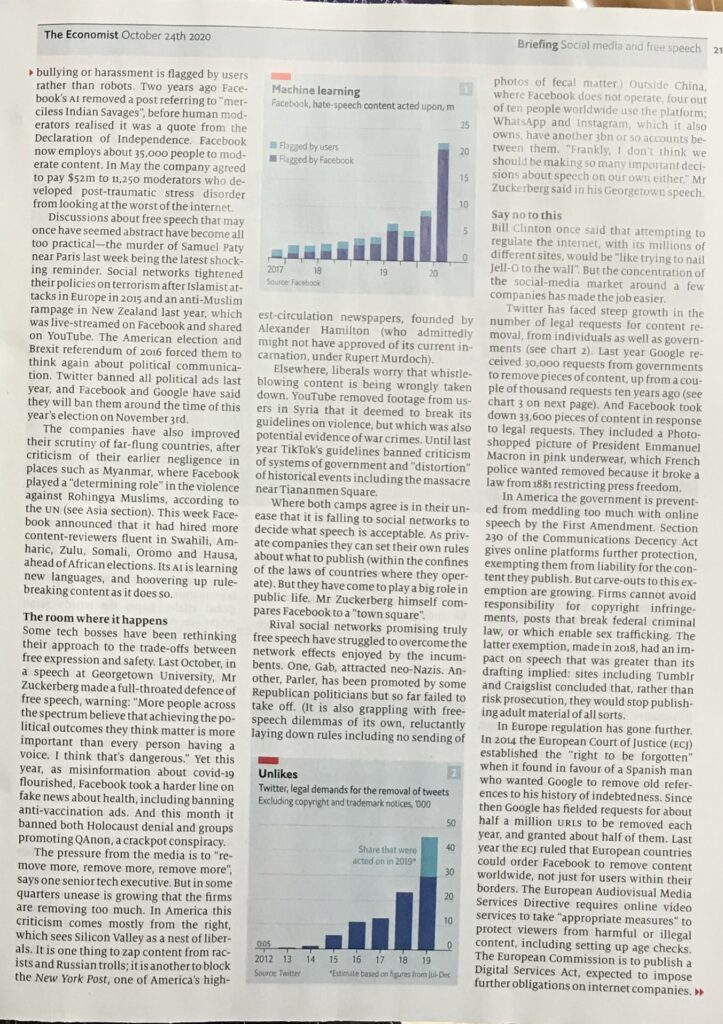
Barbaric British October 24th 2020

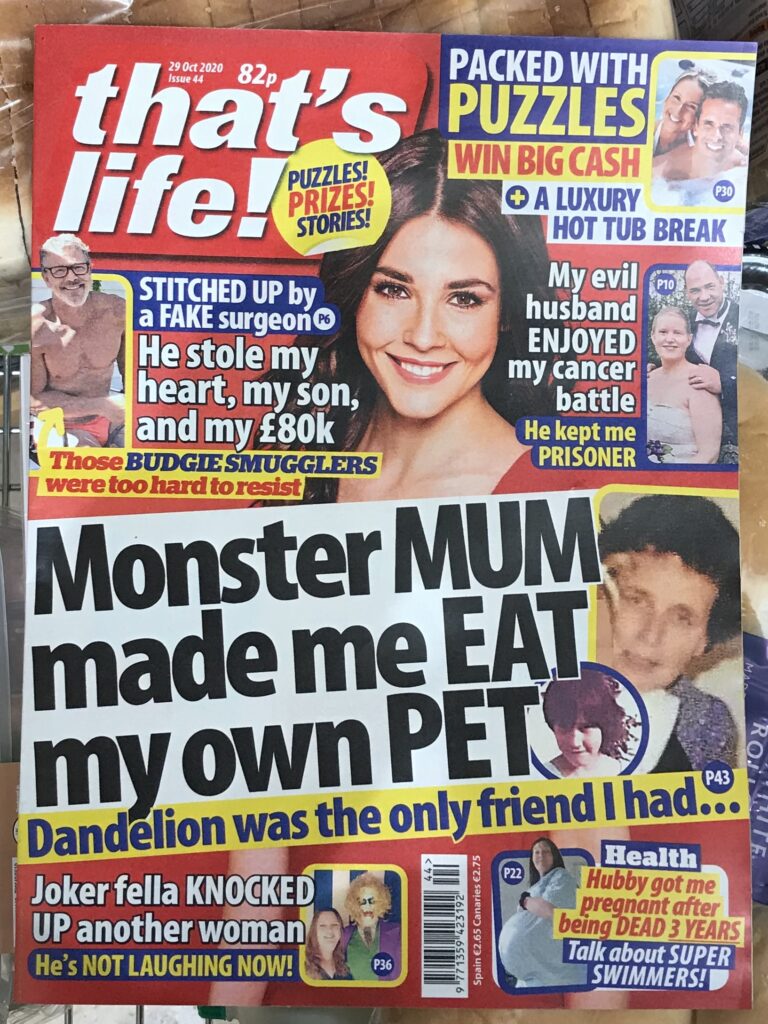
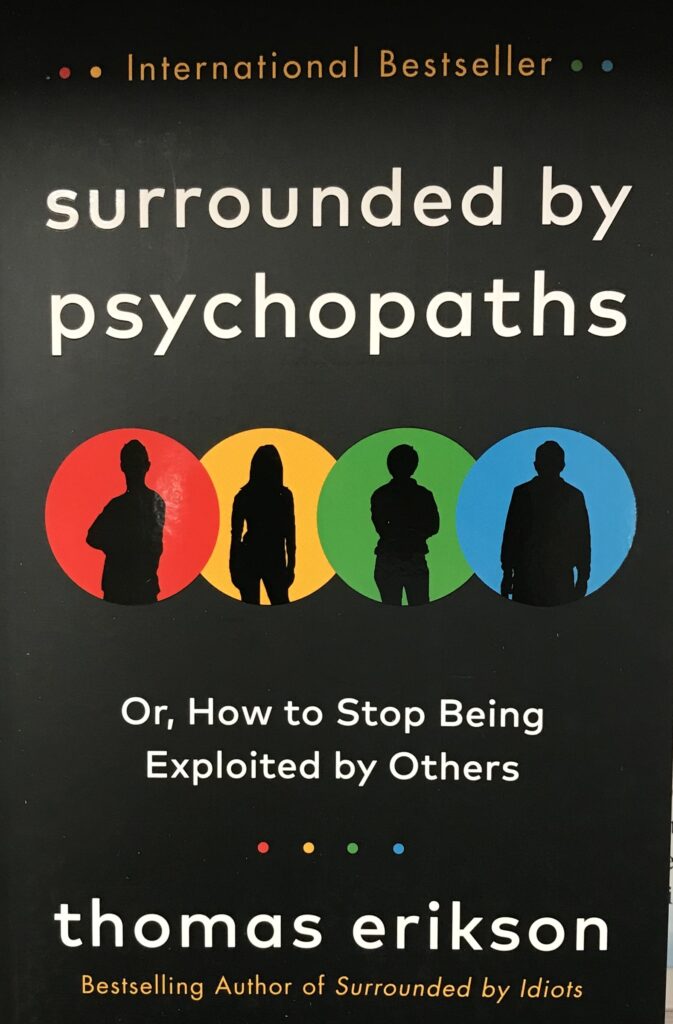
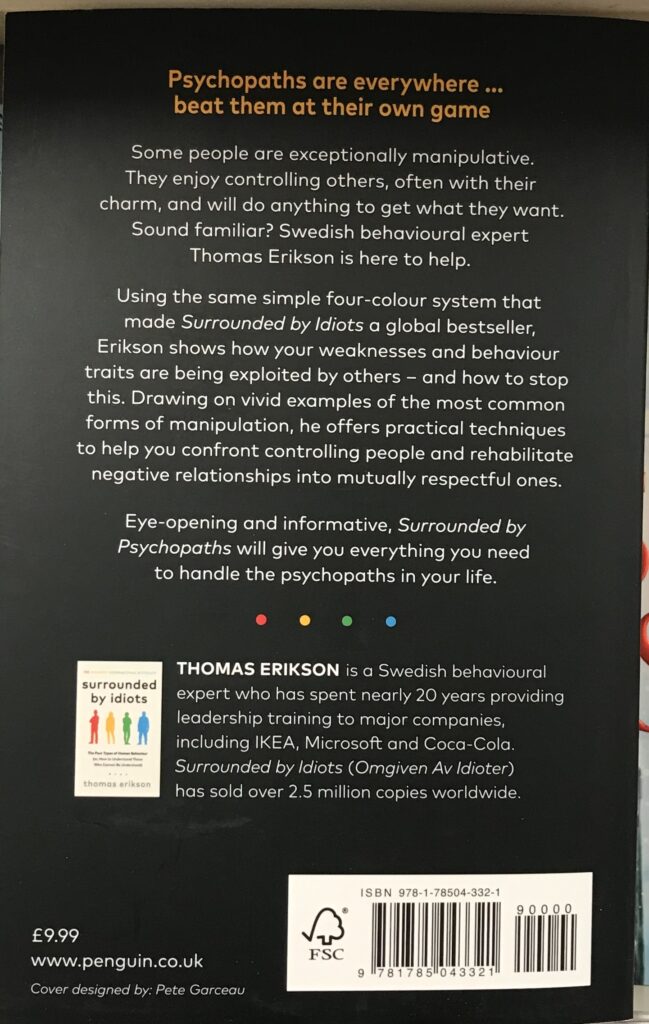
Hard Times October 24th 2020

They want the Yeltsin age of corruption in Russia back. Covid 19 is perfect cover for resetting the global economy in their favour. Lockdown and testing will be with us for years.
The lefty posh liberals are boasting that the nice British people will be clubbing together to feed starving kids because of this rich man’s con – I use the word man as a collective noun for mankind, because there are some horrible greedy lying women in positions of power.
Charlie Close
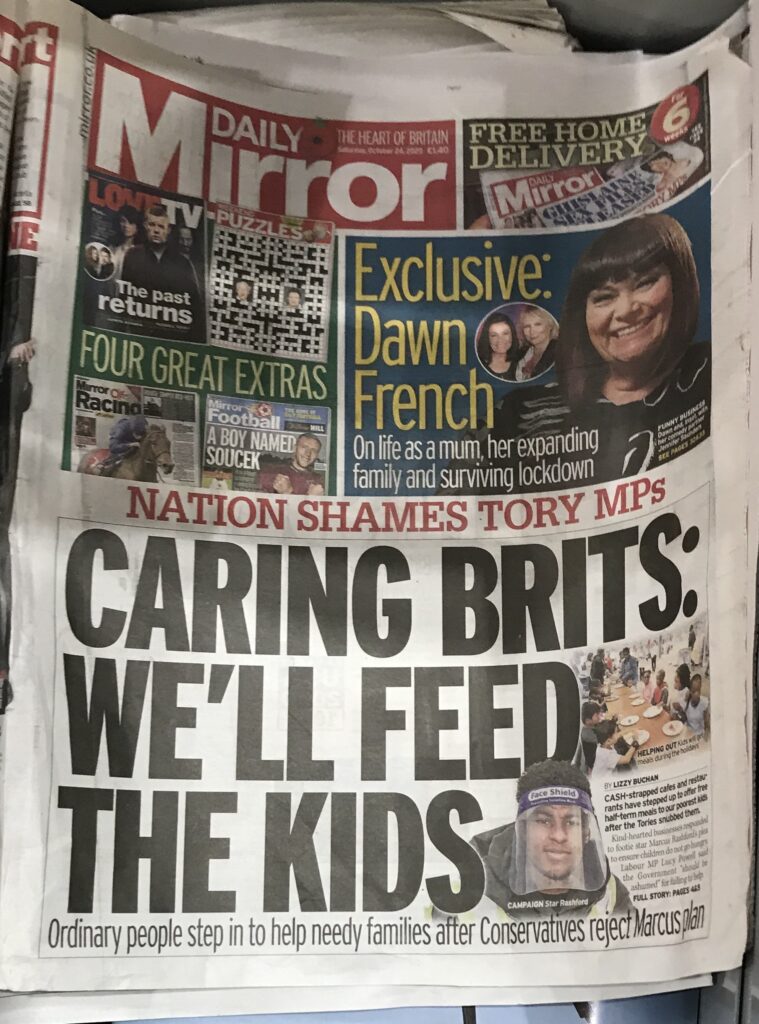
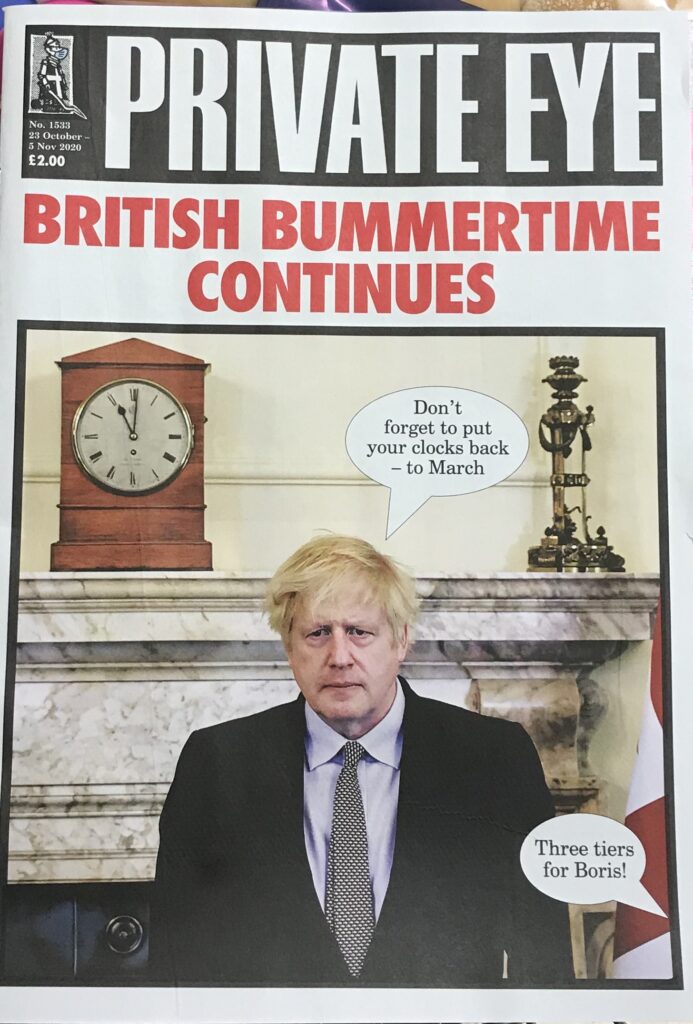
October 22nd 2020 Re Write is Right

Gulf War Two was about using the dubious 9/11 attack pinned on innocent Saddam Hussein, to get regime change and oil. Now we have chaos. so we get this money grabber doing the dirty, avoiding the death penalty for war crimes by association if he is telling the truth – which is dubious. His book reads like a worm would write about life on a hook. R.J Cook
Headlines October 21st 2020
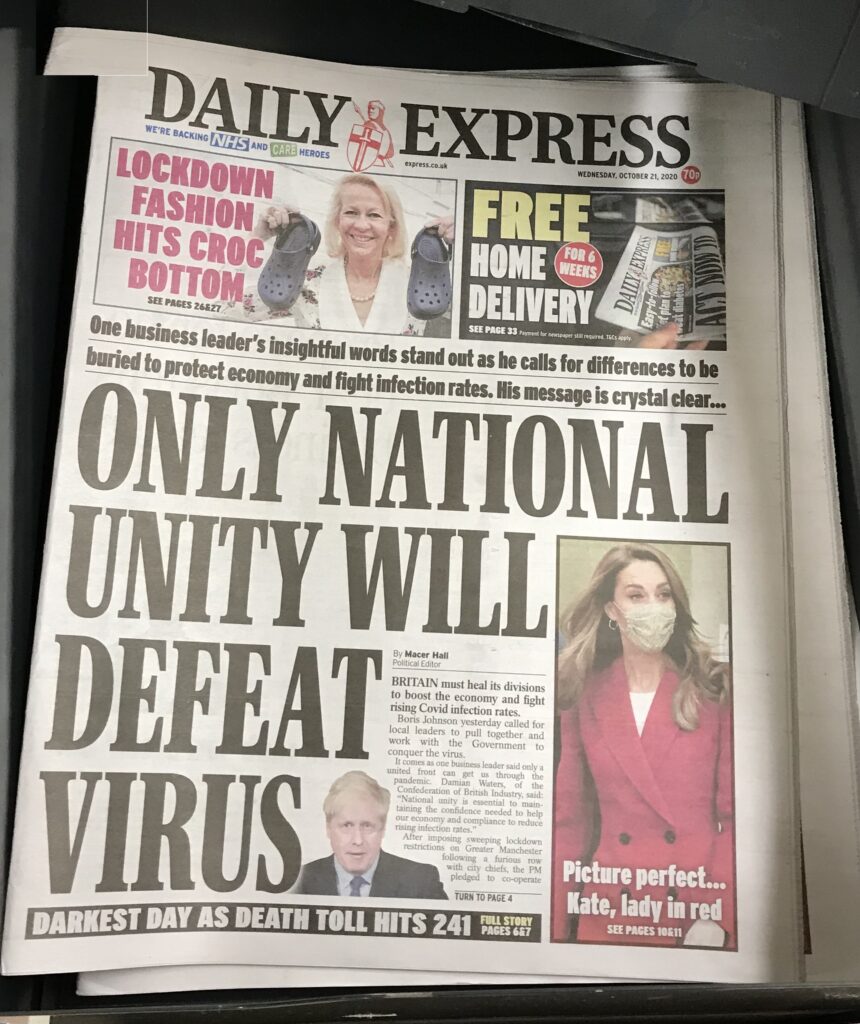
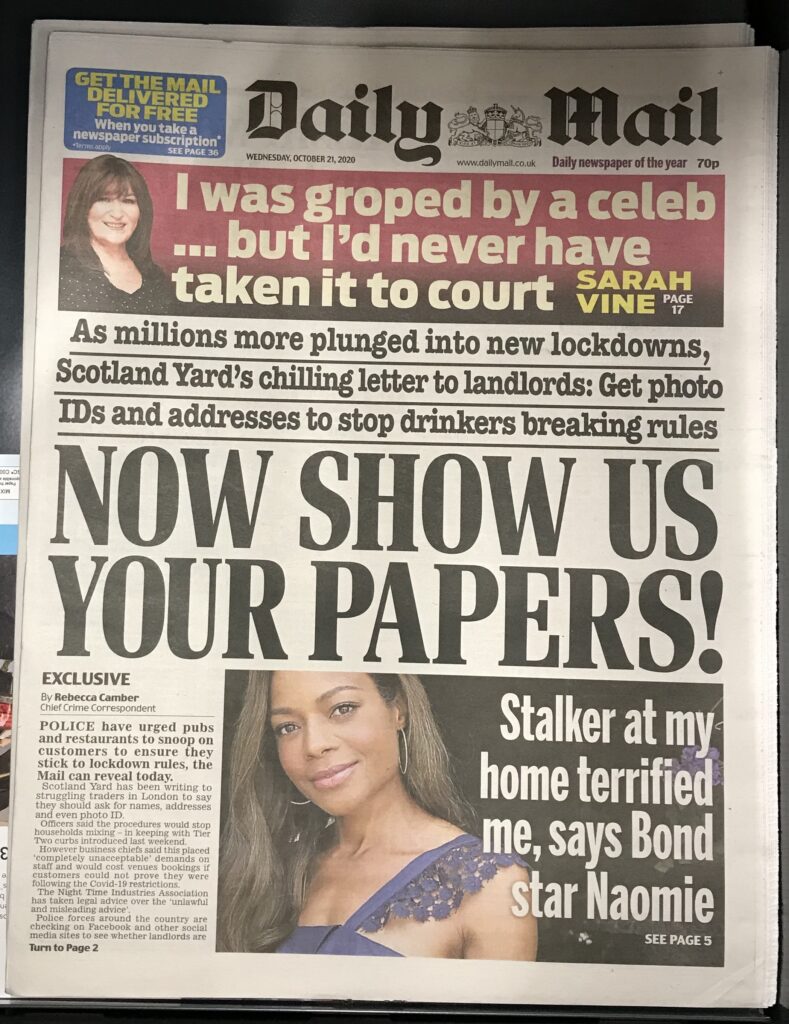
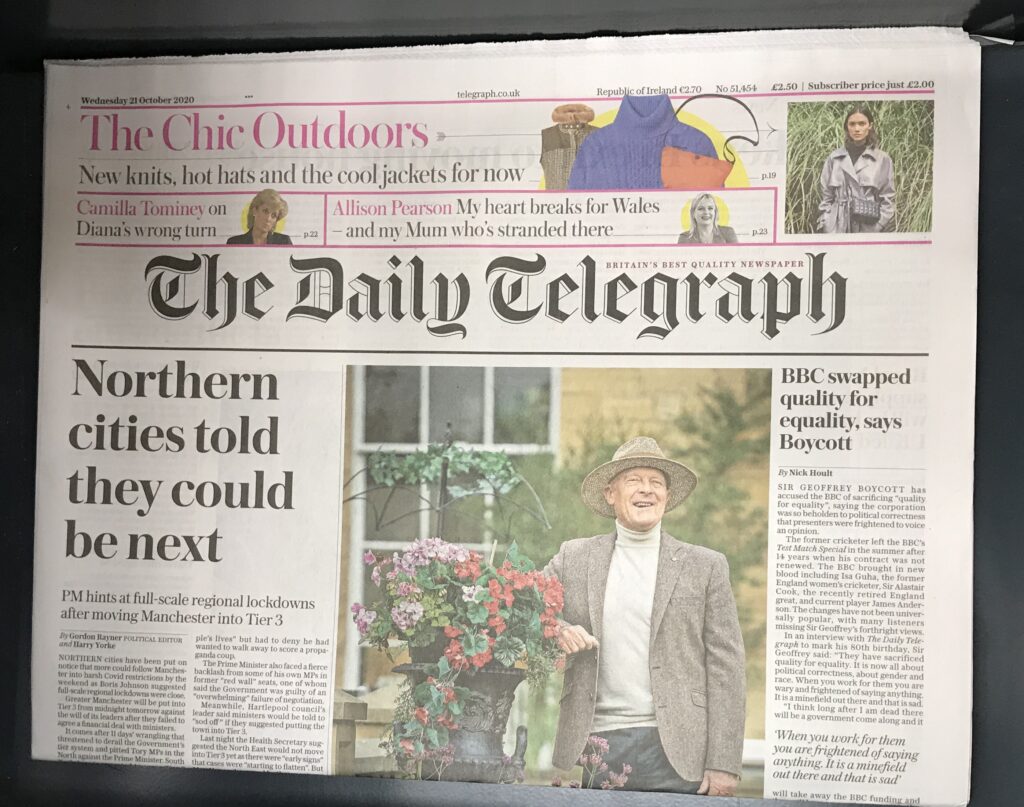
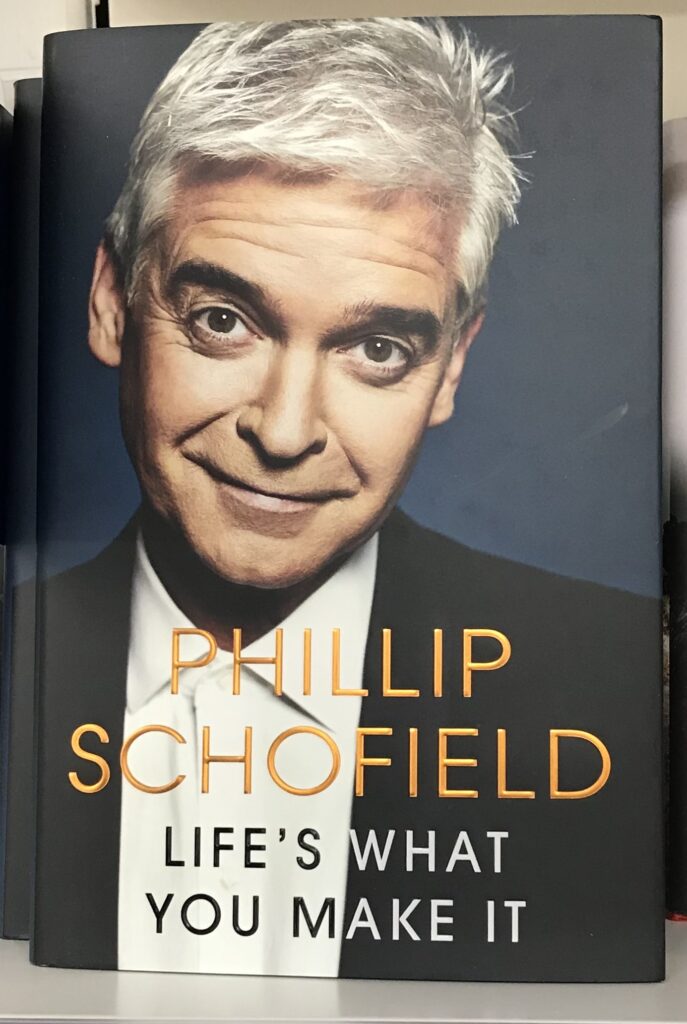
Accidents of birth, looks and class are but a few of the issues. Schofiled is coming from the heroic ‘ I am being brave and coming out as gay, you can too, or reveal whatever peculiarity you have, tell the world, be a hero but you will not get a cushy well paid job on the TV like our Phil.
His book is more of this self help, your mad but you can get better if you admit what is wrong with you. Stop blaming society and fit in, take the pills
This will appeal to women because Phil’s softly spoken gayness is non threatening.
R.J Cook
Judge Not Lest Ye Be Judged Escapism & Feminists R.J Cook October 20th 2020
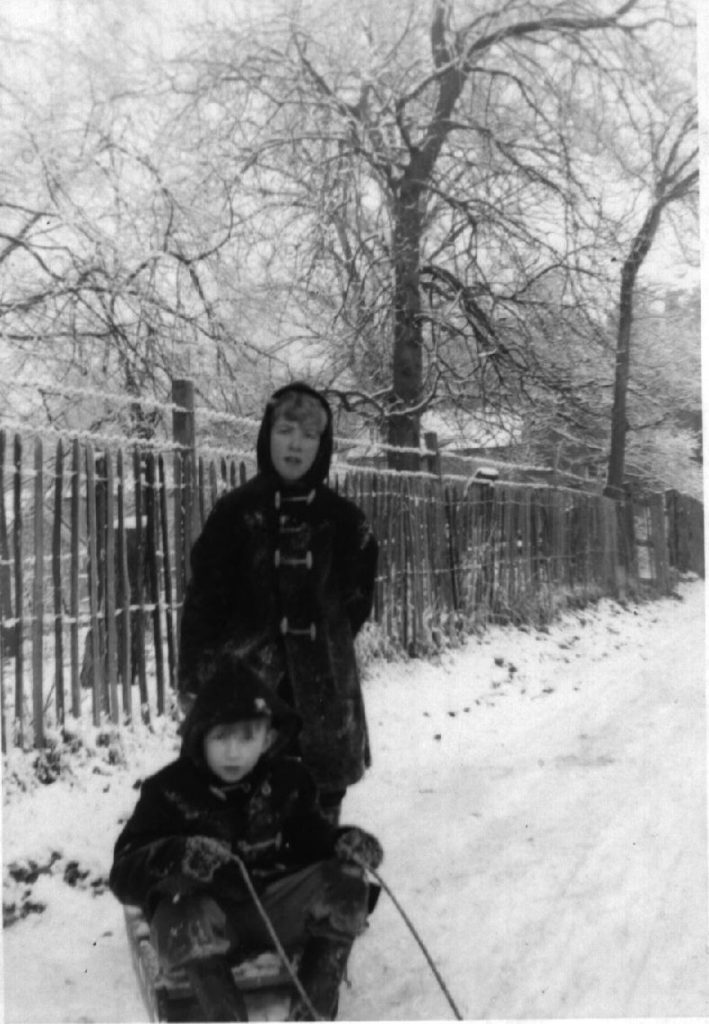
Feminists are despicable prejudiced self obsessed Nazis in my view. They have a weird obsession with their own sex and careers in planet & life destroying careers in the capitaist system.
Women in power have not made the world a better place, but men are too scared to argue with them, the unaccountable police state police are on the female side, on behalf of the ruling elite who use the poor people’s taxes to over fund them, R.J Cook
Image Appledene Archives
The article, below this one, reminds me of a seminar at the University of East Anglia in 1973. My course was U.S Economic History 2. I survived The previous module U.S Economic History 1, with a dreary English pedant. I fully expected module 2 to be as boring.
Luckily I had a rather pleasant surprise, meeting the most interesting and stimulating lecturer I had ever met there. His name was Dr Alan O’Day, an Irish American from Chicago. He was not only stimulating in the seminar room, but excellent company in the bar.
I recall in particular that a pair of dull feminist students reported him for deviating from the curriculum. As with many of these prototype 70s feminists, they expected knowledge to be off a shelf in a library, pre digested and spoon fed so that they coud vomit it all up in the final exam.
Alan had done his Phd research in Dublin, becoming expert on aspects of Irish history. I asked him what he thought of Ireland, the place where my maternal grandfather had been forced to leave or starve in 1919. Without hesitation he said, stifling a yawn : ‘Boring.’
Alan was anything but boring . Years later, going through my nightmare divorce, made absolute hell by my senior police officer ex brother in law’s involvement, I met a young American lawyer Jack Hadley. He took me to lunch at an Olde Worlde Inn near his office. We chatted about the United States, where fall out from lobbying encouraged him to leave.
Jack Hadley was another Irish American. He explained what he considered the difference between the Irish and the Irish American. He said an Irishman will say ‘It was terrible. It got worse and they all died.’ Whereas the Irish American will say, ‘It was terrible. It got worse, then we did something about it.’
Back to Dr O’Day. Obviously his ancestors did something about it when they left the old country for the U.S. Thankfully he popped back across the Atlantic to liven up the U.S 2 seminars. But those two dull feminist girls didn’t like his approach, so they did what feminists do best – those sort have hell of a cheek calling anyone a Nazi- they reported him, quoting the rules and curriculum.
On one occasion I recall one of these dullard girls responding to Alan’s digression onto interwar pop culture and the sort of Hollywood films being produced. One of them asked, with a deadpan expression and monotone voice : ‘ With millions of Americans in dire poverty, why did they go and watch Hollywood glamorous musicals and romances Why were they made.’ Alan looked puzzled. So I took the the opportunity of cutting in to say what should have been obvious to anyone outside the feminist perspective ( box ). ” It was because of their misery and hopelessness that they enjoyed escapist films. “
Having grown up in a very poor 1950s household with parents whose young lives were traumatised by World War Two, I recalled watching a lot of these old American films when mum, dad and my spolied sulky sister went next door to watch the matinee on my Uncle Charlie’s little black and white 405 line TV. Few people had TVs back then because they were expensive. Poor Uncle Charlie afforded his by being unlucky enough ( or lucky depending on point of view ) to be on high level scaffolding when it collapsed. He was laying bricks at the time. So when he fell, they fell, along with the scaffolding, with him. So, he bought the TV from his compensation.
My point is simple, people need escapism. They also need romance. Feminism, like Covid 19, is an elite engineered virus – all be it social, it clearly alters brain functioning and behaviour – to keep the masses down.
Consumerism had the same function. I recall watching the BBC news when the mid 1980s miners strike involved their wives. One of them said, in her Northern accent : ‘We shall have us ( pronounced uz ) colour tellies ( television ), we shall have us videos.”
If you were a coal miner, television was about as much colour as you could hope for in your dreary life. These nasty vile feminist, led by upper middle class English literature graduates, however, are preoccupied with their breasts and genitals. For them, class is not an issue. The only colour they care about is black. They see and patronise BLM because they see them as gullible allies in playing the victim card. As I said, these people have a cheek calling anyone a Nazi. As it is written in the much maligned Bible, Old Testament, Book of Judges : ‘Judge not lest ye be judged.’ R,J Cook
Feminist Says Hallmark Christmas Movies Are ‘Fascist Propaganda’
By Erin Evans – December 28, 2019 Posted here October 20th 2020
OPINION | This article contains political commentary which reflects the author’s opinion.
Amanda Marcotte is a politics writer for Salon.
She recently wrote a book called “Troll Nation: How the Right Became Trump-Worshipping Monsters Set on Ratf*cking Liberals, America, and Truth Itself.”
So you know she’s a peach.
She also wrote an article all about how Hallmark movies “constitute the platonic ideal of fascist propaganda.”
When most of us think about fascistically propagandistic movies, we think of the grotesque grandeur of Leni Riefenstahl’s films celebrating the Third Reich – grand, but cold sweeping shots of soldiers goose-stepping and flags waving, all meant to inspire awe and terror. But the reality is, even in Nazi Germany, the majority of movies approved by the Nazi minister of propaganda, Joseph Goebbels, were escapist and feather-light, with a Hallmark movie-style emphasis on the importance of “normality.”
Instead of real feelings and love, Marcotte says, Hallmark movies are driven by “the guiding hand of normalcy.”
It’s all “empty-headed kitsch” that “fits neatly in the authoritarian worldview.”
Or maybe, people are tired of literally EVERYTHING being about politics and the liberal cultural agenda.
Maybe people are looking for lighthearted, predictable, “empty-headed kitsch” they can enjoy over the holidays. Maybe the attraction of the movies is the “normalcy” Marcotte decries.
Of course, that’s part of the problem.
Marcotte is quick to acknowledge that not everyone who watches Hallmark movies is a fascist themselves – yet.
But if we don’t watch out, these propagandistic movies will subtly convert us all into racist MAGA-hat wearing Nazis.
Still, it’s critical to be mindful of the role that Hallmark movies are actually playing in our society. The very fact that they’re presented as harmless fluff makes it all the more insidious, the way they work to enforce very narrow, white, heteronormative, sexist, provincial ideas of what constitutes “normal.”
It’s easy to spot fascist propaganda when it’s goose-stepping Pepe-the-frog memes. It’s a lot harder to notice how it’s working when it’s tied up in Christmas cheer and suggesting grinchood of anyone who questions the rigidity of its worldview.
Everyone needs to chill out and stop looking for racism and hatred in everything that can be seen as stereotypically “normal.”
Entertainment used to be a way to ESCAPE from the worries of everyday life for a few hours, instead of a way to cram a political agenda down on the masses.
The vast majority of Americans still look to movies for that kind of escape. Let’s let them.ShareTweetA lot of common sense, no bull sense. Get Mock and Daisy’s UNIQUE take on the world, from the dinner table to the swamp on the new Mock and Daisy Common Sense Cast. Listen on Apple Podcasts, iHeartor your favorite podcast app!
Got a story to submit for possible publication by the Chicks?
Submit your article to chicksontherightrule@gmail.com
Headlines October 19th 2020
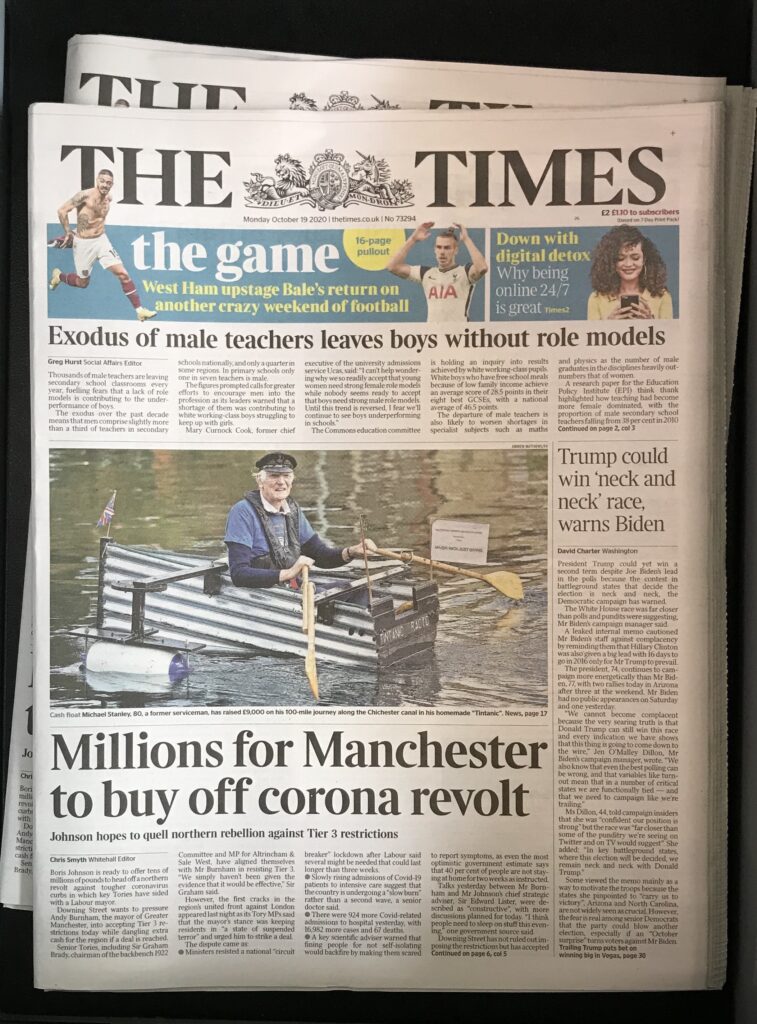

A Glaxo Smith Kleine whistle blower has suggested that research into a vaccine – which is being trotted out by mainstream media and mouthpiece puppets like Boris ‘Karloff’ Johnson – as the only solutino, is a backdoor into eugenics promoting sterility in 97 % of women.
I think we are going to see a programme where having a vaccination, as with the masks, will be compuslory in the name of ‘saving lives’. This is highly credible to those of us who have worked for the state, with such intelligence as to know what vile antics they are capable of. That’s why they make us sign ‘The Official Secrets Act.’ R.J Cook

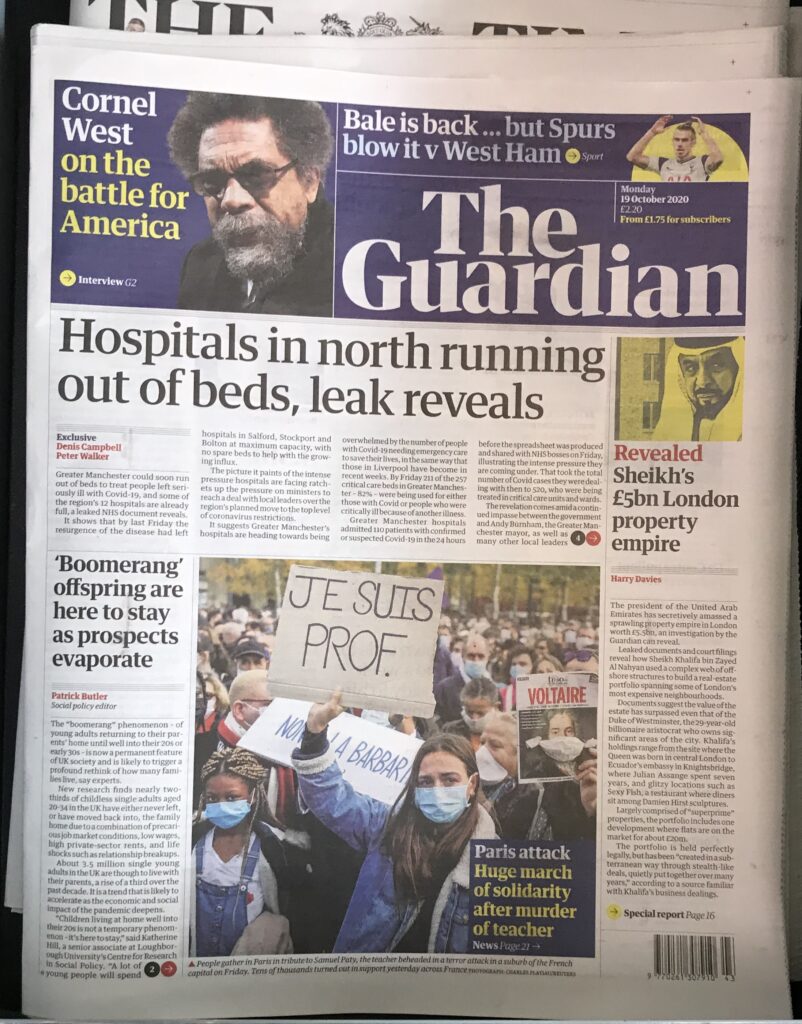
Th pathetic solidarity ritual of handclapping and awards to people in this dreadful service is part of an appalling but laughable con.
Another story on this front page about ‘boomerang offspring’ trivialises the declining opportunities for young people living legiiamtely in Britain.
Covid is a device to make matters worse, pretending that the virus happened naturally, when obviously it didn’t and is not a serious threat to healthy people anyway.
Add to this the other disgusting story on this page, the Shiekh’s – no doubt he is one of many in that nasty elite-£5 billion property empire and we have a thumbnail sketch of a vile Britain in a vile world.
People like this exploit their otherwise Third World popualtions, using first world experts for high pay, pushing up London house prices.
They romp and rave around London – fast cars fast girls, breaking all the rules of Islam, and partying with posh white natives. Then they dump their surplus impoverished religious biogted population on the British masses, who get the blame for racism and a so called right wing response.
To call this a democracy is pathetic. Filling political / Public service positions with women and blacks is an excellent way to shift attention on to bogus problems, invented to protect the elite. R.J Cook.
Love on the Dole, a film and novel by Walter Greenwood. R.J Cook October 19th 2020
At this moment I am watching a film adaptation of Walter Greenwood’s novel ‘Love on the Dole.’ It is set in a film is set in Hanky Park, part of Salford, in 1930 at the height of the Great Depression.
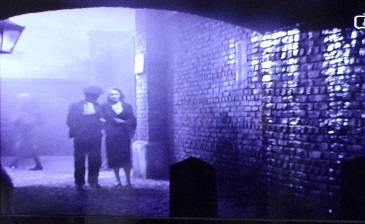
It is the first English film showing the police wielding batons against protesting public. The BLM is about blackwashing the abuse and exploitation of the English working classes.
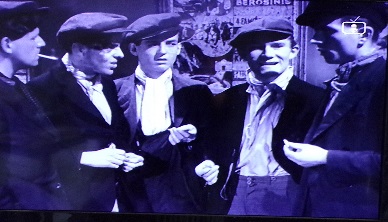
My father grew up in the grim back streets of Islington, North London. That area is trendy and affluent now, but I recall how awful it was in the 1950s, and the bomb sites.
One wonders what men like my regular soldier father thought he and his kind were fighting for. He used to frighten me with stories of children my age dying from starvation. There was no National Health Service.
My friend Mick Birrell from near Ormskirk told me a story of his dad when he was coming home from work in Birkenhead. He told his son about a starving boy, without shoes, breaking a cake shop window for food. A policeman saw him running away, picked up a milk bottle from a doorstep, threw it in front of the scampering child. It shattered, with the screaming infant ripping open his feet and falling to the ground – then off to the police station.

During the 1930s, the rich closed up shop, using vast wealth for fun. That same elite did not give a damn about Hitler and the Nazis. They feared communism more than that. The first Me109s had Rolls Royce engines, the first BMWs were Austin 7s. Through the 20s and early 30s, working class Germans were also suffering the consequences of their own elite’s second greed World War One..World War Two War brought jobs and empty promises.

Working people were bombed and slaughtered on the battlefield because they were given no choice on either side. Hitler was the German rich man’s puppet and ultimate scapegoat. Russia – U.S.S.R took the worst of that war with Churchill wanting to bomb this ally afterwards – because he represented the rich and feared communism .
Trading on that war and the Churchill myth, windbag Boris ‘Karloff’ Johnson tells us we are all in it together. Well, to paraphrase George Orwell and Animal Farm, some of us are more in it than others. The reality is that my parents generation were not all homogenus nasty slave trading whites. They were mostly slaves living squalor. Covid is the elite acting to type. From 1930-45 they pretended to care for the Jews. Now they pretend to care for the elderly and BAME – whose numbers increase massively every year, naturally and through immigration.
The vulnerable groups should be the ones isolated if they fear Covid. Twelve boat loads of migrants arrived yesterday, from the old Third World, the old rich mans empire and bombing targets for the ast 20 years. The rich are the problem and will sacrifice and con , kill and bully the masses as they did for centuries past. They have brought religion back, in the guise of diversity, to suppress freedom of thought with hate crime consequences for dissidents redolent of Tudor England.
The film was made as propaganda in 1941, using Greenwood’s lament for the British working classes as something to rally the troops because Communism and Fascism so threatened the rulers. Read the book, there was and still is no hope for the divided masses. Sally Hardcastle, the young miner’s daughter having lost her idealistic beau due to police violence, sells out becoming an old bookie and money lender’s concubine – outraging the working class community’s narrow minded and self defeating sense of morality which means more to them than lack of money, that’s religion for you. R.J Cook
U.K Headlines October 16th 2020
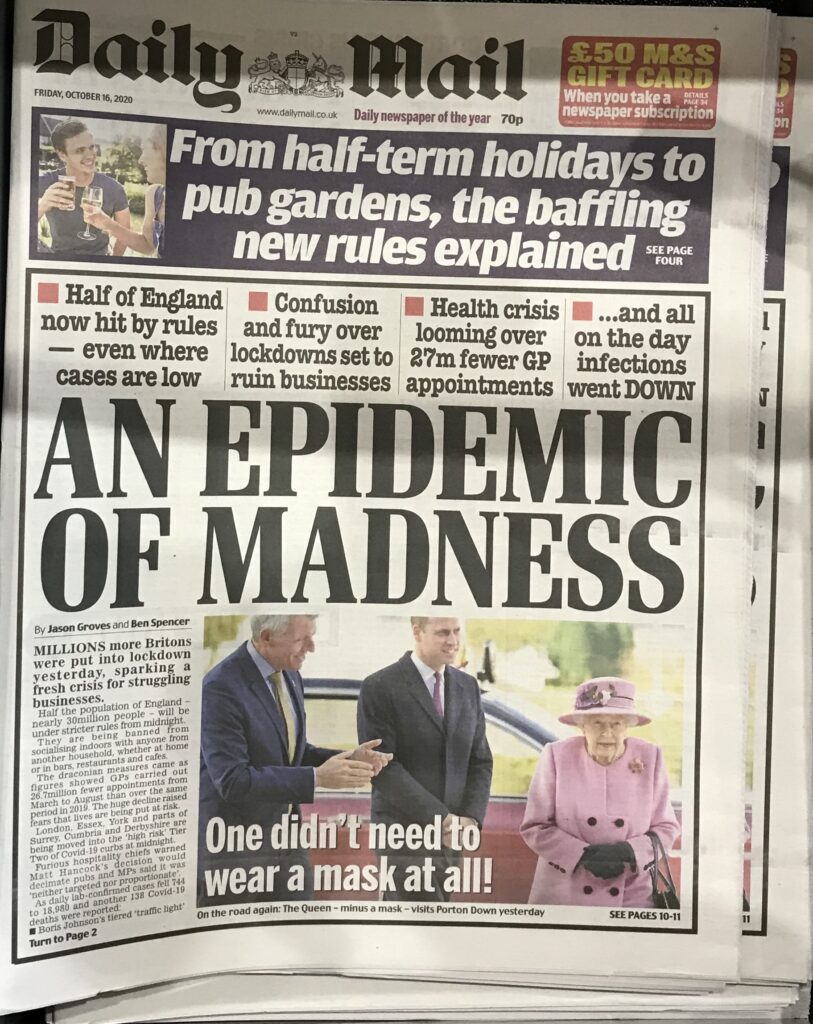
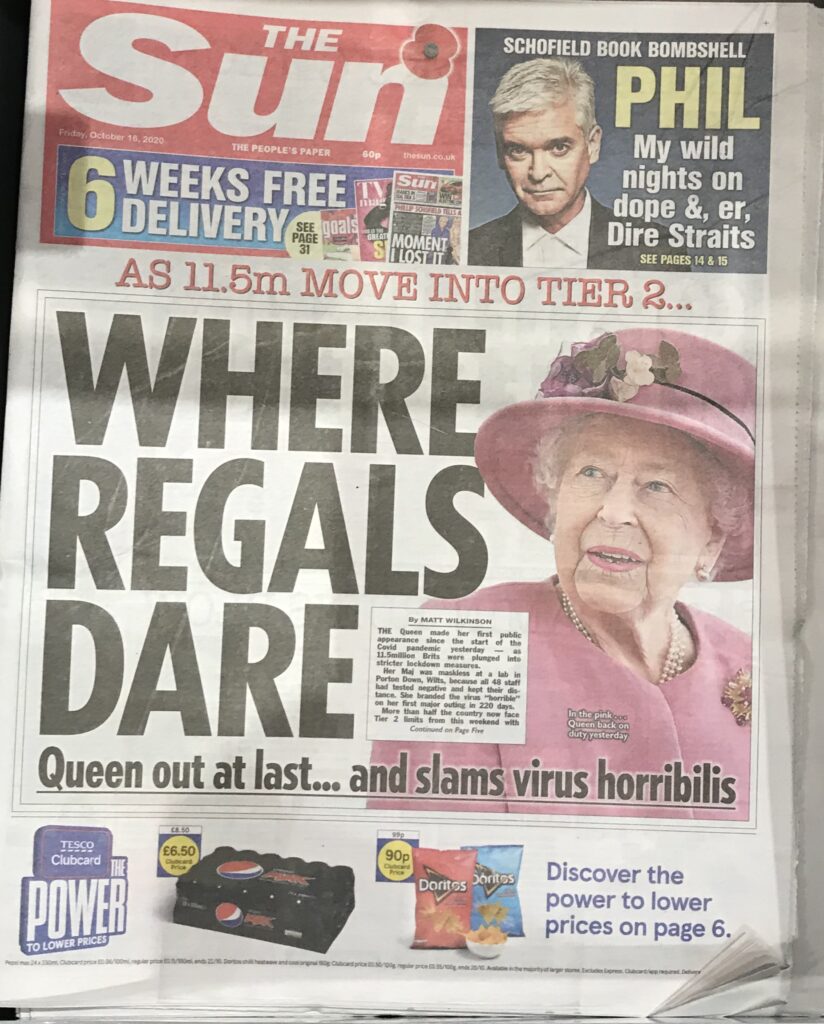

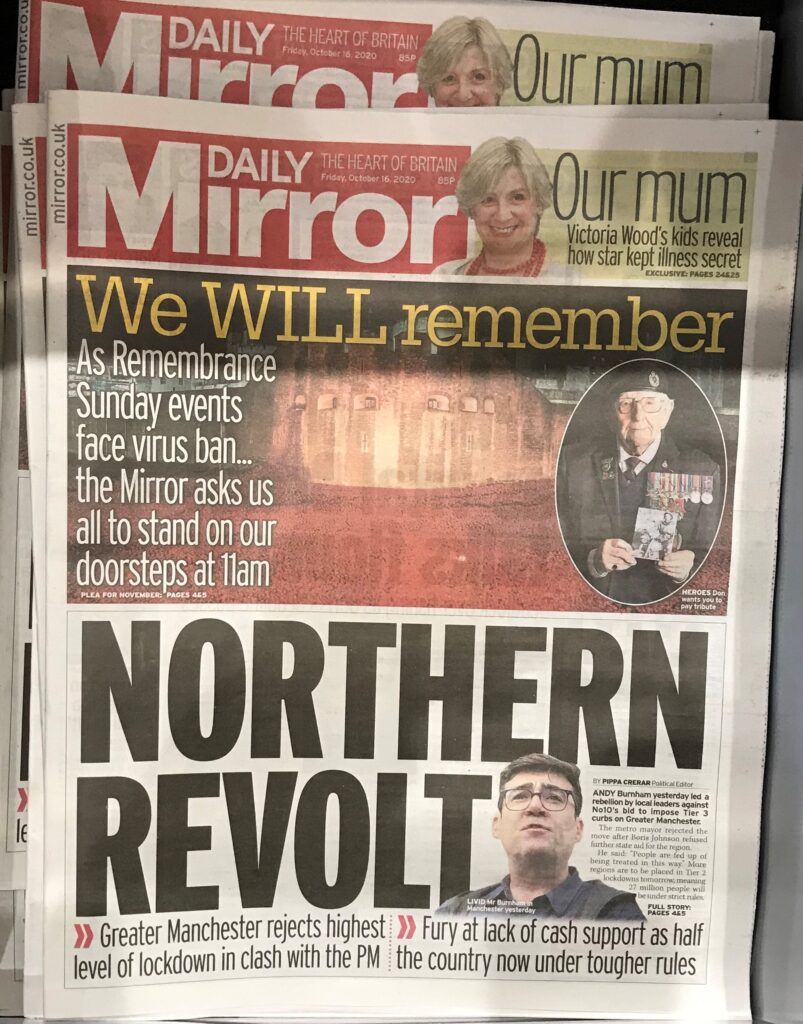

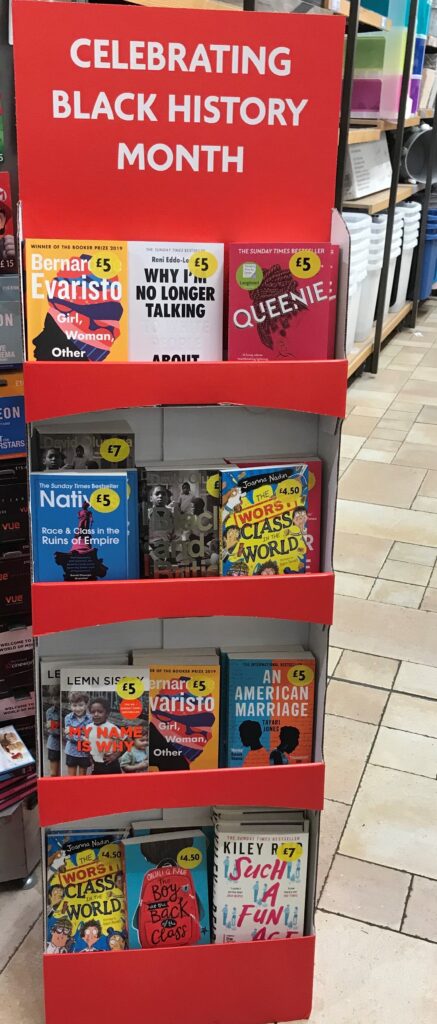
Image Appledene Photographics/RJC
‘Outbreak’- Demorats. October 15th 2020

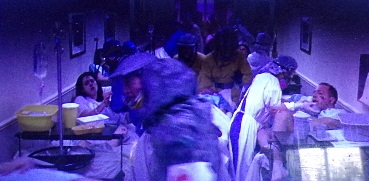
Patients dying in agony from the mystery virus which has actually been bio engineered as a weapon by their own government scientists.
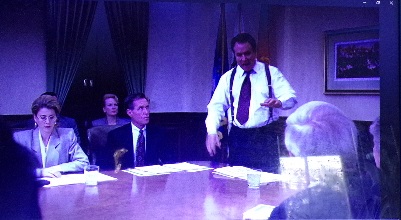
Demo’rats at work, sealing fate of dying town, planning a massive fire bomb for them. That is western style demoratcy – the spelling of the last word is intentional !
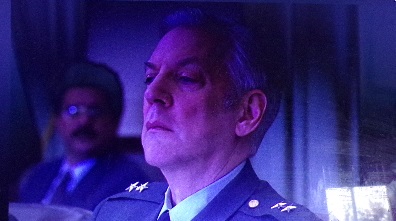
Donald Sutherland giving a fine perfrmance as the cold blooded General and State paid killer in ‘Outbreak’.
Movies can move, excite or simply distract. There was nothing like that about ‘Outbreak’ made back in the 1990s, which I watched last night on Netflix.
In my experience, the more stupid or mentally ill they are, then the more deluded and conceited people tend to be. That is because doubts or questions just never occur to them. Sadly these idiot or robotic qualities are what the ruling elite look for in teachers and police officers. There is a reason for that. There are no such excuses for the devious exploitative arrogant politically correct mainstream media,
‘Outbreak’ has alarming relevance to our world of Covid Lockdown. I can’t really get the measure of Donald Trump because he had no chance of doing what he wanted to do. What C Wright Mills called ‘The Power Elite ‘ back in the 1960s, has made sure of that, fronted by the patronising so called ‘Democrats -miss out the C, and you get Demorats. – made sure of that.
So when Trump set out to appeal to the U.S Blue collar, especially the ‘Rust Belt’, I suspect he thought attacking China and Latin America might help get them jobs back.
If Trump had been more intellectual he would never have salvaged his bankrupt companies or made a show of himself in the media. He has shown qualities that don’t fit the system. In so doing, he has revealed possible and real truths, without intention.
One of those is his insistence that Covid 19 is ‘the Chinese virus.’ All too conveniently, it struck in Wuhan at a meat market, and not many miles from a bio research lab. To conclude that it was China’s intention to make this virus, and kill millions in the west, is sophistry. It makes more sense to suspect that it was an Anglo U.S concoction released in Wuhan because China – exploited by the west for cheap goods, but refusing regime change or to release Hong Kong- is a global threat to Anglo U.S elite imperialism.
Our elite were too eager to back worldwide lockdown. They knew too much about it. Maybe they just want to destroy millions of the masses economically. Maybe they know how the virus is supposed to mutate and who it was supposed to kill. The elite know far more about genetic engineering than we might imagine.
‘Outbreak’ is the story of a genetically engineered virus, for U.S weapons purposes. They have the antidote, but when a captured exotic monkey brings the virus to the U.S, the dark agents of the U.S Deep State frighten the President into bombing to extinction a small town where the virus has spread like wildfire, mutating – so making the antidote useless. Donald Sutherland is magnificent as the power mad arrogant General who sneers, ‘We are all at war.’
He had bombed an infected African village in the 1960s, when the US Deep State first tested the virus. He wants to do it again. Check out the movie. As one of my favourite old teachers, John Skinner, used to say, back in the 1960s ; ‘ Robert, the truth is stranger than fiction.’ R.J Cook
Outbreak Donald Sutherland – Video Results
- 2:02Outbreak movie – USA Pandemic – Coronavirus in America – Dustin Hoffman, Rene Russo, Morgan Freeman, Donald Sutherlanddailymotion.com
- 2:00Outbreak Trailer 1994youtube.com
- 2:07:00Outbreakputlockers.fm
- 2:08:12Outbreak
October 14th 2020
More nonsense that a virus can be suppressed.
This is either ‘the great replacement rich man’s agenda’ or corona is a very serious bio weapon and the elite expect a yet more very serious outcome for BAME and the elderly.
Some take the view it was engineered in the west to target China, with whom the U.S UK partnership are at war, backed by Europe.
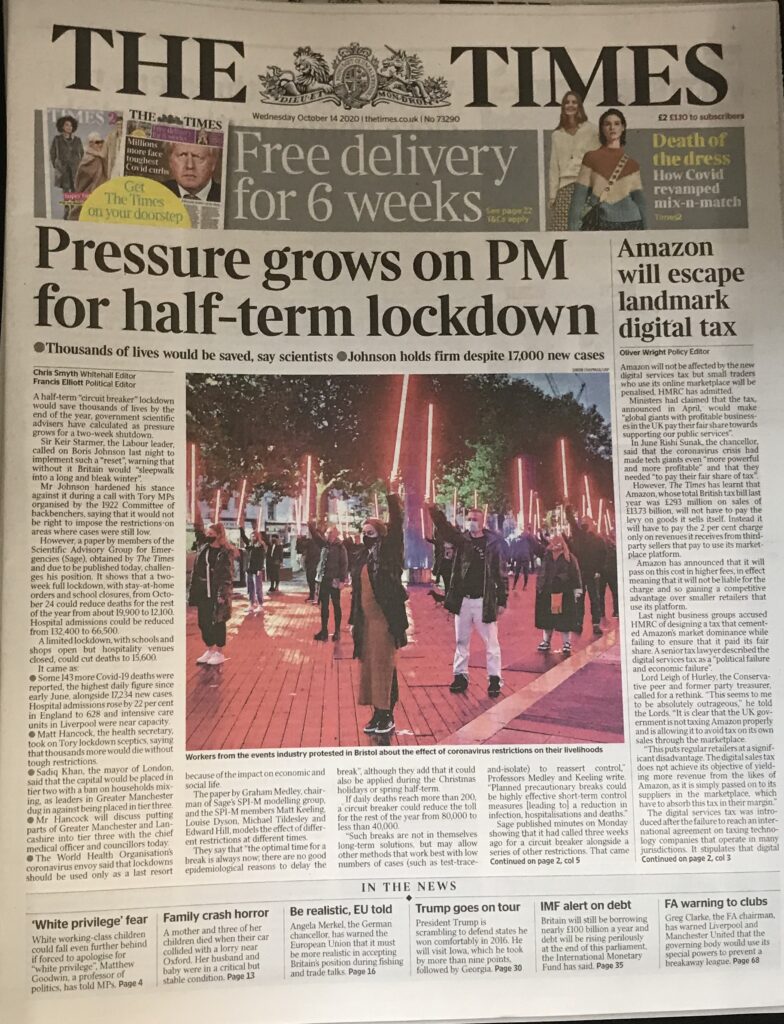
This is either ‘the great replacement rich man’s agenda’ or corona is a very serious bio weapon and the elite expect a very serious outcome for BAME and the elderly.
Some take the view it was engineered in the west to target China, with whom the U.S UK partnership are at war, backed by Europe.

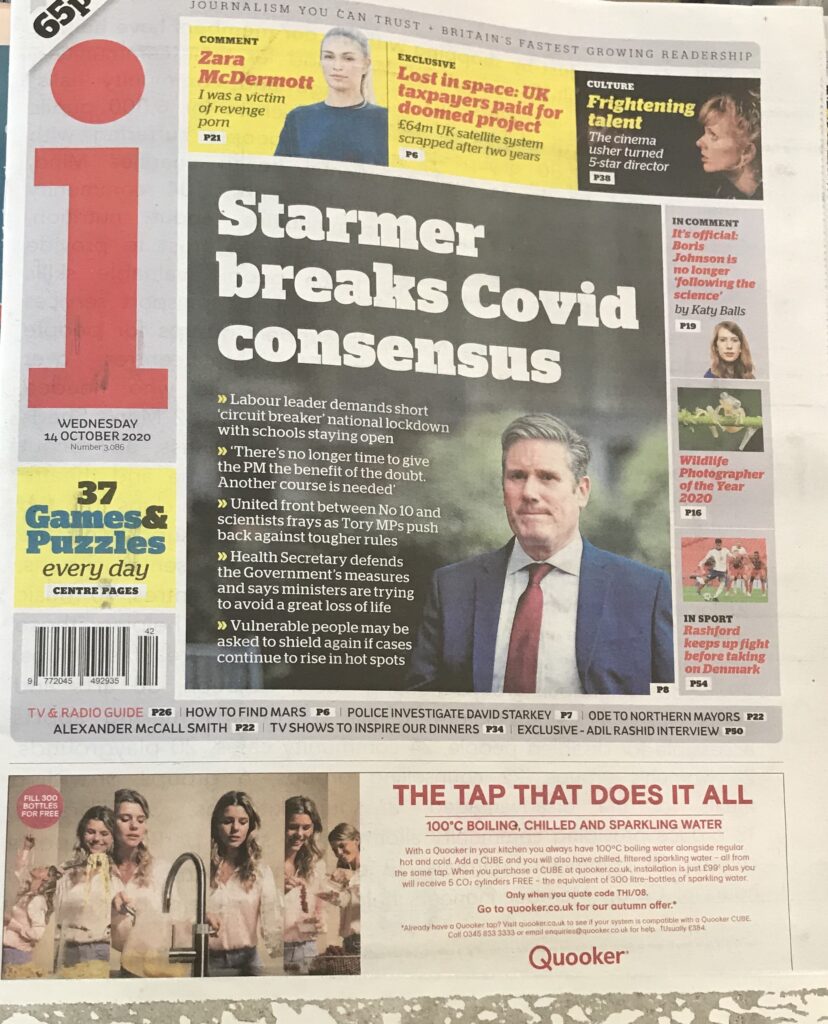
Liberal comfortable lefties love Starmer because he led the CPS – Corrupt Prosecution Service – which, in cahoots wih corrupt police – conspired to convict men of crimes they hadn’t committed, especially offences against lying women.
It is hard to imagine Britain’s police state getting any more oppressive, but Starmer is a big influence even in opposition. He appears to intimidate weak Johnson.
The elite encourage BLM as part of their trusted ‘divide and rule’ policy which they now call the rainbow diversity/multi culture. There is only one culture that matters and defines the rest, it is the elite.
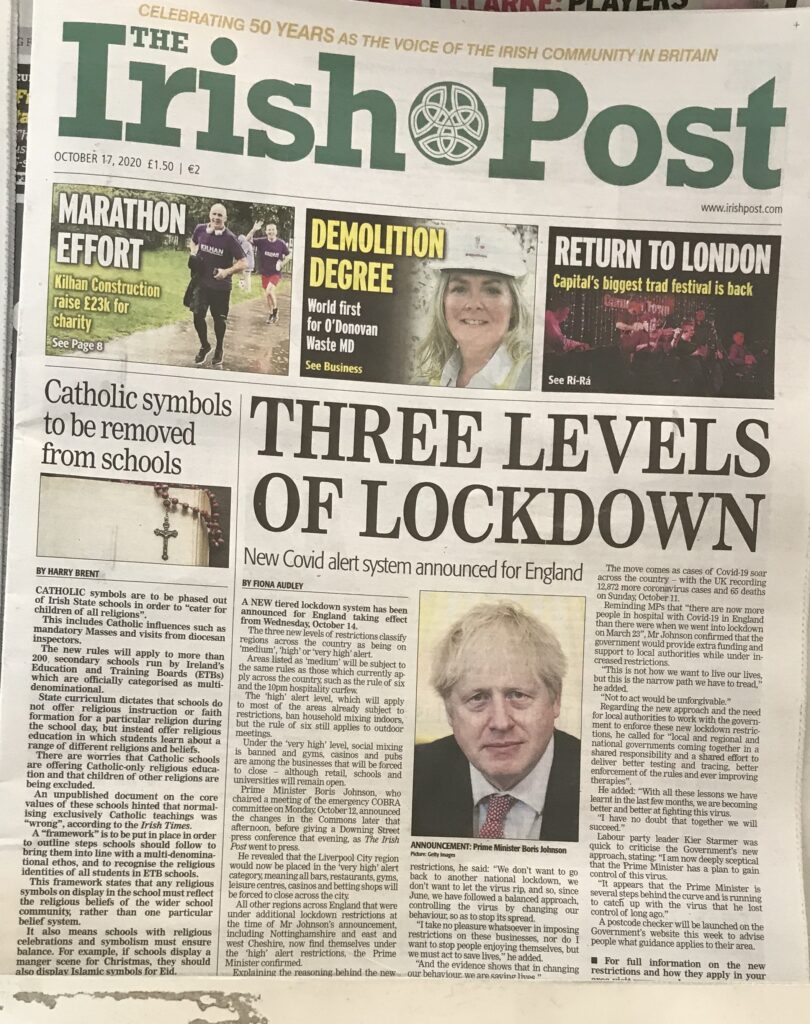
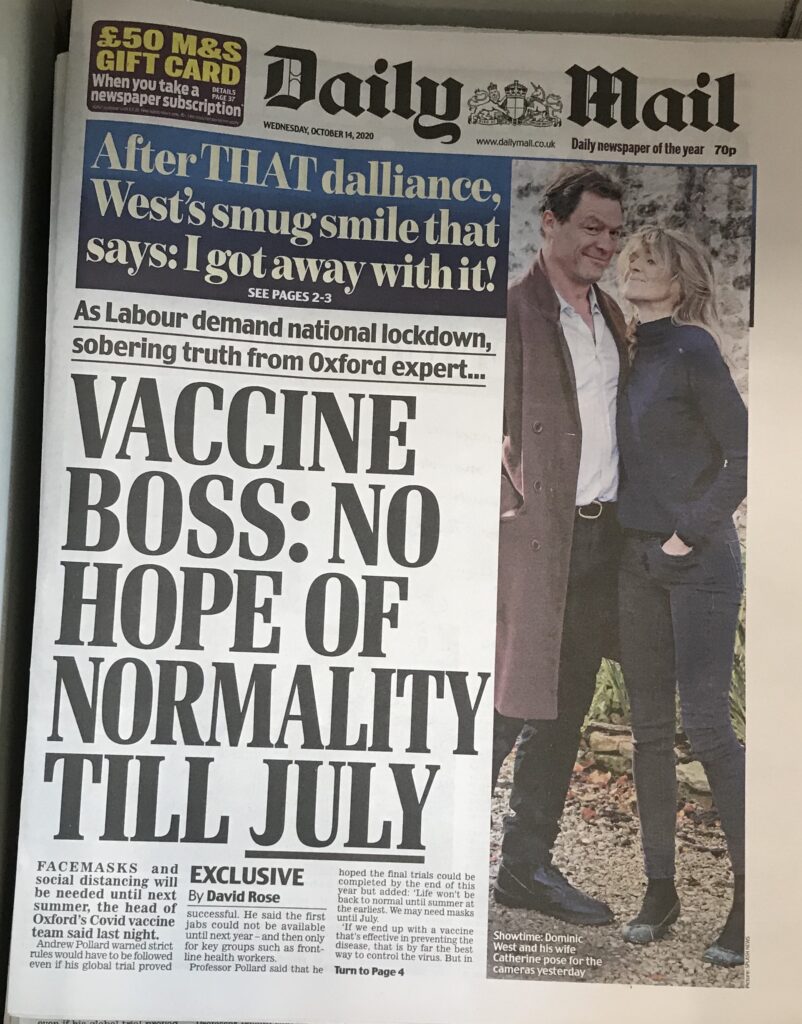
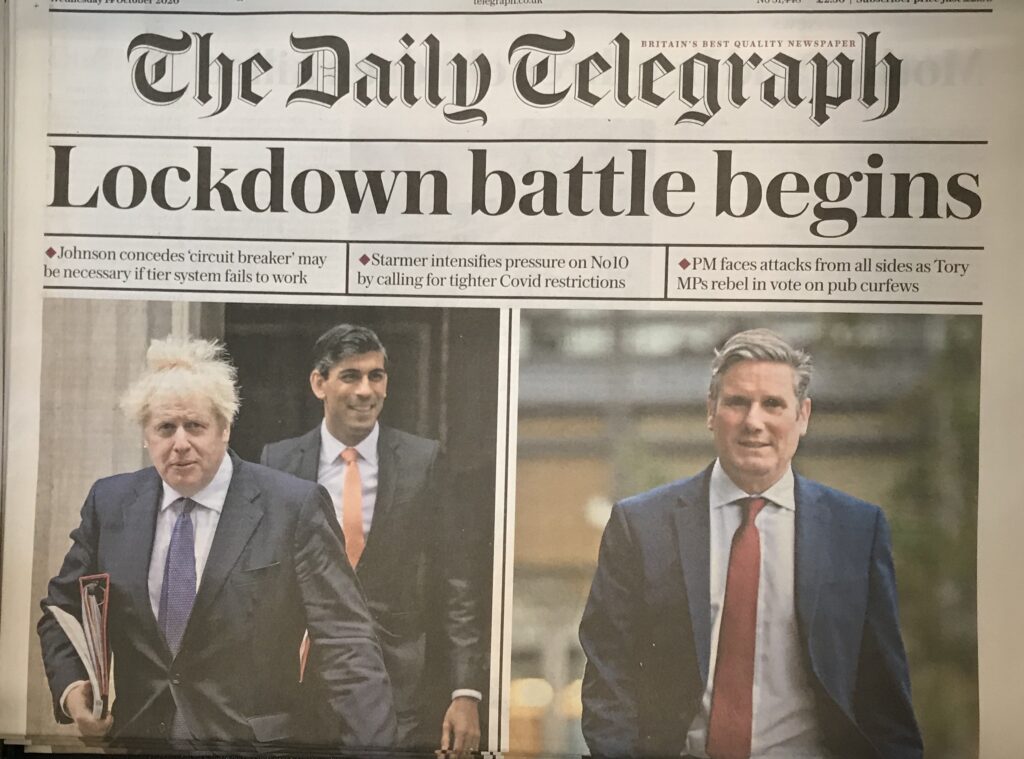
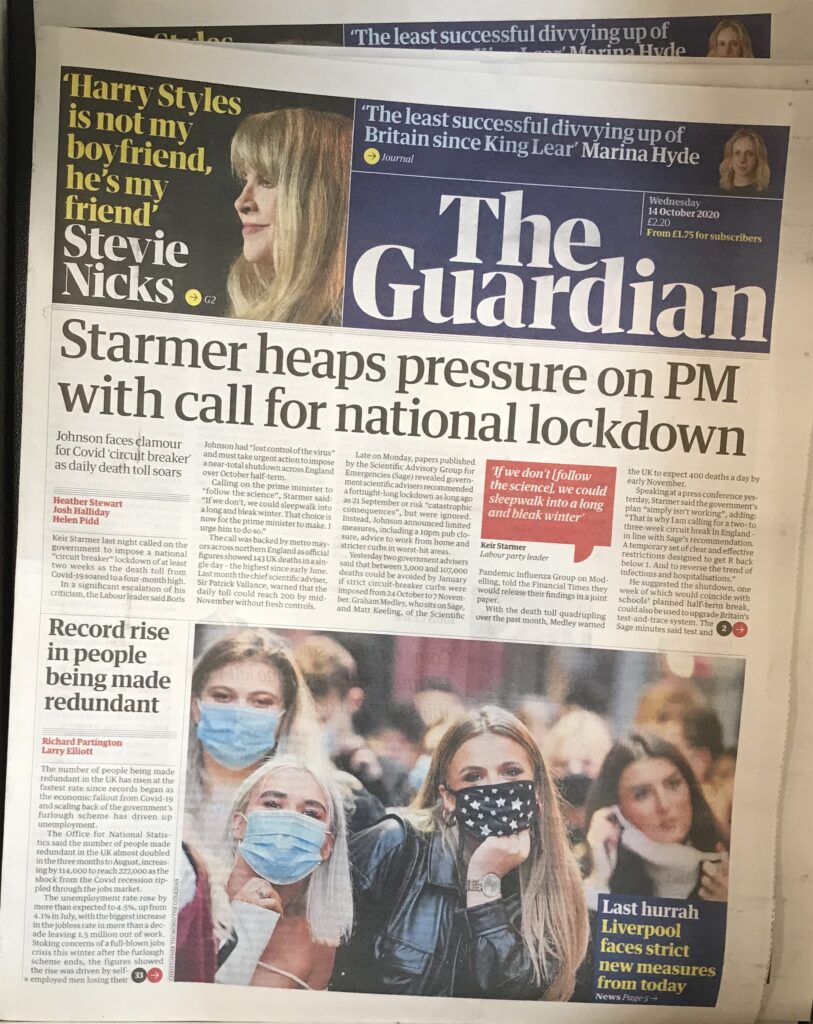
October 13th 2020
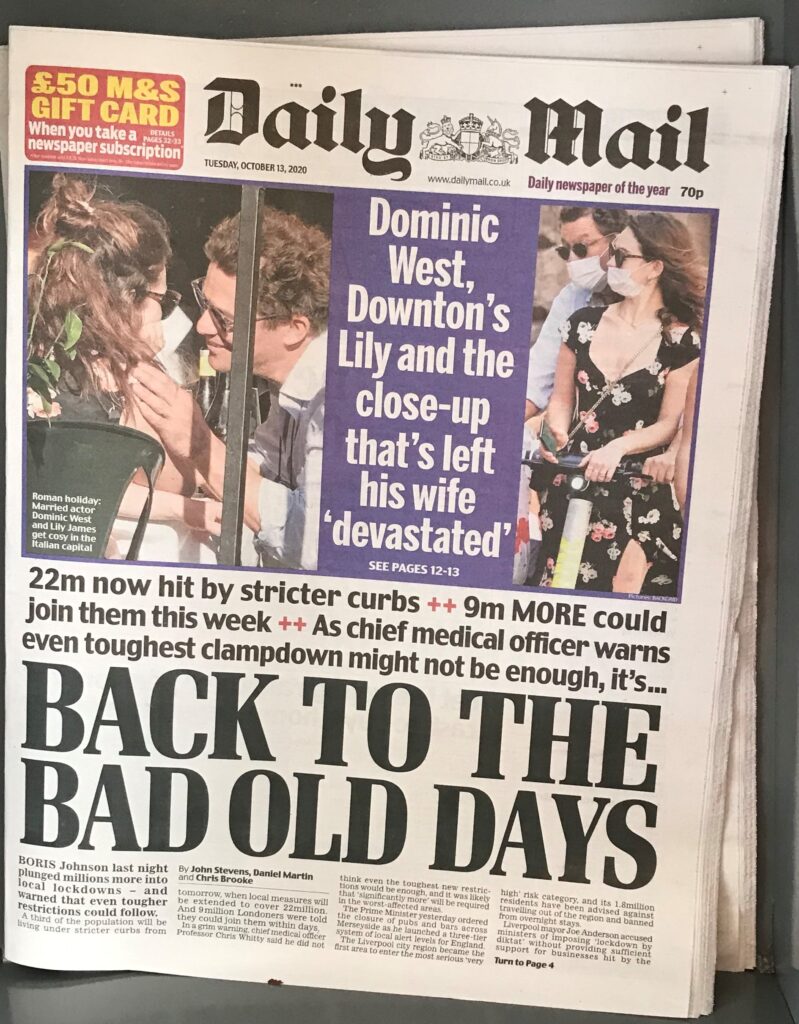
So lift the lockdown, isolate the vulnerable if they want it and let us all take our chances. Otherwise there will be even worse outcomes than we have now. Vaccine has not stopped flu.
Saying we can’t be ‘normal’ until we have a vaccine is a con because this is a an elite Europe wide conspiracy to subjugate the masses and enrich them. The same is happening in the U.S. It is also to protefct an appalling health service across Europe, U.K and U.S – which cannot cope with mass immigration. The same is happening in the U.S.A. RJ Cook
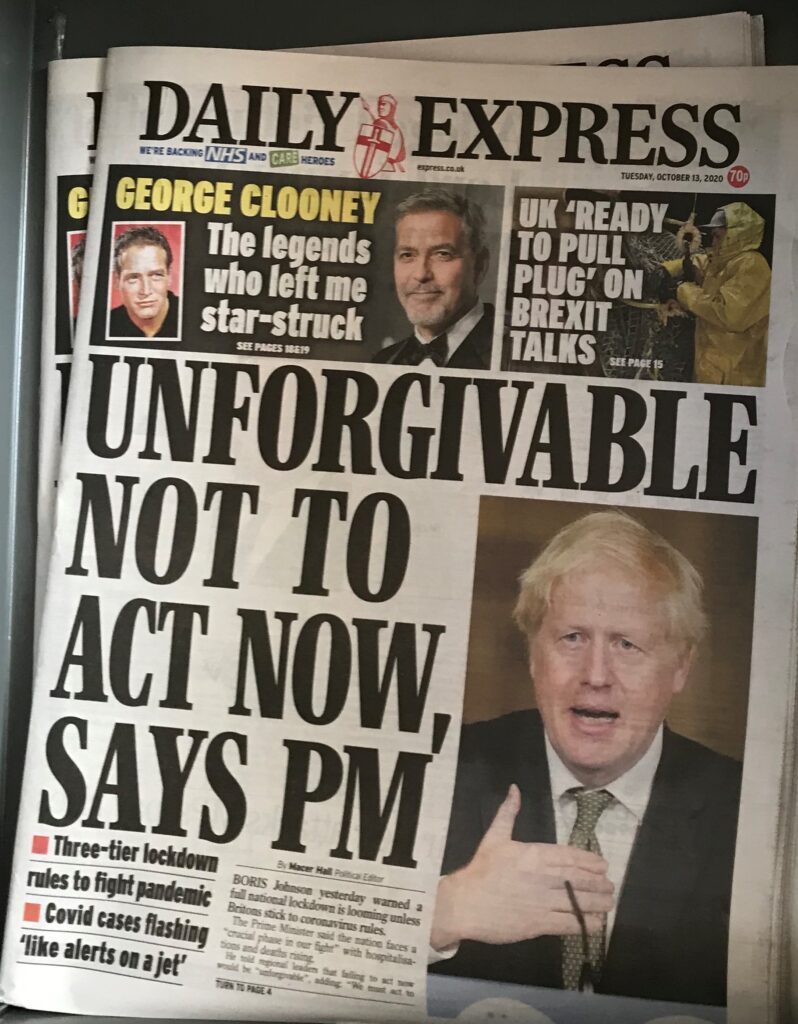

Covid, Acceptable Prejudice , Feminism & Diversity – Comment to follow. October 12th 2020
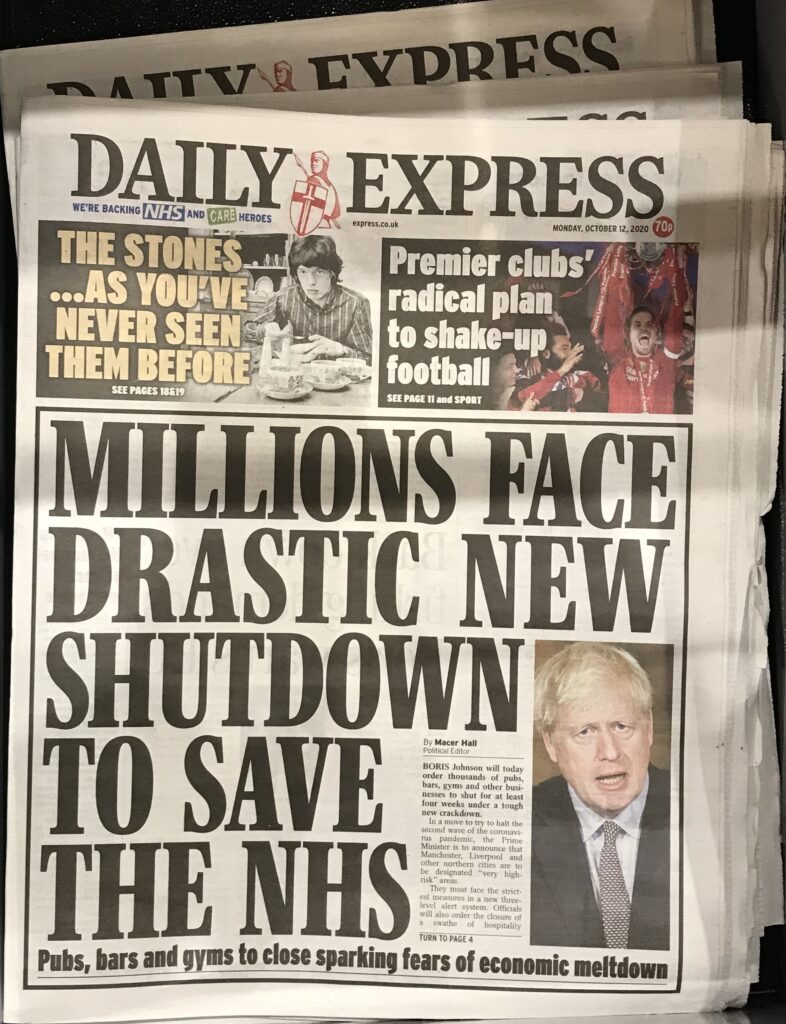
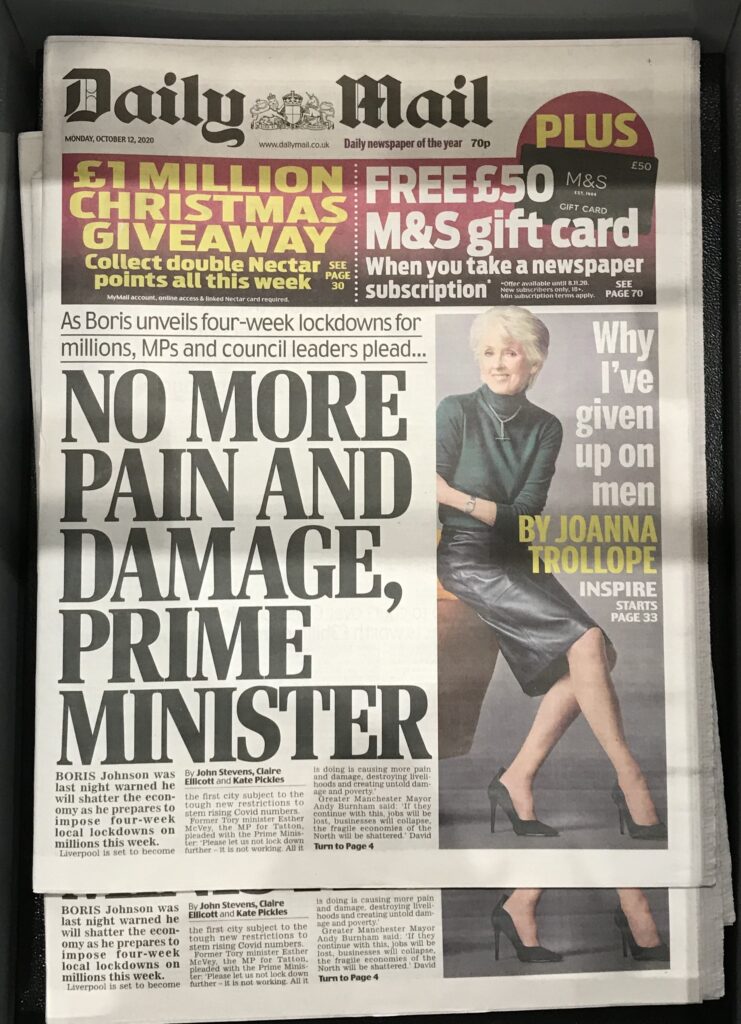

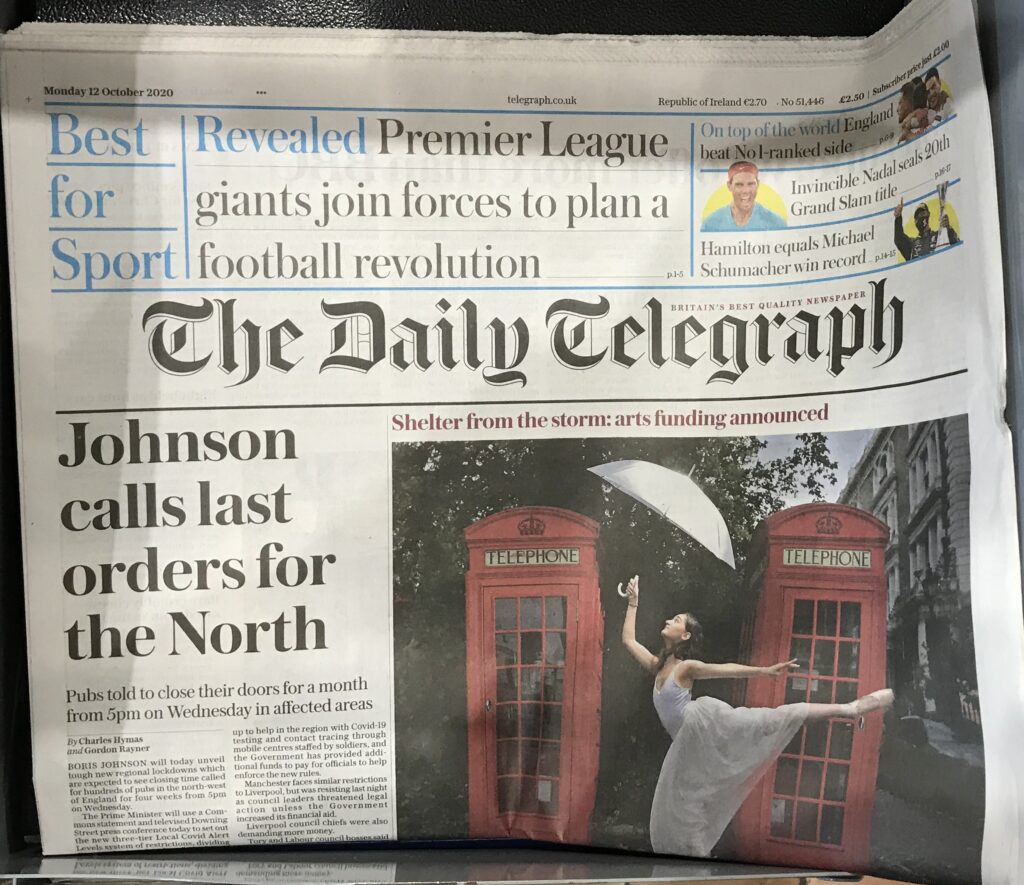
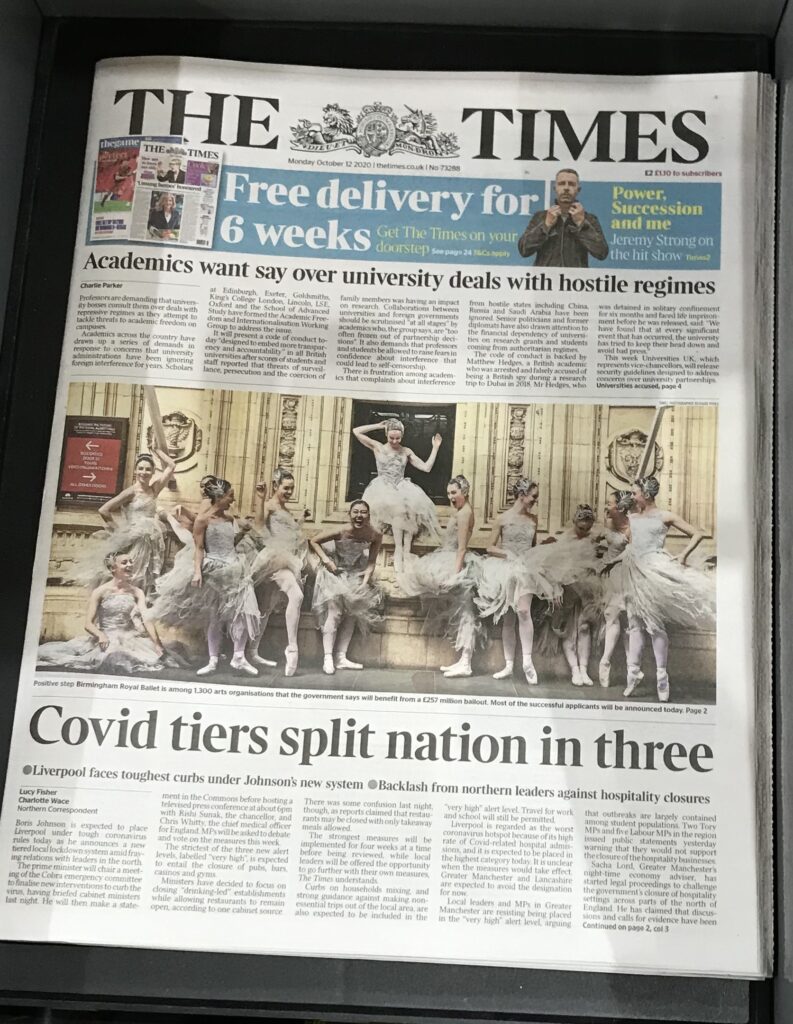
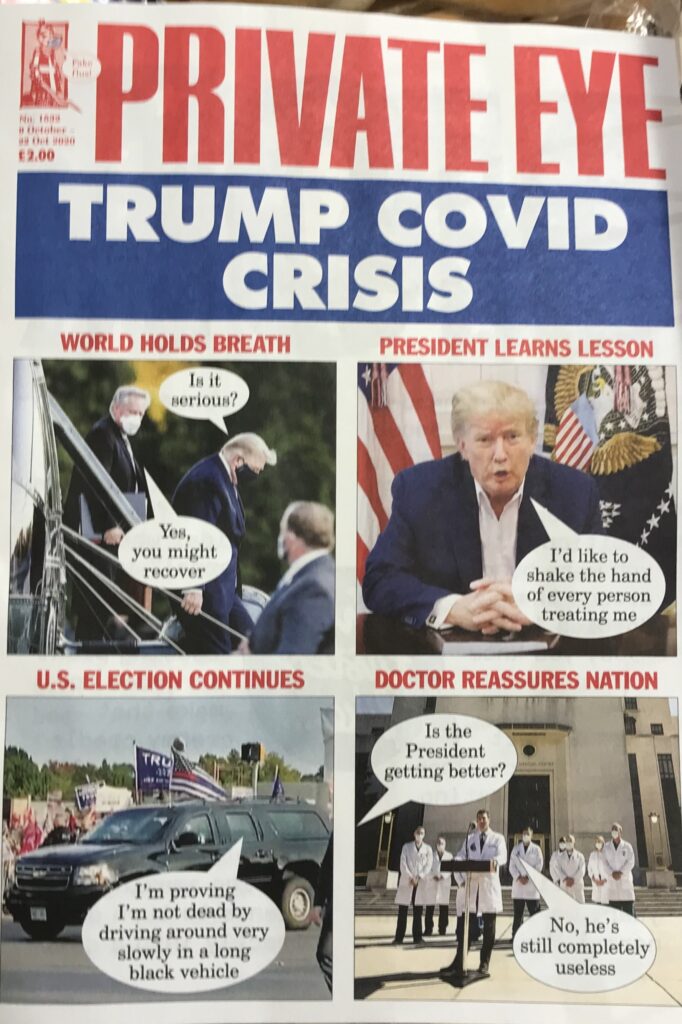
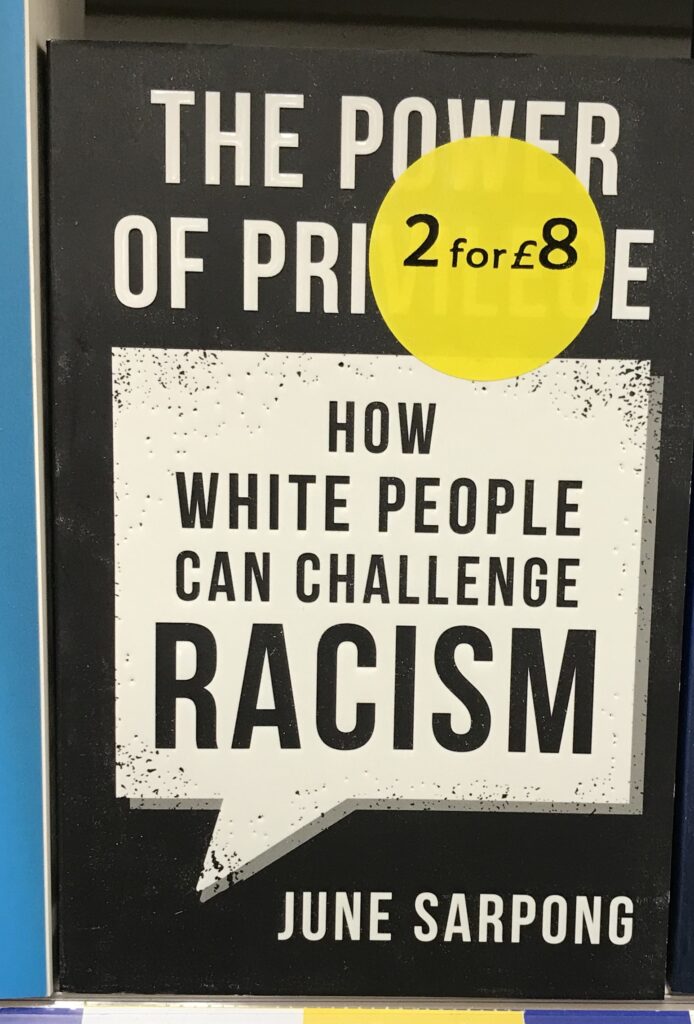
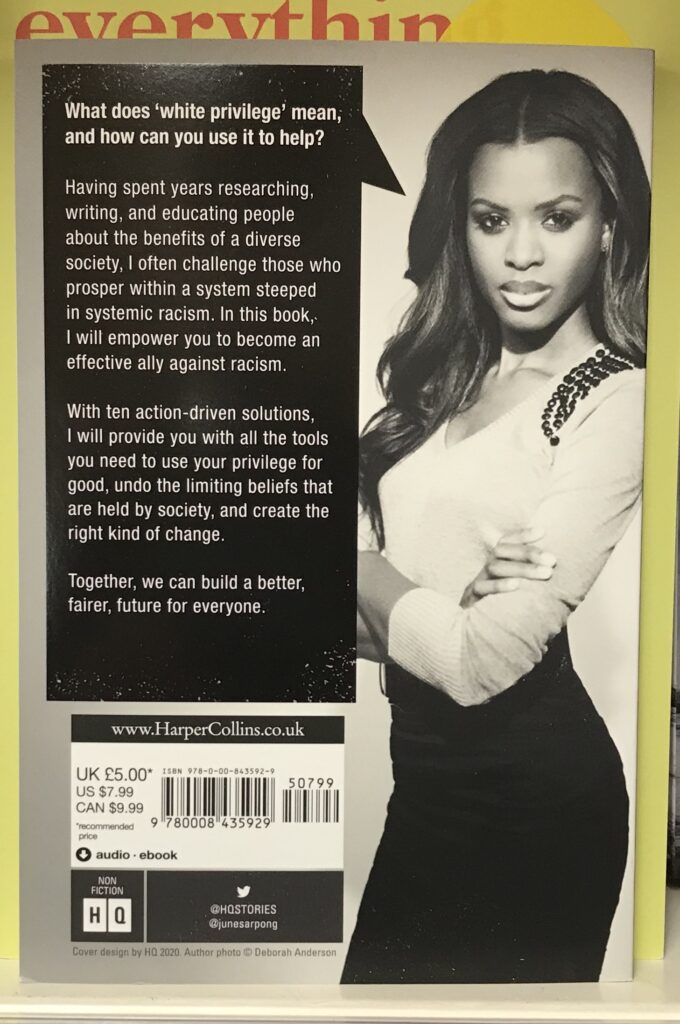
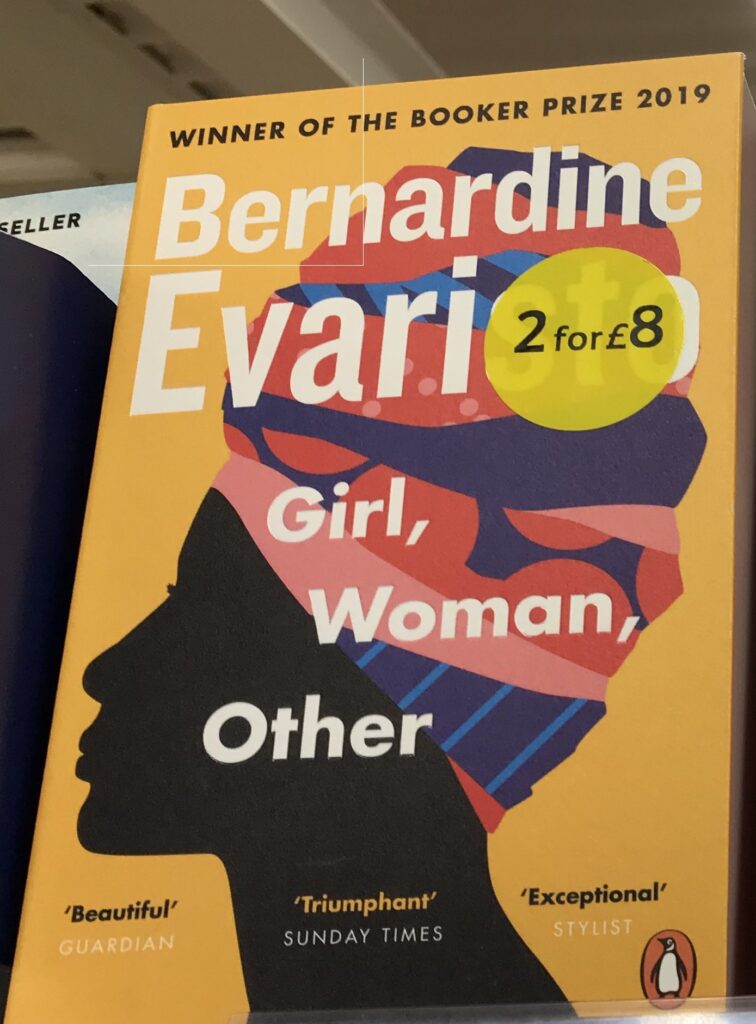
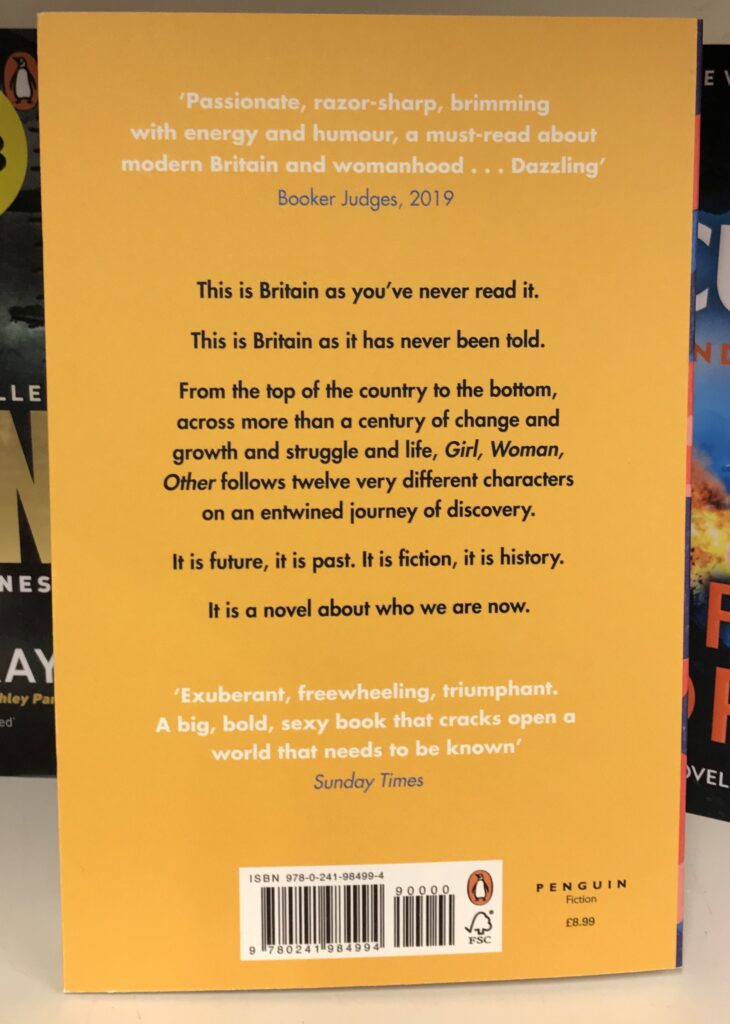

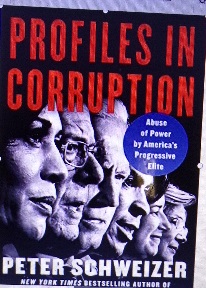



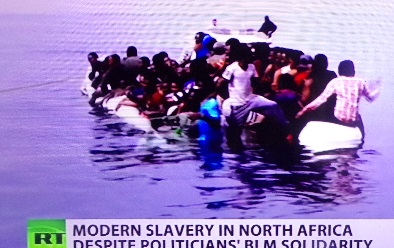

Comment Multi culture and diversity is a con. Diversity is a diversion so that the global elite can do as they like. Religion is not truth and undermines mass logic, making divide and rule so much easier. Women are supporters of a new fascism in feminism.
They cannot be treasoned with. The distraction of saying all we whites are guilty of racism- if we don’t go around interrogating and accusing other whites of racism – won’t solve mass unemployment, poverty and homeless problems. Class is the ultimate issue. Muslims are not multi culturalists.
Women like Avari and Sarpong are stupid, racist, arrogant and naive if they believe we can create a better world by demonising all non elite white men, calling them privileged.
These women would not be writing these dreadful racist divisive arrogant patrtonising books if they were not privileged. But the new mantra tells us that women and blacks are the only ones oppressed. Their work is part of the oppression. R.J Cook
October 10th 2020
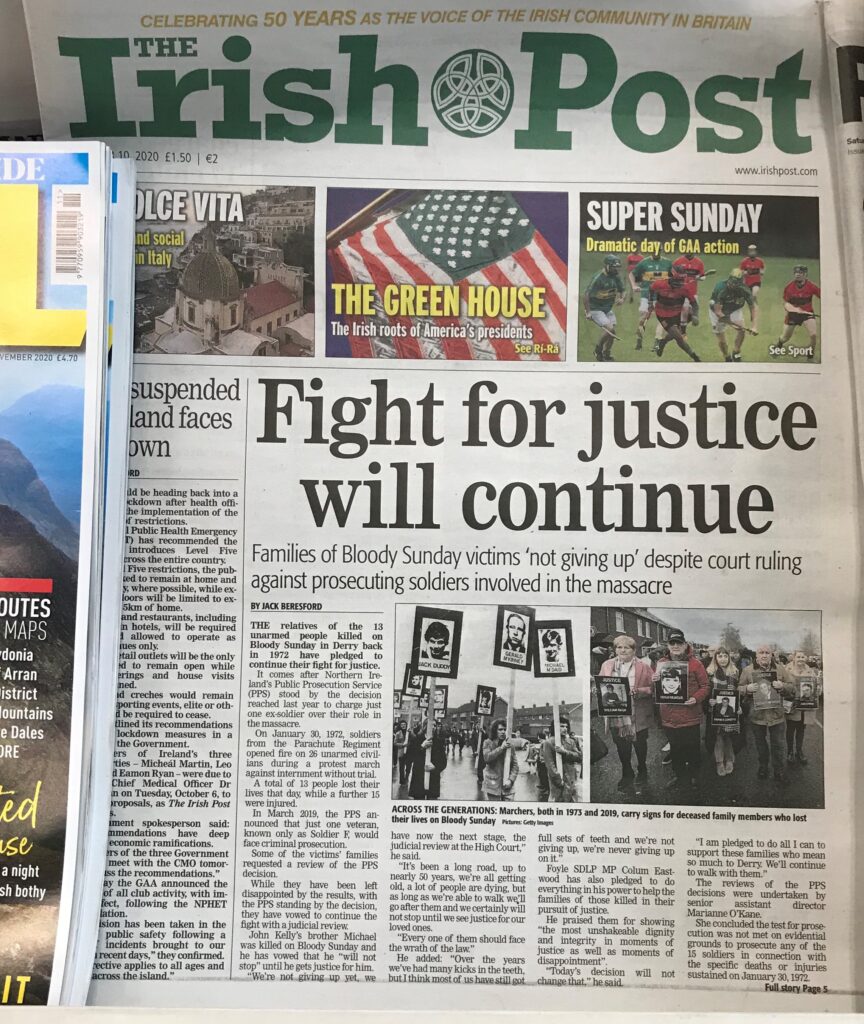

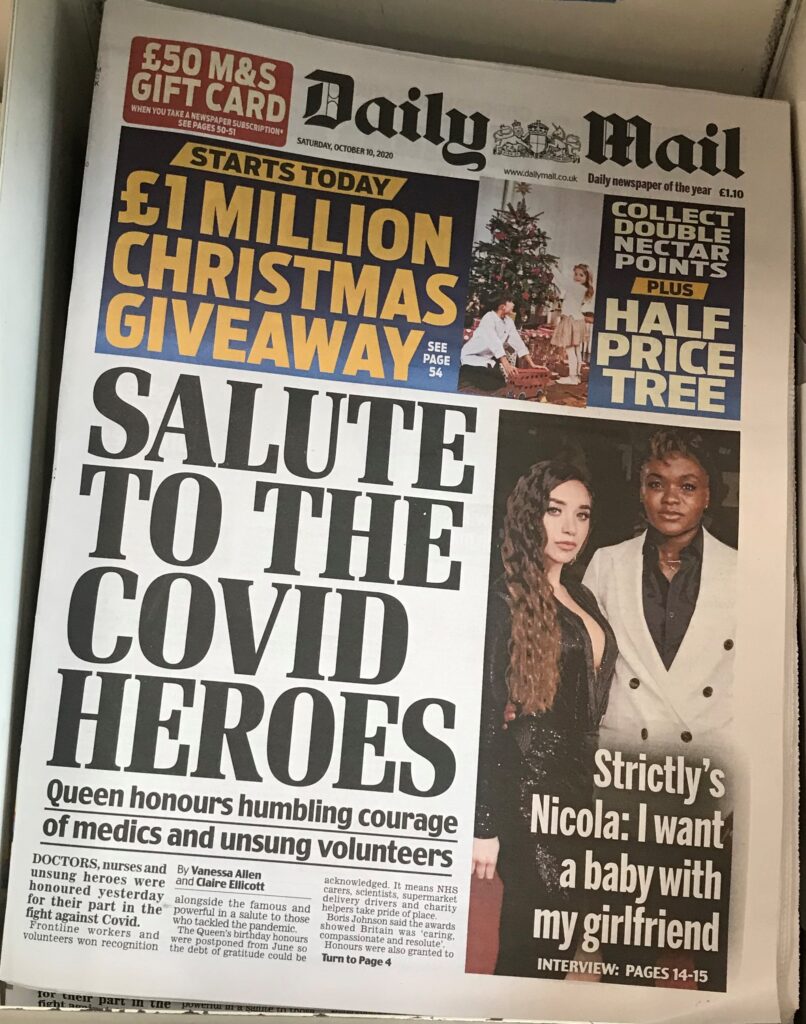
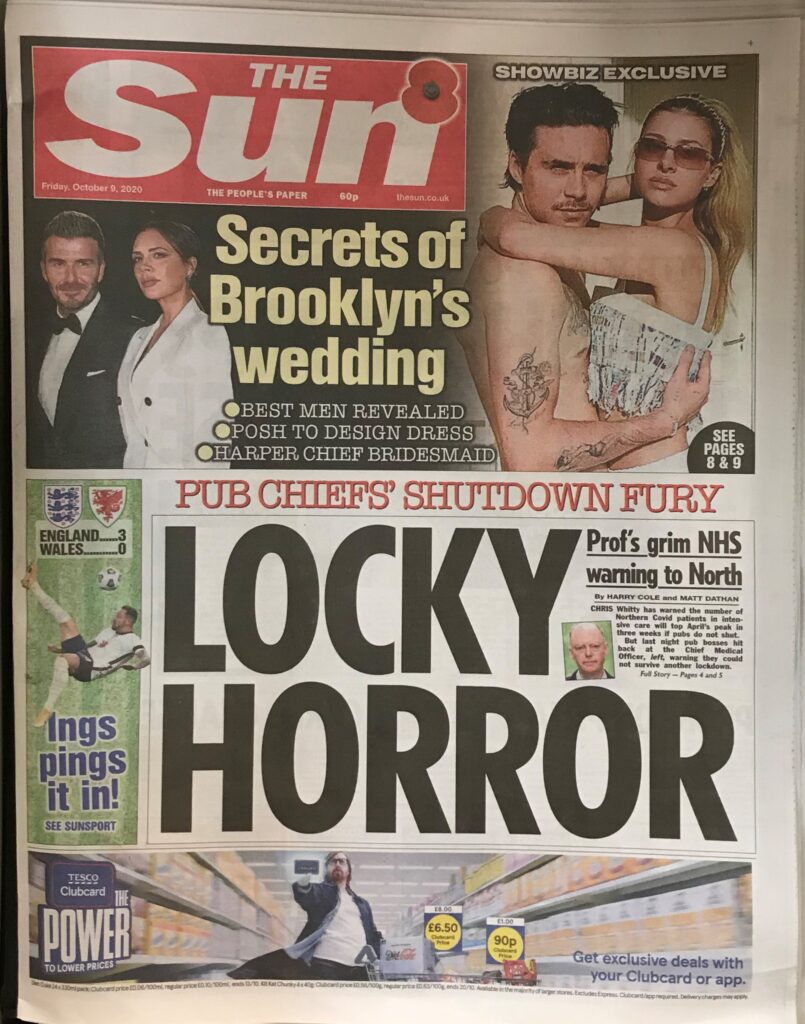
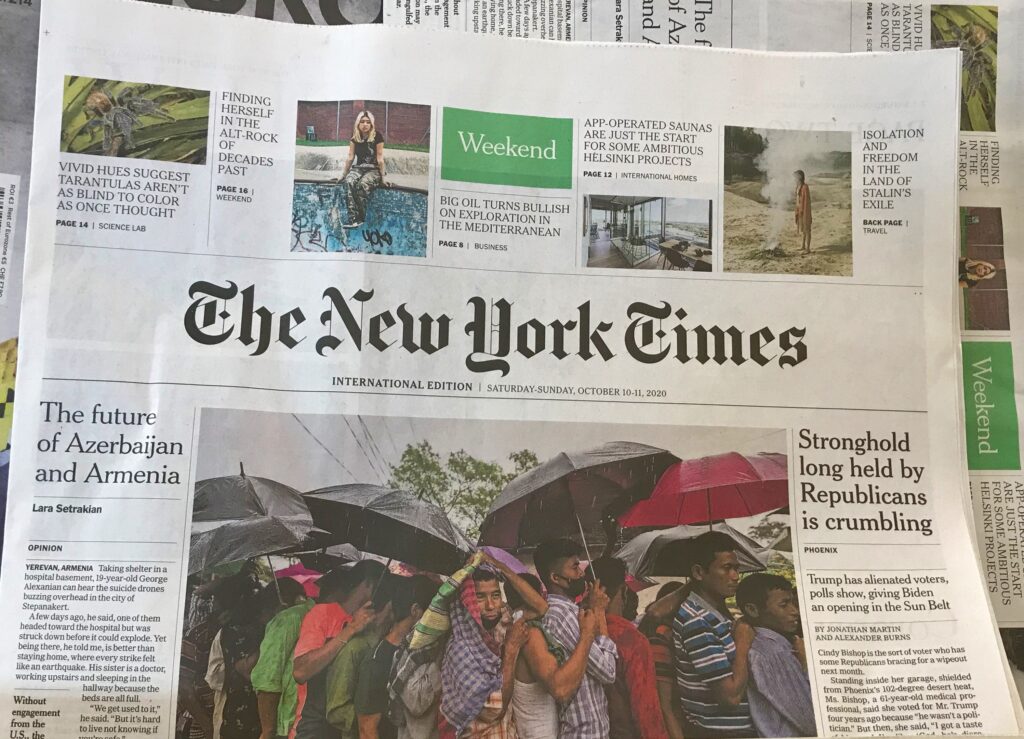

Some interesting headlines and front pages . Inevitably the New York Times is relishing cracks in Trump support. The election will be rigged as Trump & Co are being labelled as Far Right by liberal rich folk leading blacks and women up the garden path with scapegoats and false hopes. If they get rid of Trump they will miss the one biggest and best scapegoat.
I was ridiculed , as a geography teacher in a nasty Tory Grange school in Aylesbury, for saying climate change was a big issue back in the 1980s. I was told my promotion was being withdrawn because the really right wing Education boss Gillian Misscampbell heard my BBC interview broadcast and song about the dangers of nuclear power after Chernobyl in 1986 – her party were desperate to build more Advanced Gas Cooled Reactors to get rid of troublesome coal miners.
The Rail magazine chooses to blame climate change for its collapsing infrastructure post money grabbing privatisation. The Irish Post is still banging the drum for revenge over the seventies ‘Bloody Sunday’ killings. One of the paras on duty that day, told me that he and others had the job of picking up the bodies and some had been dead for days because the IRA had already killed them for not following their bullying line.
What hypocrisy that these then young soldiers put between a rock and a hard place, face so called justice yet there is no support for Julian Assange exposing cold bloodied killers.
Finally, I must comment on the continuing hectoring of the left wing press winding up the gullible moronic British masses over the need for worse covid lockdown. Their alleged surveys are about as reliable as the rest of thier bullshit about the virus spread and how we can all get it. They have their sacred cows and hidden agenda, medical neglect by our so called boasting cowardly incompetent NHS, and its worth it for them to kill us via bankruptcy, anxiety and homelessness. R.J Cook
Today’s Covid Front Pages October 9th 2020
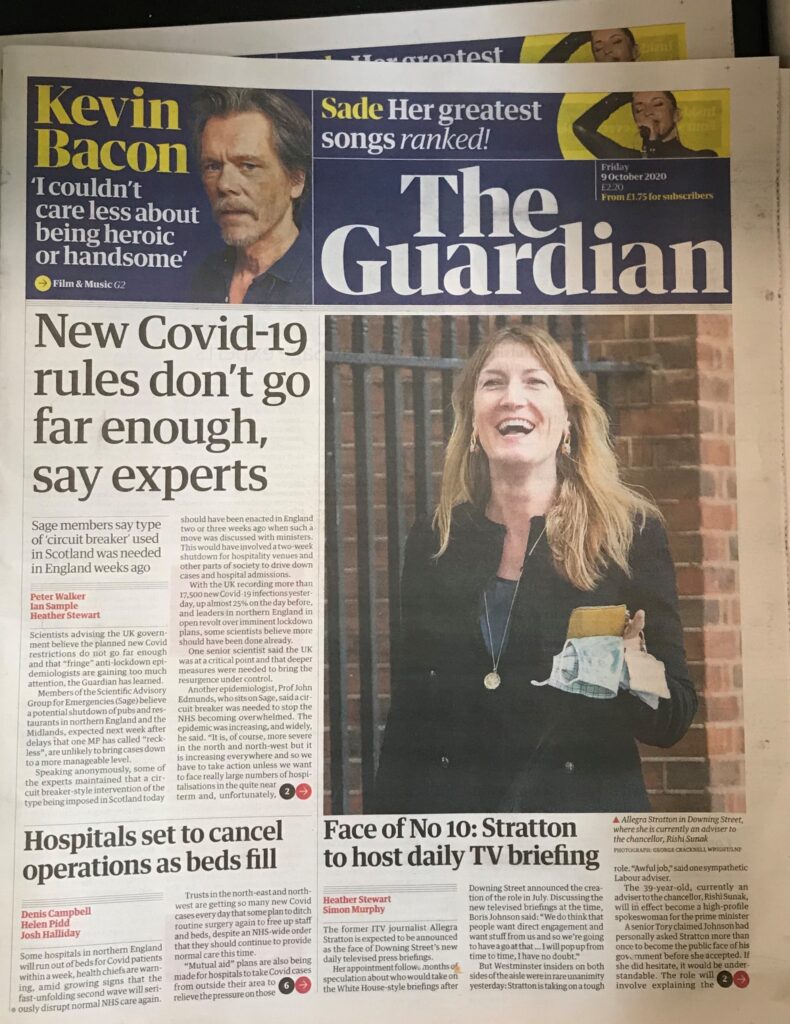
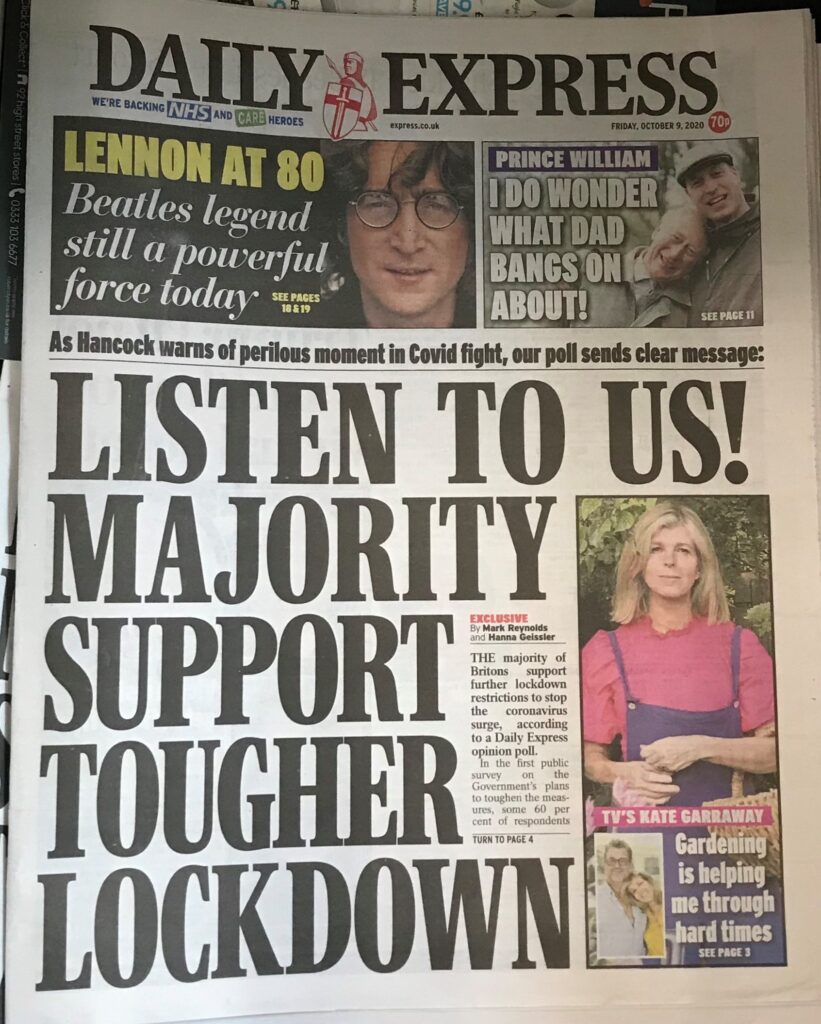


There is no evidence lockdown does anything to control the virus, but it does block the way to herd immunity. Those who want tougher rules, as expressd by the Express and Guardian, are either liberals or selfish cowards – also quite a few morons among them because they don’t see the greater danger of lockdown or consider the hidden agenda.
Not surprisingly the relatively impoverished north, with its high proportion of BAME and elderly people appear hardest hit – if you believe these guesswork and even deliberately dishonest figures. Government and press are very selctive on the subject of experts – more of whom consider lockdown a bad and dangerous resposne, though it does shut down anti elite protests. Charles Close
Liar Education October 8th 2020

Sad as this story is, it raises the question as to whether the right people are being sent off to university. As a former Oxford University Board A Level examiner, teacher and lecturer, I formed the conclusion that by the 1980s higher educstion and the way into it was something of a production line. Thatcher converted Polytechnics into universities, which then became ‘unis.’
The scheme was based on lies about raising standards and opportunities, whereas in fact it was hiding unemployment and shutting the doorway to excellence by talented working class kids. Anyone who wanted to stand out from the crowd needed the parental support and money to go on for a masters and PHd
Over the years, these ‘unis’ like the one in Portsmouth, have taken over huge areas of city centres. Accommodation costs have gone through the roof, especially due to so many wealthy foreign students. Luxury apartments have been built in Portmouth for these young people while the less fortunate live on the street.

Image Appledene Photographics/RJC
Very intelligent students, unless they go to elite schools with gilded route to Oxbridge, are being ripped off by a dumbed down system. Degrees are a devalued currency, teaching in the humaities biased dogma and brainwashing. Student sub culture resembles a moronic youth club.
Drugs were a problem in my days at the University of East Anglia. For the start of my first term, my widowed mother walked with me and my luggage, to the bus stop. On the way, she looked up at me, face full of anxiety, saying : ‘Don’t go getting mixeed up with those drugs.’ I had no idea what she was talking about. My shy world , up until then, had been messing about with electronics, radios, my violin, athletics club and model making.
I have to admit that even in the 1970s, drink and drugs were issues for some. My student contemporaries were spoiled upper middle class. They were rebelling aginst their parents. By graduation day, all the long hair and beards had gone, the girls turned up in twin sets all looking up sweetly at their ever so nice parents who turned up in expensive clothes and big cars.
These students transitioned effortlessly into the selfish young fogies who went on up the career ladder to create the rather nasty excuse for a society that we have today. They succeeded because of their class background, knew how to mix work and play, lesrned from their parents how to use the system. They bore the children who are today’s politicans and senior civil servants, comfortable, well paid, multi culturalists and anti protests unless it is by BLM.
They benefitted from an education that youngsters are deprived of today. So these two young girls went off to ‘uni’ -overdosing on ketermine -but one wonders at the reason for encourging these young women into a world, where they must prove themselves better thn men, where they were obviously not able to cope .
Had they been young men, then they would have been villified by the media as wasters, denying good students a place, who got what they deserved. That is because equslity is s lie in a LIAR Education system.
R,J Cook
Front Pages October 1st 2020
When comfort reading won’t cut it: books to restore hope in humanity Posted October 4th 2020
From Man’s Search for Meaning to a celebration of life in the face of death, Cathy Rentzenbrinkpicks the books that confirm her faith in people
‘In the struggle lies the joy’ … Maya Angelou. Photograph: The New York Post/Getty Images
The most hopeful thing about books is that they exist. Is it not a miracle to look at a shelf and see the vast range of human experience laid out before us? How remarkable that someone picked up a quill or a typewriter or a laptop and set about distilling their thoughts and ideas into such a perfect delivery mechanism. Every first page functions as the wardrobe door that will open up and show me a new Narnia.
There are periods when I’m not up to the journey, when hope is too much to ask for and I am only fit for rereading Georgette Heyer in the bath or cowering under the covers with PG Wodehouse or Nancy Mitford on audio. But the comfort reading does comfort, and then I am ready to re-engage, to explore, to look for something new.
Humankind by Rutger Bregman really did make me feel hopeful about humanity and reinforce my long-held resolution – under threat from the effects of consuming too much social media and news – that we should try to give our fellow humans the benefit of the doubt, and that it is better to be occasionally screwed over than move through the world full of suspicion and mistrust. Black and British by David Olusoga, an erudite exploration of racism and how it continues to mutate, is hopeful because it is exhilarating to read a fine mind at work, and because, as Olusoga says in his conclusion: “Knowing this history better, understanding the forces it has unleashed, and seeing oneself as part of a longer story, is one of the ways in which we can keep trying to move forward.”
I like reading about people who have witnessed the worst of humanity and found a way through. Man’s Search for Meaning by Viktor Frankl has kept me company through many a long night, and The Choice by Edith Eger, who survived Auschwitz and became a therapist, is generous and wise. Maya Angelou lights the way with grace. I love this from I Know Why the Caged Bird Sings: “She comprehended the perversity of life, that in the struggle lies the joy.”

Sign up for Bookmarks: discover new books in our weekly email
Read more
Being close to death can help us to notice what really matters. With the End in Mind by Dr Kathryn Mannix takes us into the world of palliative care and shows there is little to fear and much to prepare for when it comes to death: “There are only two days with fewer than twenty-four hours in each lifetime, sitting like bookends astride our lives: One is celebrated every year yet it is the other that makes us see living as precious.”
This is what I hold on to. What can I be doing now to make my deathbed reckoning more satisfying? How do we maintain a faith in humanity? Books help. The feel and the smell. That they exist, that people write them and read them. That always offers me a glimmer of hope on a dark day.
• Dear Reader: The Comfort and Joy of Books by Cathy Rentzenbrink is published by Picador. To order a copy go to guardianbookshop.com. Free UK p&p over £15.
Comment Society in the so called free world, has never been so obviously top down. We have U.K PM Boris Johnson warning us :
“It may be “bumpy through to Christmas” and beyond as the UK deals with coronavirus.
Speaking to the BBC’s Andrew Marr, the PM said there was “hope” in beating Covid, but called on the public to “act fearlessly but with common sense”.
He said the government was taking a “balanced” approach between saving lives and protecting the economy!
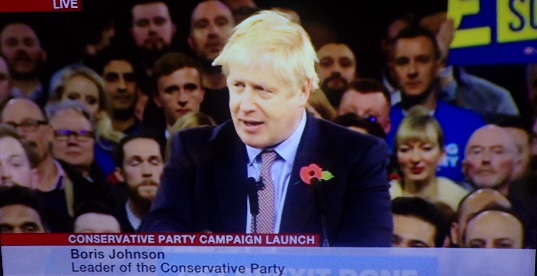
The government is doing nothing except publicly pander to BAME, the obese, and old people who are most at risk due to lifestyle and age related pre existing illness. They are destroying jobs purveying the lie that we can all get covid and die. Johnson talks in cliches. Many are impressed that he is bi lingual. All that means that this overweight over 50 something person has had a privileged up bringing and can talk bullsh-t in two languages.
So, here we have a book to restore our faith in human nature. Is this book out to rival the bible and its offshoot and derivative Koran ? Neither of those books inspire my faith in human nature. They are full of violence, sexual hypocrisy , politics and dogma to gain obediece through fear.
This is more typical Guardian pseudo libera patronising upper middle class crap designed as a kind of opium or anti psychotic. Back in my philosophy student days we debated whether it was best to have a fool satisfied, or Socrates dissatisfied. In modern society it is clearly the elite and their governments’ intention for the system to pander to the former. R.J Cook
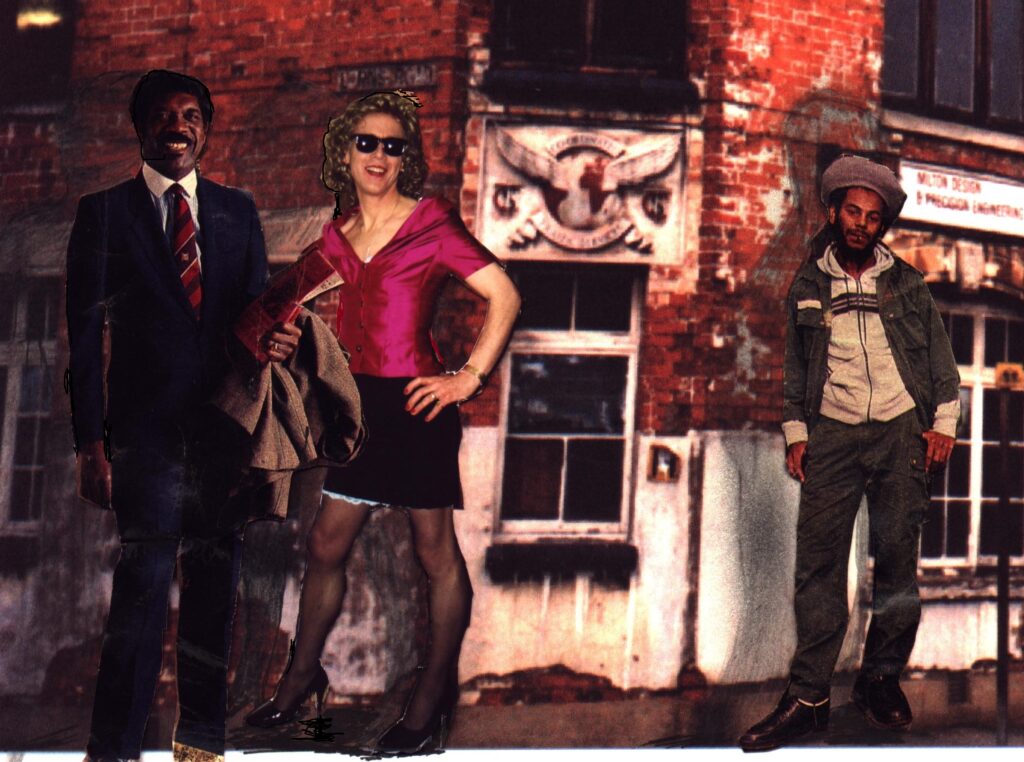
Image Appledene Archives
Selection and comments by Charles Close
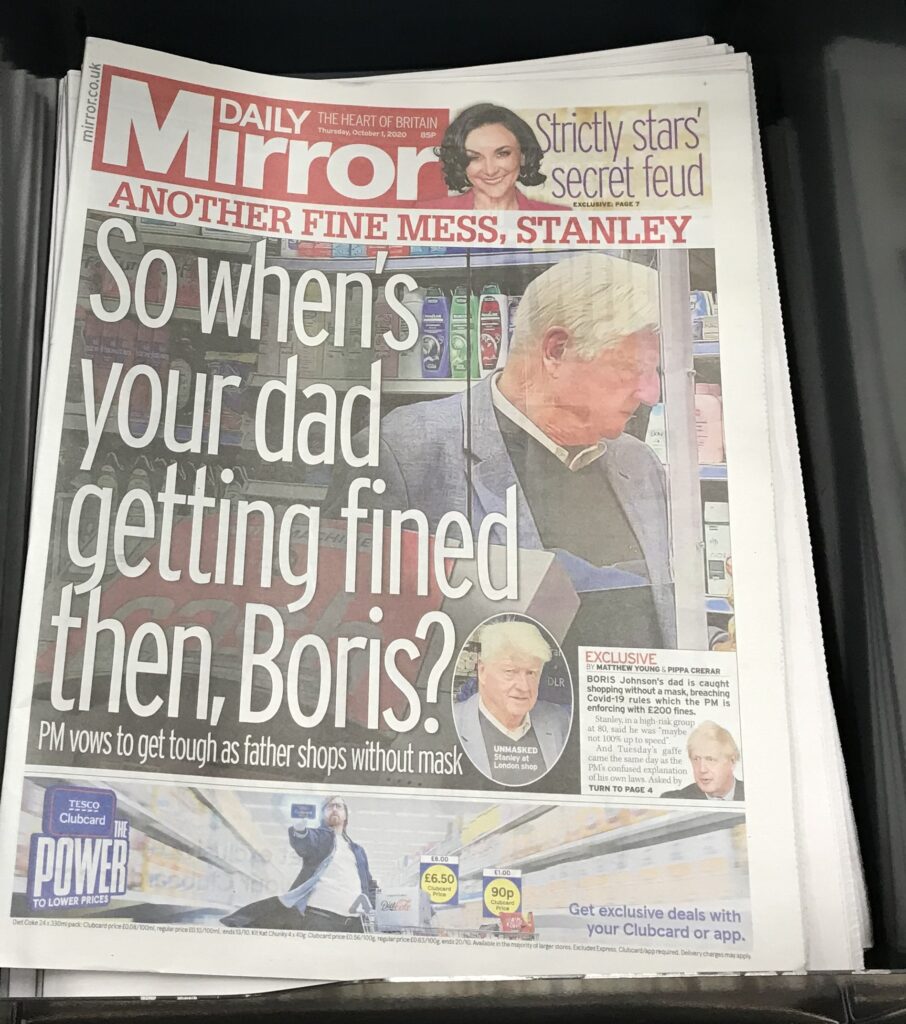
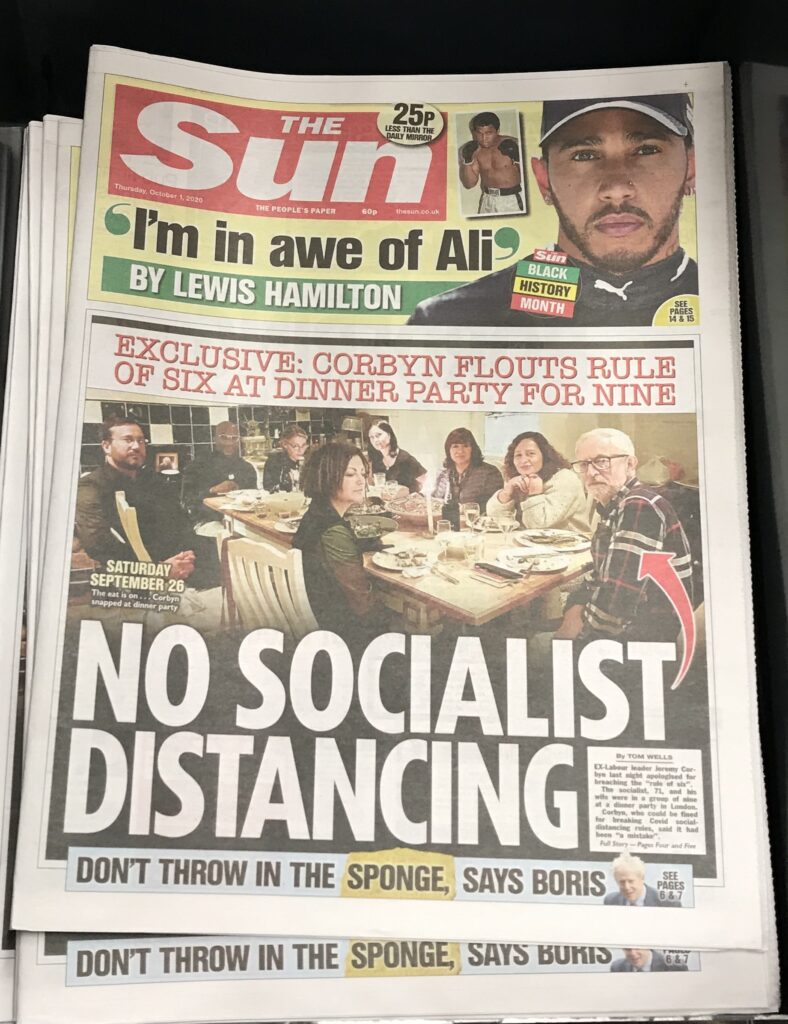

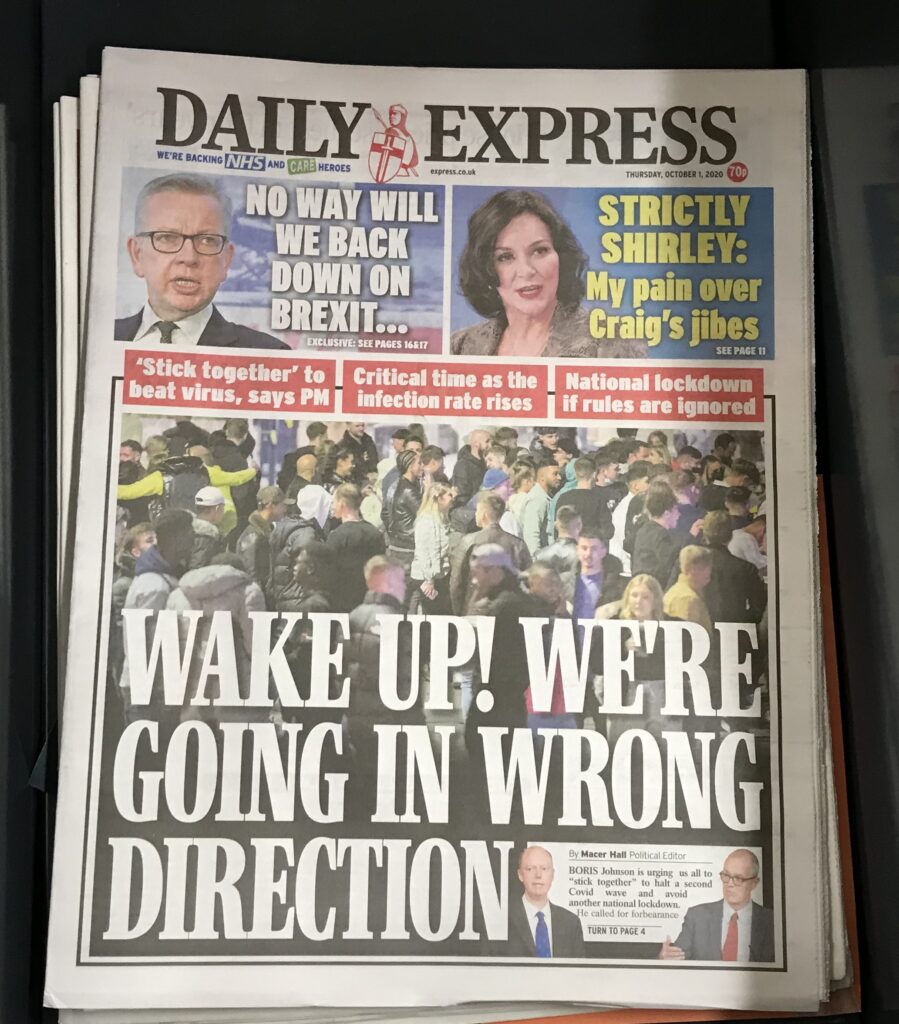
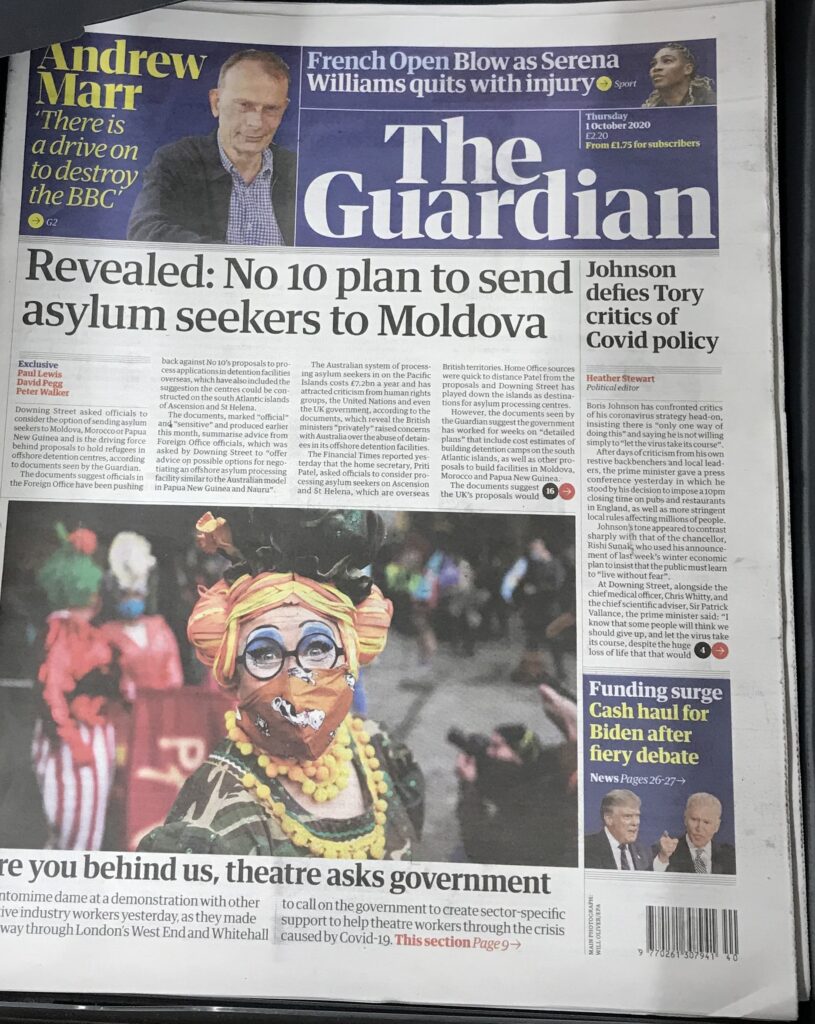


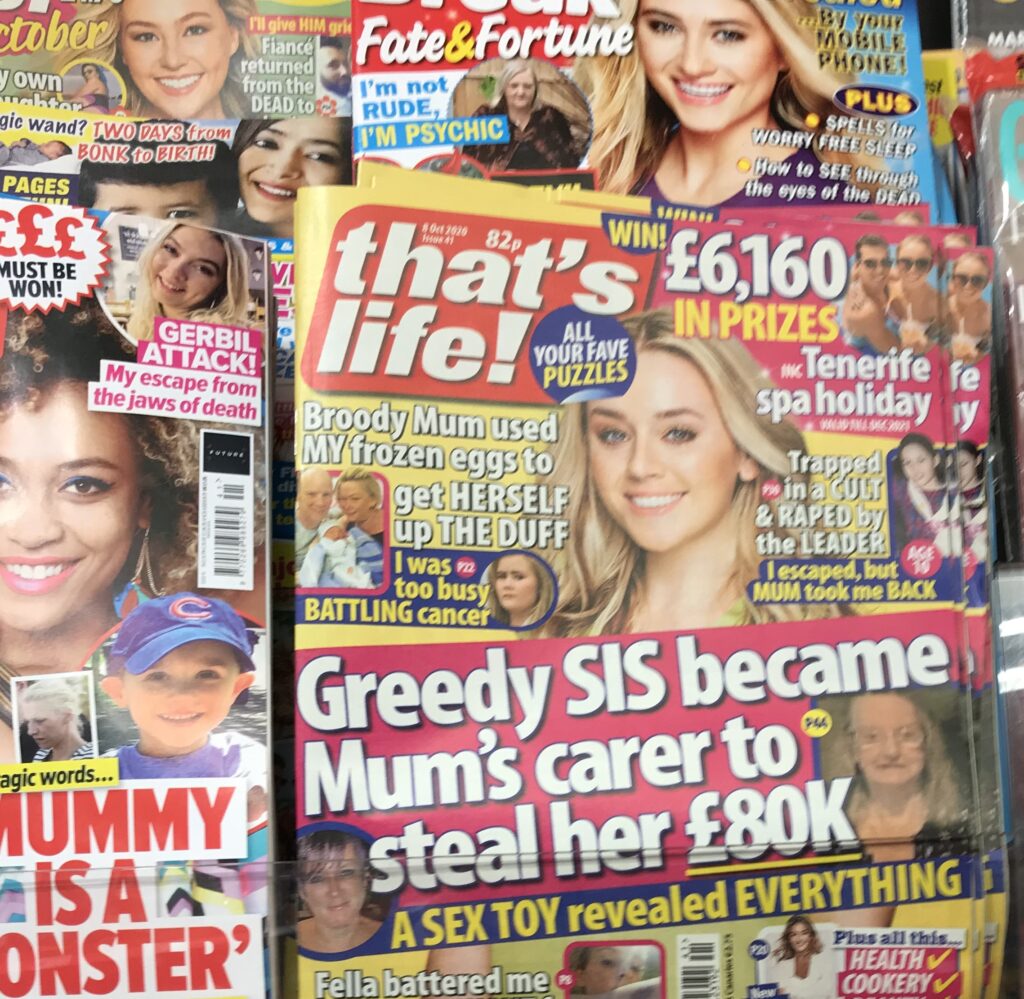
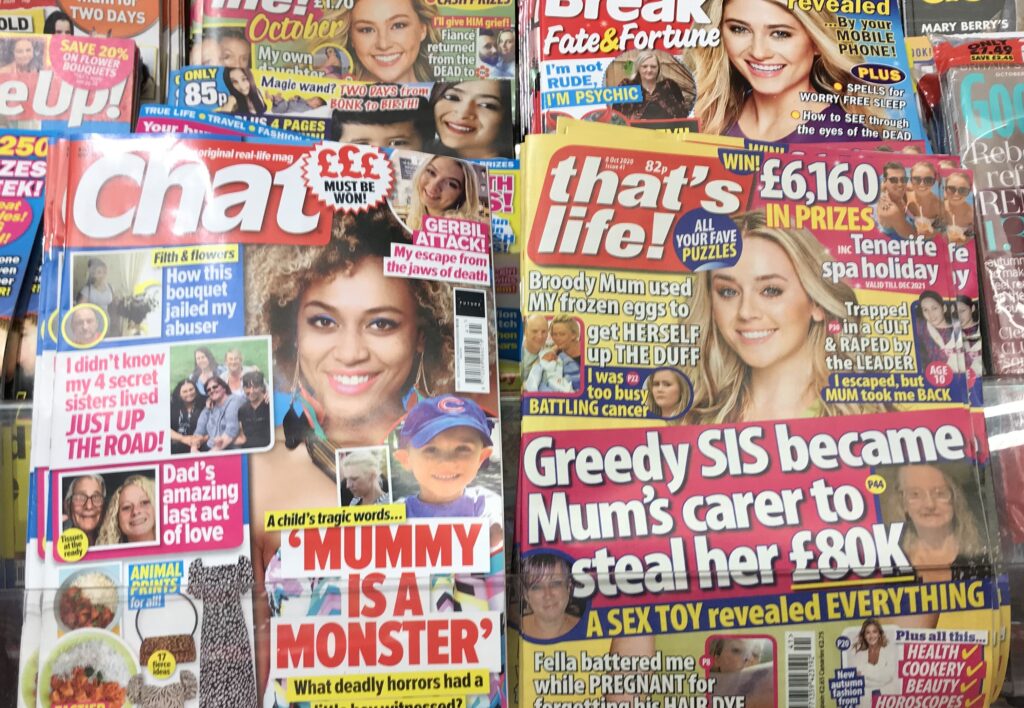
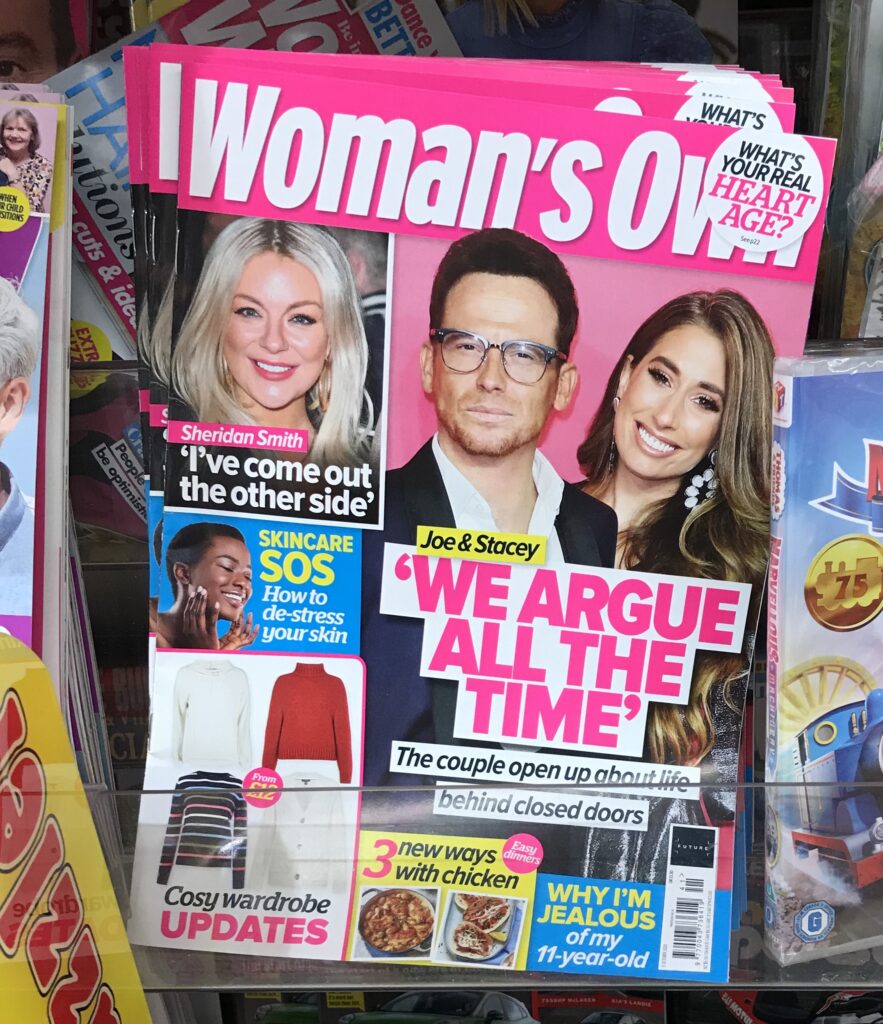
Front Pages September 30th 2020

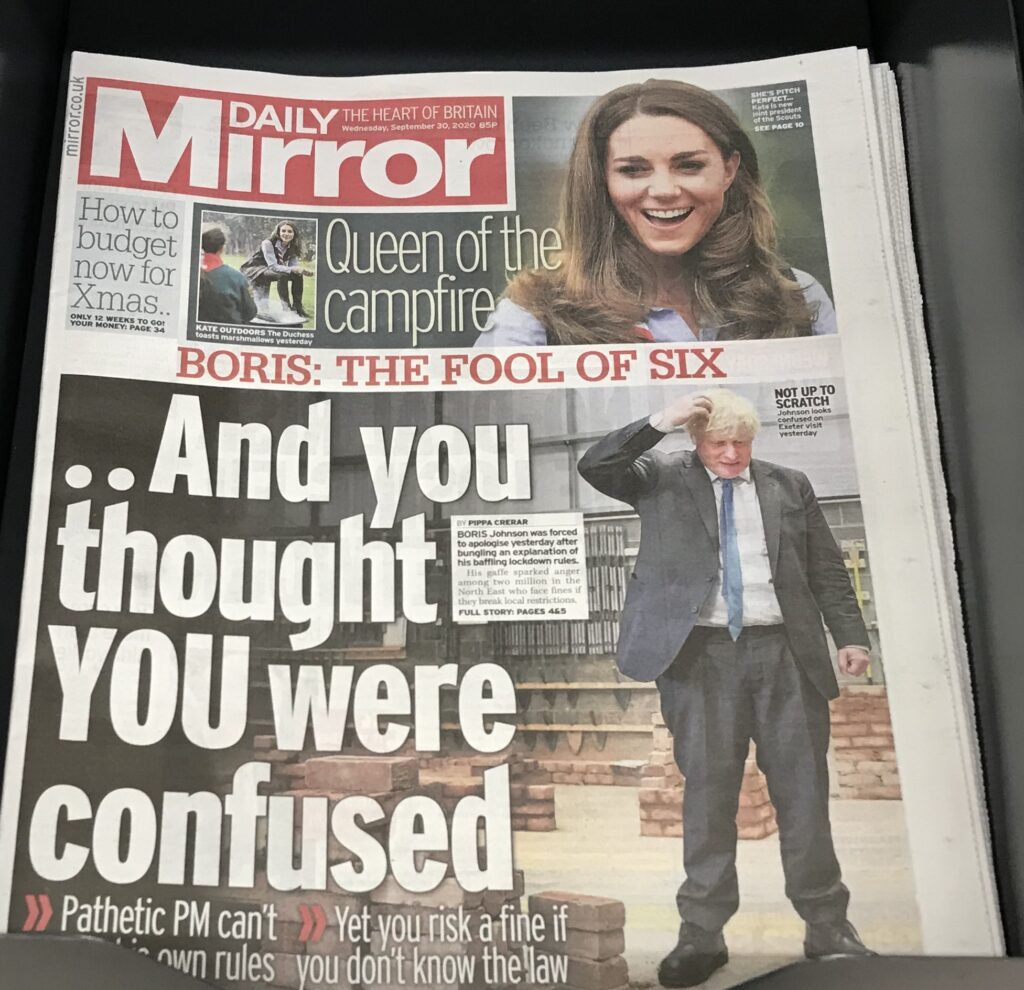

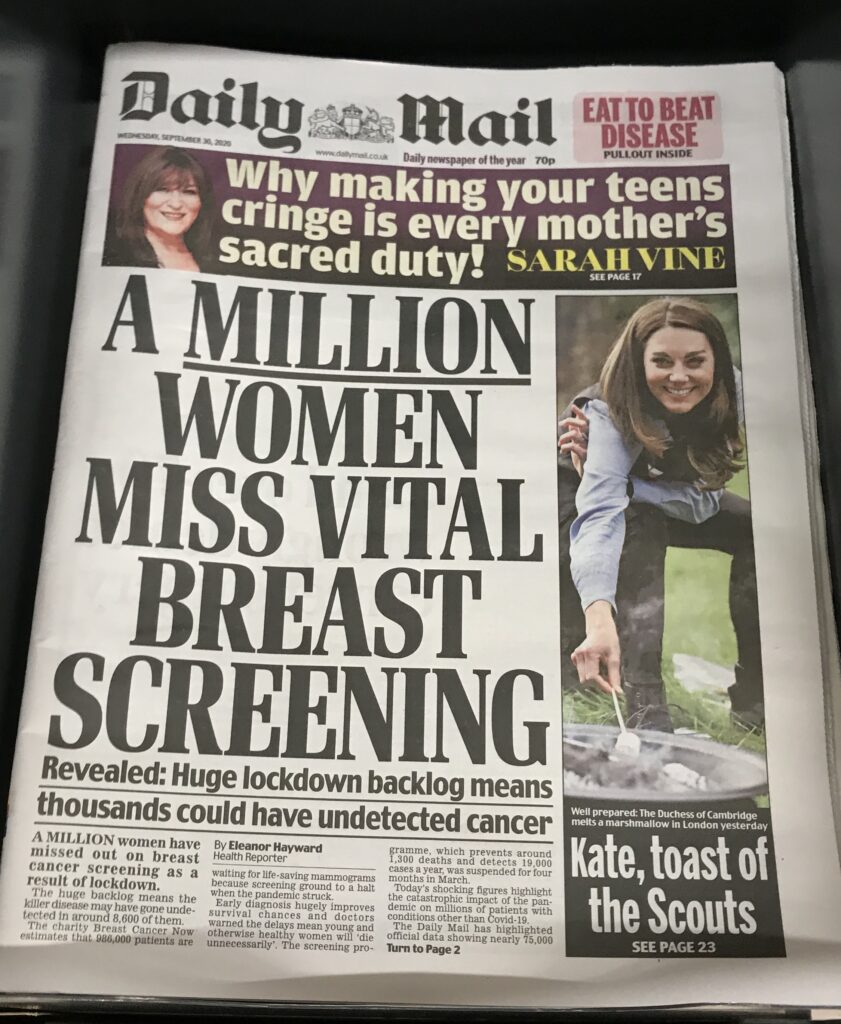


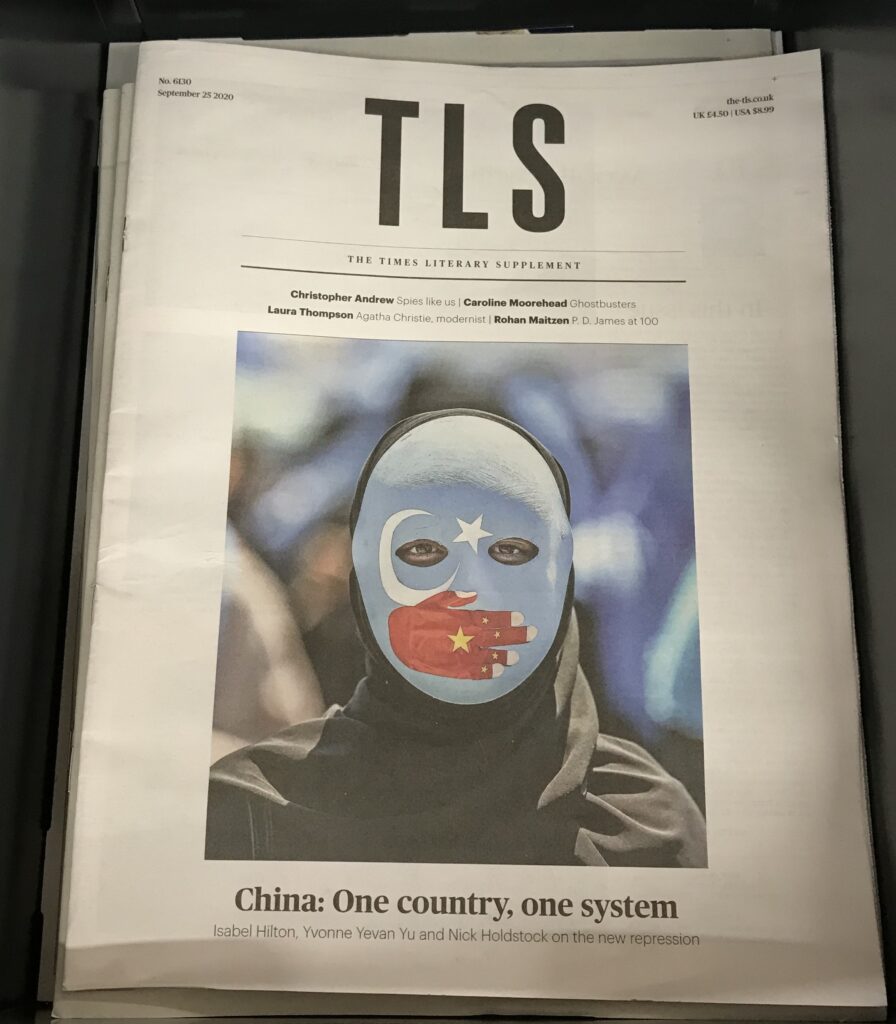
Bruce Springsteen has long communicated style, through his music, obviously, but also through his clothing. So we’re taking things back to the early days. His stardom earned him the nickname “The Boss” in the mid-1970s when Born To Run was released, but, frankly, that song needed a fashion flair to match and we all know the singer has never shied away from a statement look. So today, as Springsteen celebrates his 71st birthday (and another year of inherent coolness), we’ve travelled right back to the days that birthed this unwavering fashion icon. Cue the style lessons…
Bruce Springsteen – Born to Run (Official Video) – YouTube
www.youtube.com › watch

1/13
Is the movie Born on the Fourth of July a true story?
What is the movie Born on the Fourth of July about?How old was Tom Cruise in Born on the 4th of July?
How long is born on the Fourth of July?Feedback
Born on the Fourth of July – Wikipediaen.wikipedia.org › wiki › Born_on_the_Fourth_of_JulyBorn on the Fourth of July, published in 1976, is the best-selling autobiography by Ron Kovic, … See also[edit]. Births on July 4th …Origin · Differences from the film … · Cultural references
Go sleeveless
First things first: sleeves. Springsteen is the master of letting them go, taking most of his iconic checked shirts and tearing off the arms, DIY style. It’s a big yes from us. Not only was it a practical way for him to dress for a warmer weather forecast (or, more likely, an energetic concert), but it also communicated the most carefree look possible. Paired with some distressed jeans and, of course, a bandana wrapped round his head, the sleeveless finish served as his ultimate style statement.
© Ebet Roberts

2/13
You need a buckle belt
If your trademark look is total Westernwear, it’s highly likely you’ve got a fair few buckle belts sitting in your wardrobe. Springsteen certainly has and he’s long used them as a central focus for a more relaxed outfit. Case in point: the image above, where his stellar silver belt sat in between a black corduroy shirt and dark, straight-cut jeans. This is a brilliant reference if you’re wanting to make a subtle nod to the cowboy – make sure your shirt is unbuttoned for insouciance and tuck it into your jeans to show off that mega accessory.

3/13
Head-to-toe black is a fail-safe
Springsteen has never been afraid of a bold ensemble, but he also knows how to make the simple ones look incredibly cool. His favoured classic look? It’s got to be head-to-toe black. Pictured here during his American tour in 1978, he proved the power of the most classic shade, styling a generously unbuttoned (to say the least) black shirt with skinny black jeans and a single-breasted black blazer. A smart style move in our eyes, as its effect was effortless and also highlighted his colourful companion: a Fender Telecaster.
© Michael Putland

4/13
Add a vest to your wardrobe, stat
Sure, Harry Styles might have been advocating the vest this year (and as a result, we have too), but there’s one man who was selling it long before: Bruce Springsteen. Back in the Seventies – the decade of countless style statements – the rock star oozed confidence in this exposing white number. The colder seasons might be on their way, but this is a mainstay in menswear: style it under a billowing blue shirt for a weather-appropriate take. For the best current option, turn your attention to Dior.
© Rick Diamond

5/13
A knitted scarf is a must for winter
Sounds simple enough, but knitted scarfs aren’t just about practicality. They’re a finishing touch, a way to inject sophistication and fun into an otherwise utilitarian outfit. All you need to do is take a leaf from Springsteen’s book – layer a slim scarf (go for some colour; we’re into the orange hint here) through the collar of your shirt and then tuck it into a battered biker jacket. A bit of elegance goes a long way and we can bet that he was feeling more fit for a cold day too.
© Mark and Colleen Hayward

6/13
As is a ribbed knitted T-shirt, for that matter
Springsteen’s style mantra is an obvious one: the tighter the clothing the better. Makes sense, then, that his short-sleeve knitwear was clingy too, but we’re all for it. We’re not denying that slouchy jumpers look great, but there’s a coolness in opting for pieces that just fit to the natural form (especially when they’re in a colour such as grape). Make sure your accompanying denim jeans are cut straight. If you’re feeling extra bold: maybe emulate the headband.
© Time & Life Pictures

7/13
Always expose your collar
Al Pacino may have set the cuban collar statement with Scarface in 1984, but Springsteen was light years (well, three years) ahead of him. Performing at Wembley Arena in 1981, he stepped on stage looking, literally, sharp. A white shark collared shirt was layered over a boxy tweed blazer, slim black jeans and some brown Western boots (bold buckle included). The top tip to take is simple: embrace some sartorial nonchalance through an unbuttoned shirt and exposed collar. Keep it out, always.

8/13
You need a bandana
If you thought double denim was a statement, try topping it off with a bandana. Springsteen was synonymous with the scarf accessory, most often used as a headband and always clad in red. Here he opted for the necktie edition, the perfect finish to his effortless denim shirt (roll your sleeves up and keep it slightly unbuttoned for maximum effect). We see your white vest there too, Bruce – strong starting layer. The time to invest in a vest is back and the trend is bigger than ever right now. Style it under a jean-centred look or a sharp cream suit if you dare. Summer dressing done right.

9/13
And a newsboy cap
Ever the fan of those all important finishing touches, in 1977 Springsteen opted to top off his look with a newsboy cap. It boded well with the rest of his attire: hip-hugging jeans, a striped T-shirt (cropped just the right amount) and a little leather jacket with an eye-catching collar. His look had taken a bit more of a rugged turn at this point, with a longer mop of hair, his flat hat sealed the oh so cool deal that he brought to Alex Cooley’s Electric Ballroom in Atlanta. The head accessory has recently resurged thanks to the popularity of Peaky Blinders, but, frankly, it’s a timeless essential to your wardrobe. Style it like Springsteen.

10/13
Keep the shirts unbuttoned
If you’re opting to style a shirt with heartwarming connotations, why not take it one step further? AKA: undo a few more buttons? Springsteen has long mastered this blasé approach to loose shirting and, frankly, we’re all for it. Alongside some slim black jeans and silver accessories (it’s time to start wearing an earring again, FYI), this is the uniform of a serious musician. To re-create, scale up on the size of your shirt a tad, expose some chest and, ideally, strum a few charming chords on a guitar.

11/13
Top it off with a leather jacket
We’ll say this time and time again. Leather. Always. Works. Living proof of that? Springsteen, for who the inherently cool material has long served as a go-to style companion. We’re rather fond of his design choice here: appearing less like a mega motorcycle jacket and more like a laid-back shirt, it communicates the act of not overly caring (even though you’re intent on dressing well). Black jeans, a white T-shirt and a straight-cut leather jacket with rolled-up sleeves… it’s a smart approach to style and one that isn’t likely to fade any time soon.

12/13
A white T-shirt never goes out of style
It’s been a wardrobe mainstay among all our favourite stars, Bruce Springsteen included. There’s an endless enduring quality to the most basic piece in our wardrobes, the white T-shirt, and that’s mostly because it can be framed around pretty much any outfit. Opting for a suit? Base it with a white tee. Going to the beach? Style your swim shorts with a white tee. You get the idea. Springsteen has basically lived by that style sentiment and here he tucked his tee into some high-waisted cargo-esque trousers before finishing the look with some oversized shades. His top tip? Keep it simple at centre and have some fun with your surrounding pieces. Oh, and don’t forget a cap – the sun’s on its way out.

13/13
Don’t be afraid of the denim
Bruce Springsjean. Not his official name, we know, but if there was another nickname to give him other than “The Boss”, this would be it. Why? Because time after time, Springsteen proved the power of rocking a classic pair of denim jeans. As a rock’n’roll musician with a Western soul, it was in his nature, plain and simple. How someone could take such a wardrobe staple and turn it into an eternally cool part of their uniform is beyond us, but 40 years later, he’s still doing it. We advise you take a styling tip from this 1994 concert in Los Angeles and keep the sartorial confidence flowing by tying your boots up over your jeans. We’re heading to the Levis’s store as we speak.
Follow us on Vero for exclusive music content and commentary, all the latest music lifestyle news and insider access into the GQ world, from behind-the-scenes insight to recommendations from our Editors and high-profile talent.



